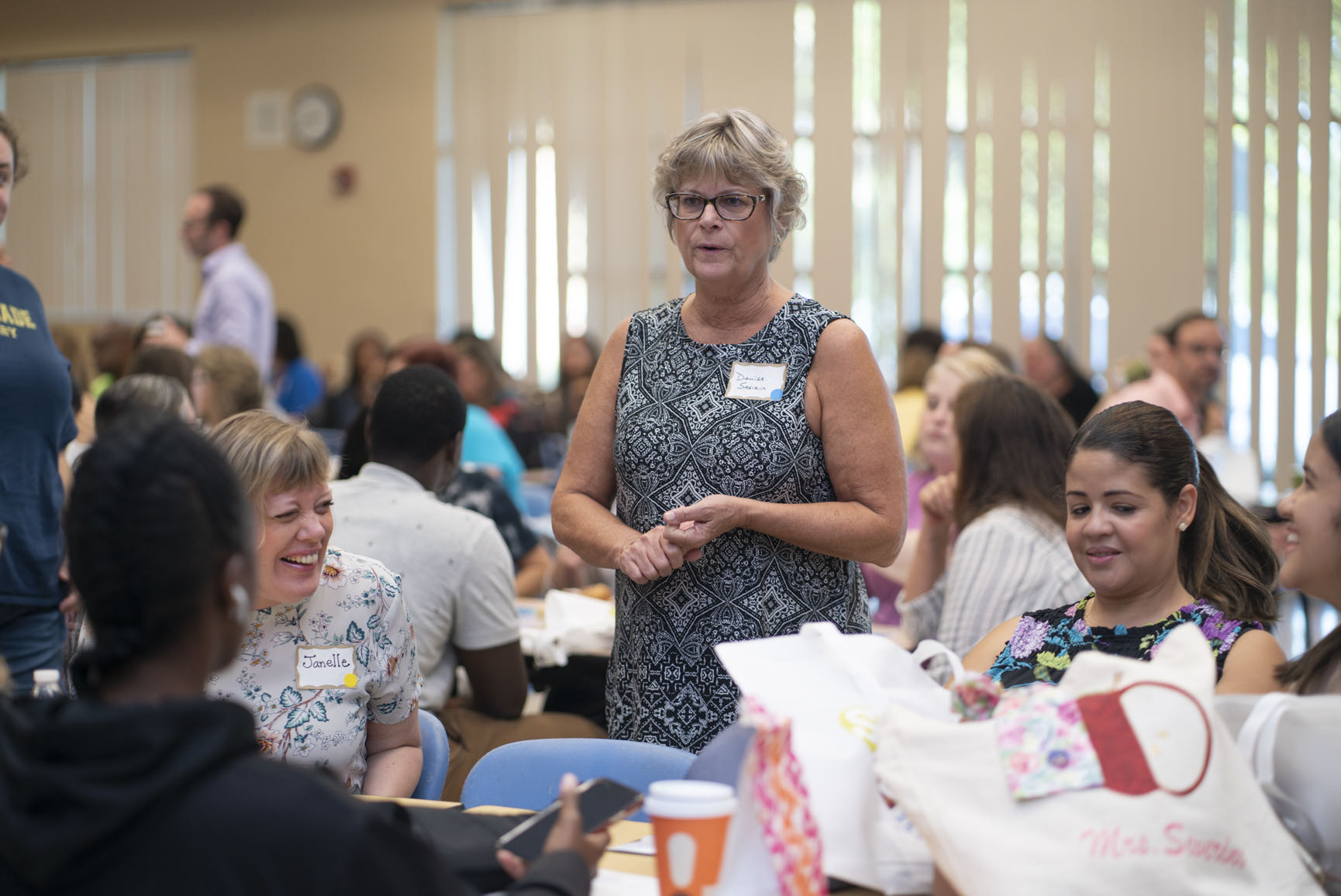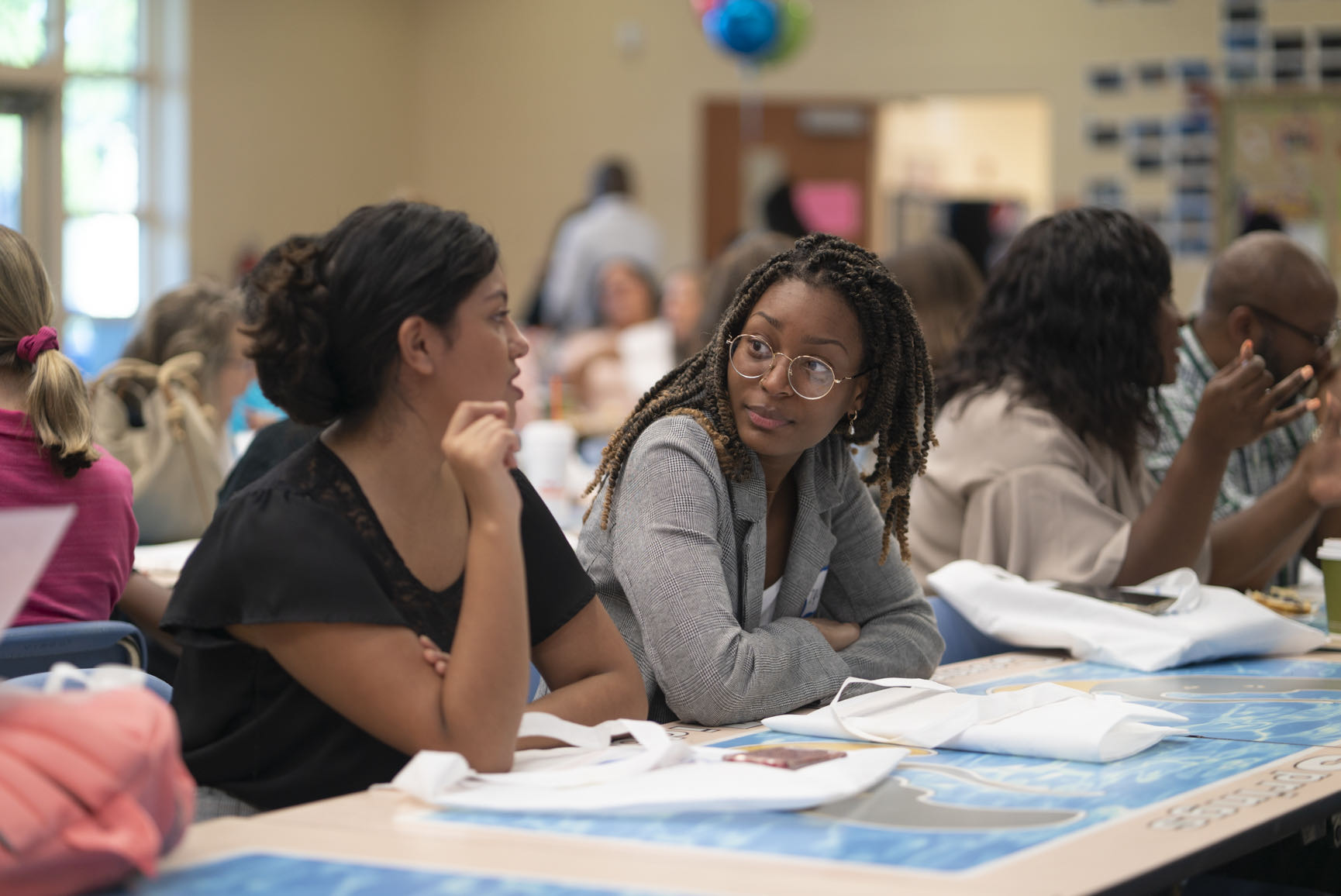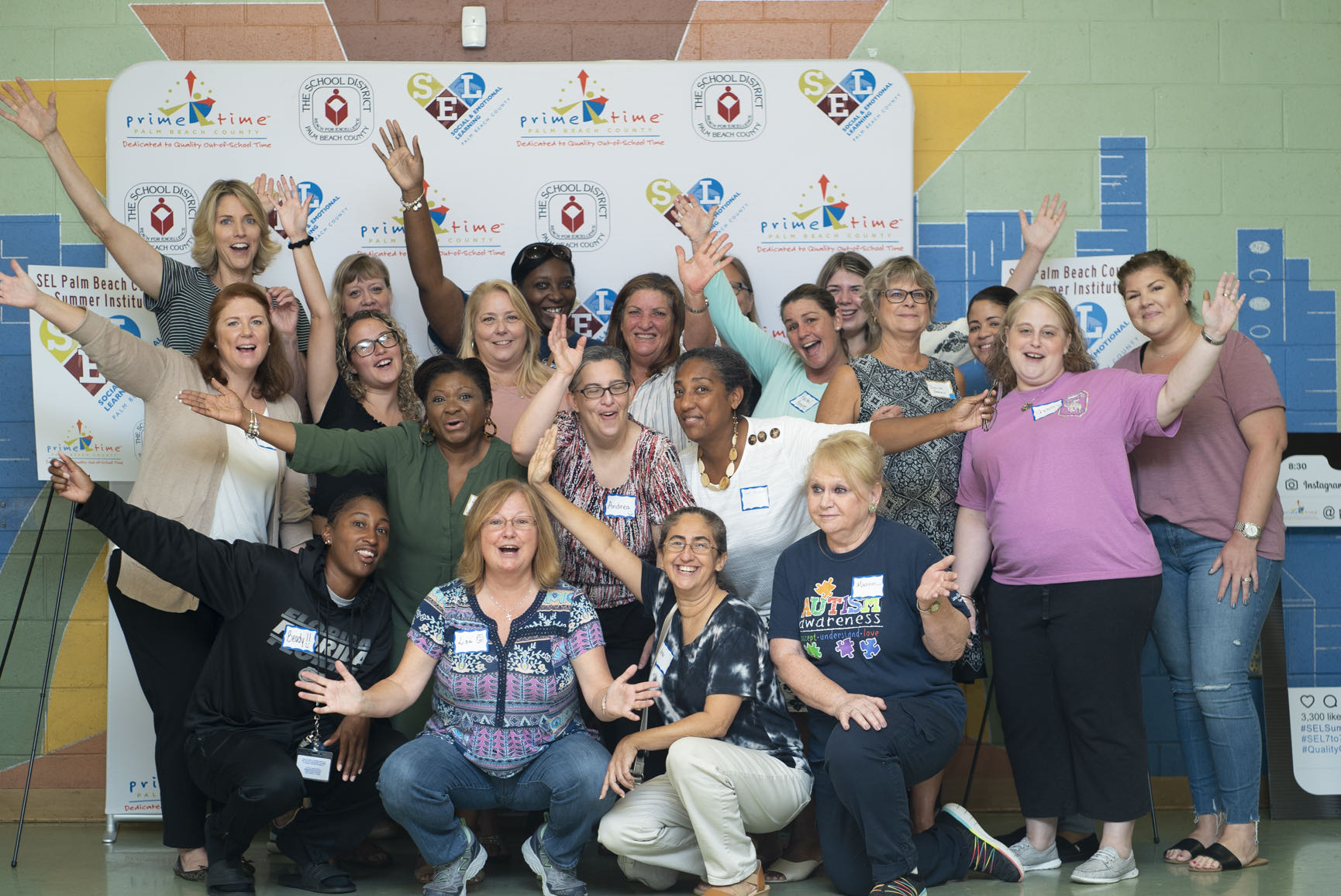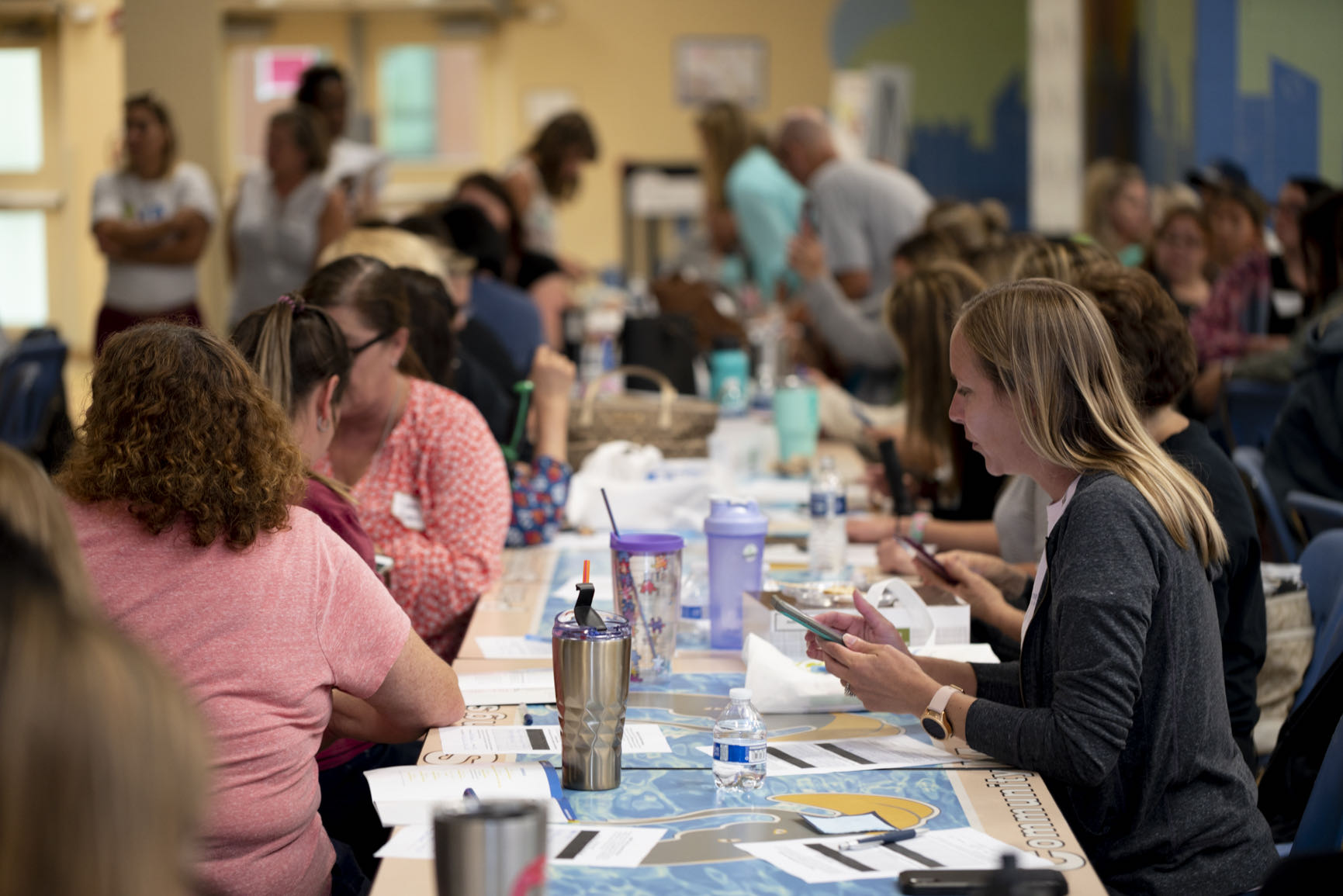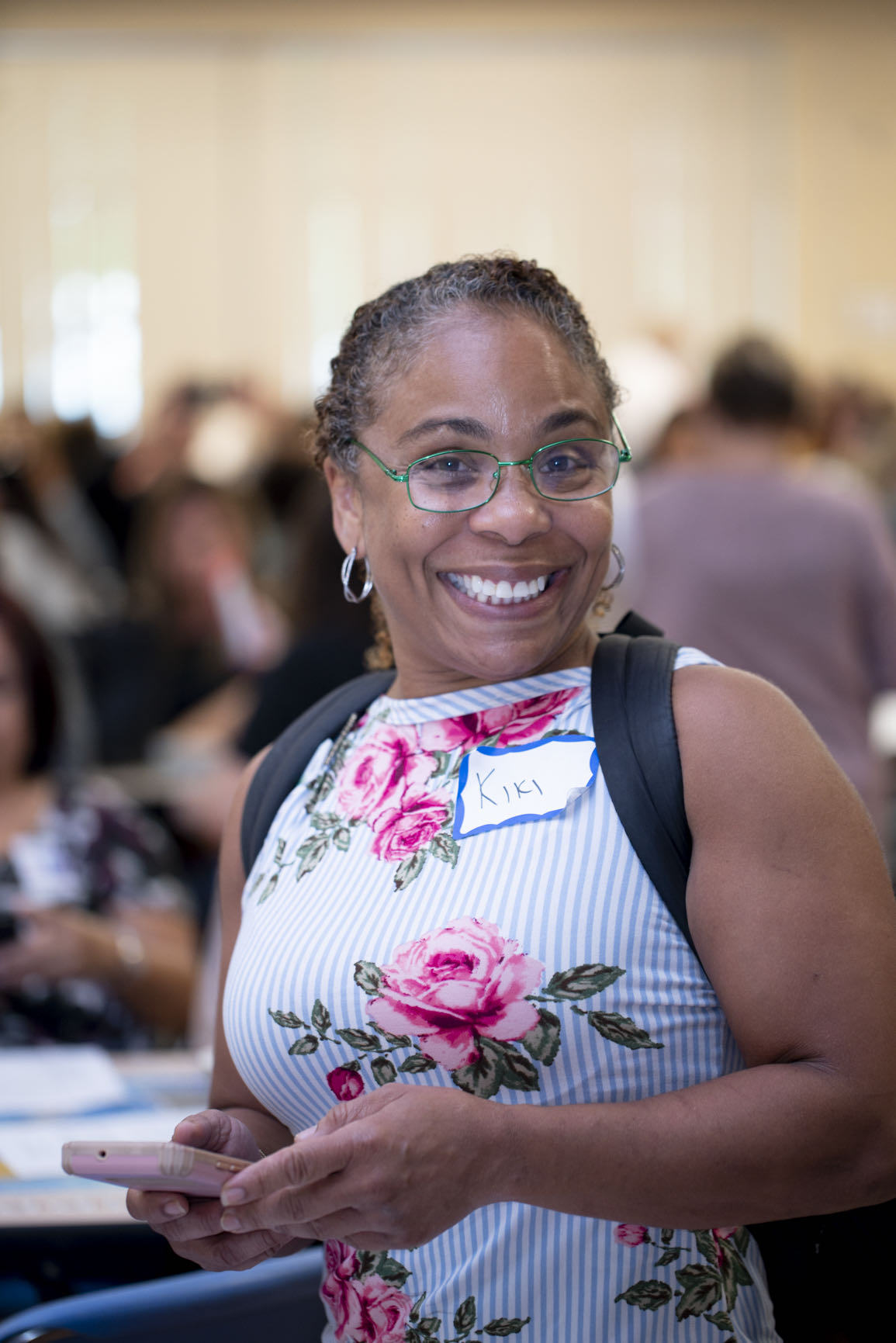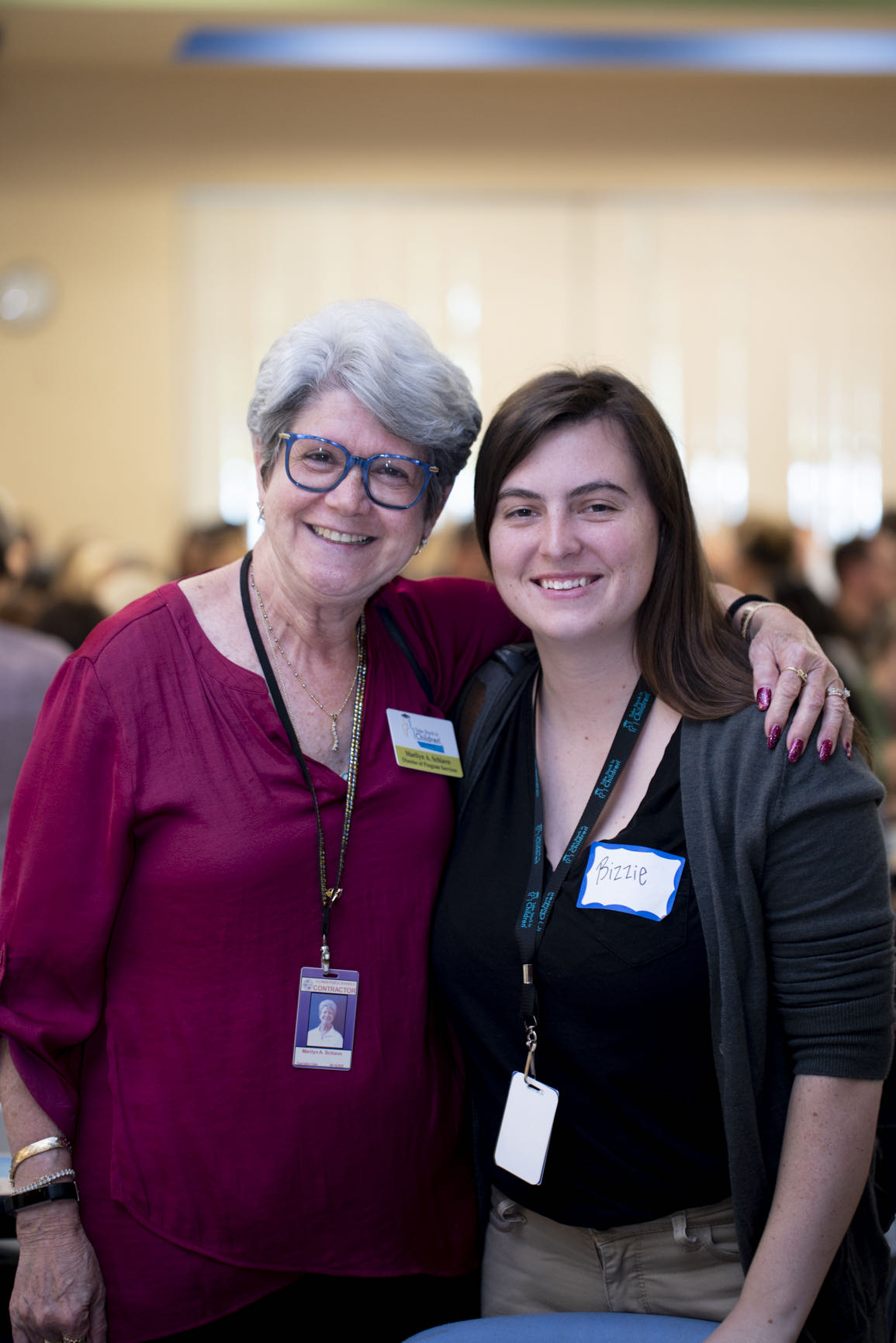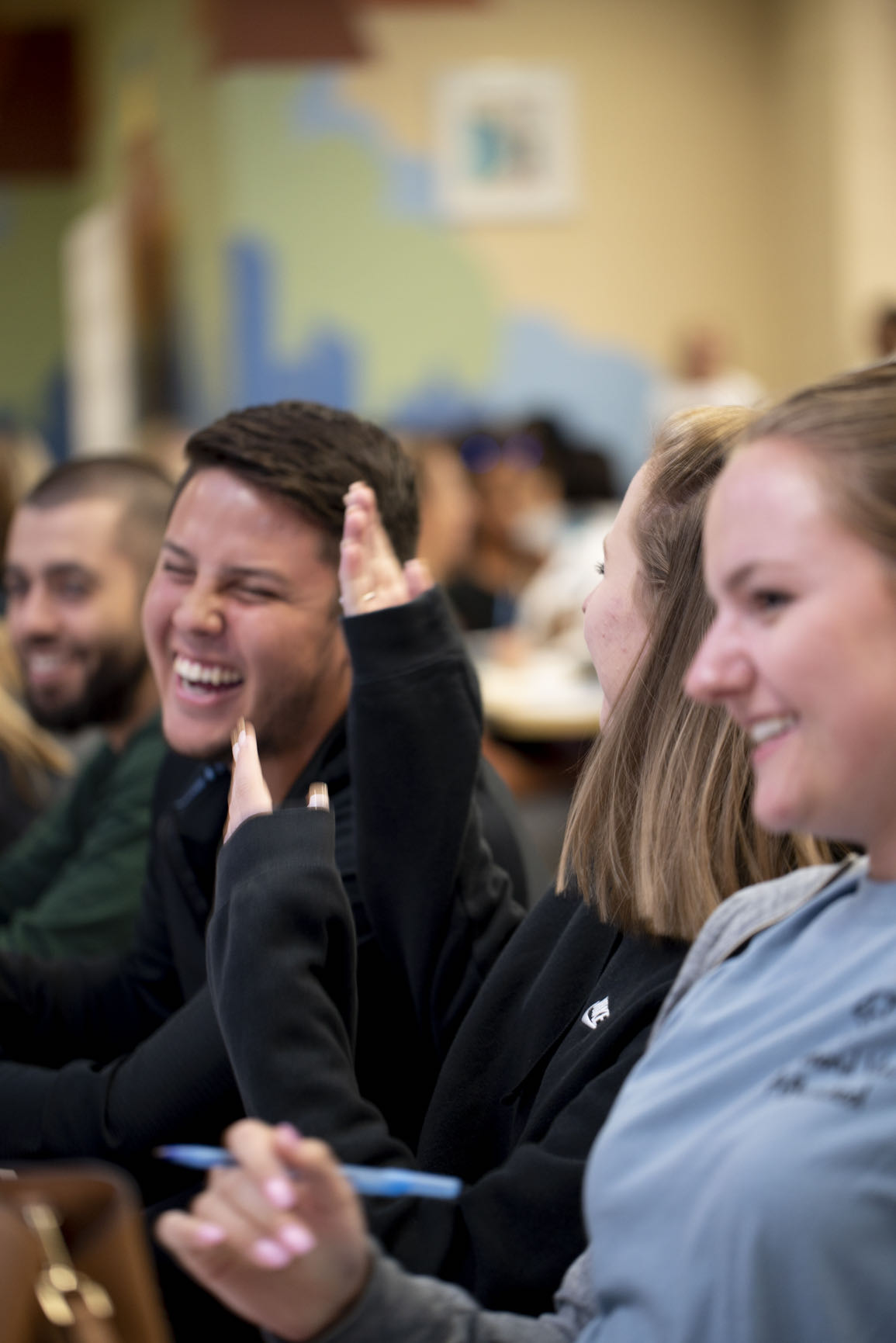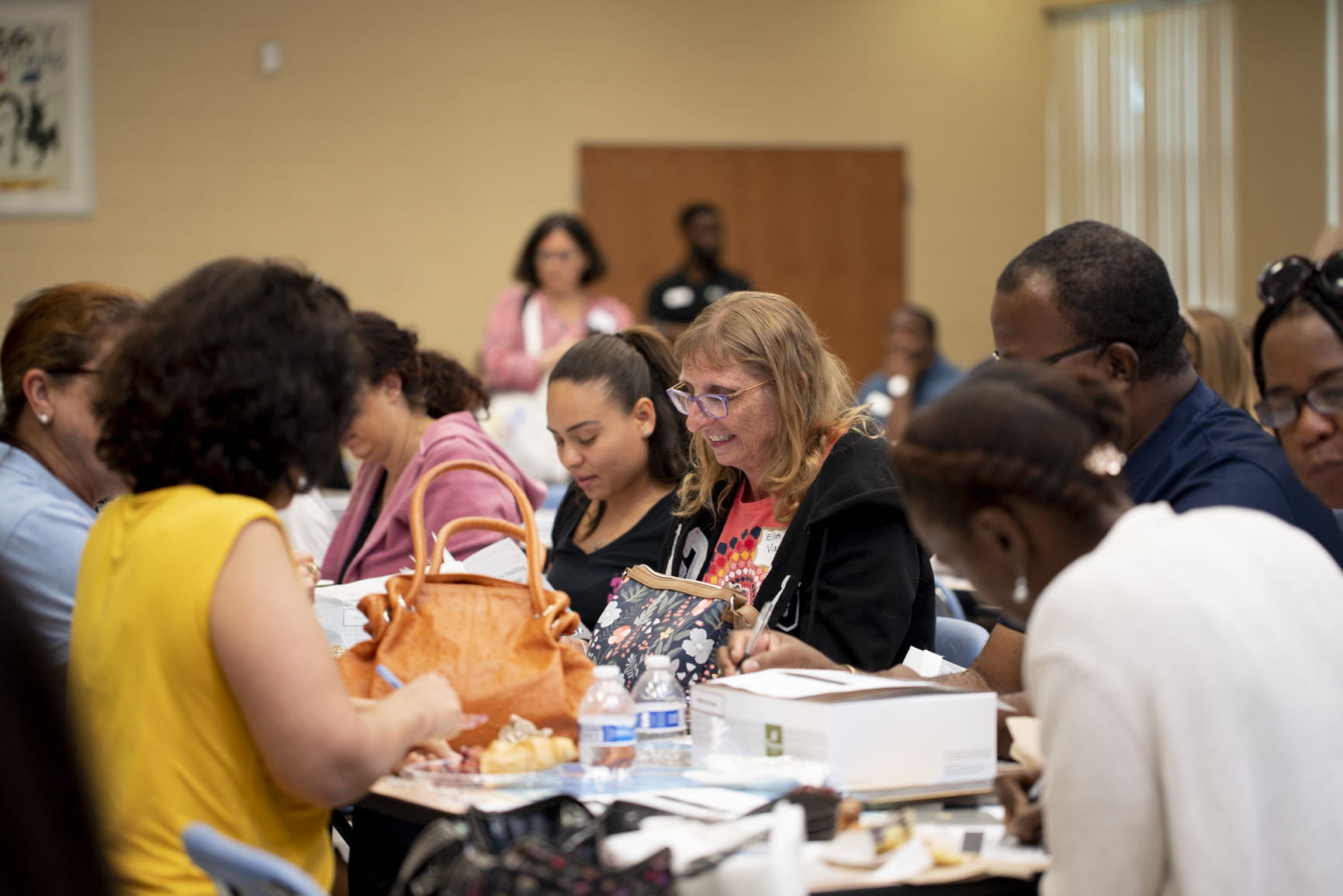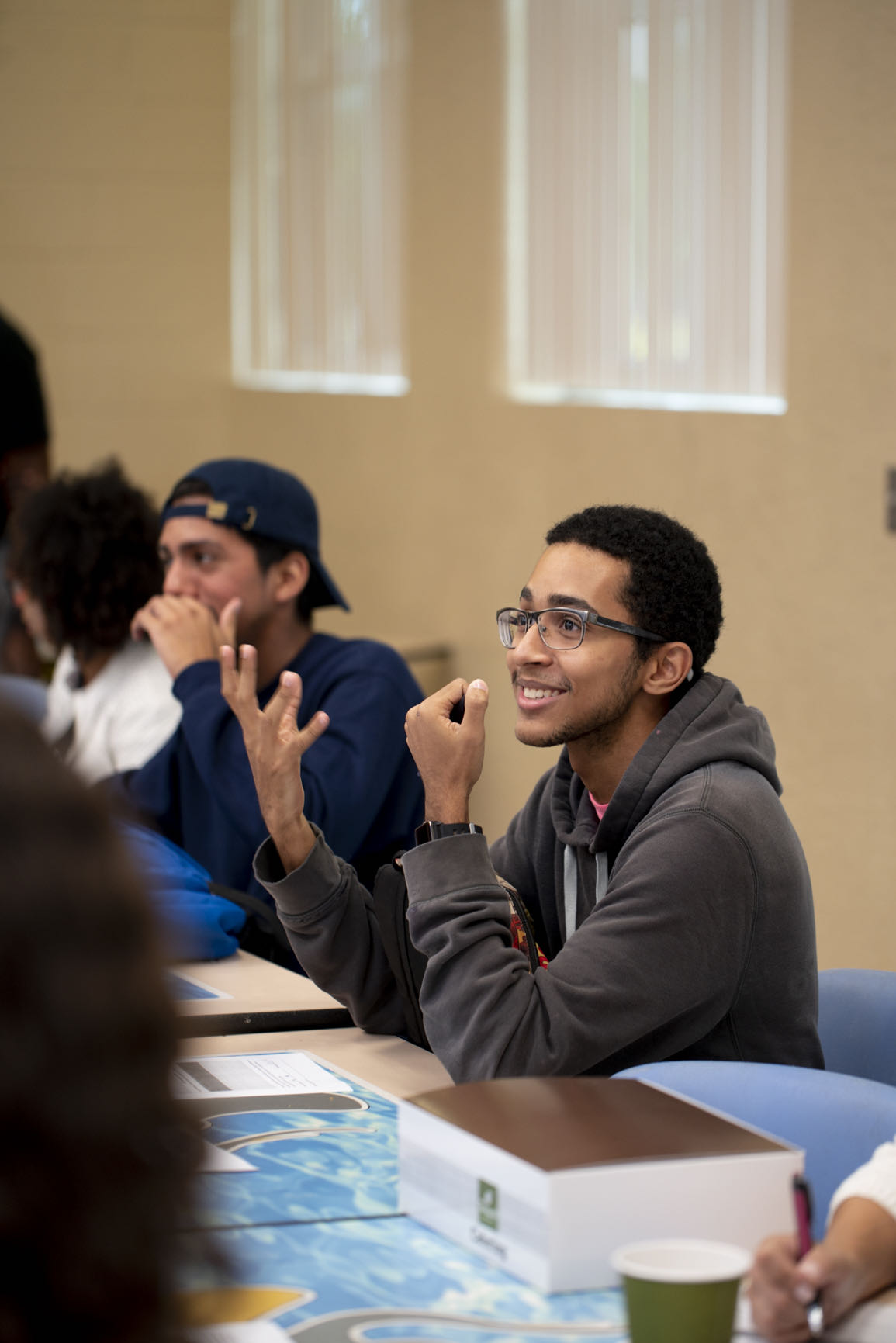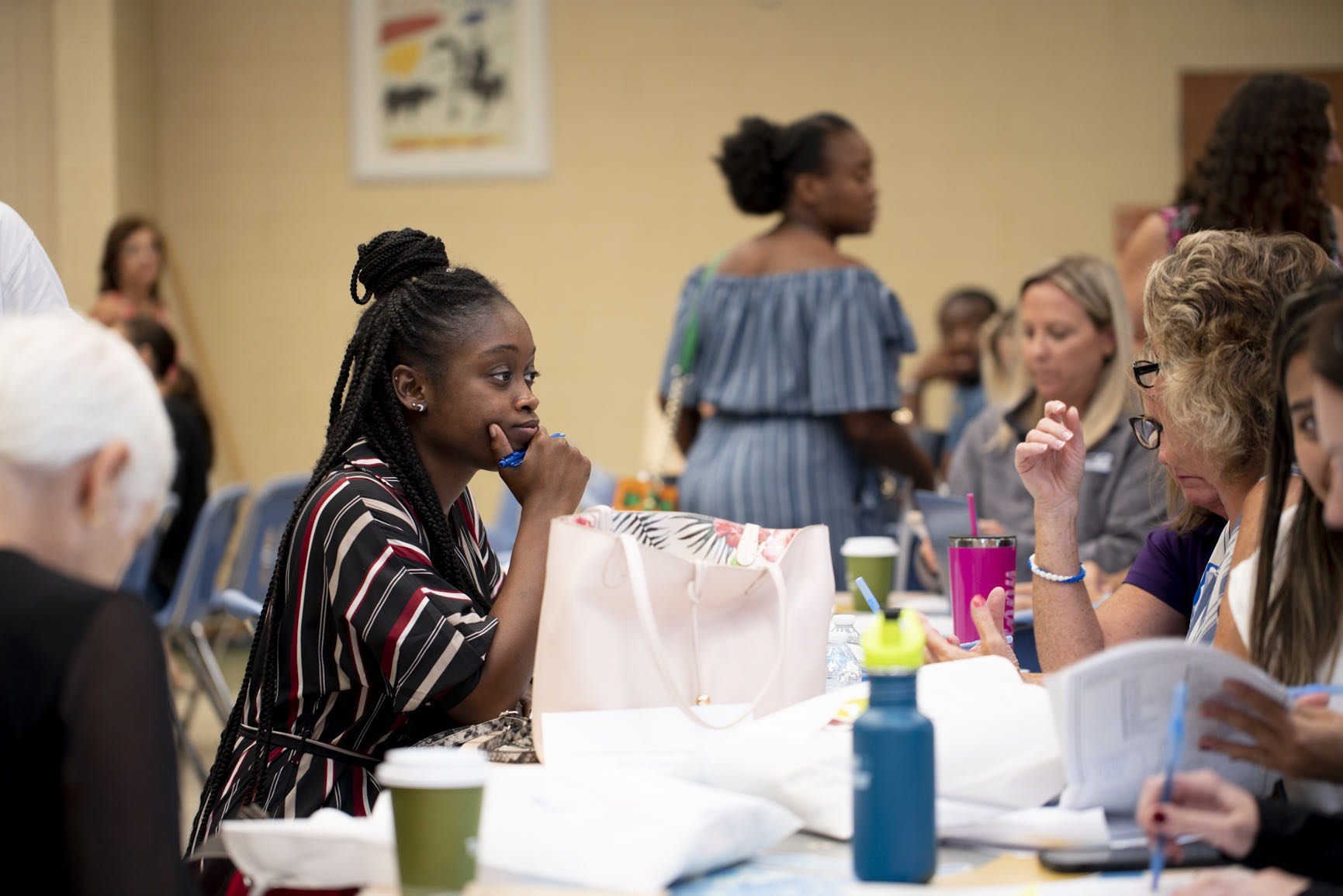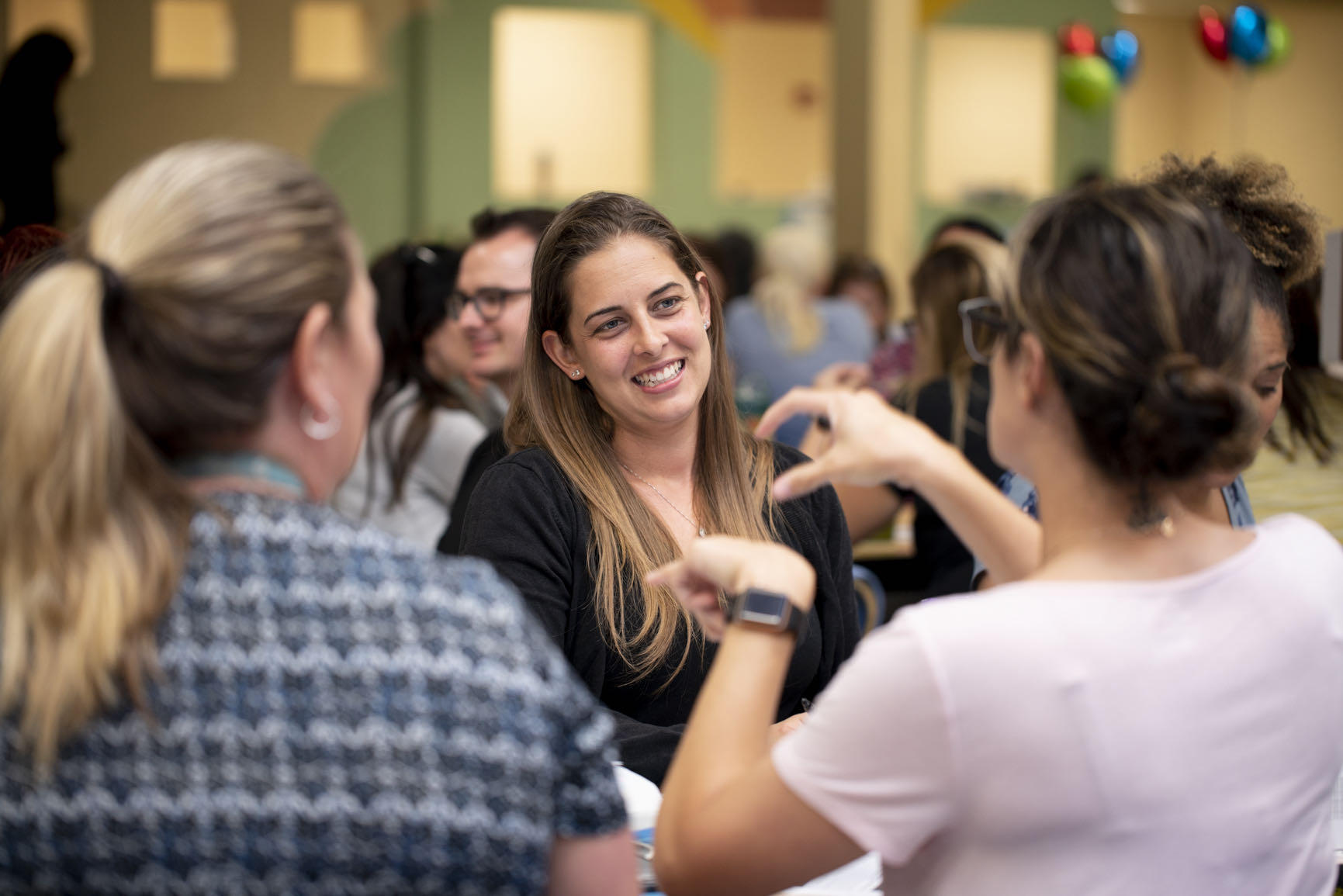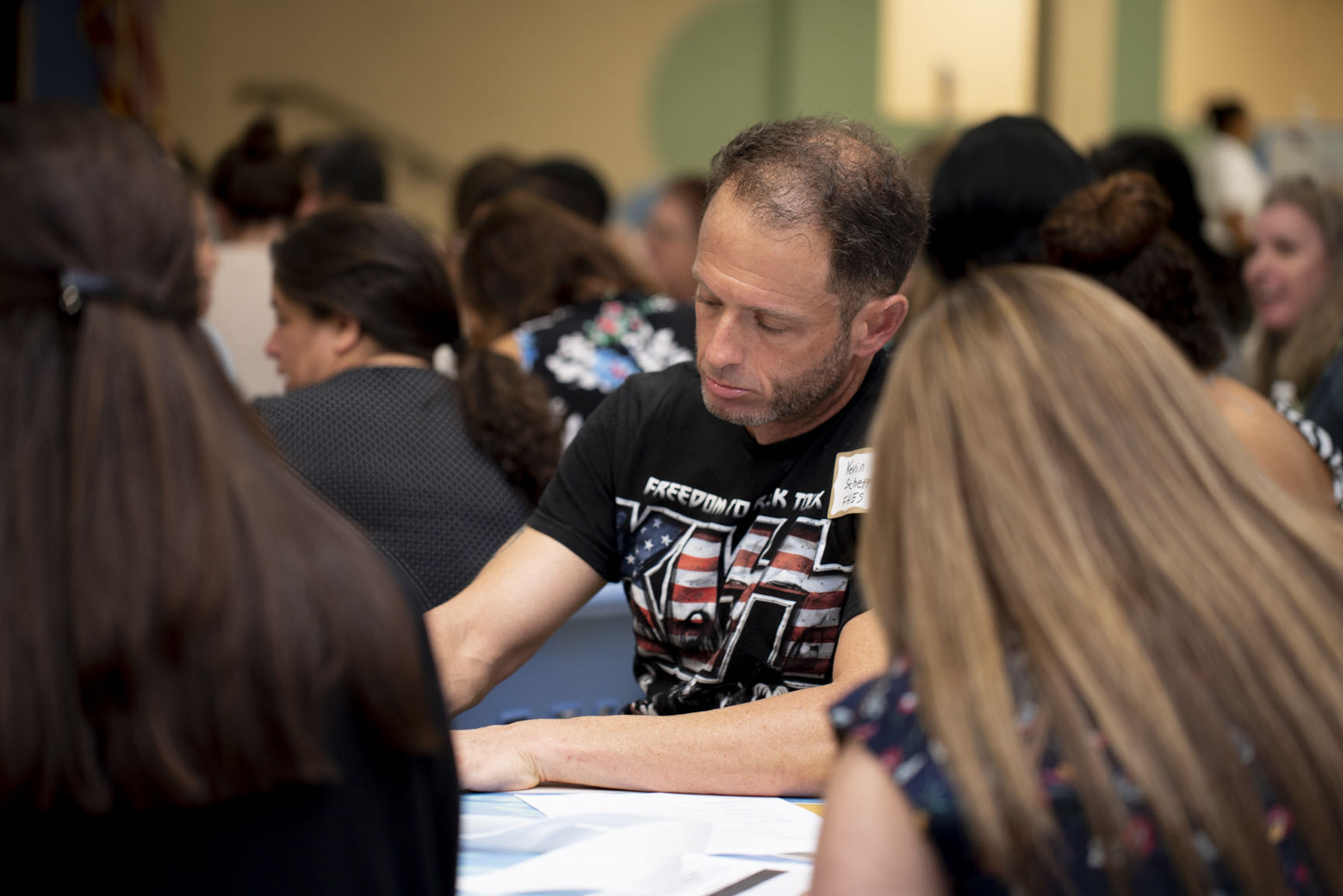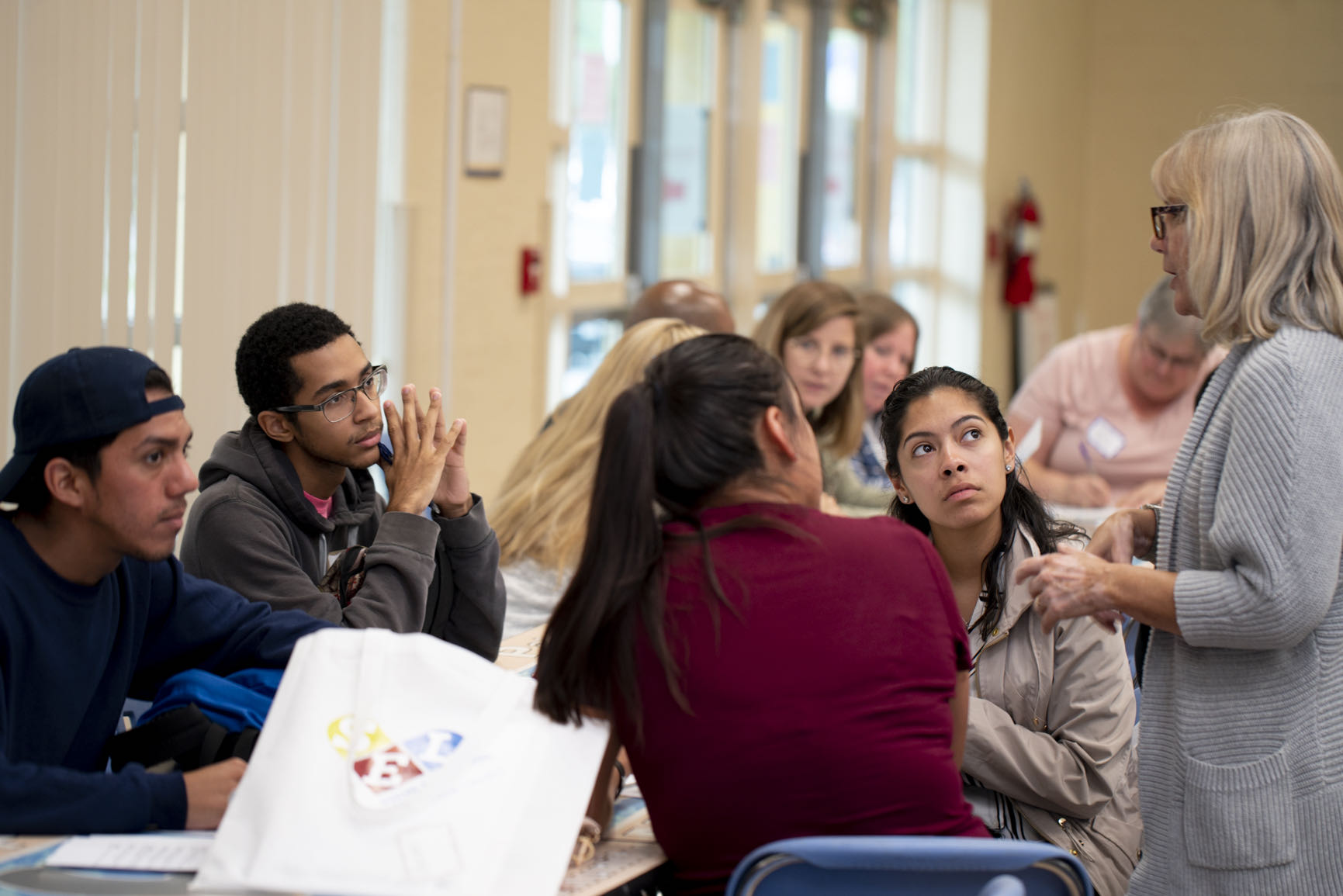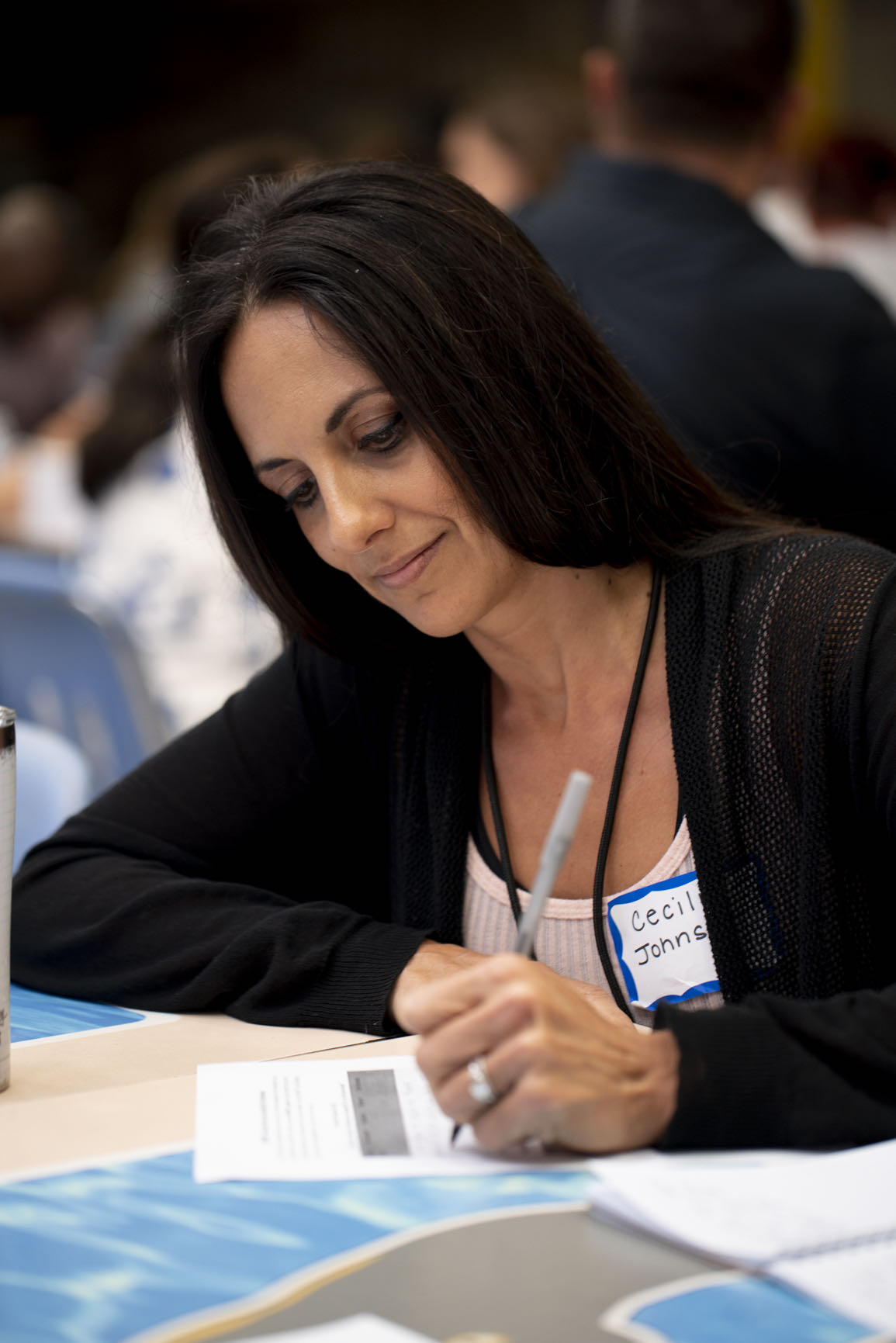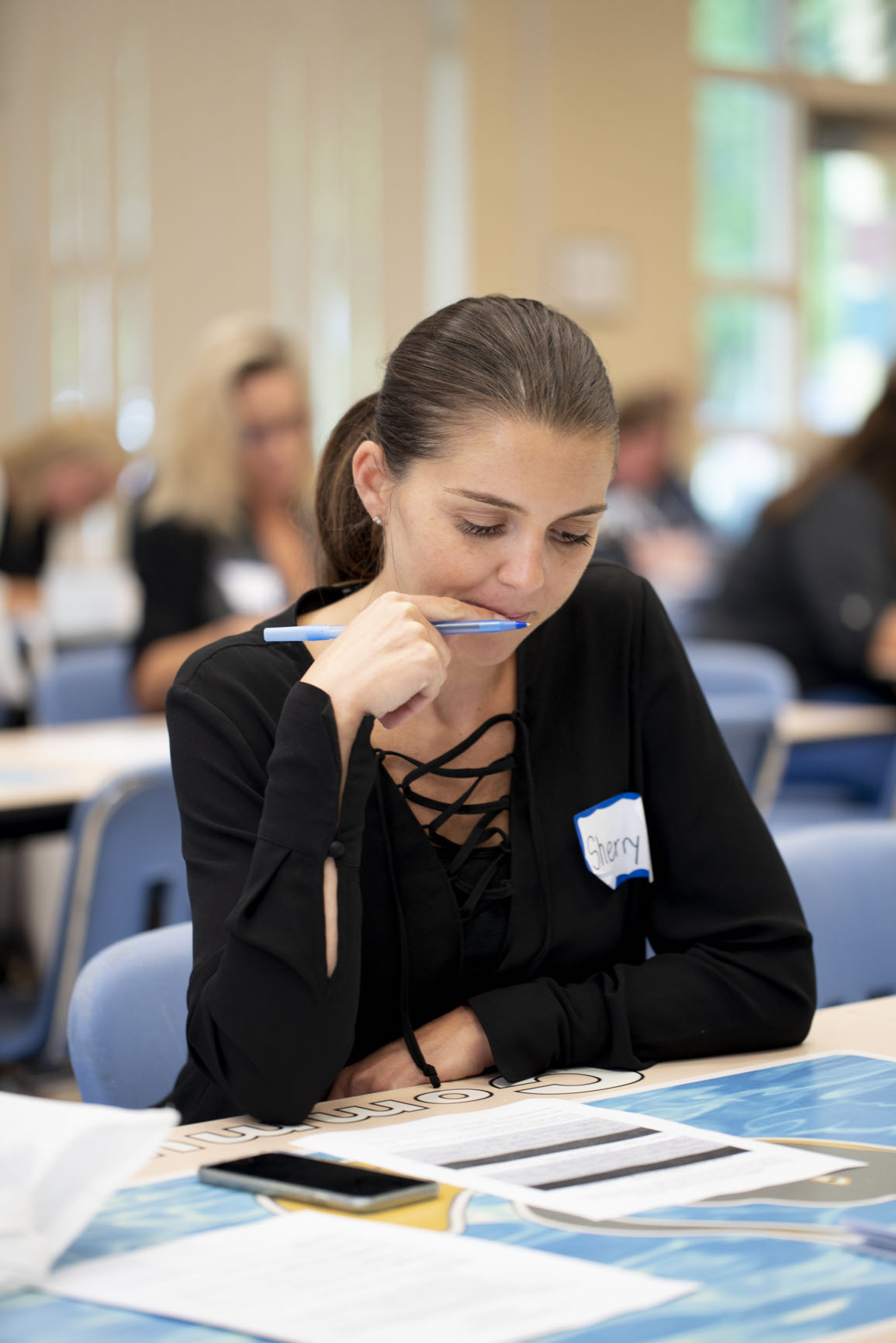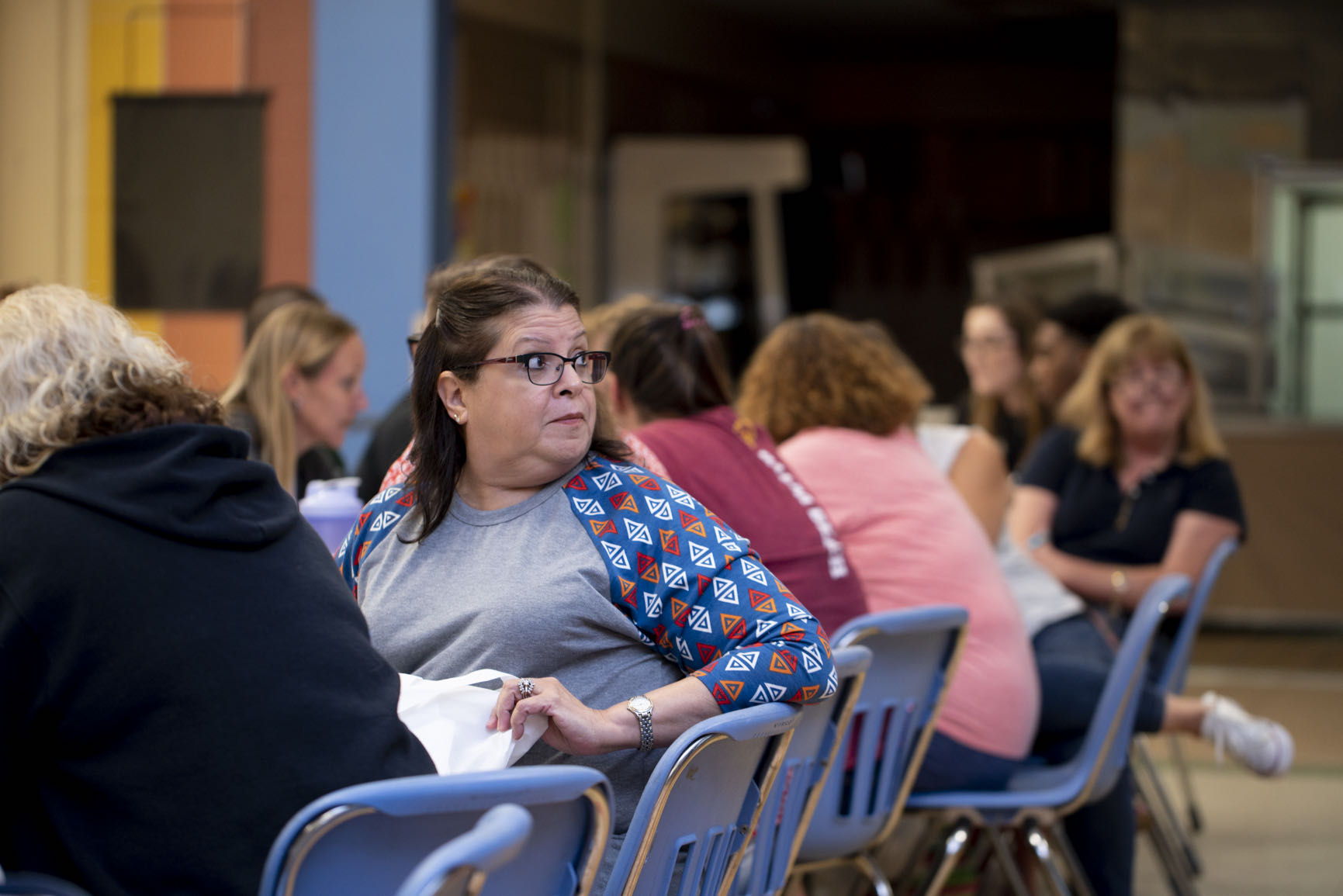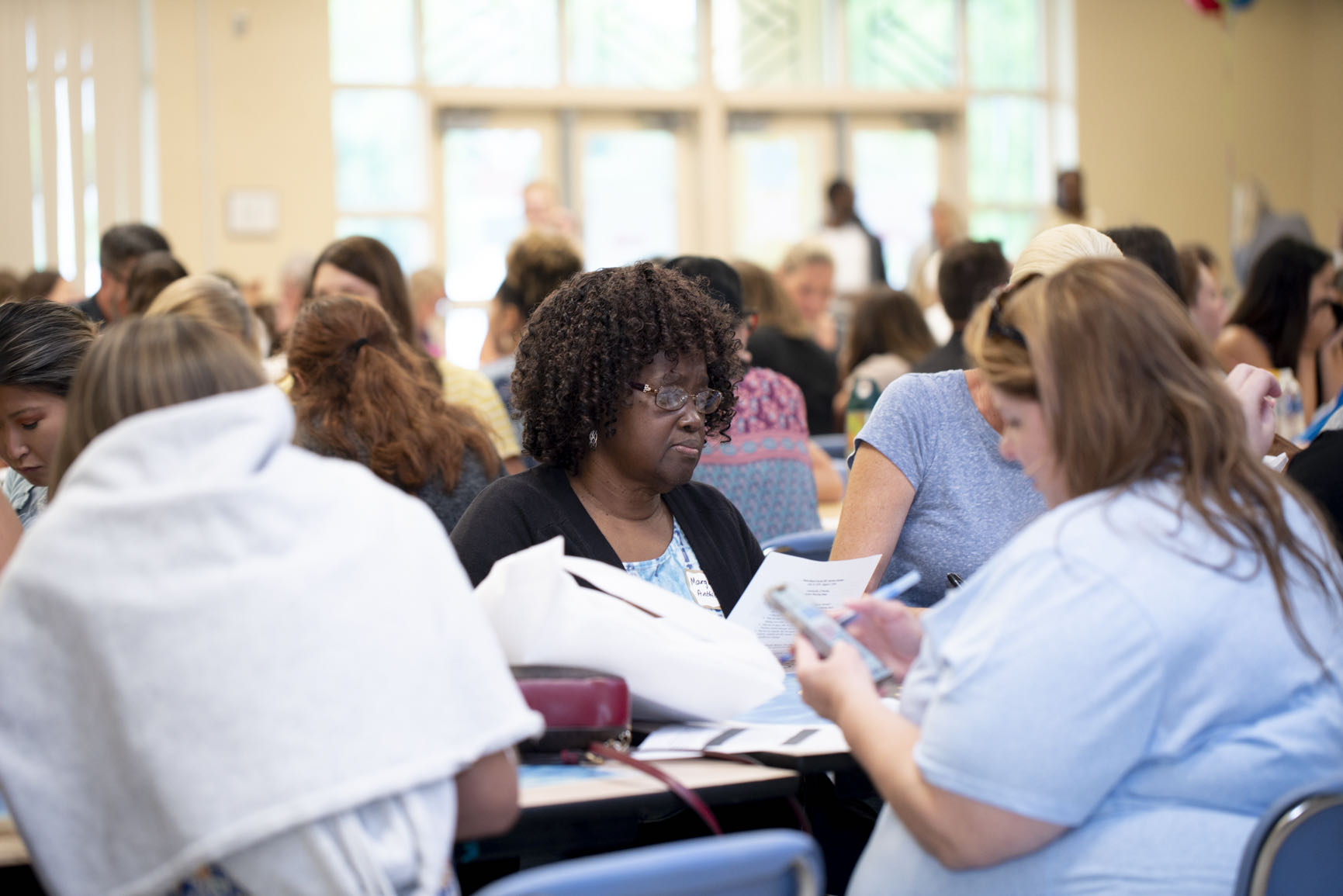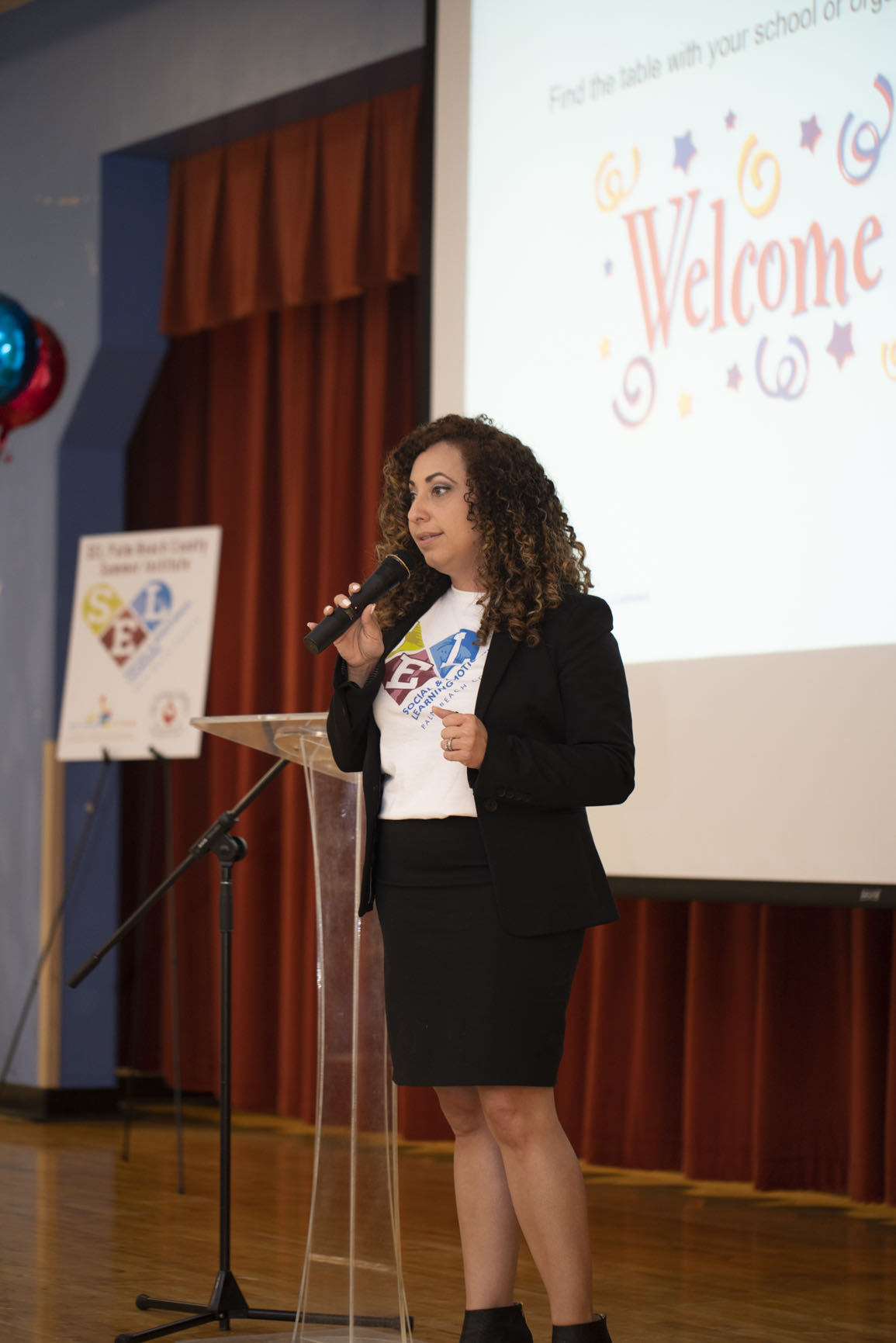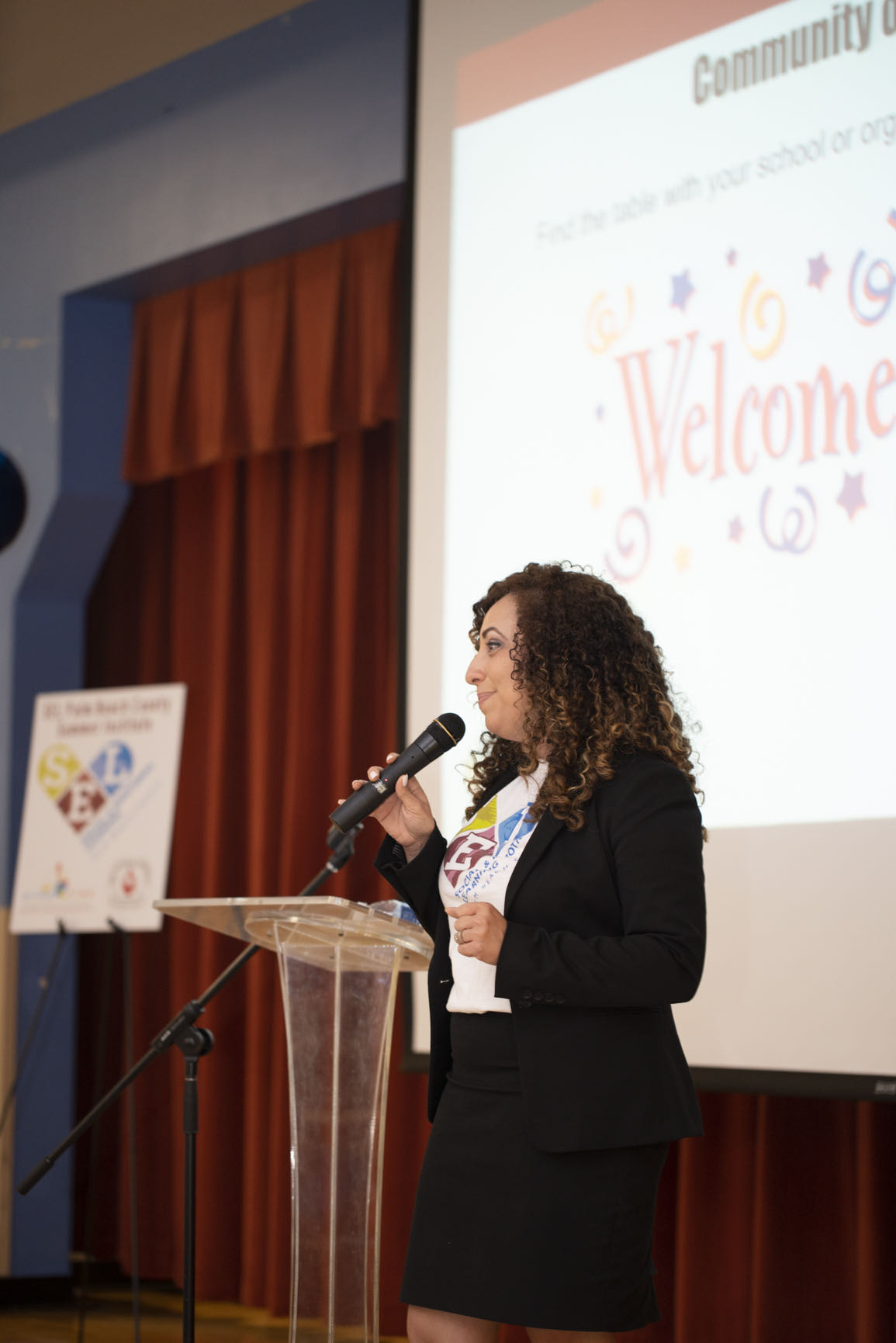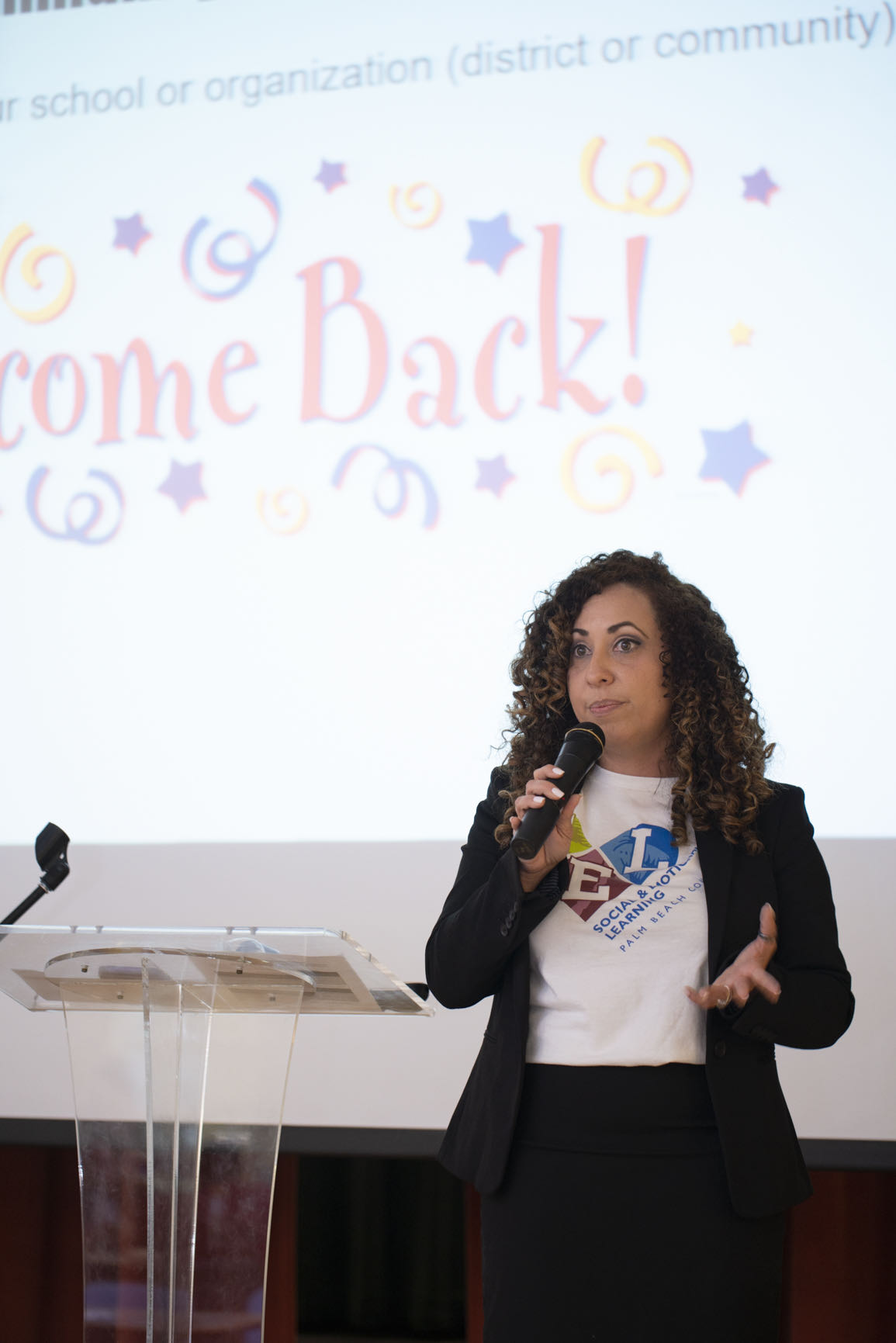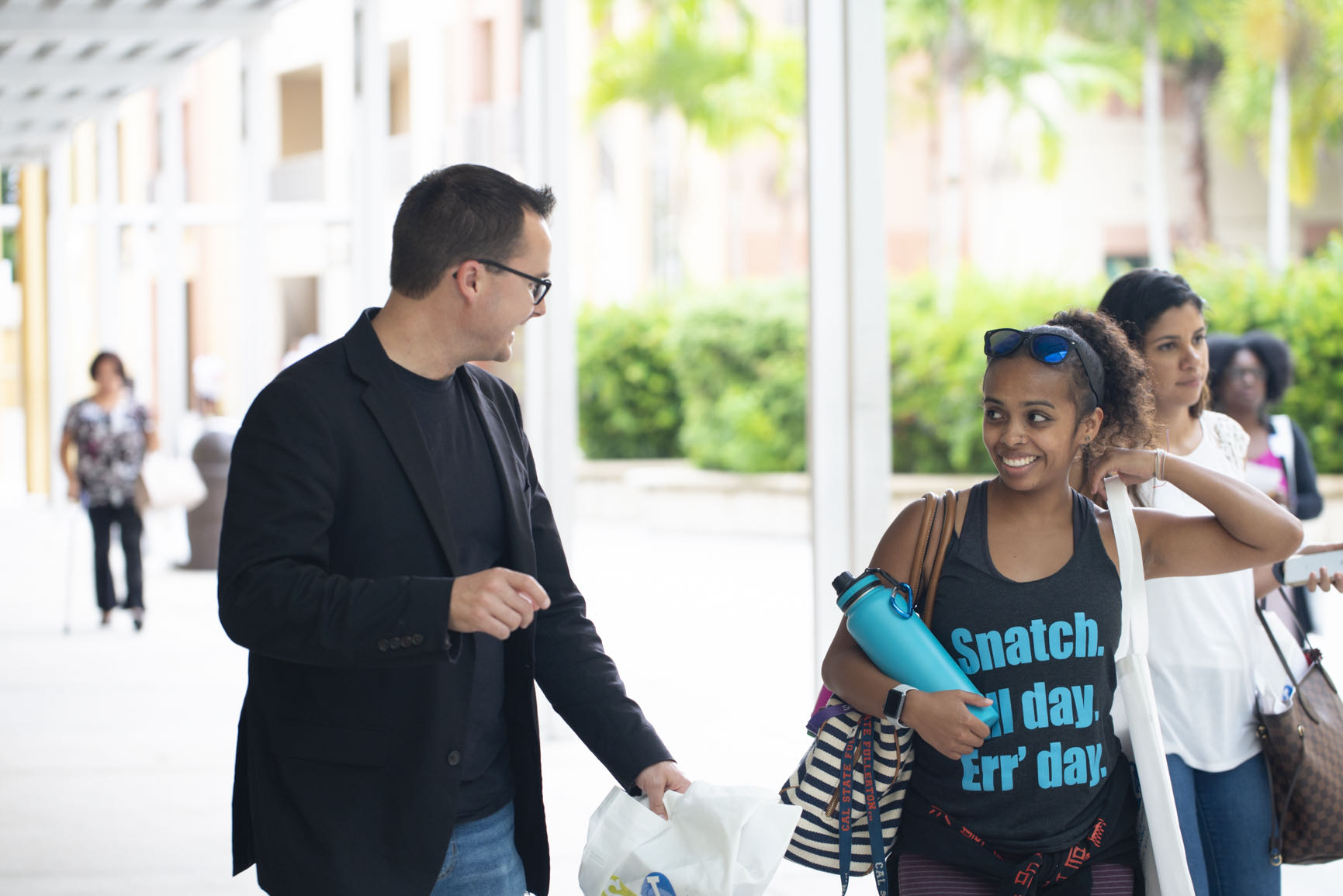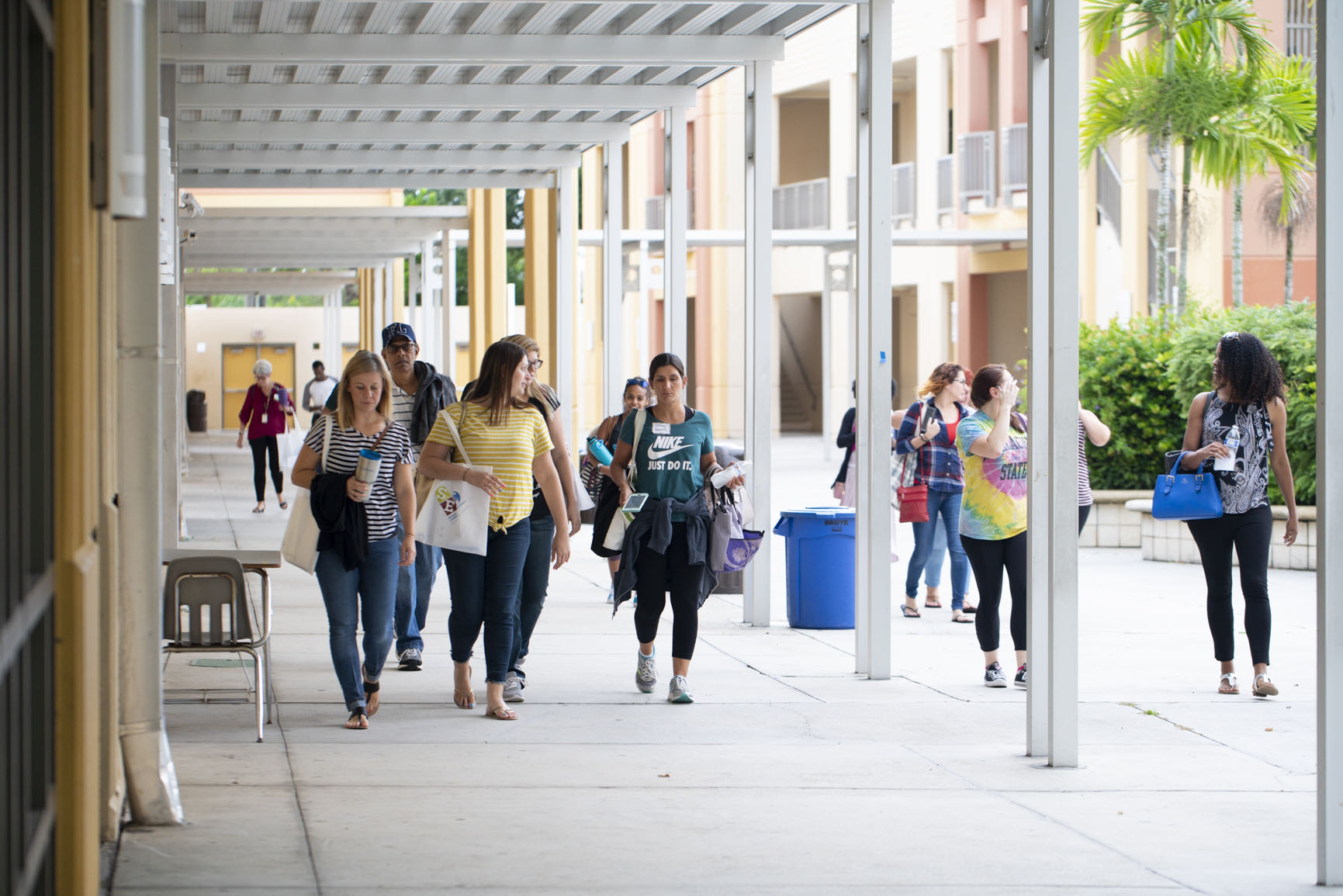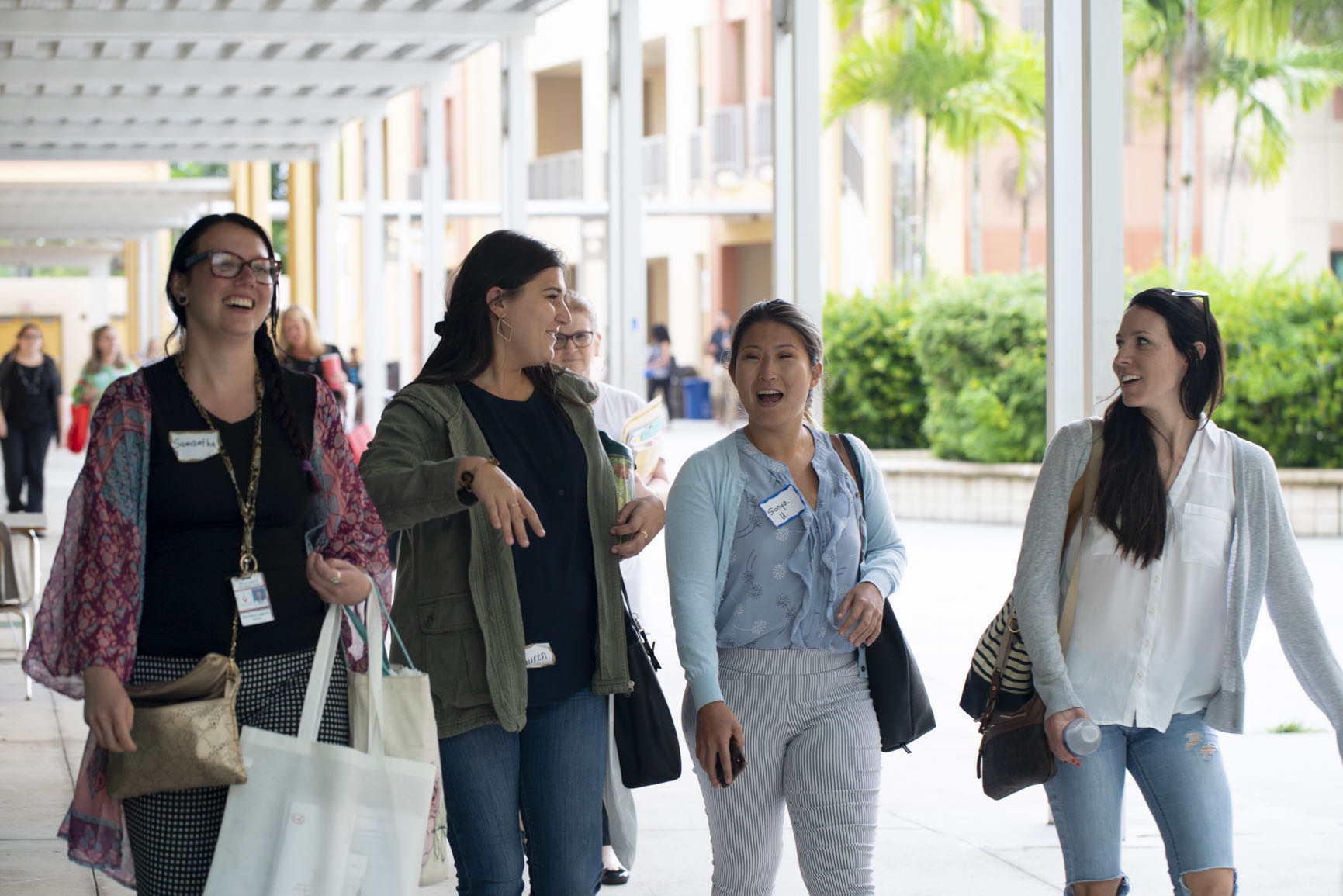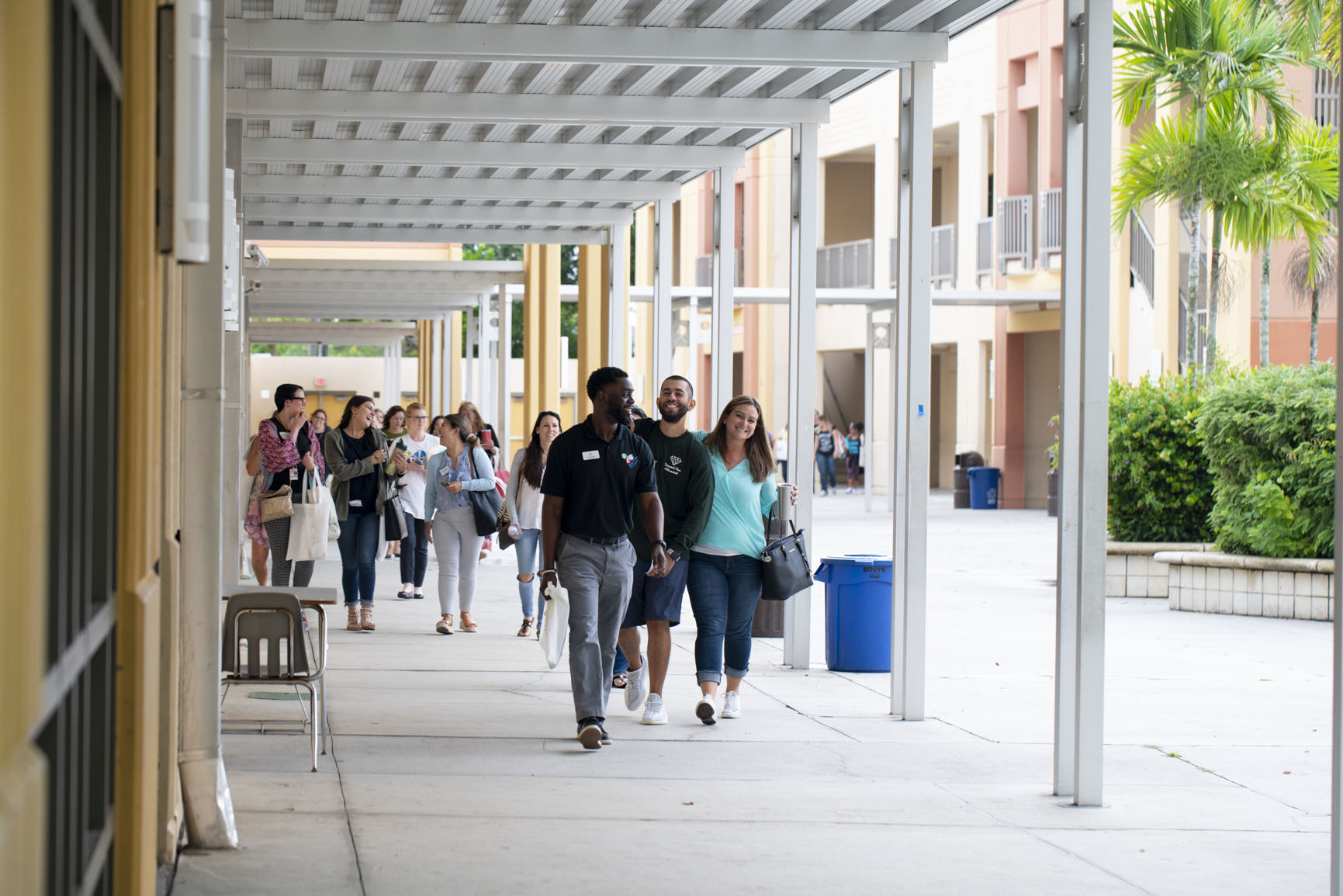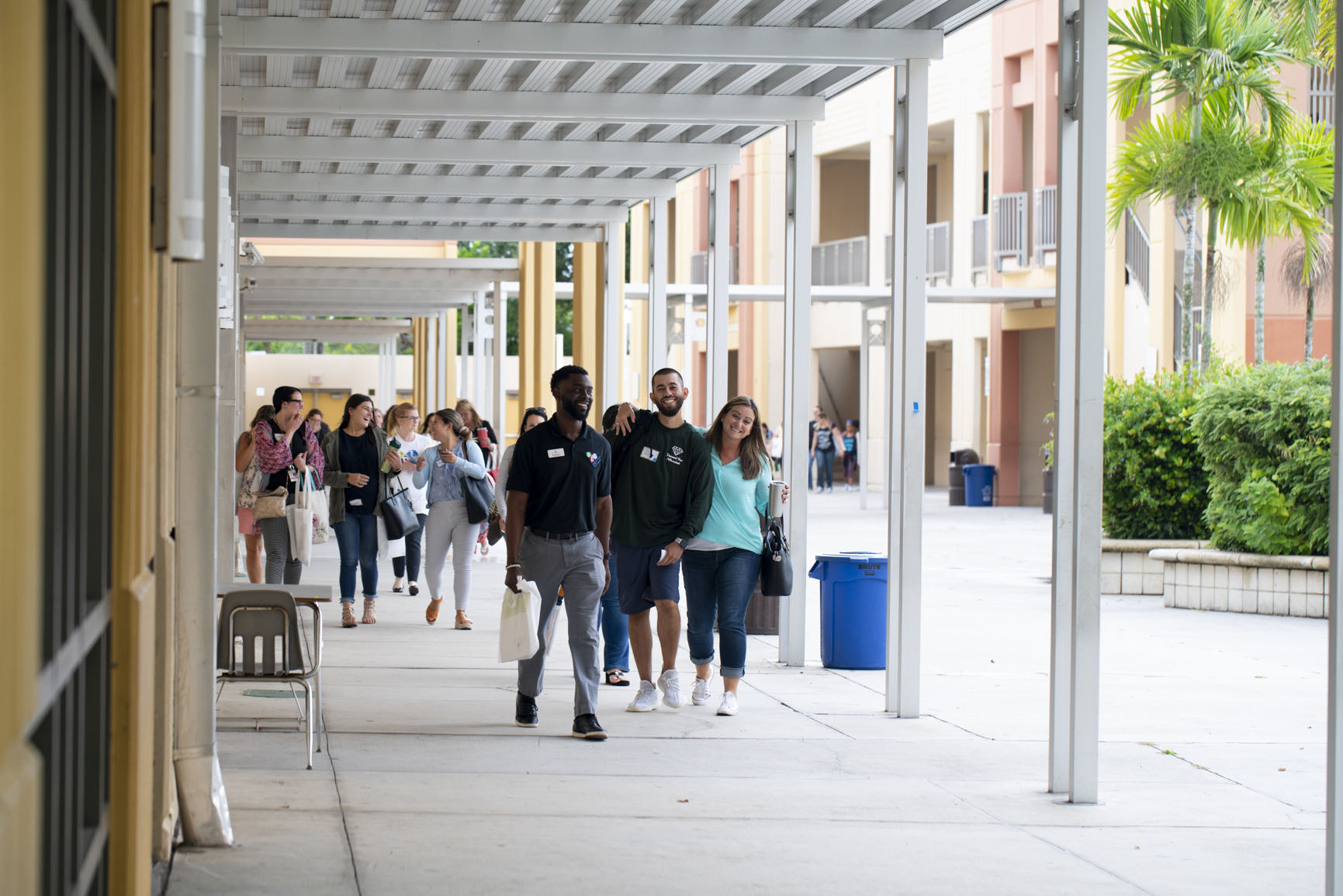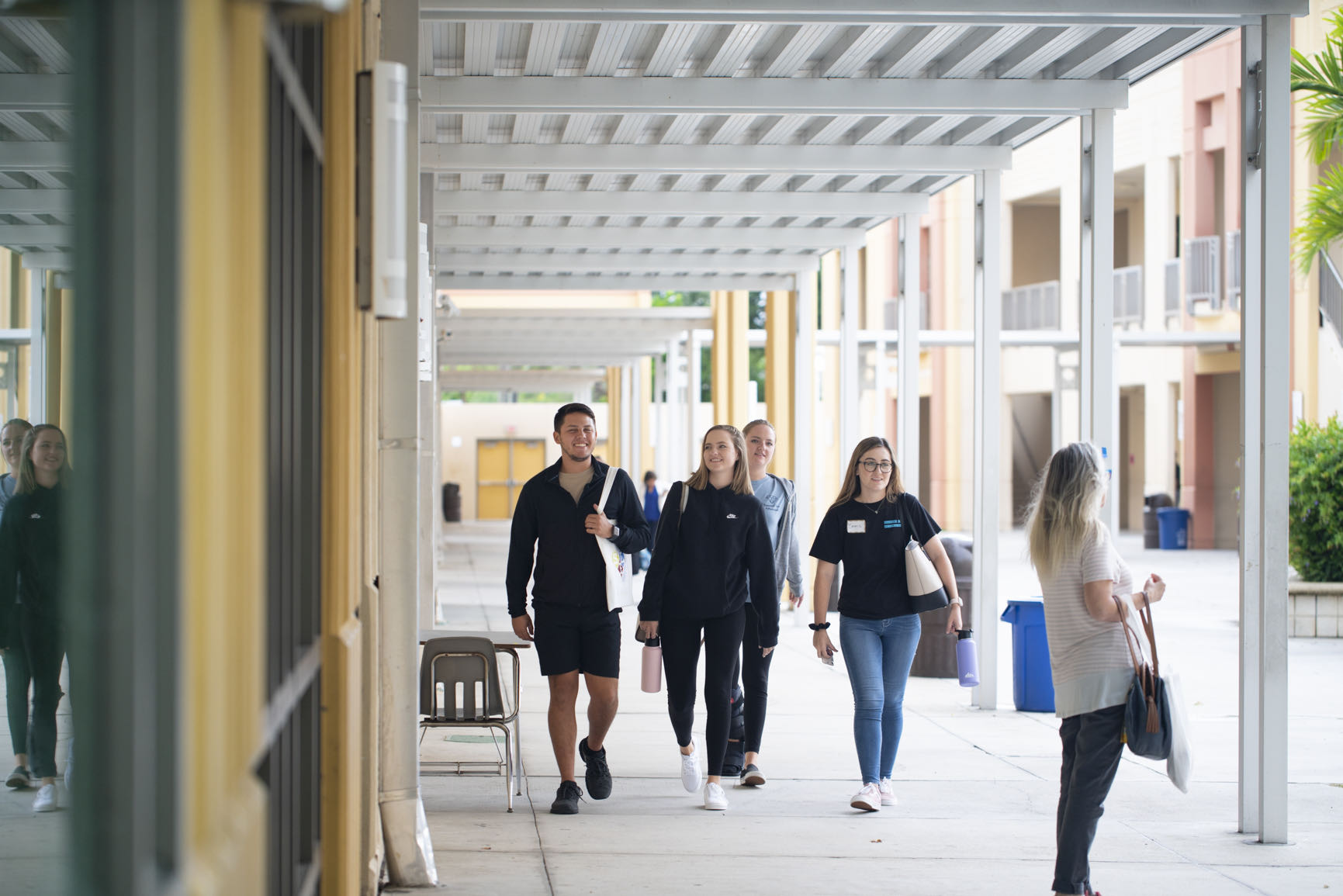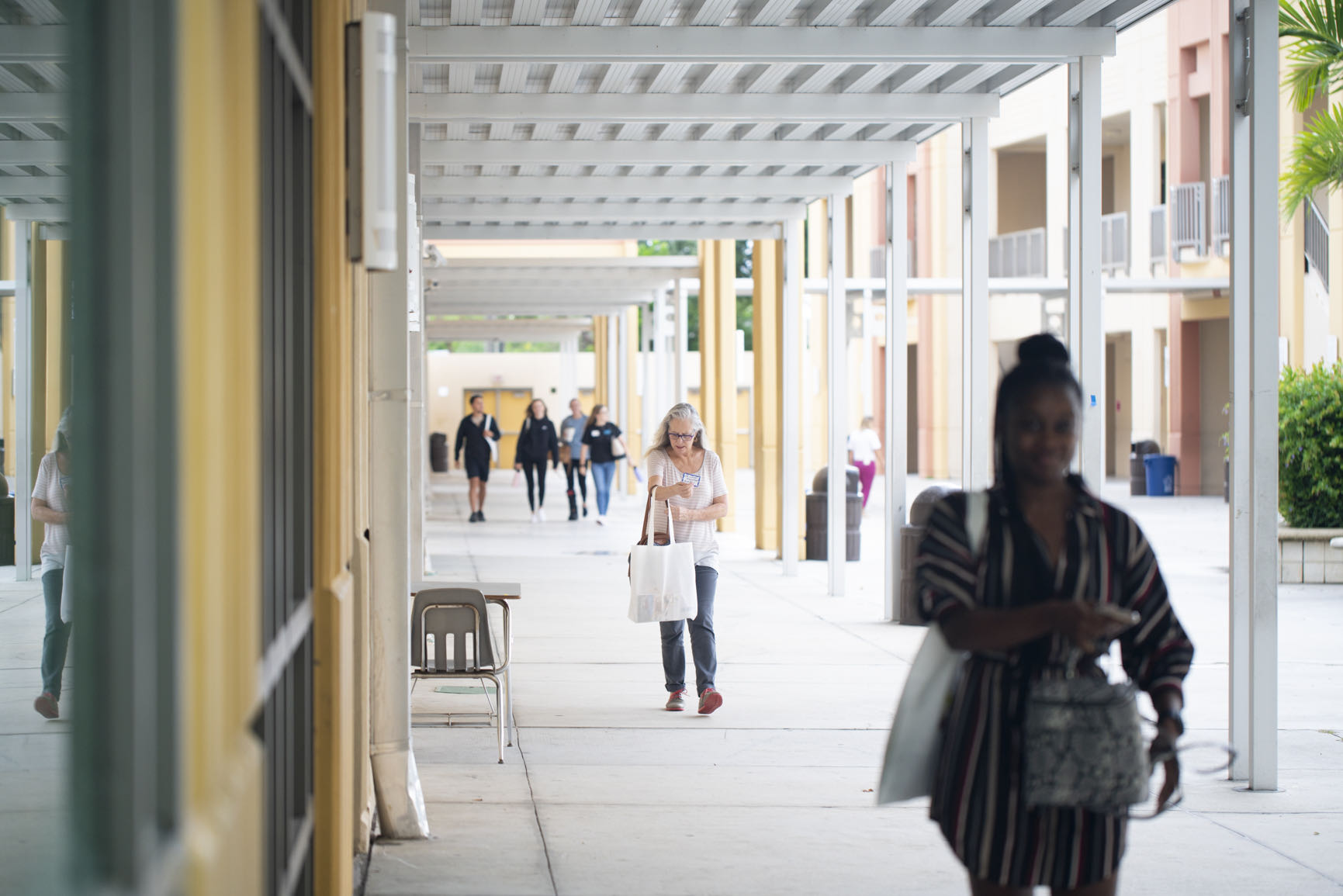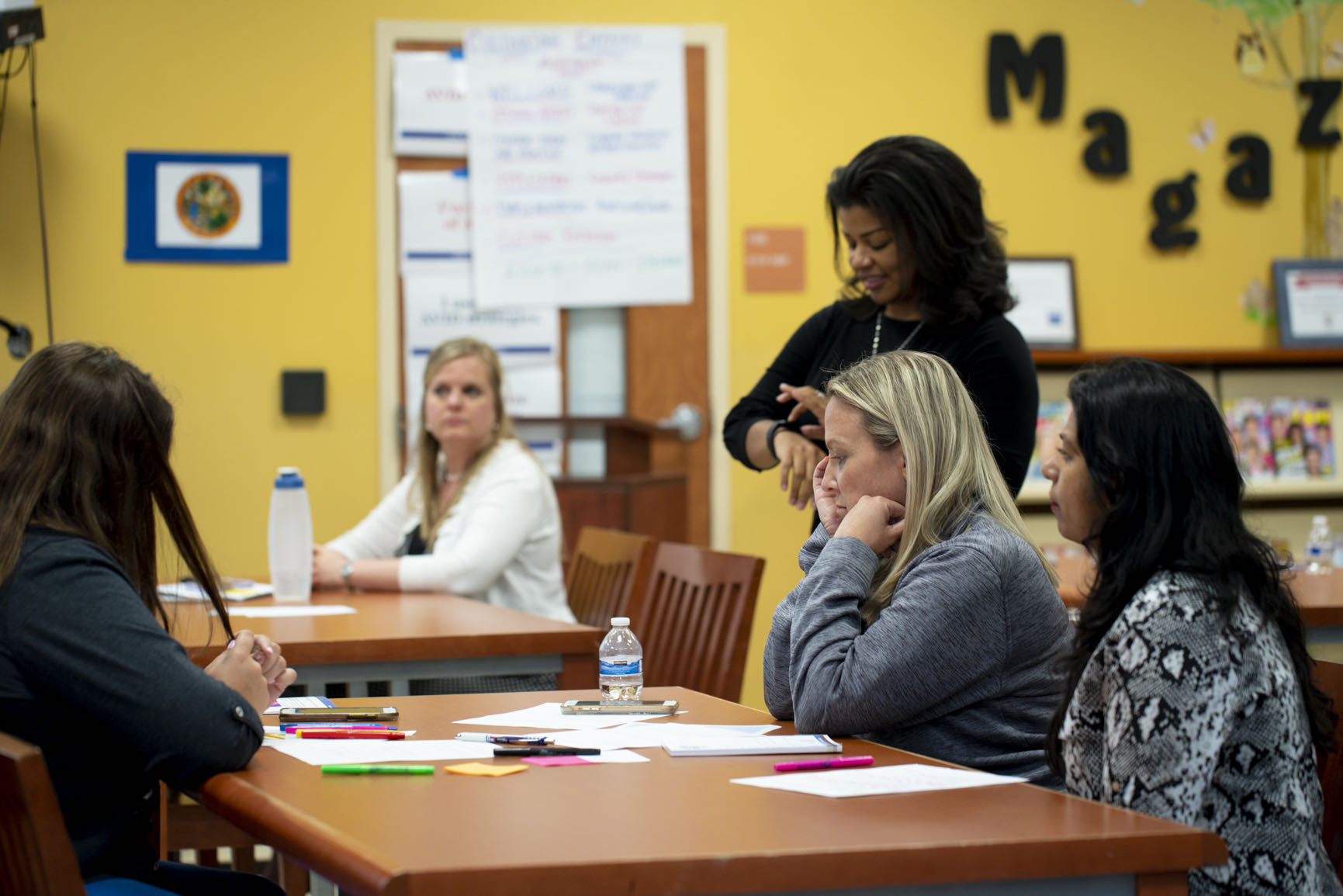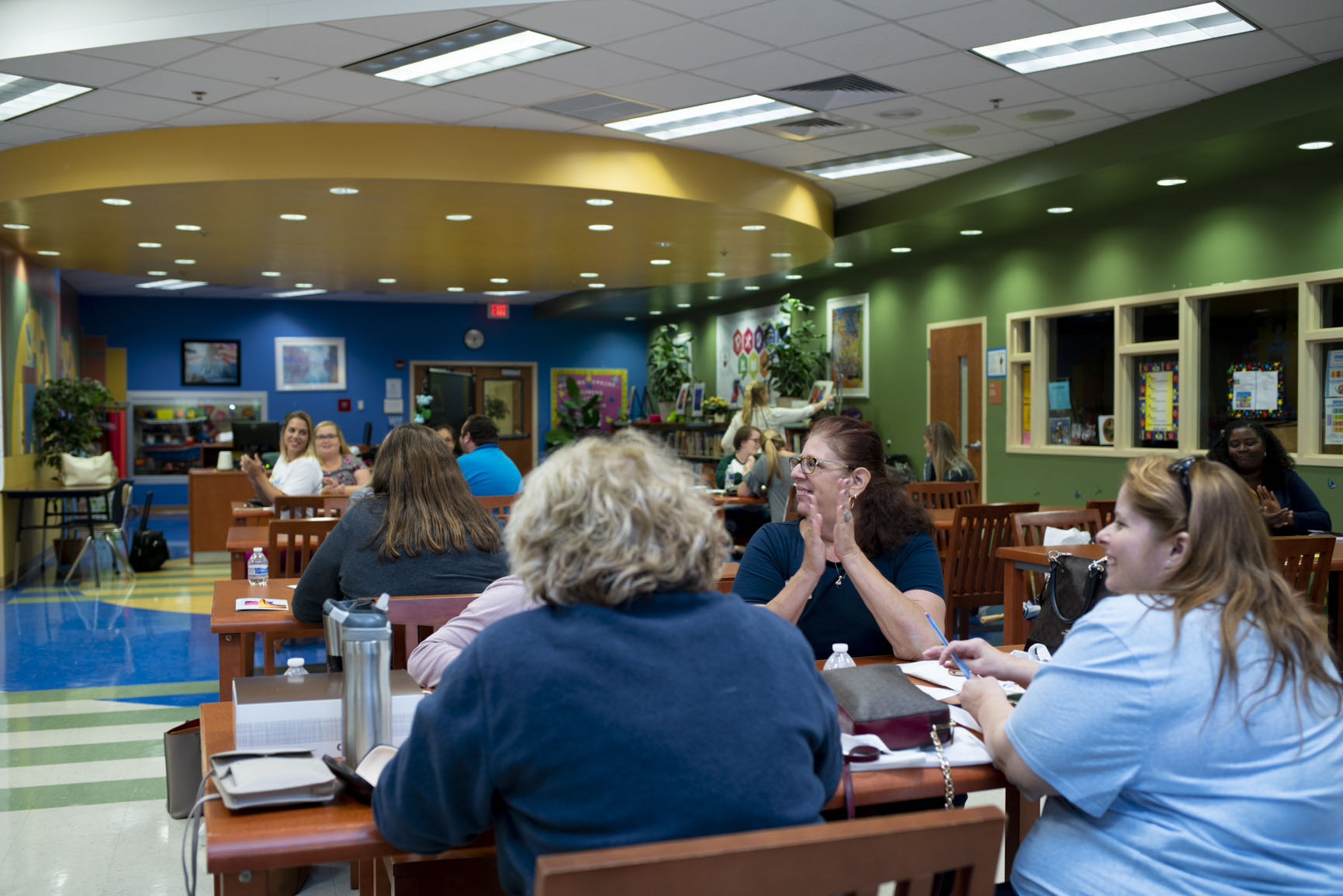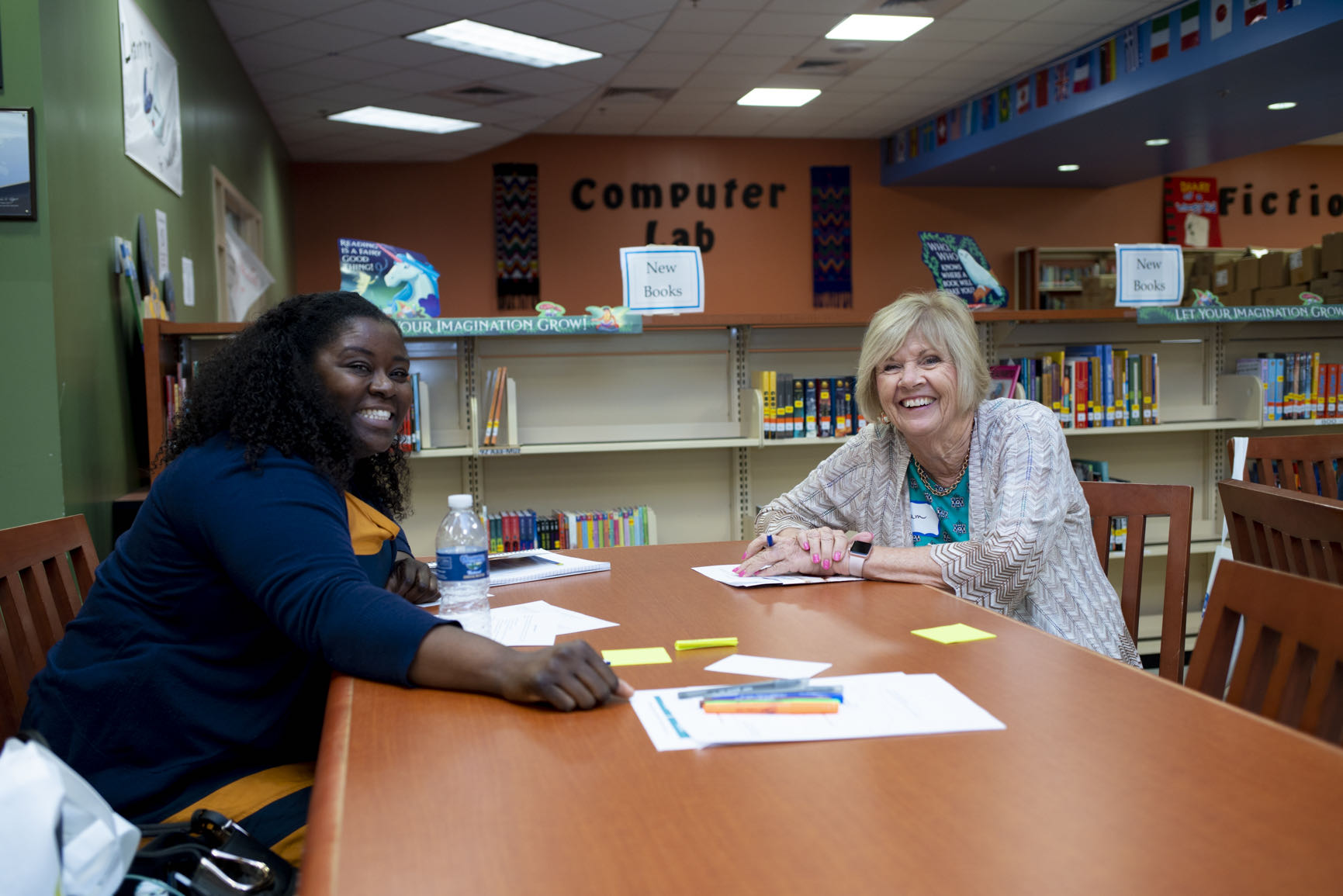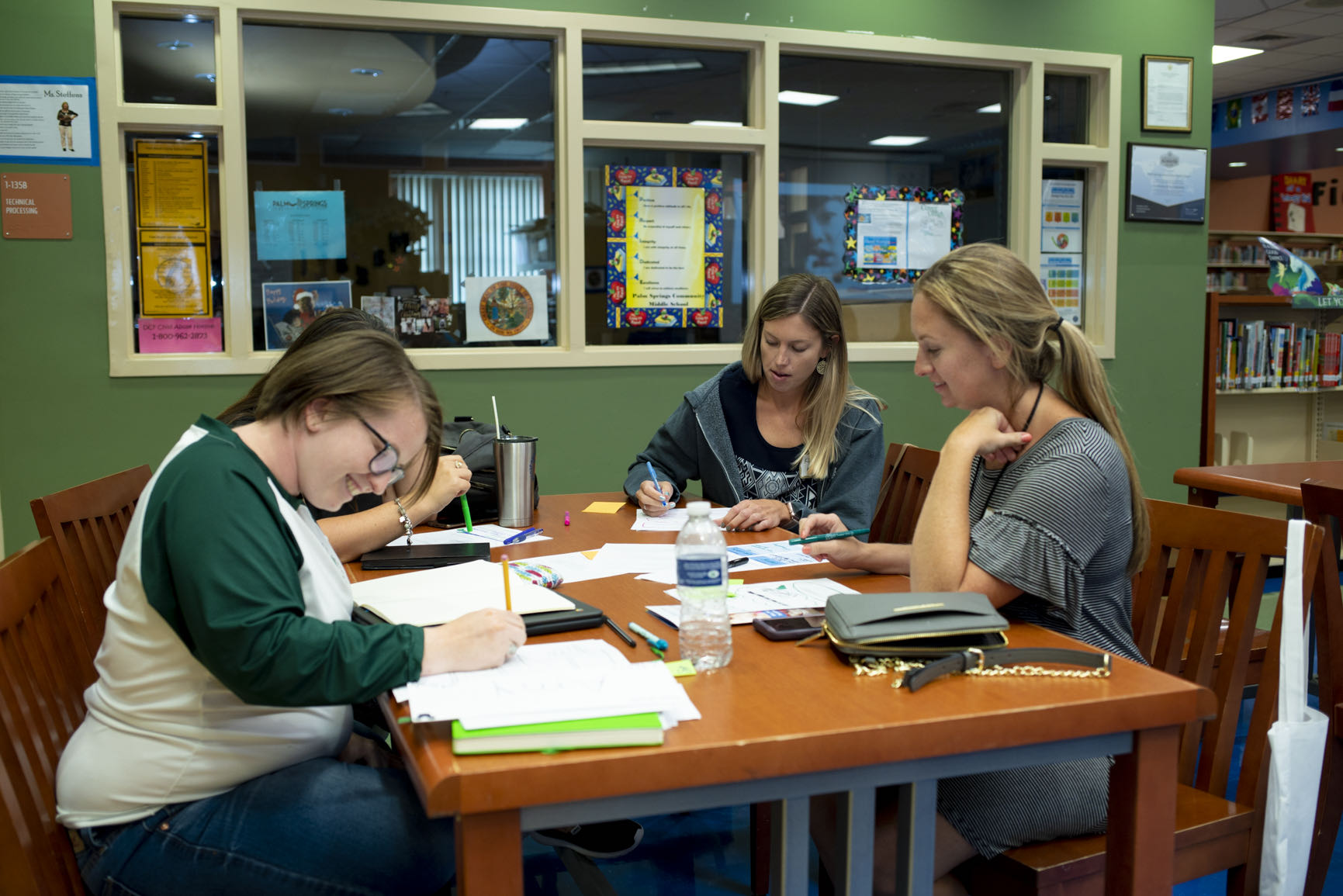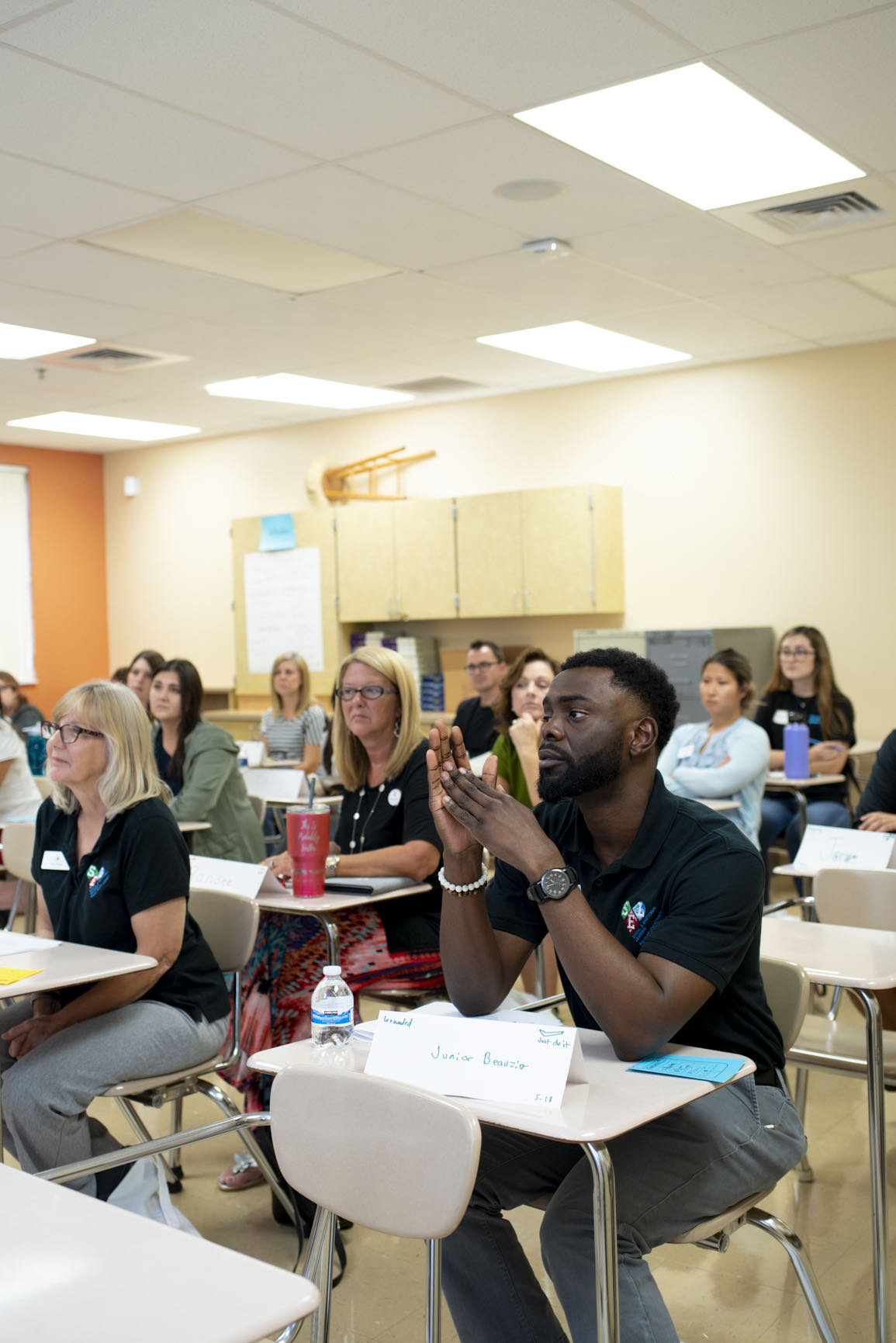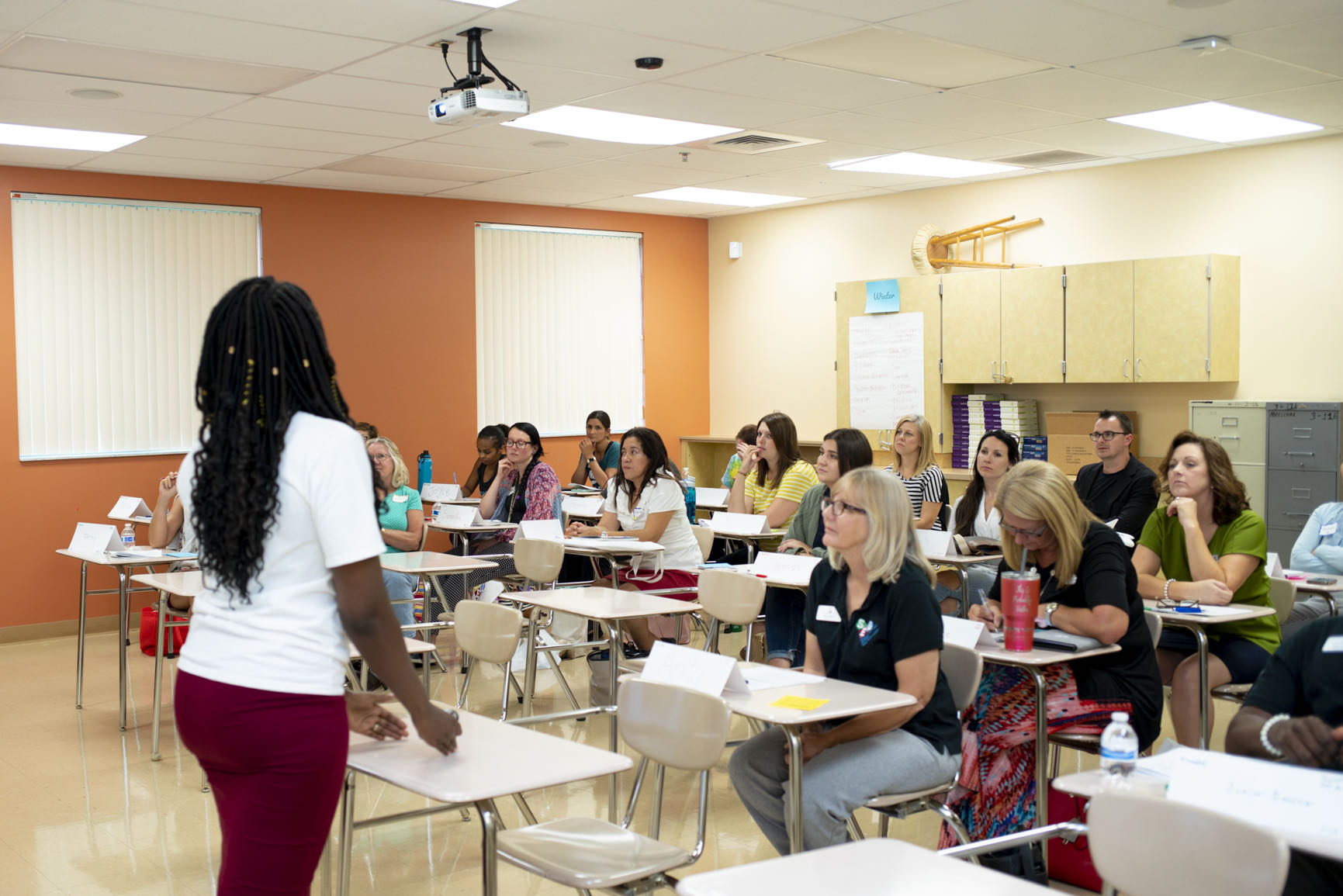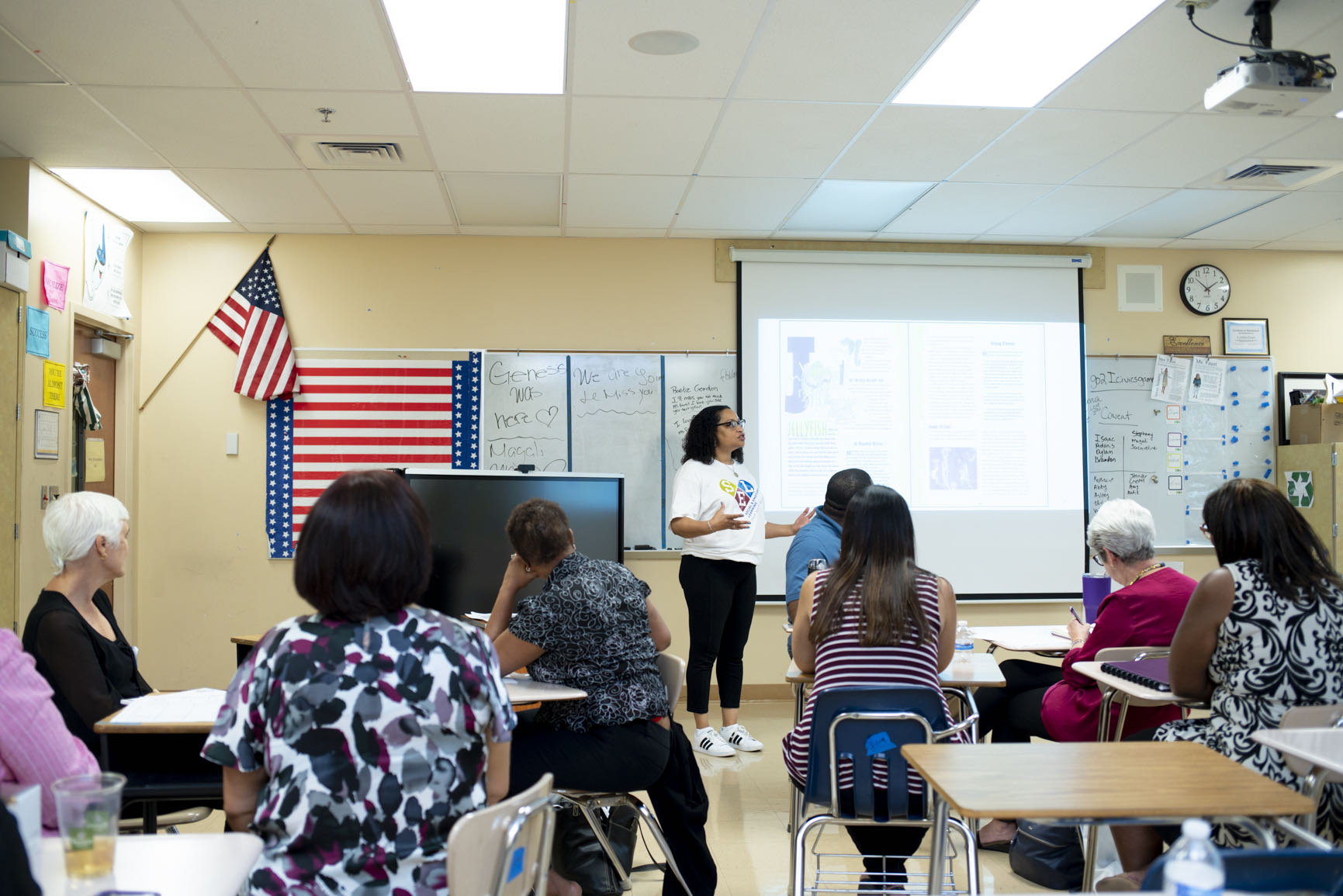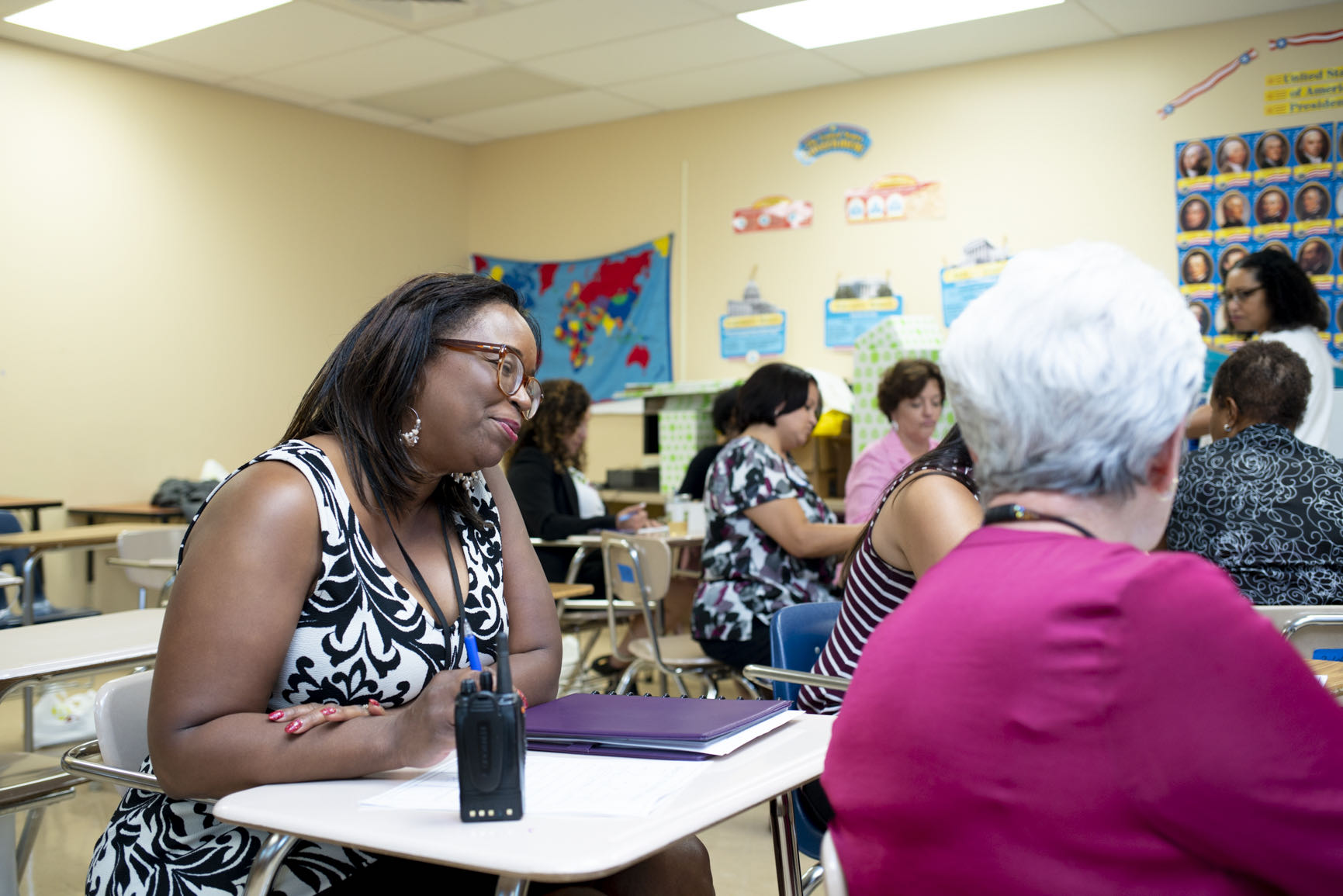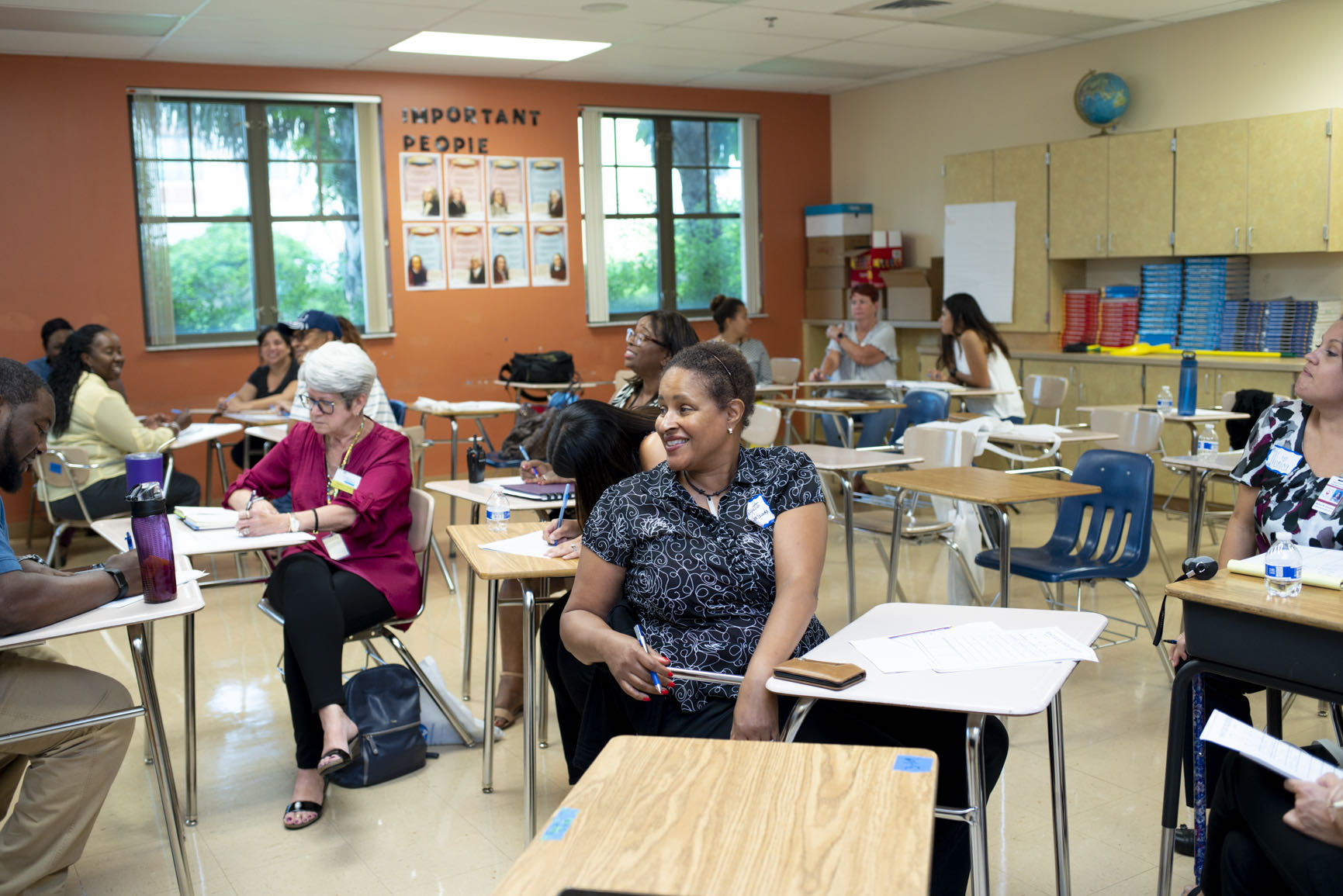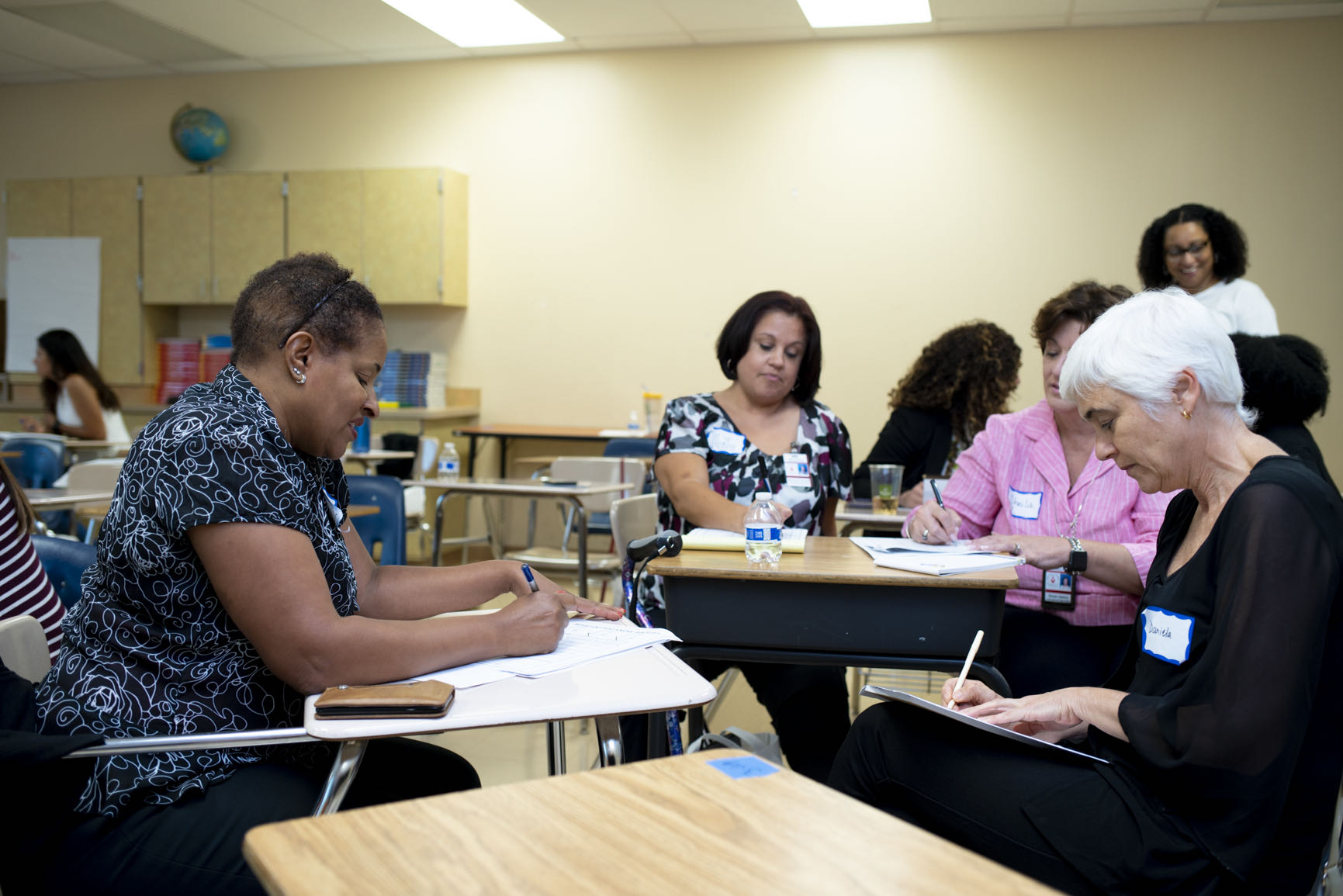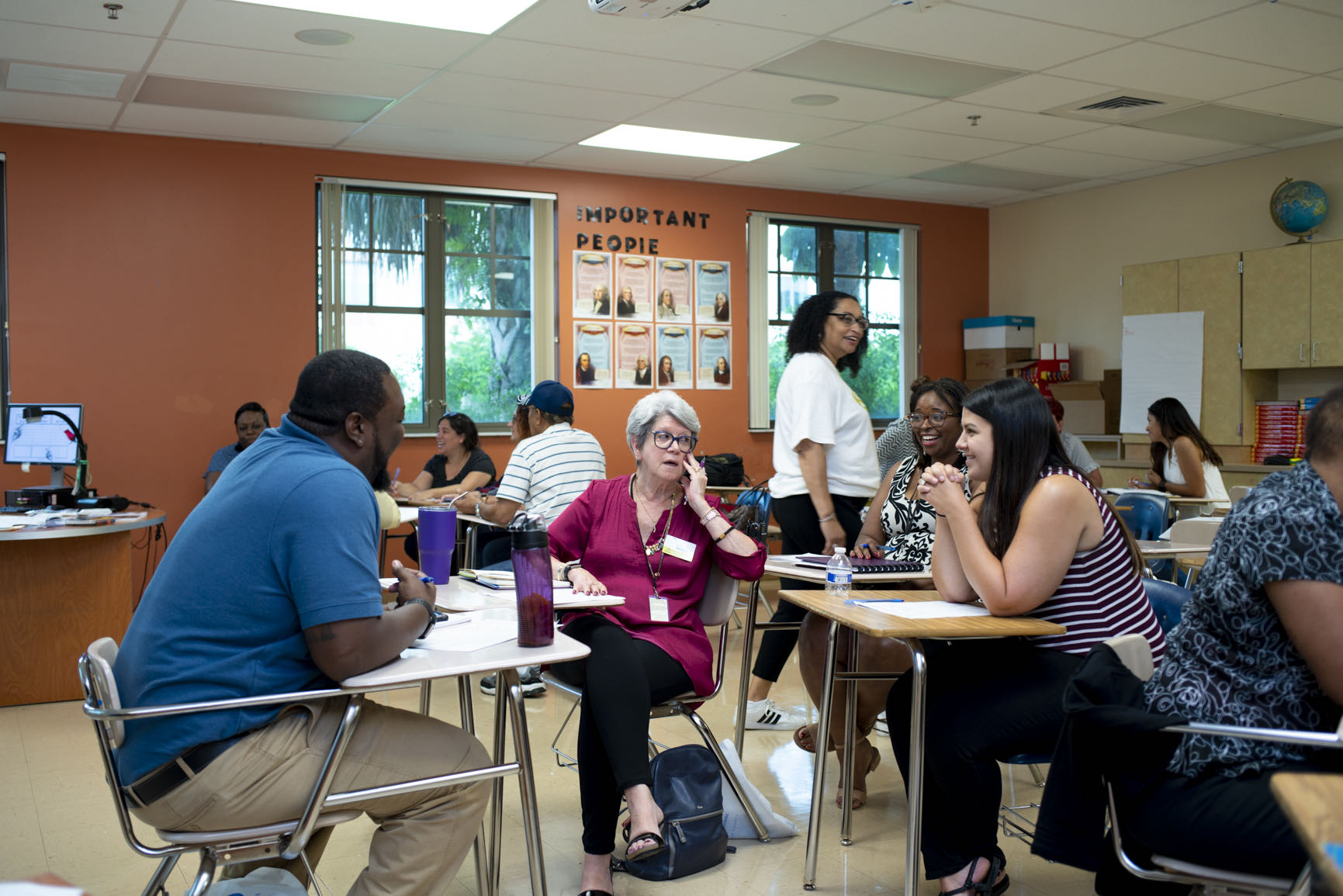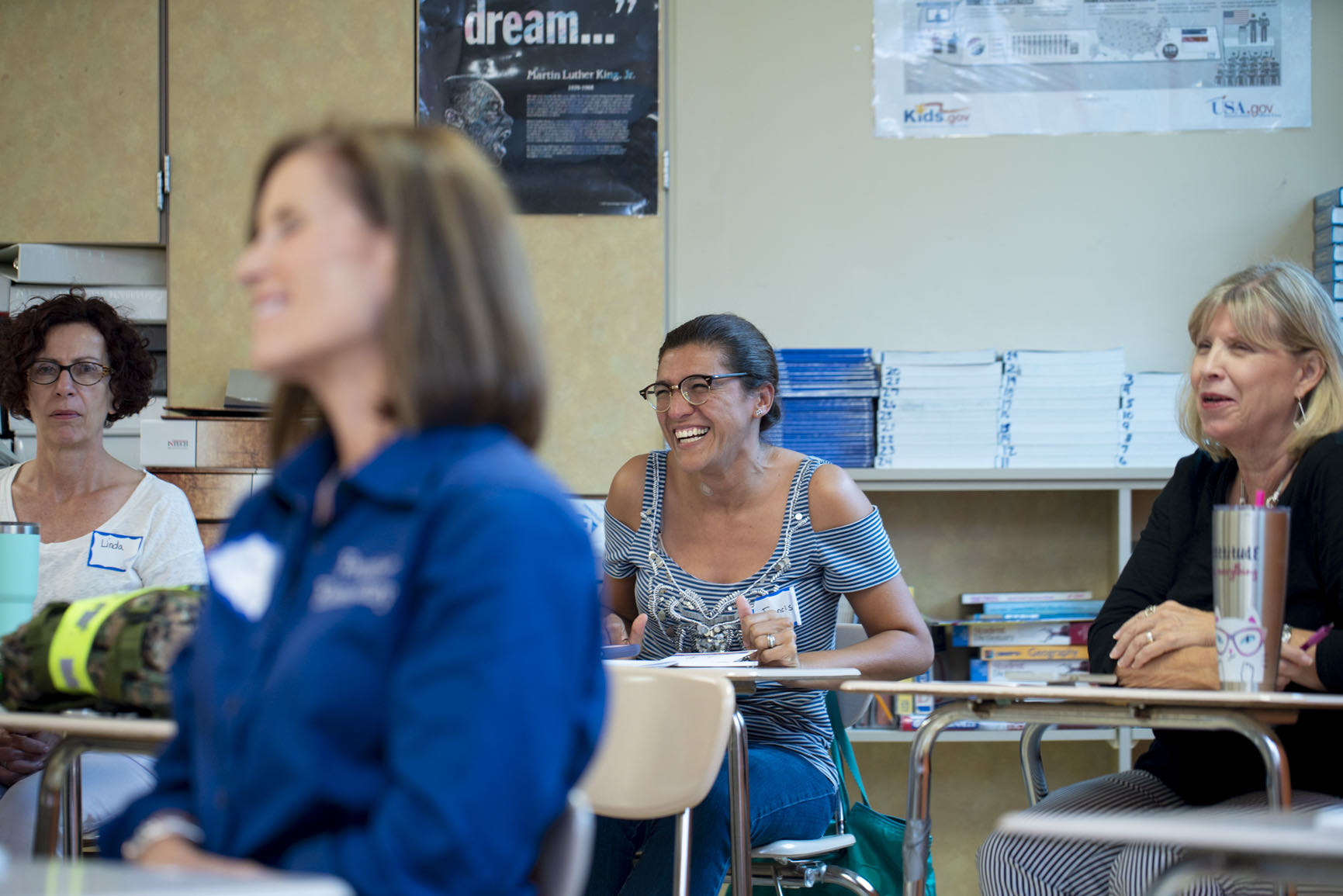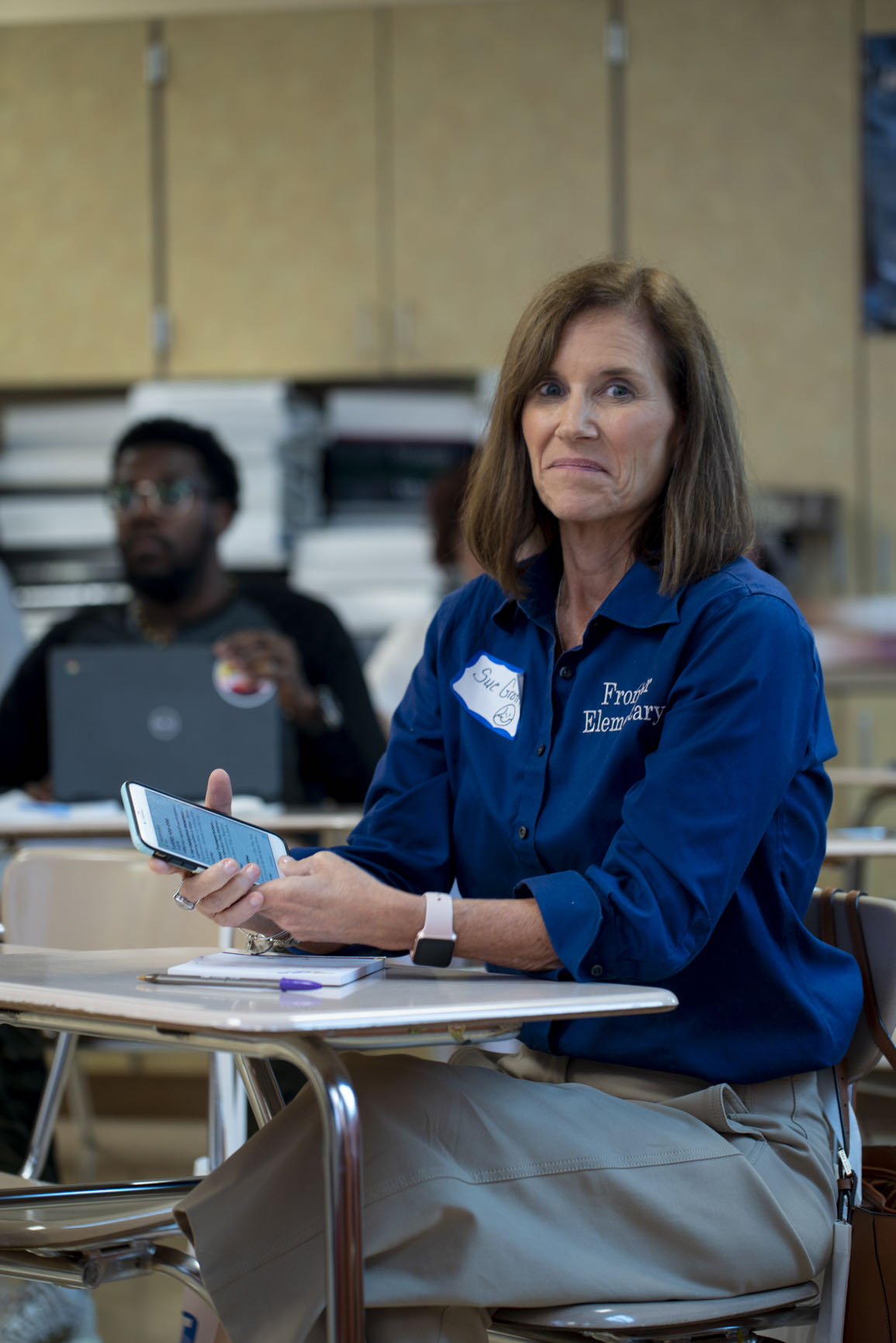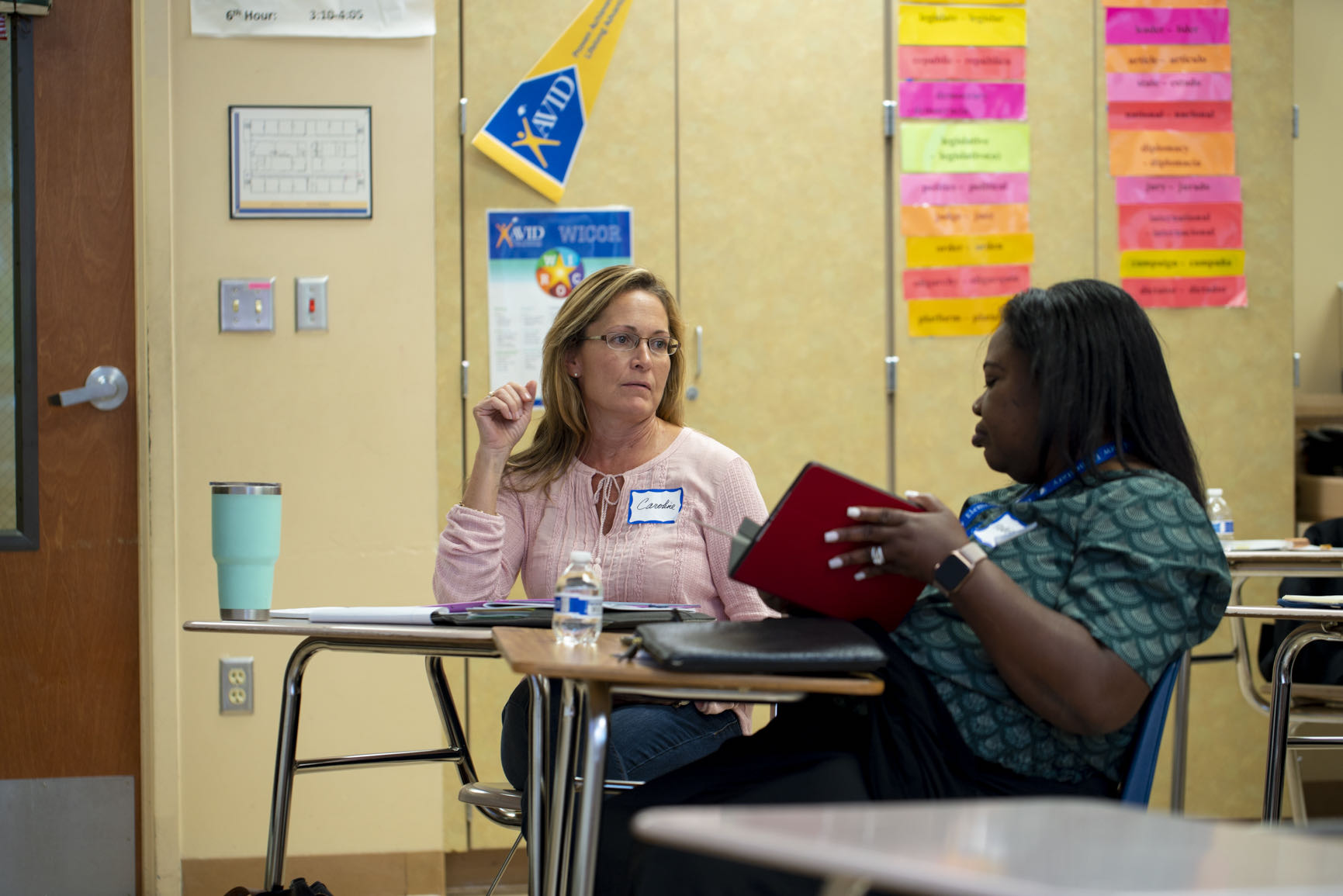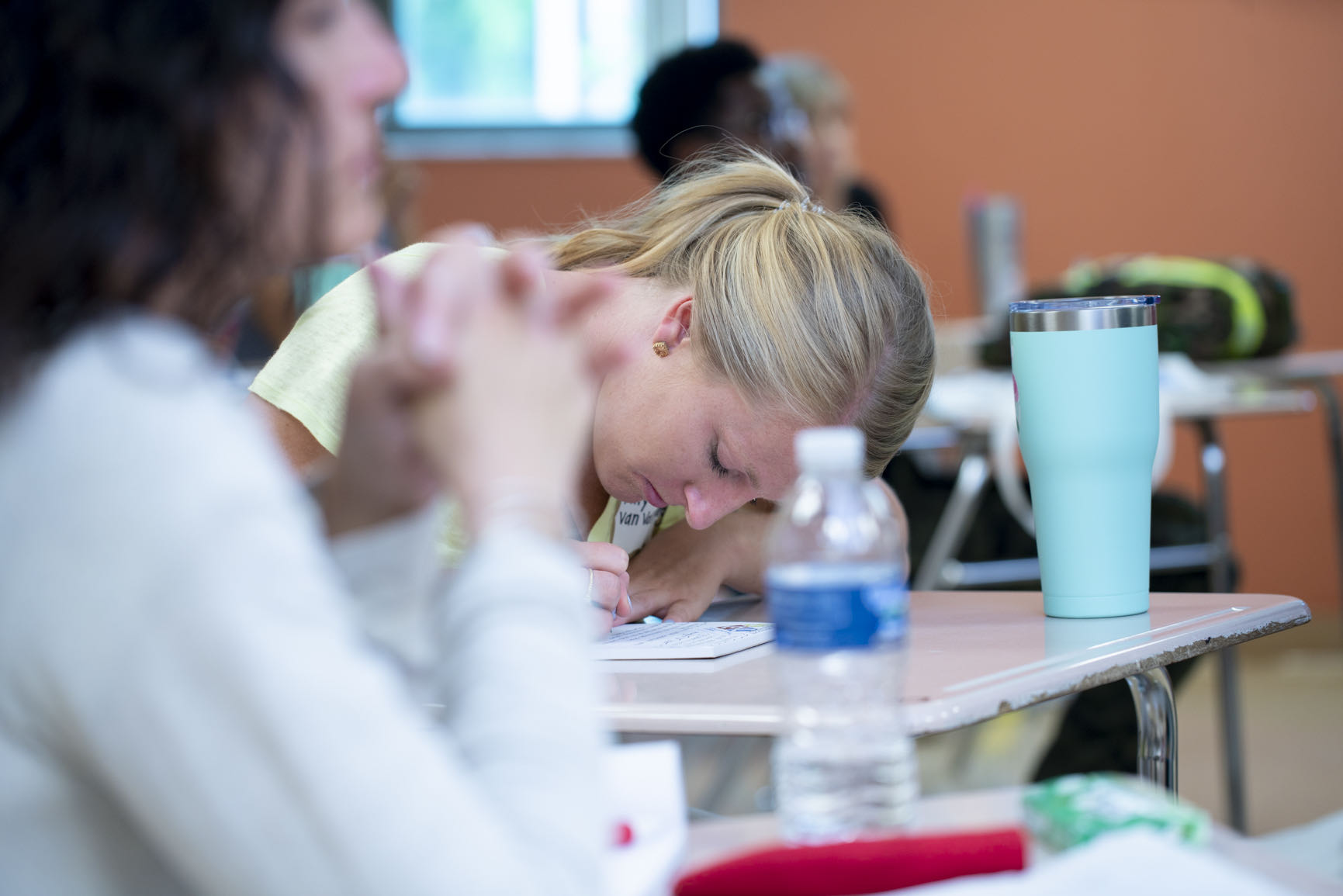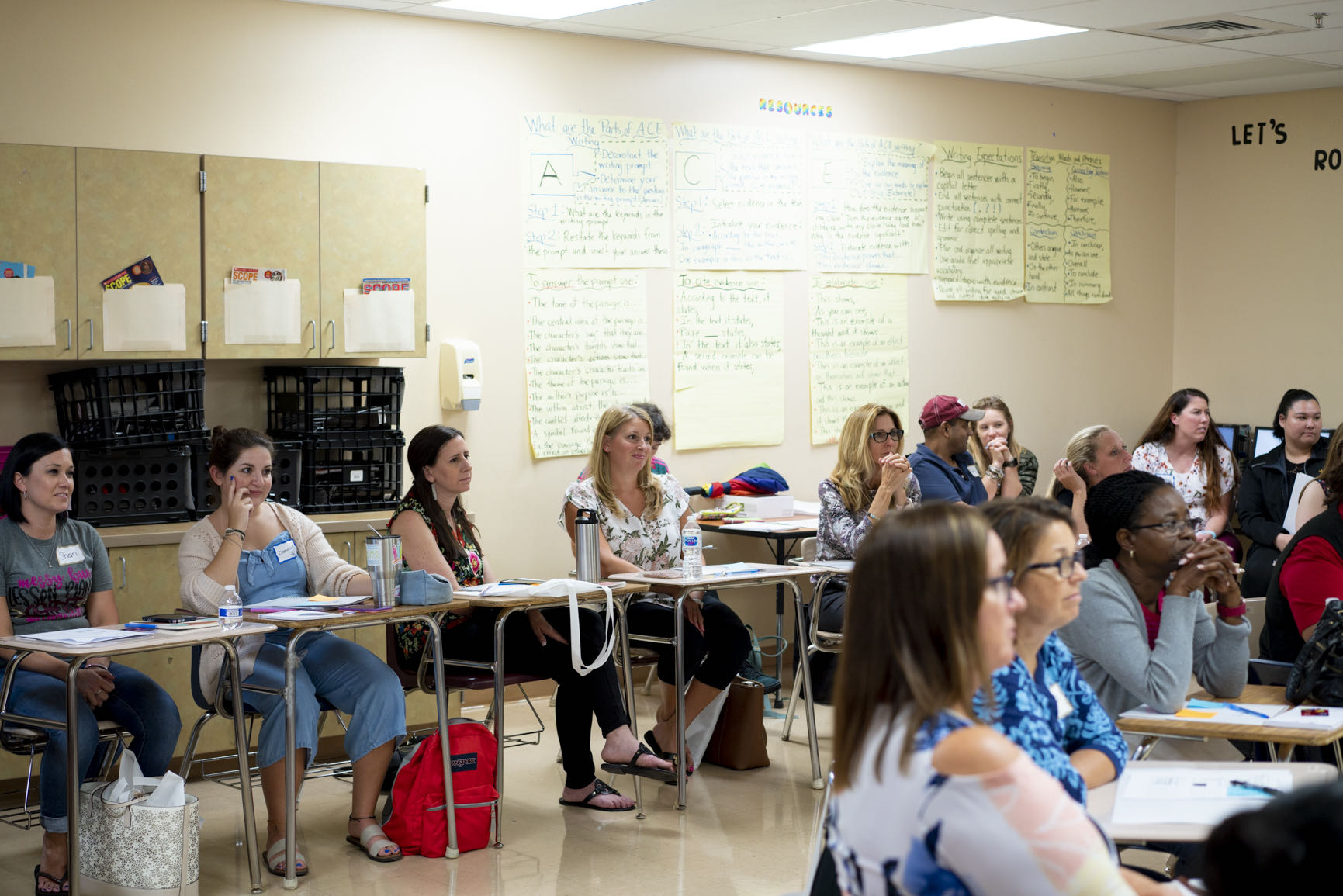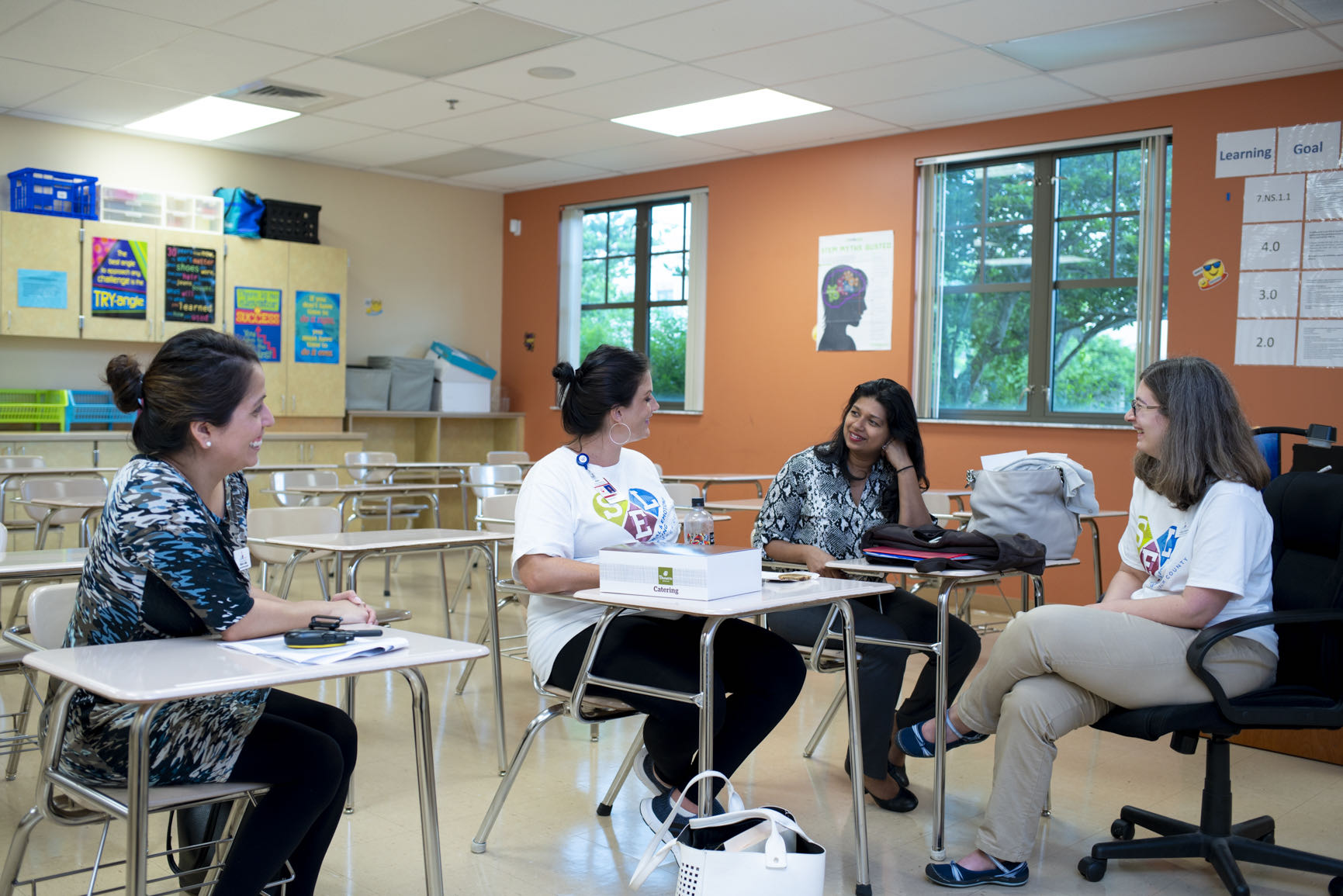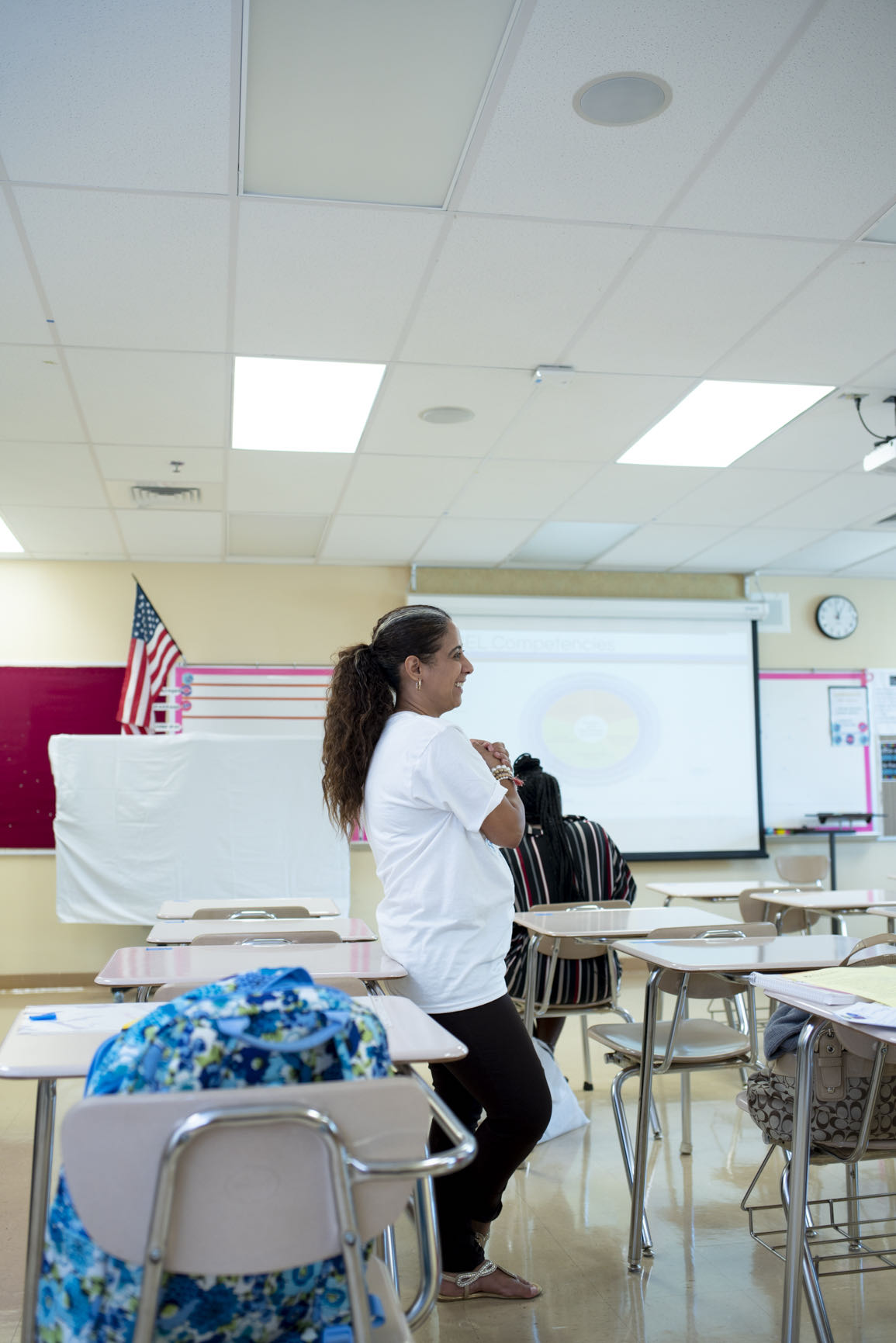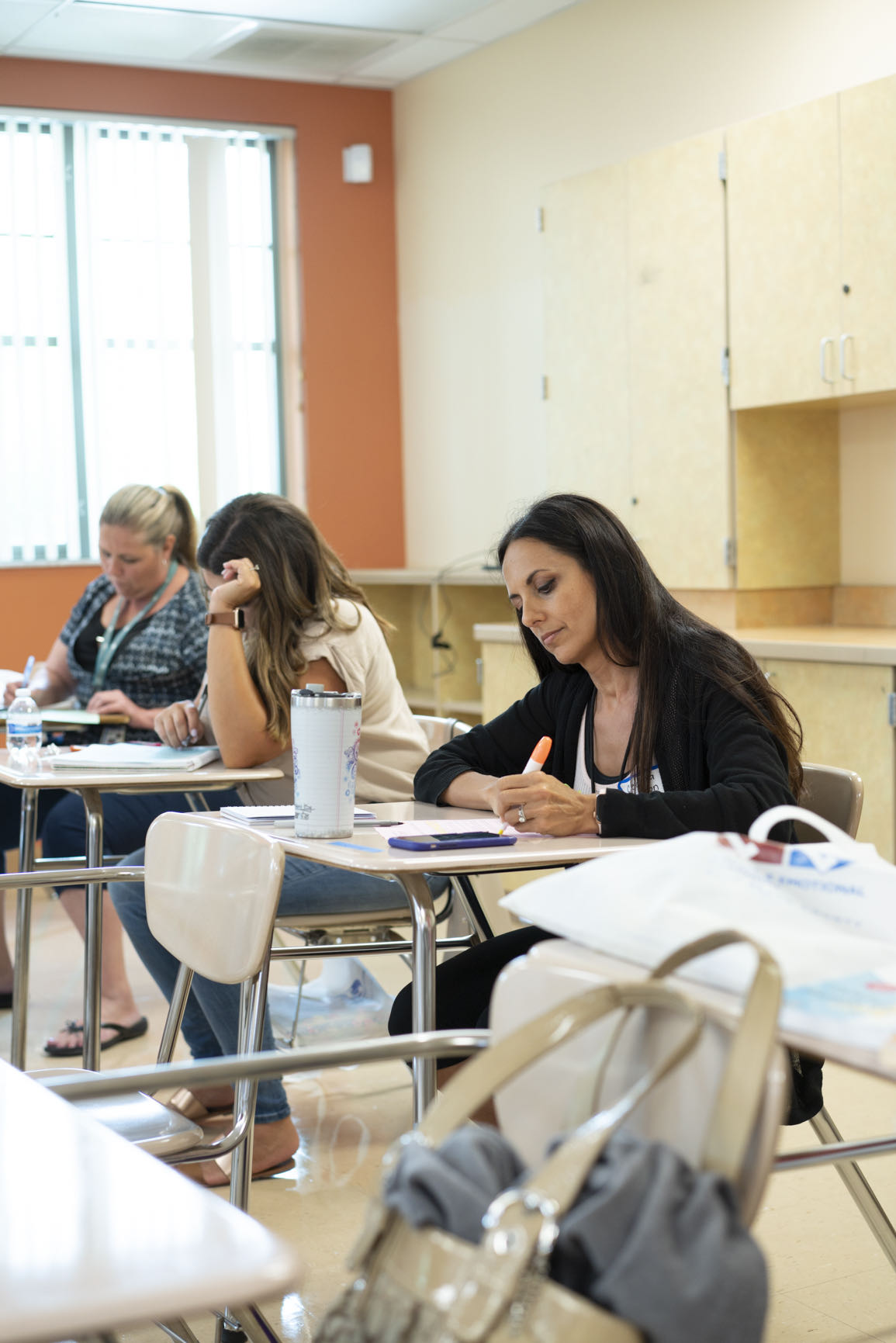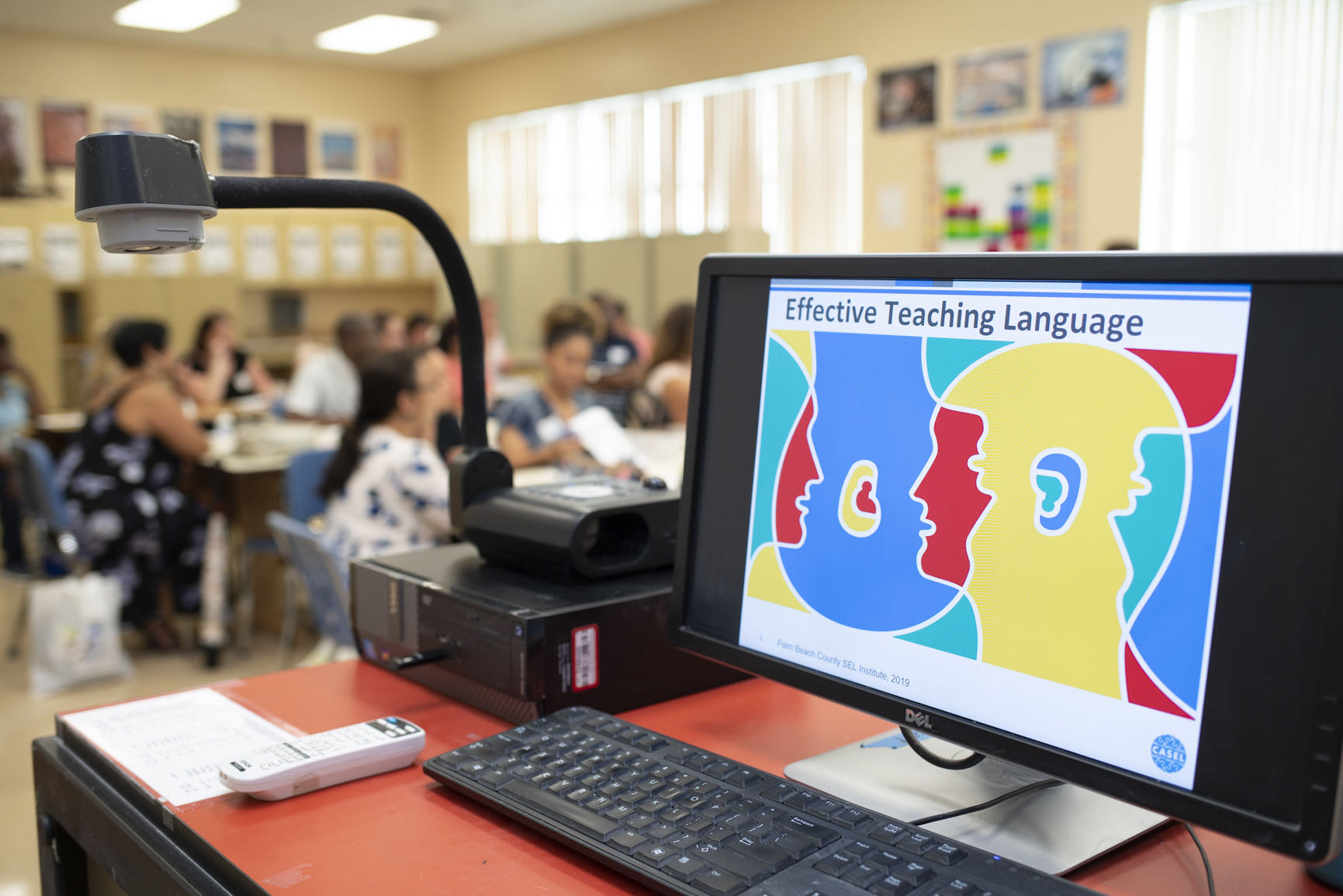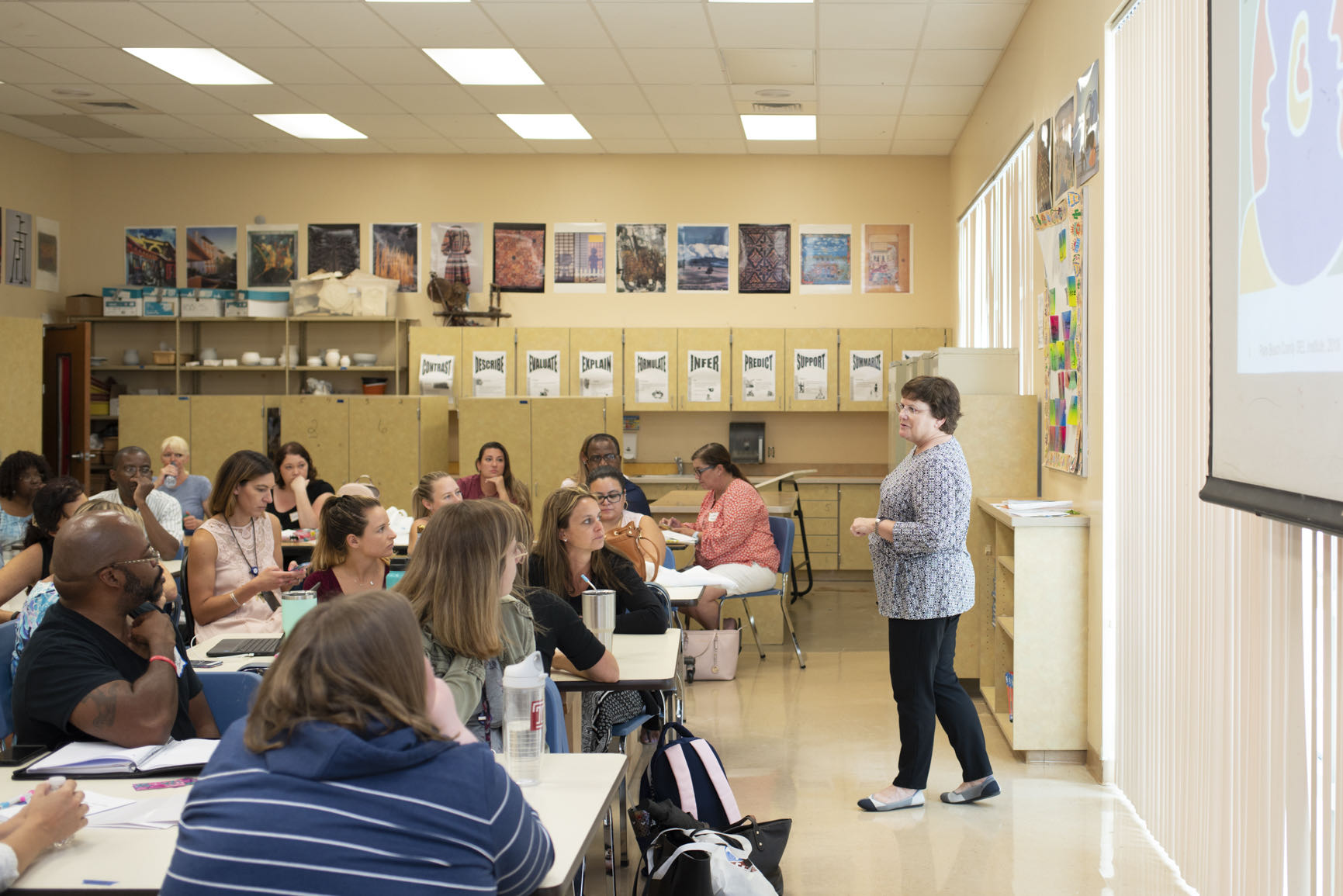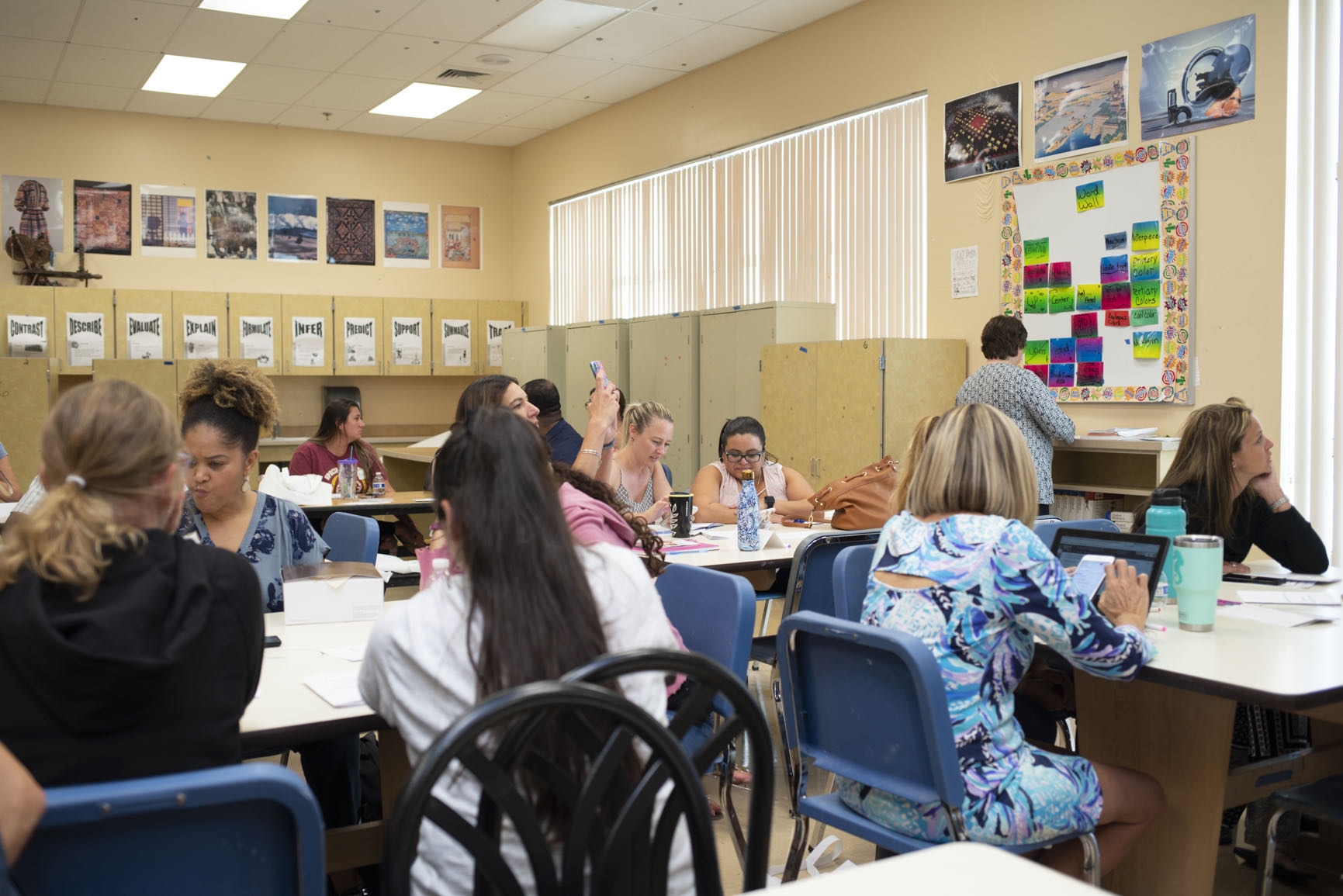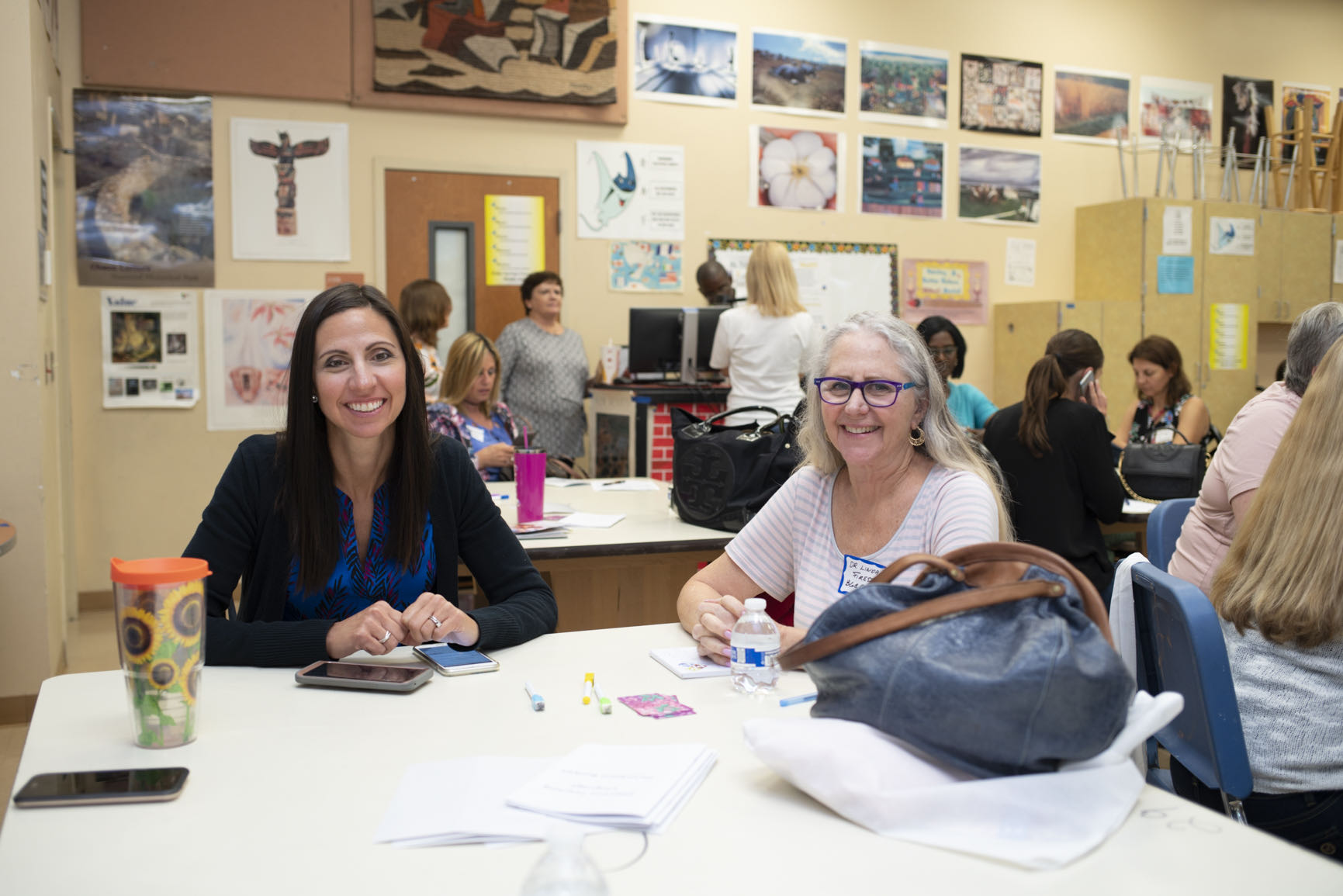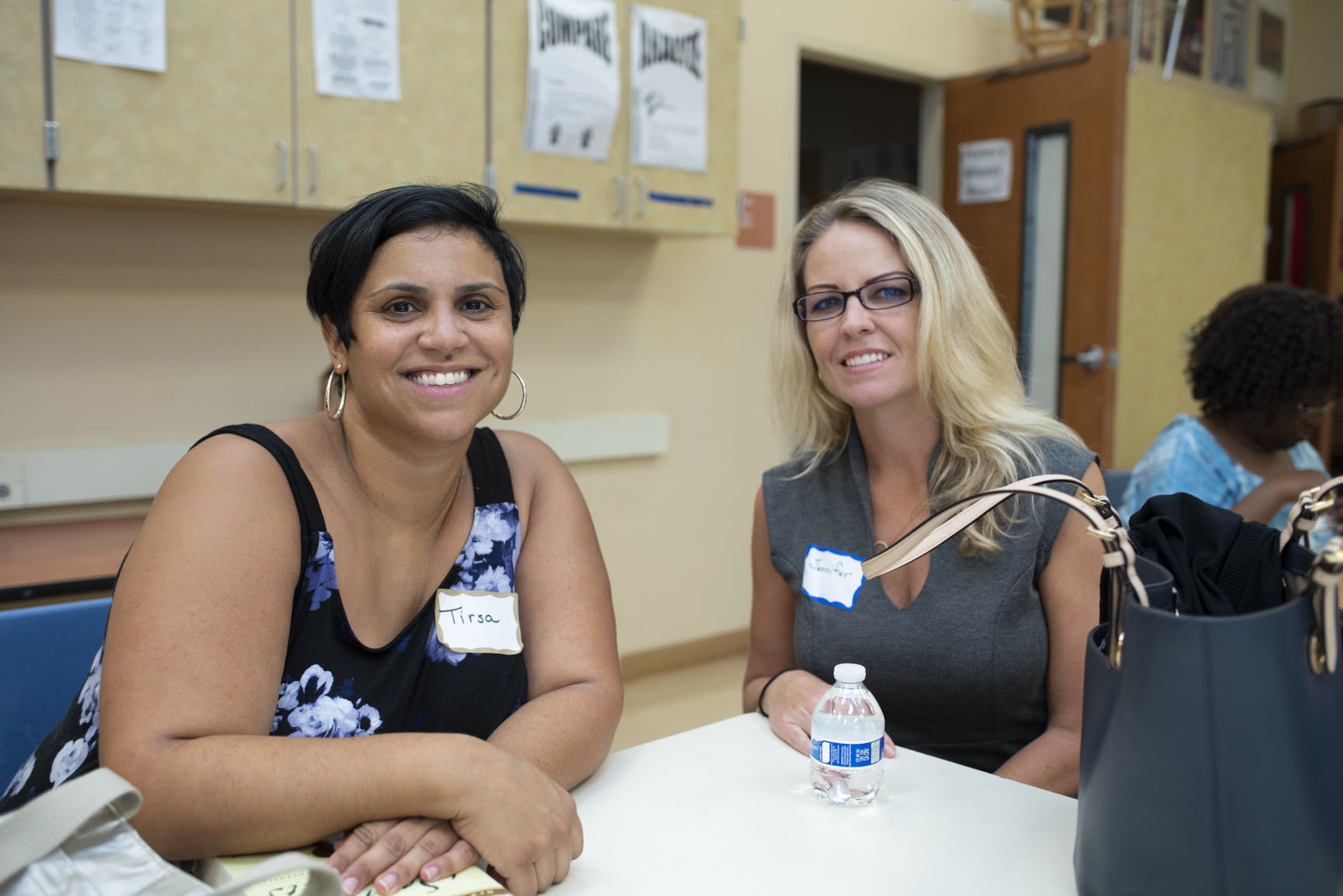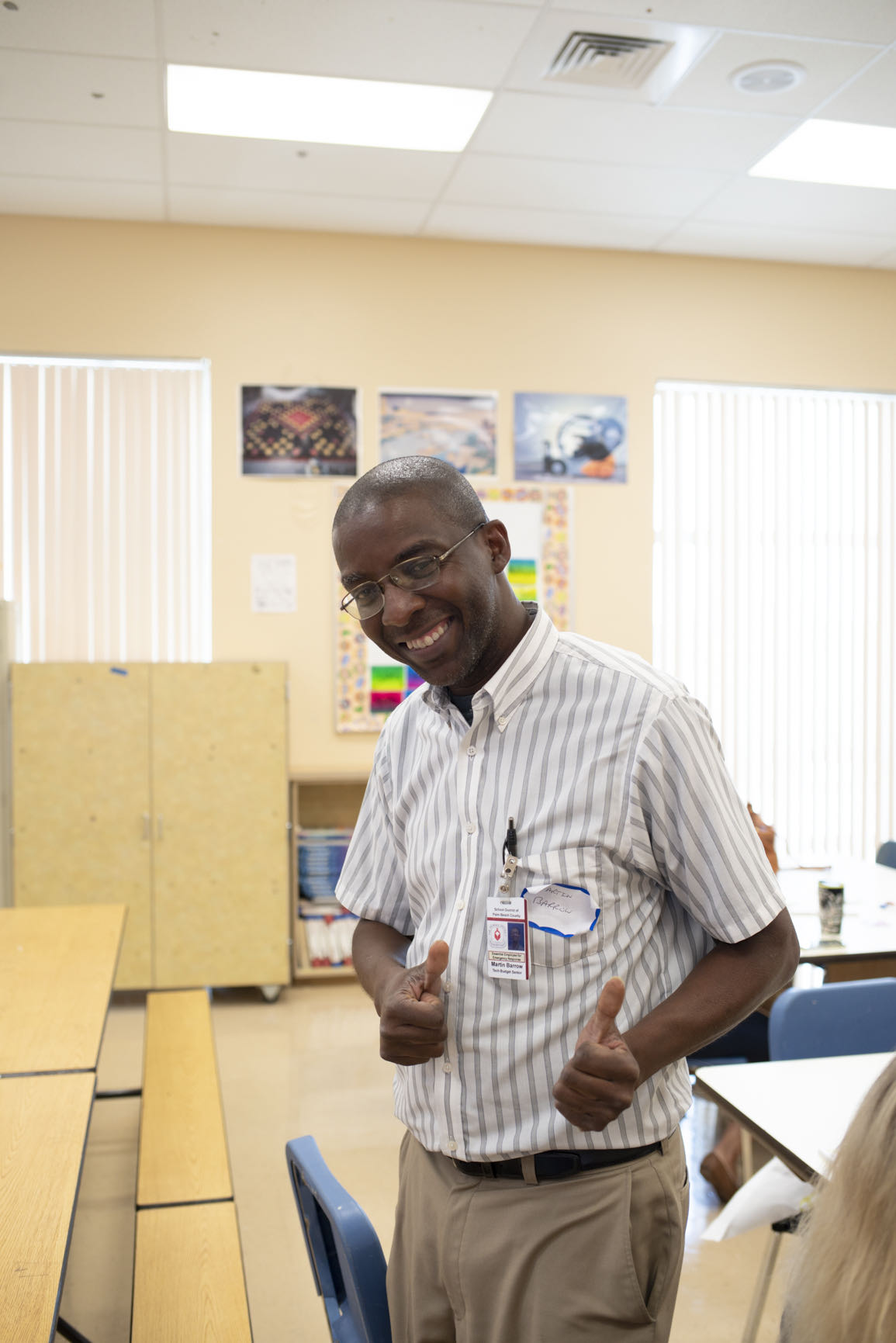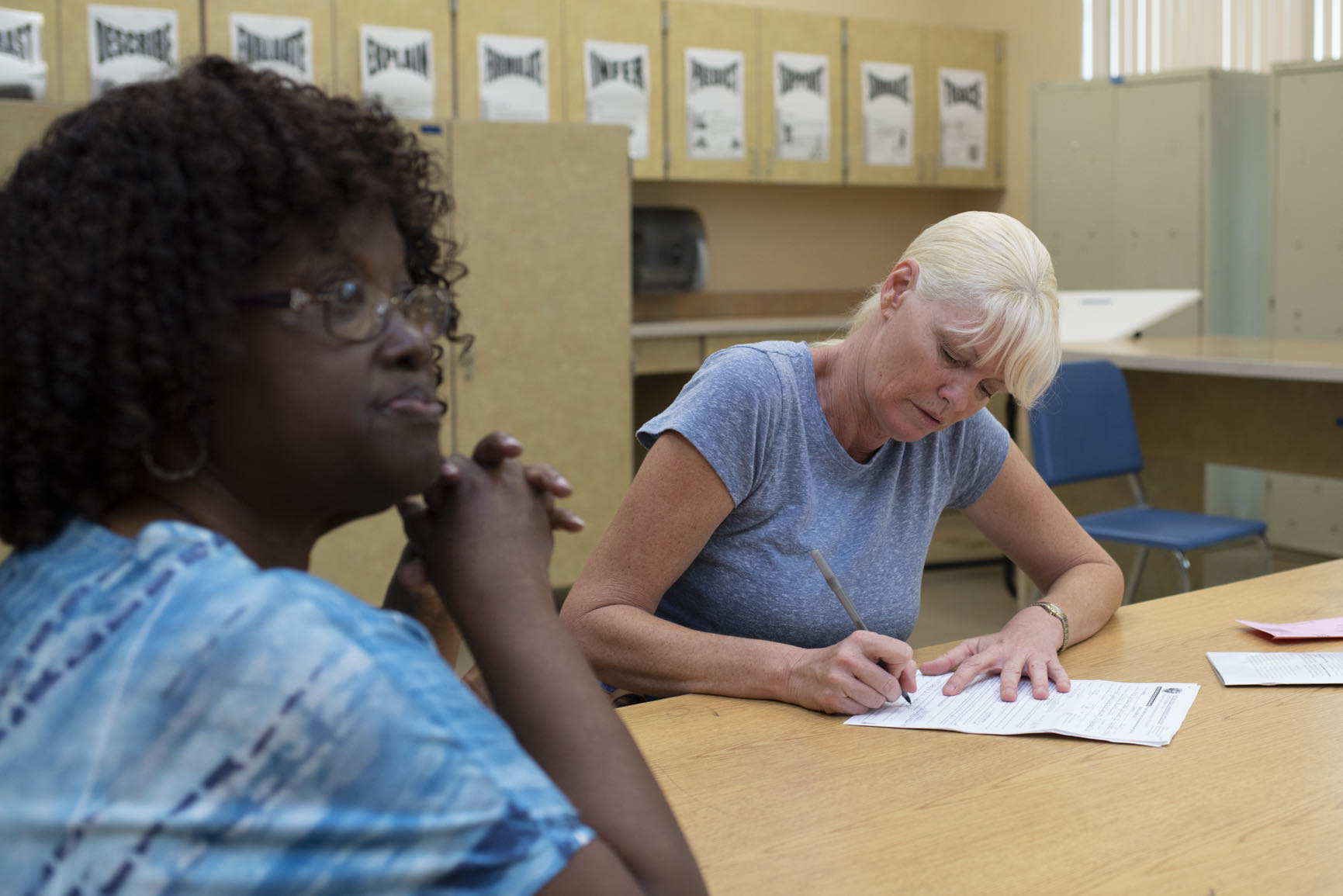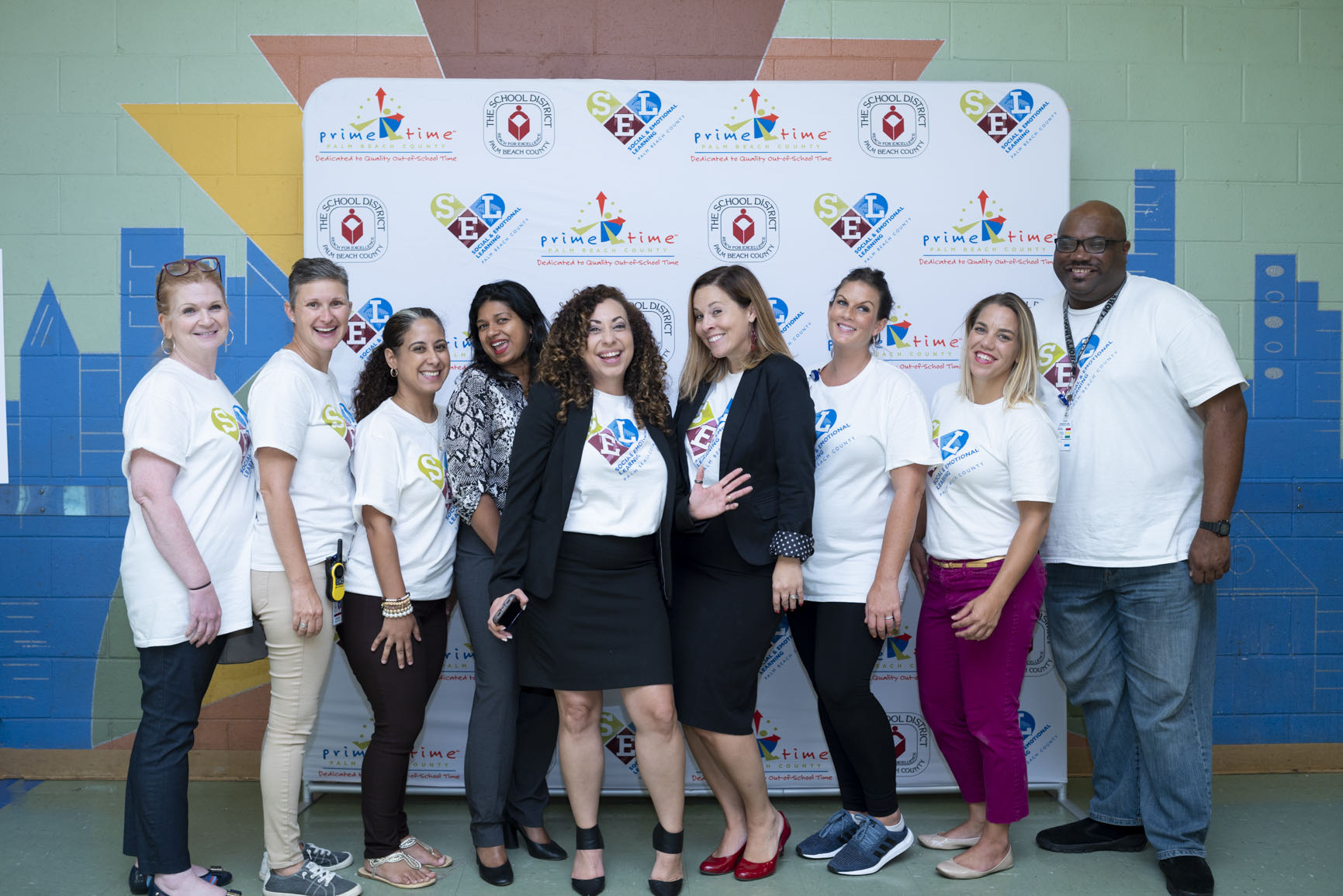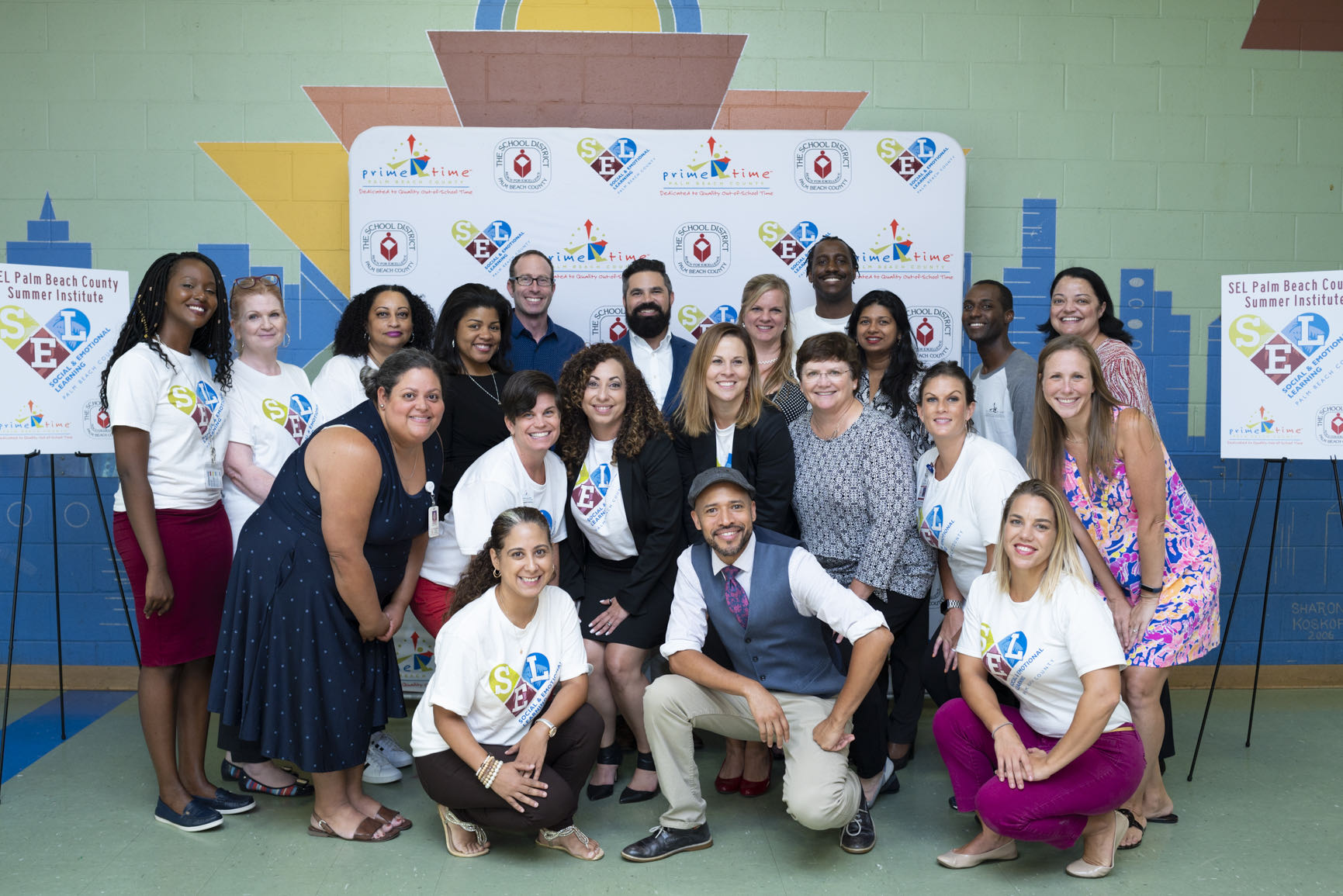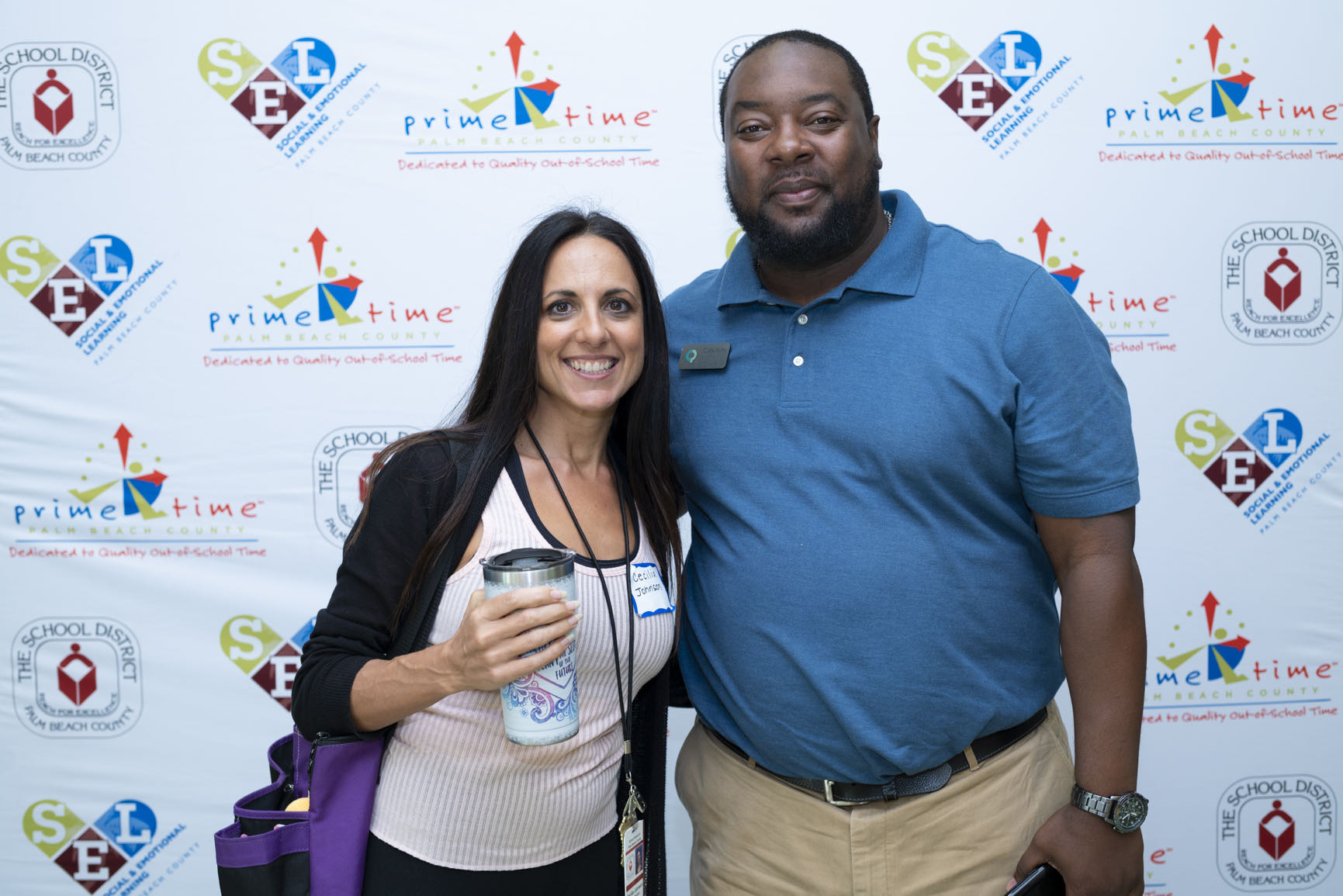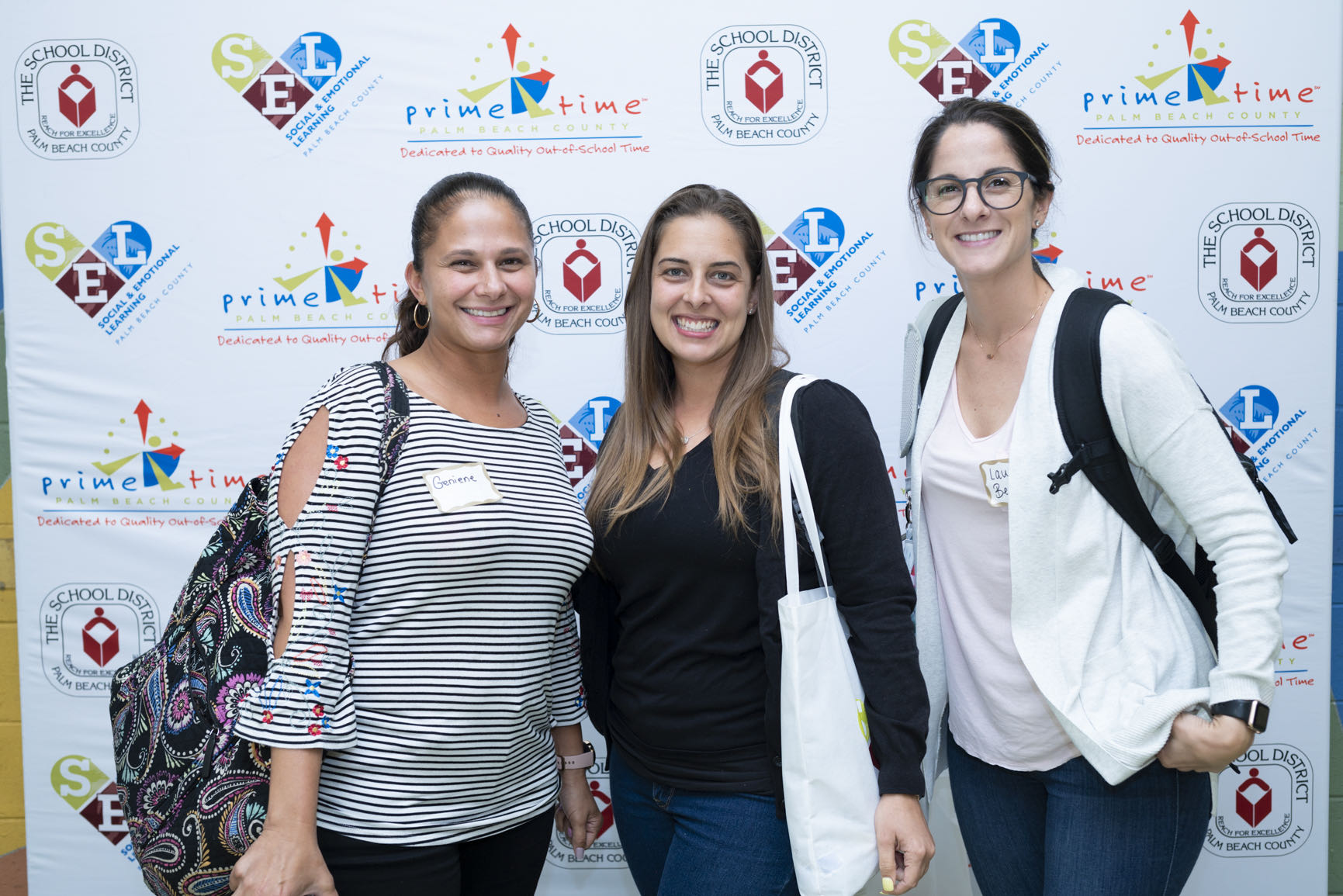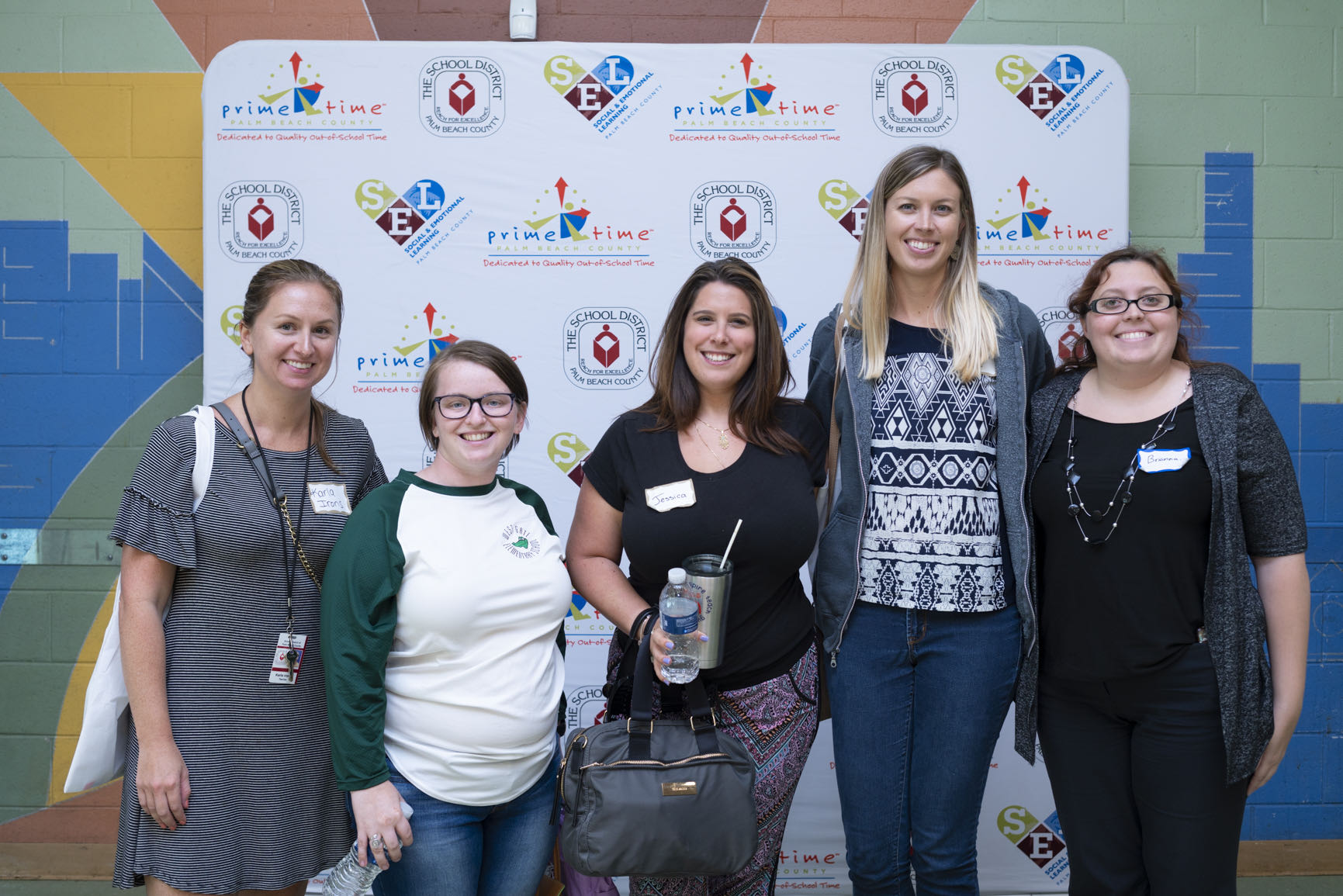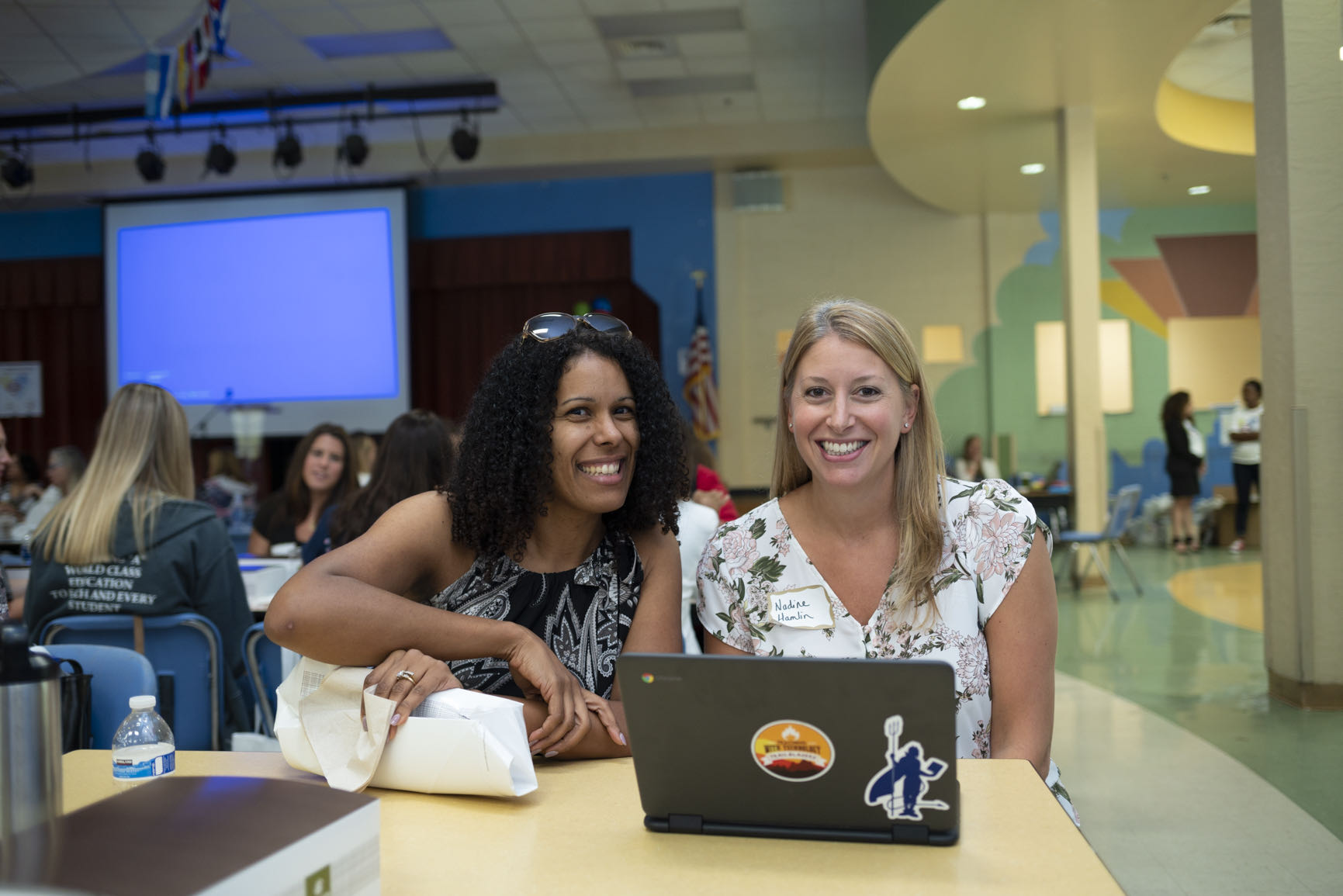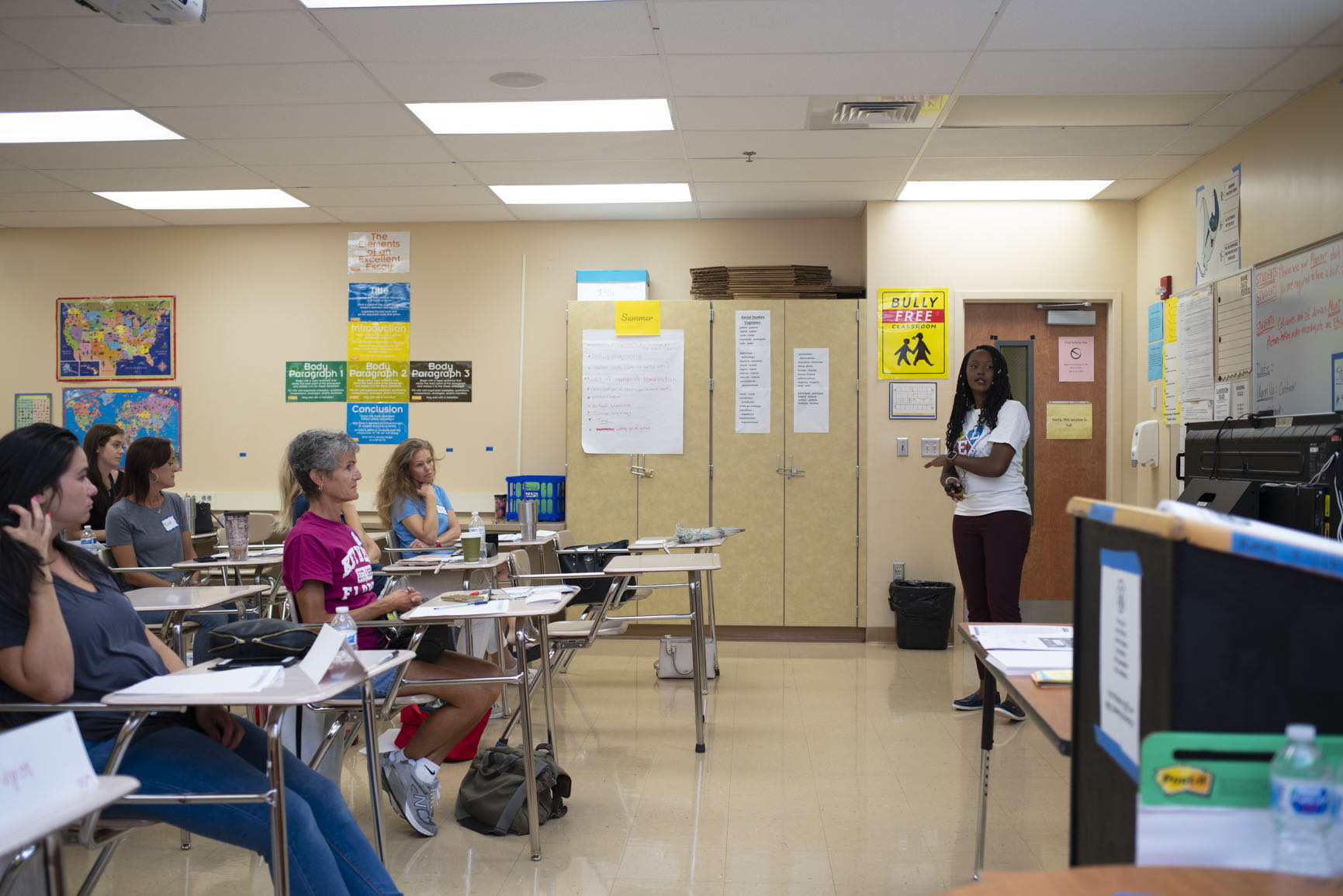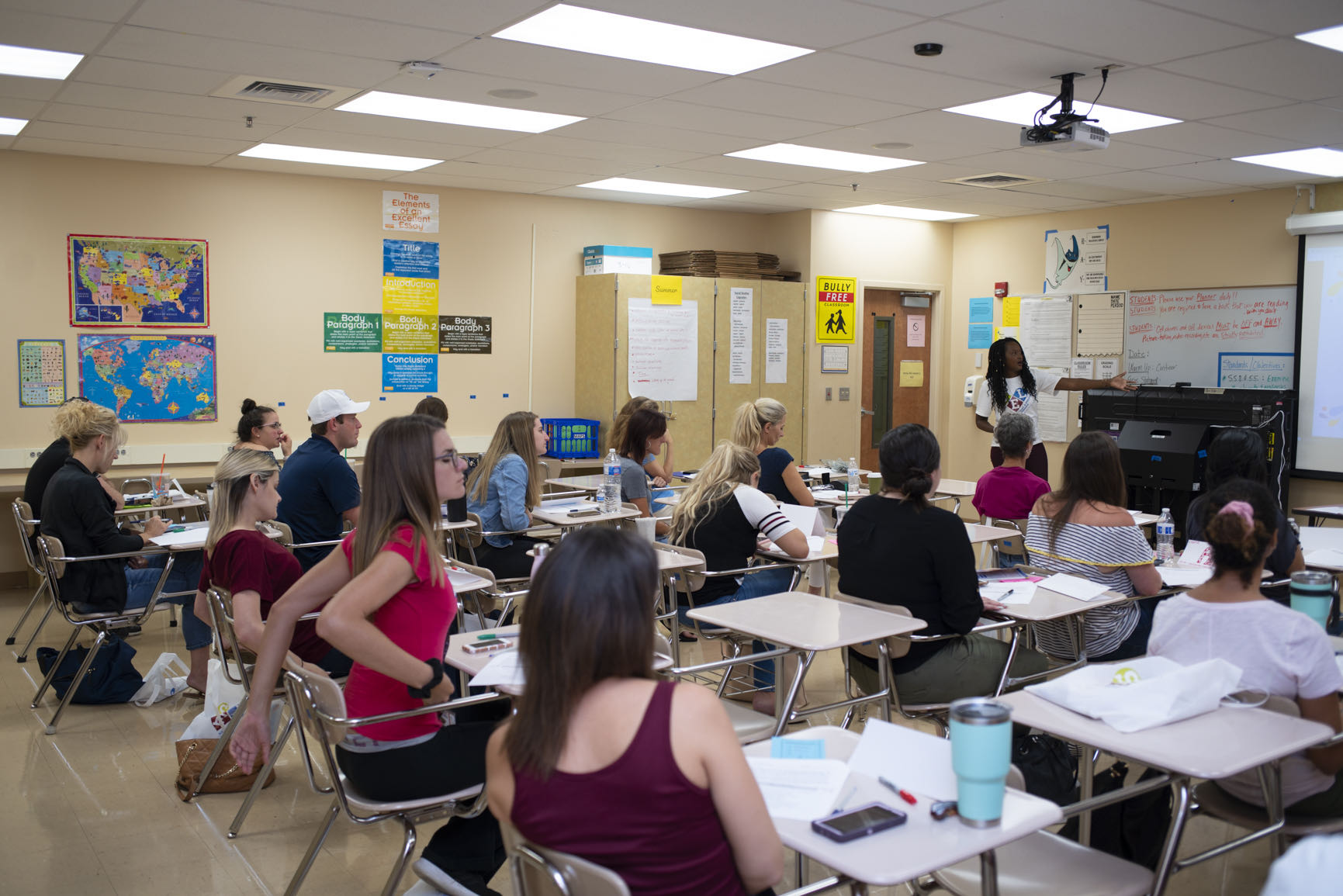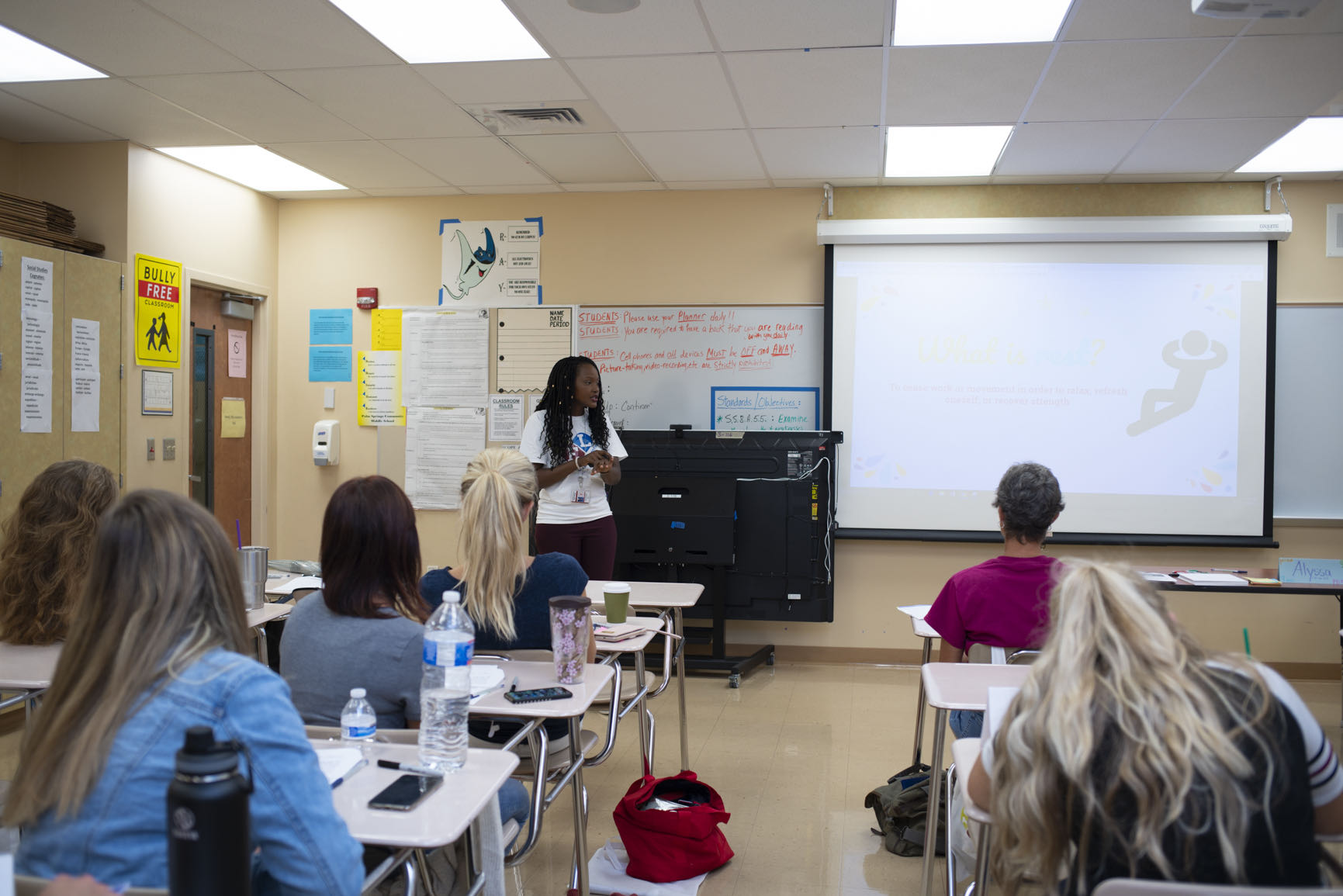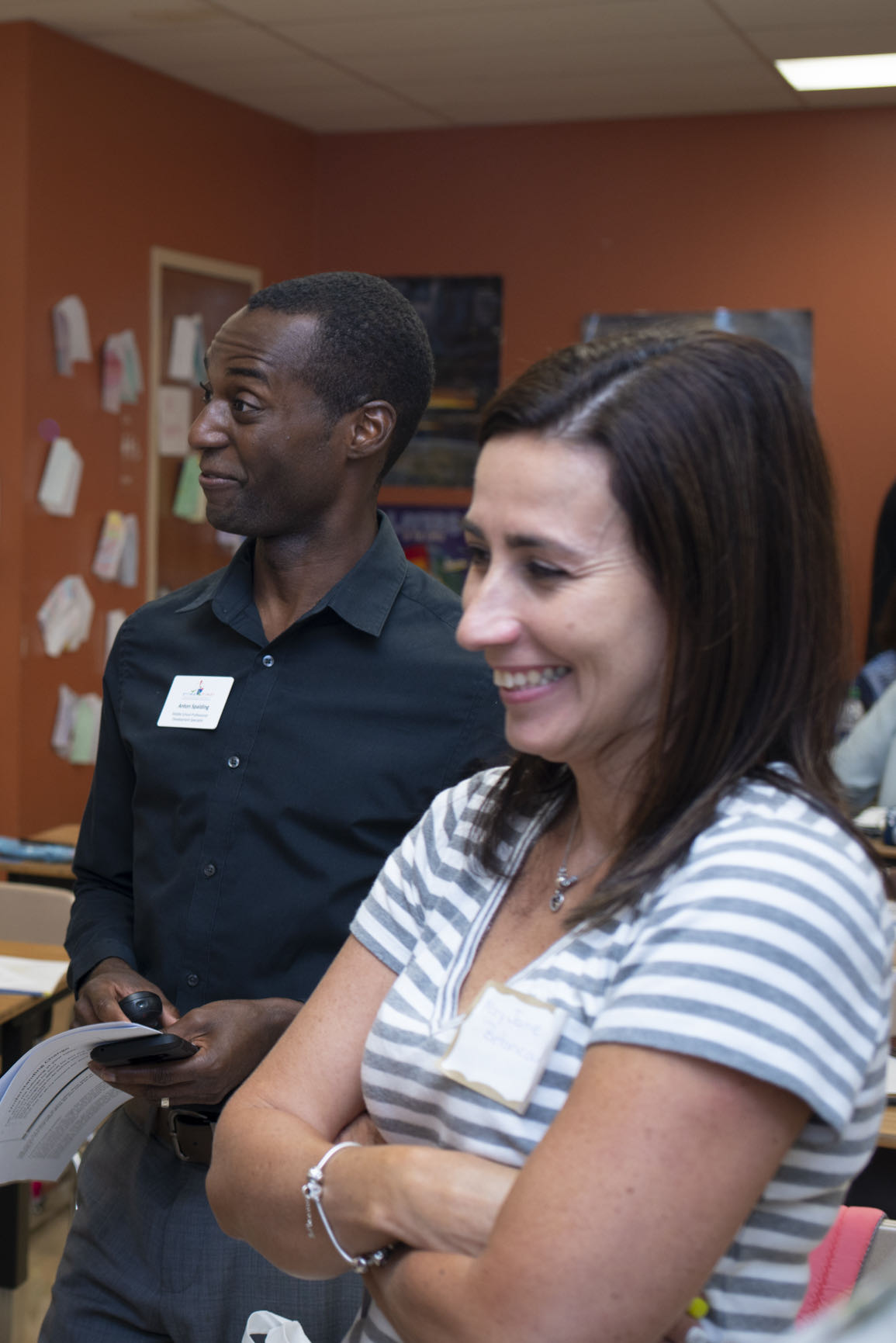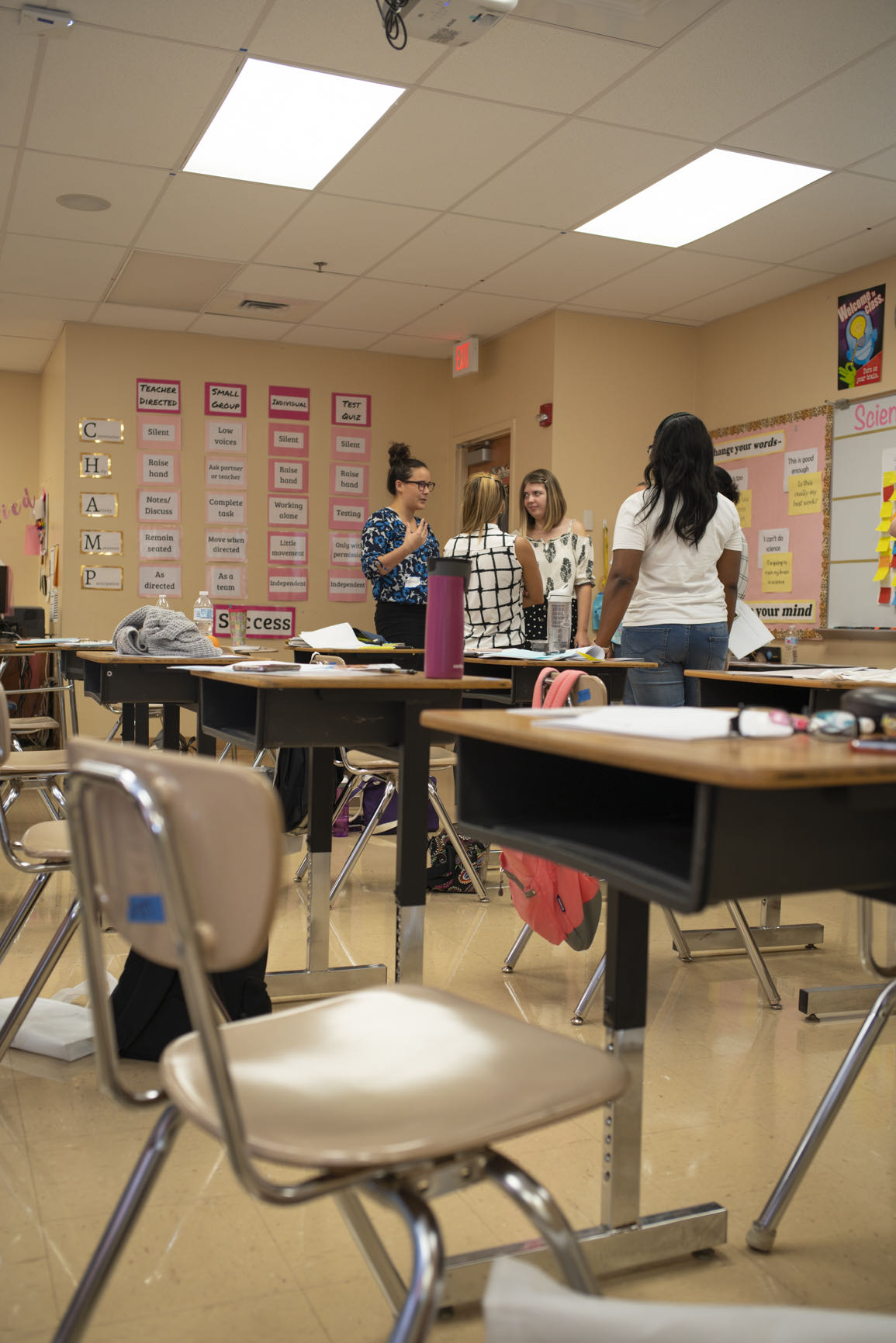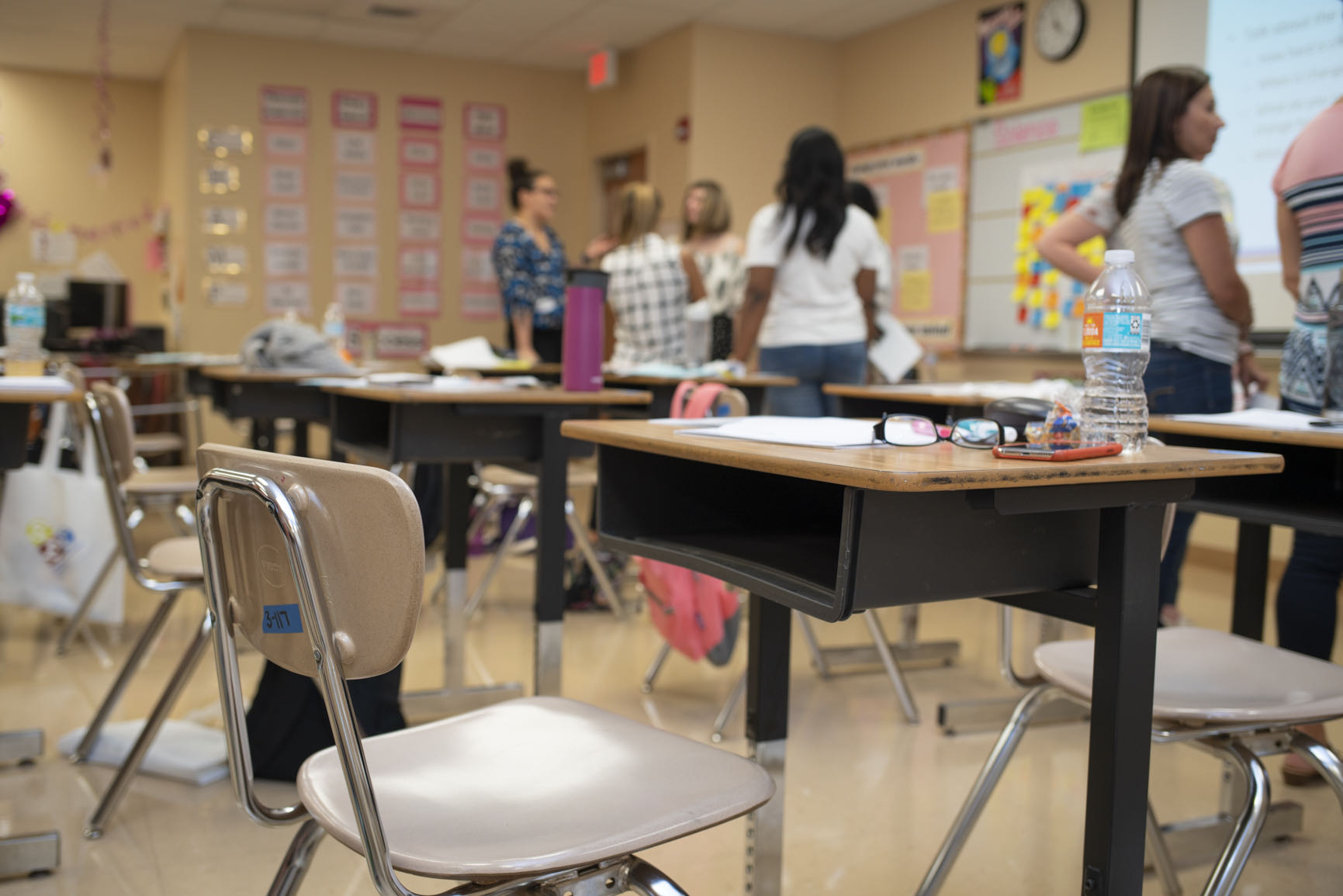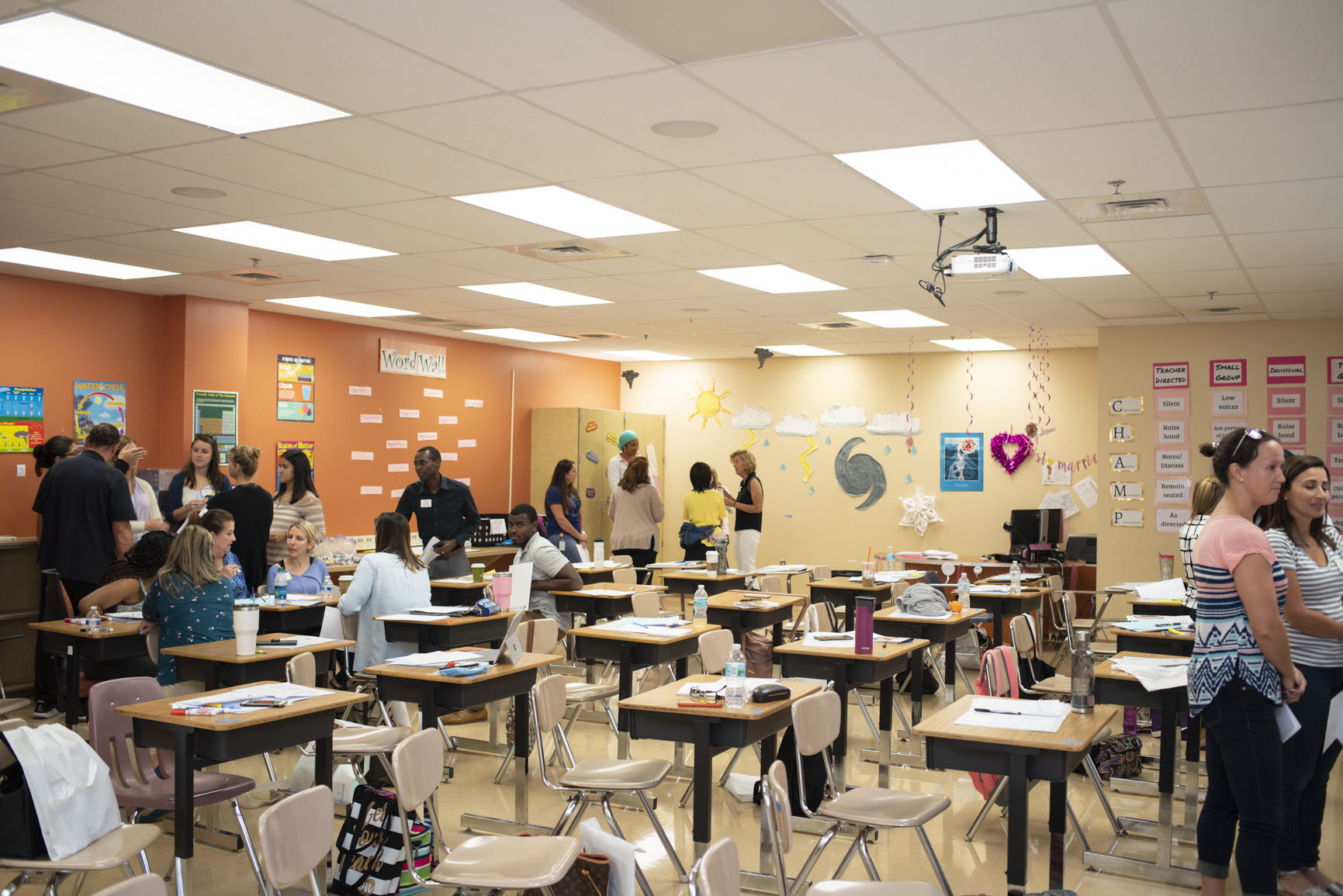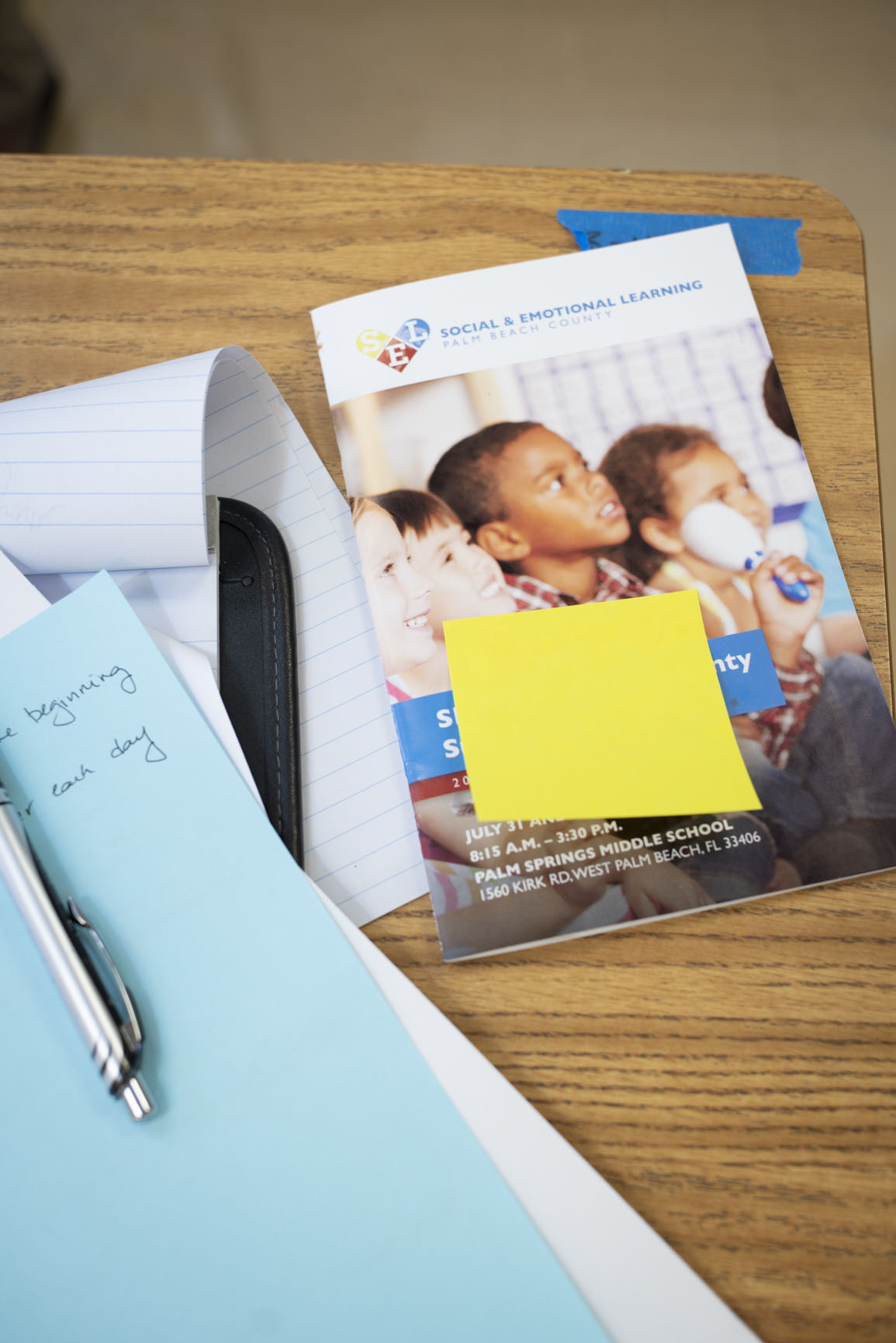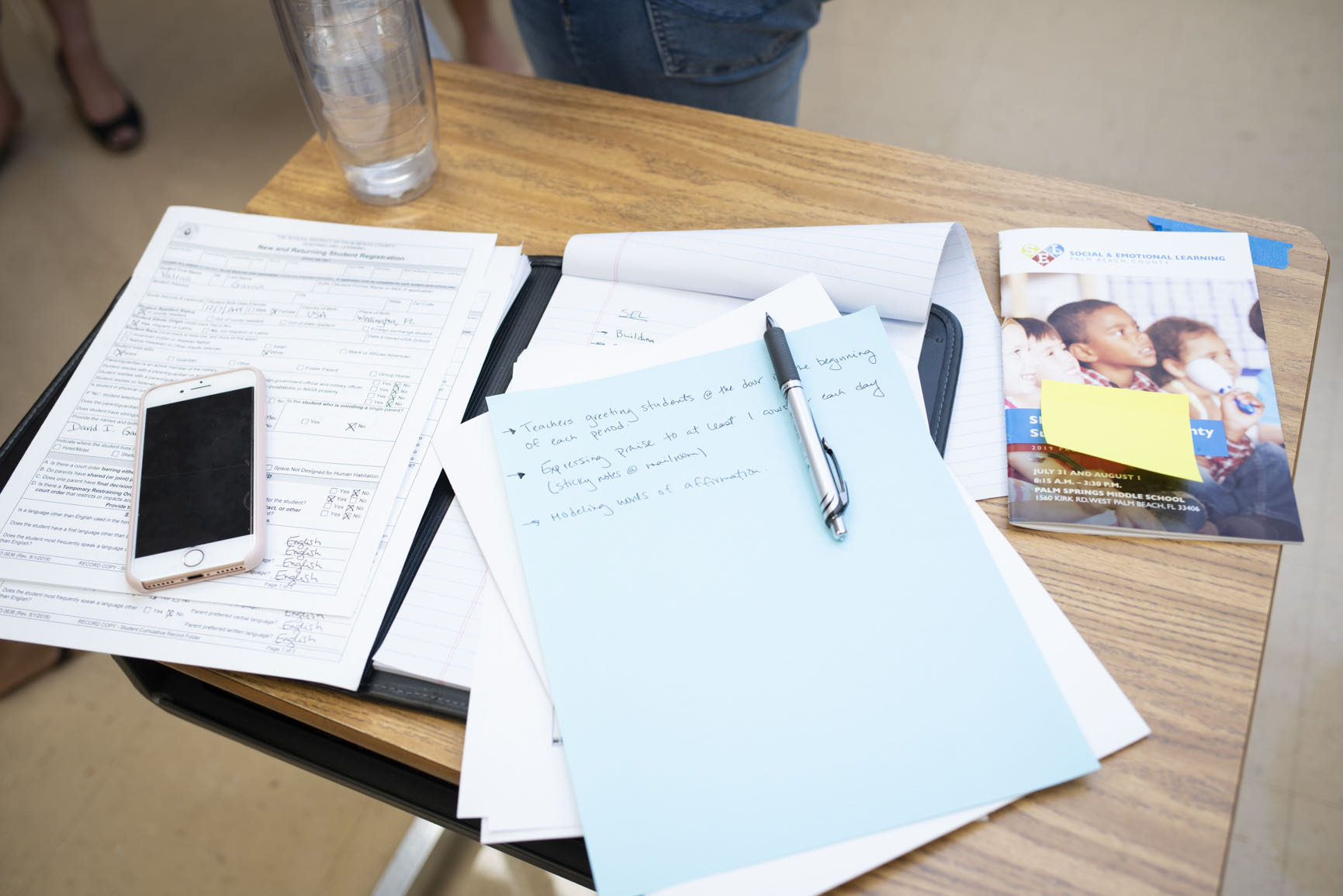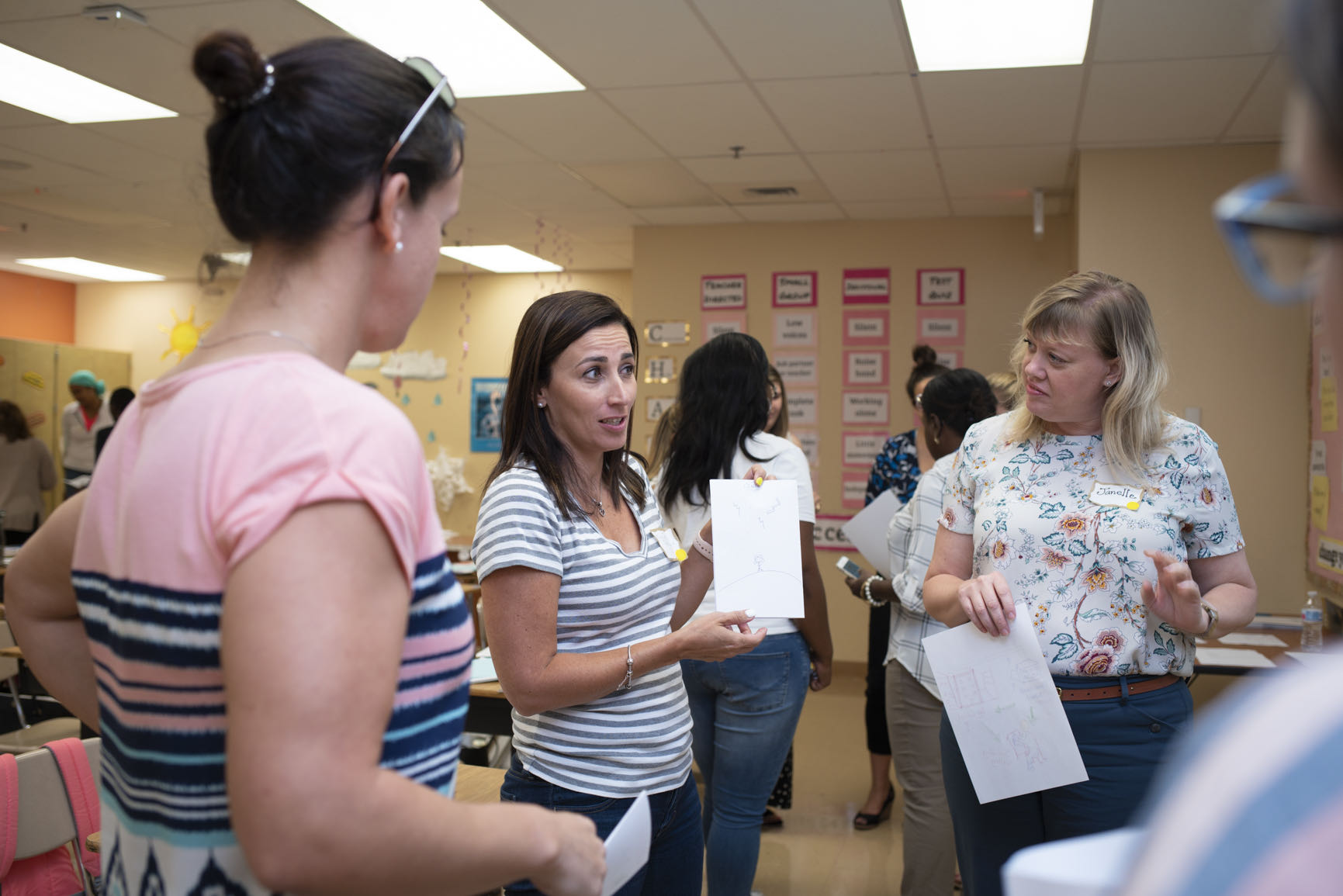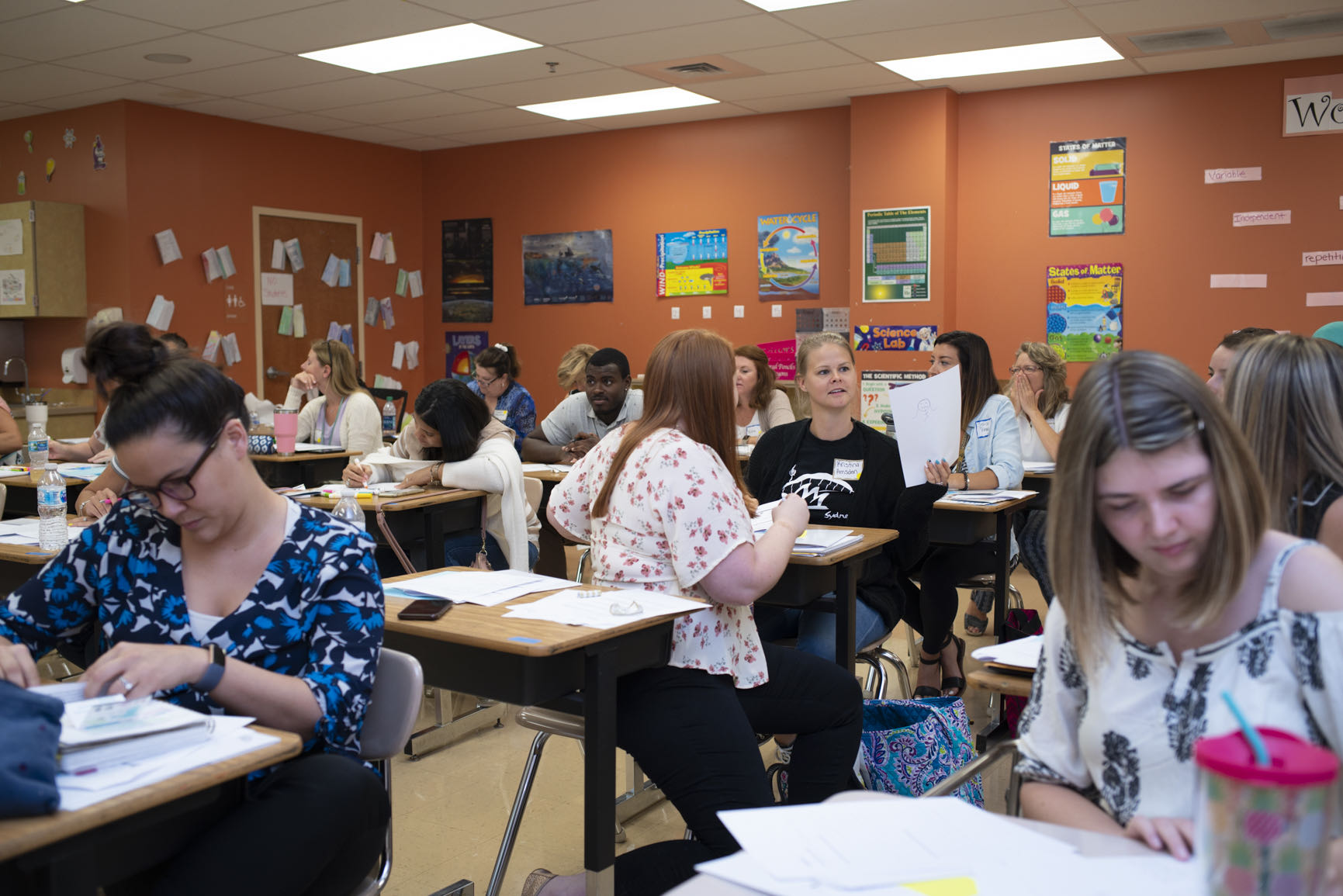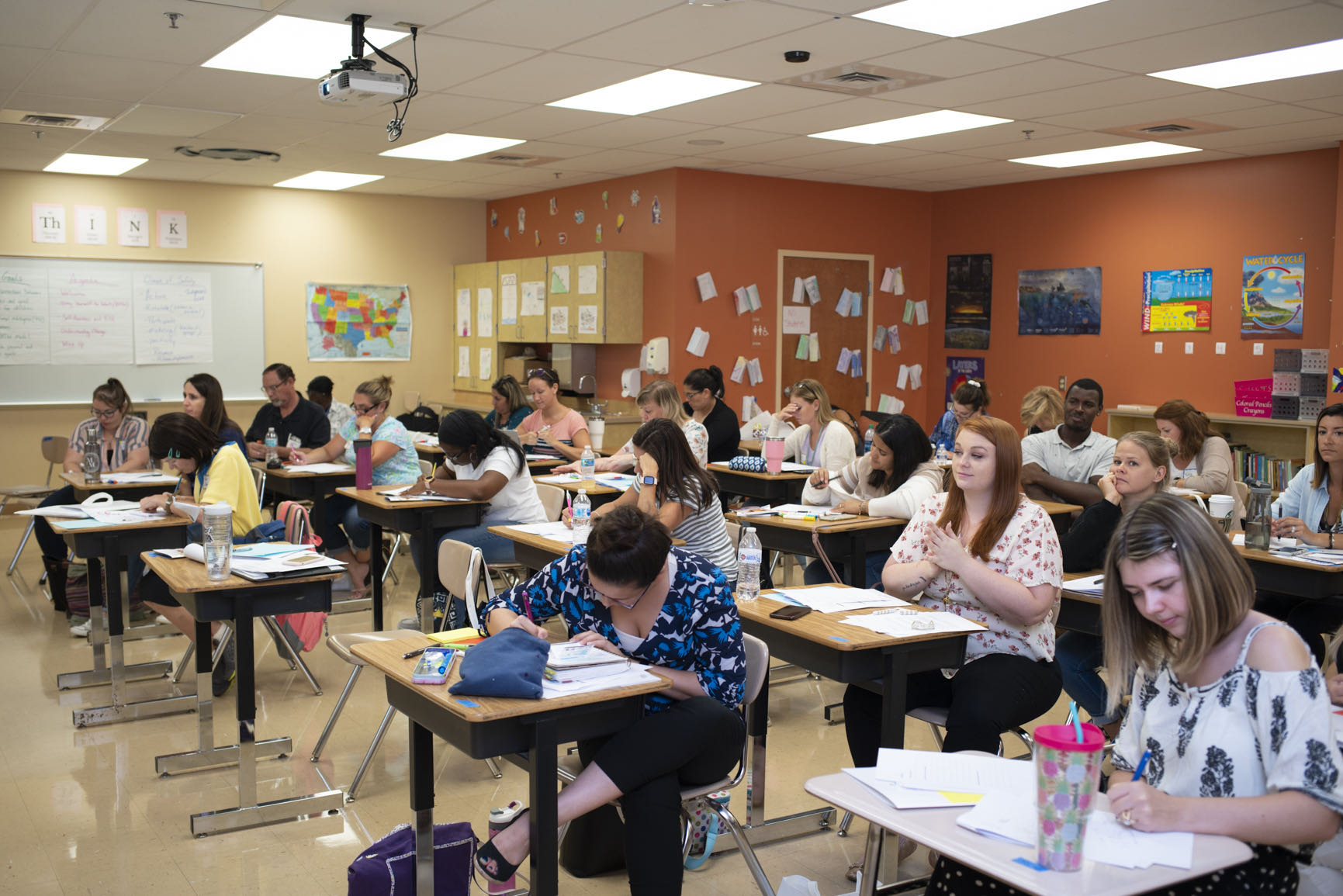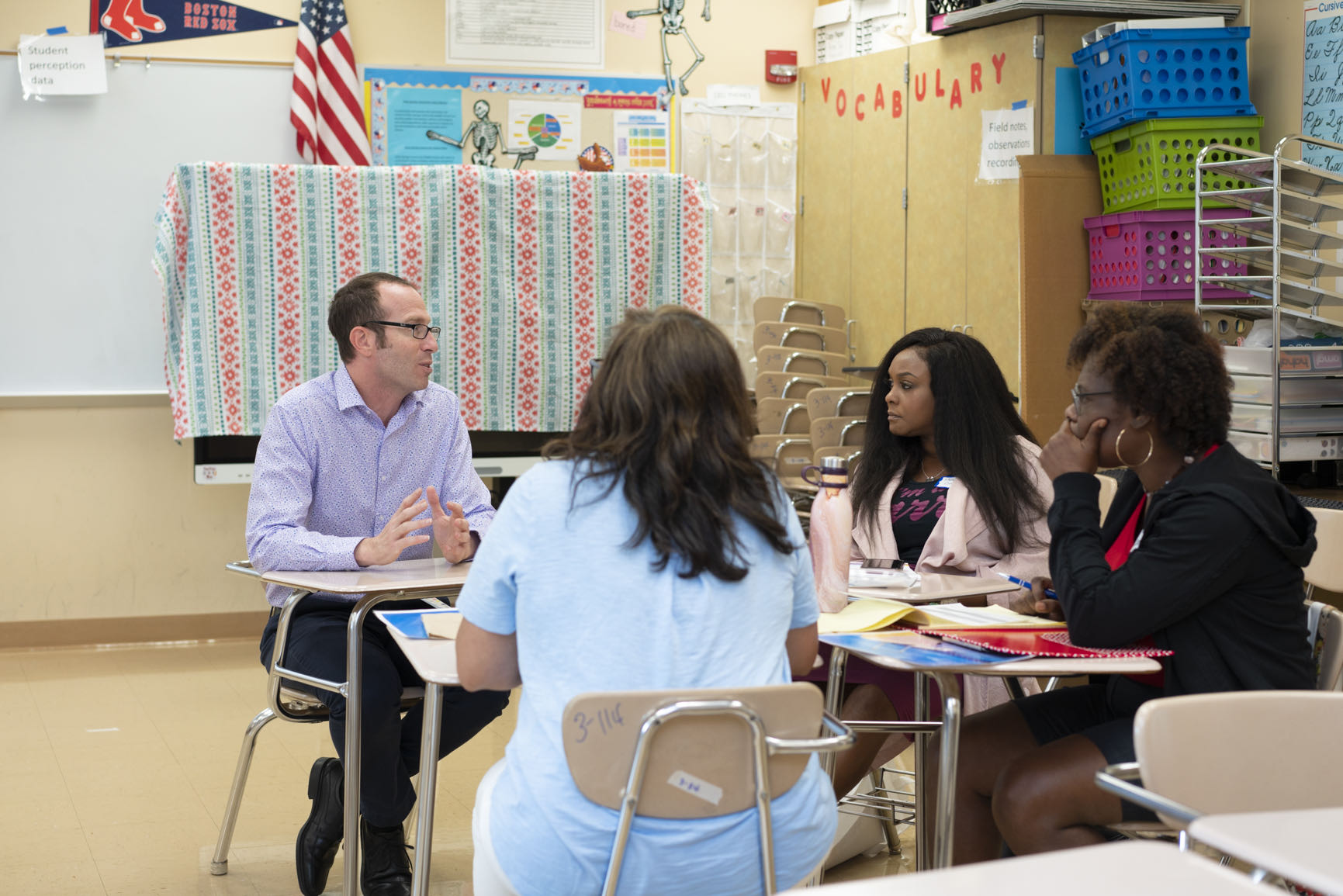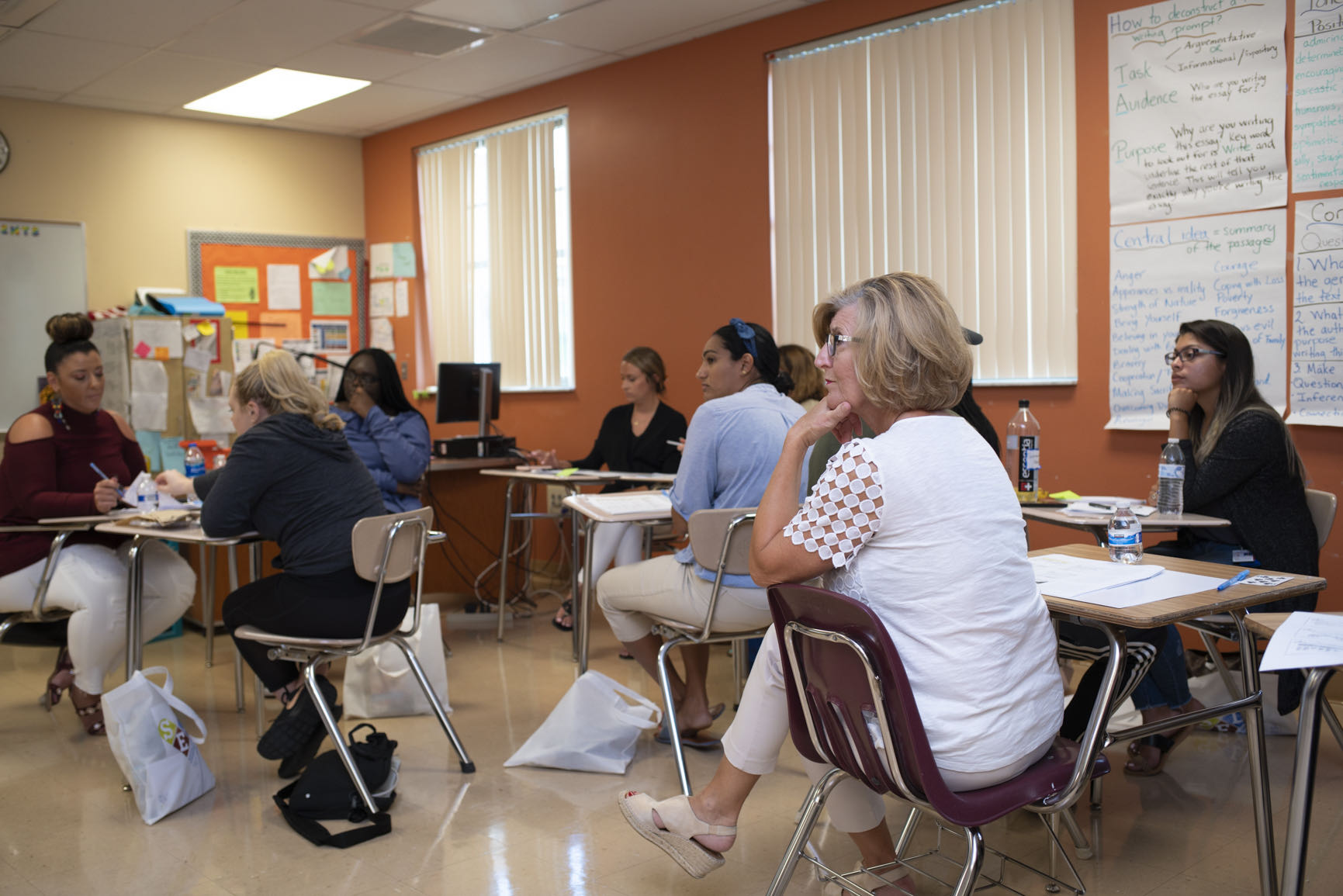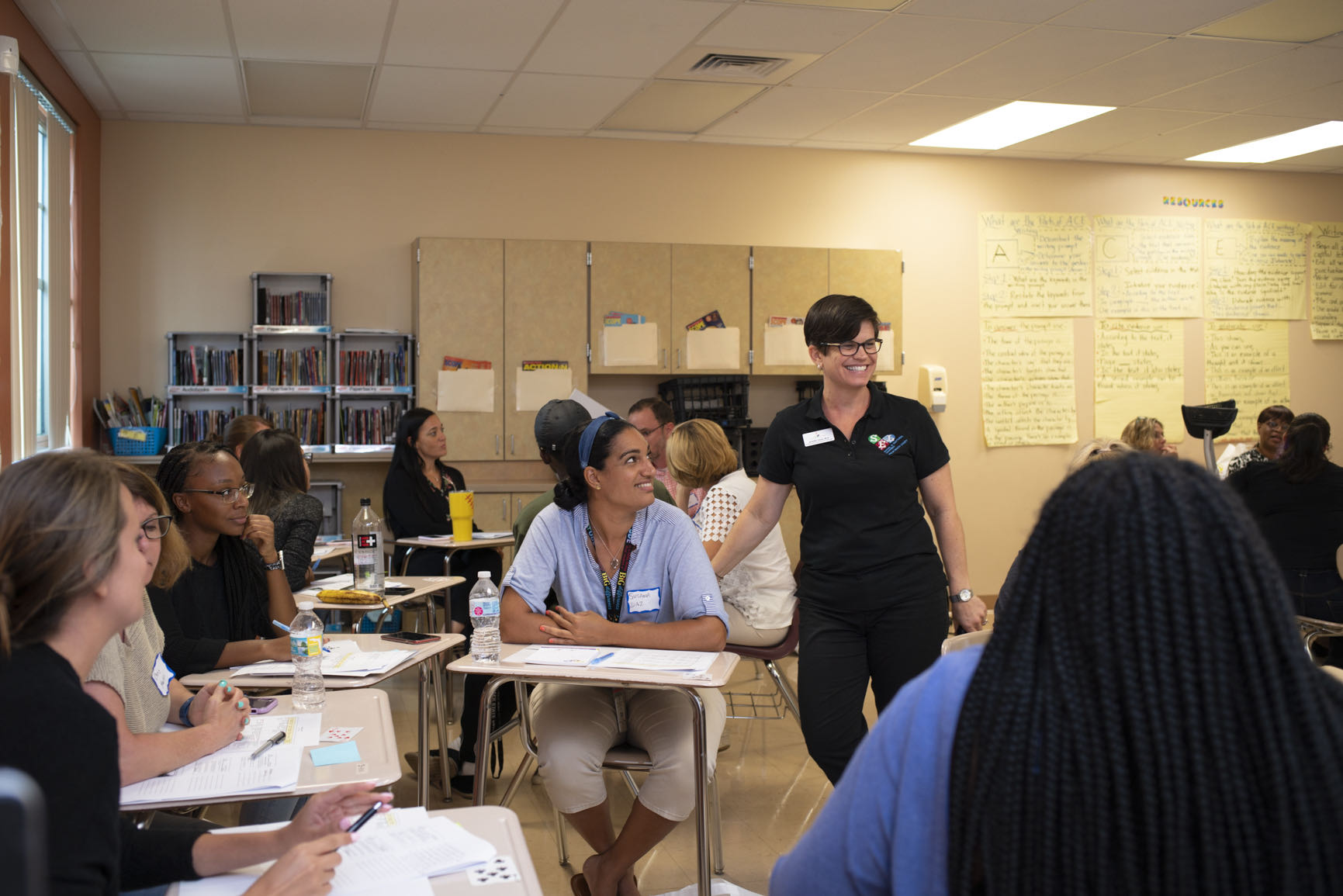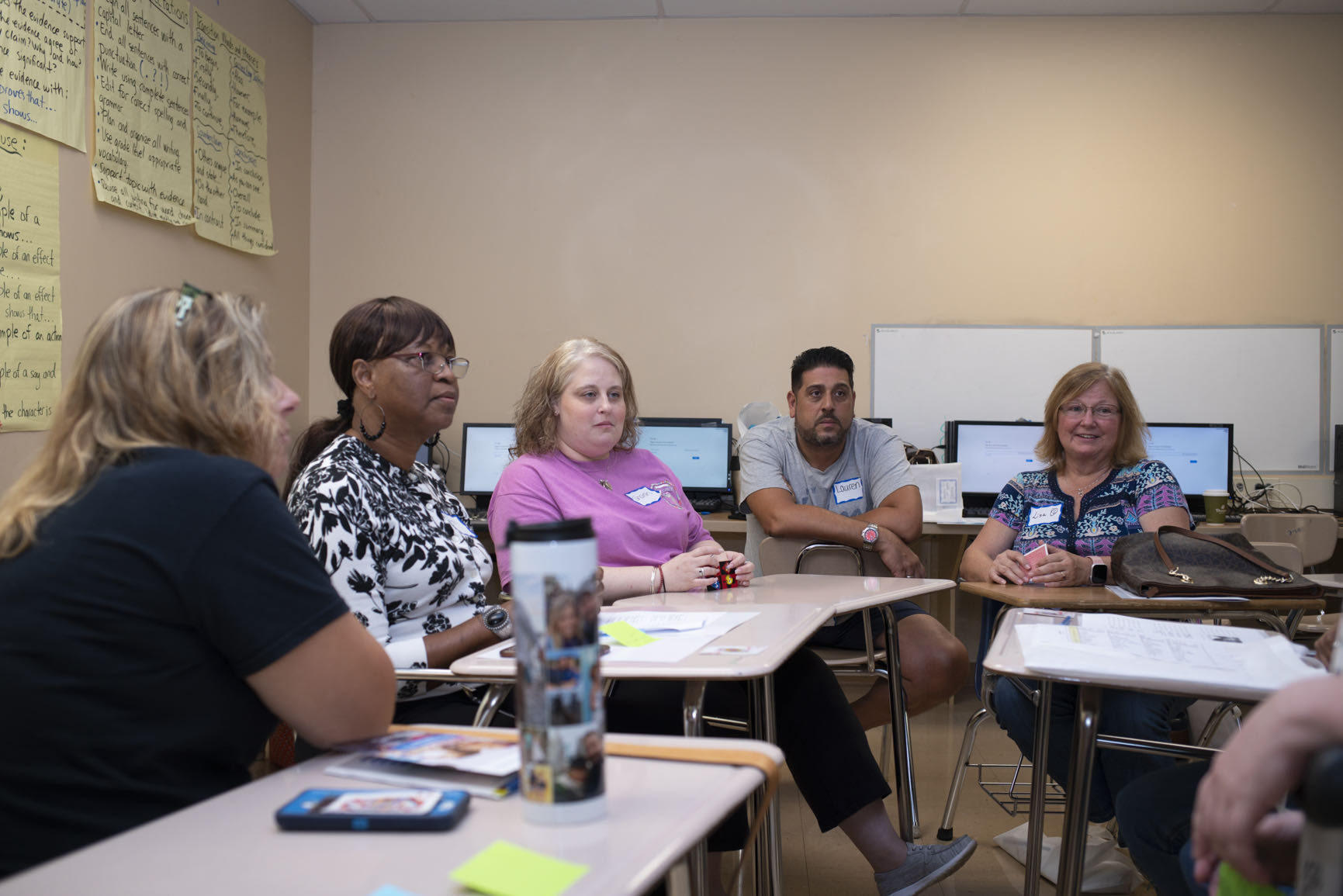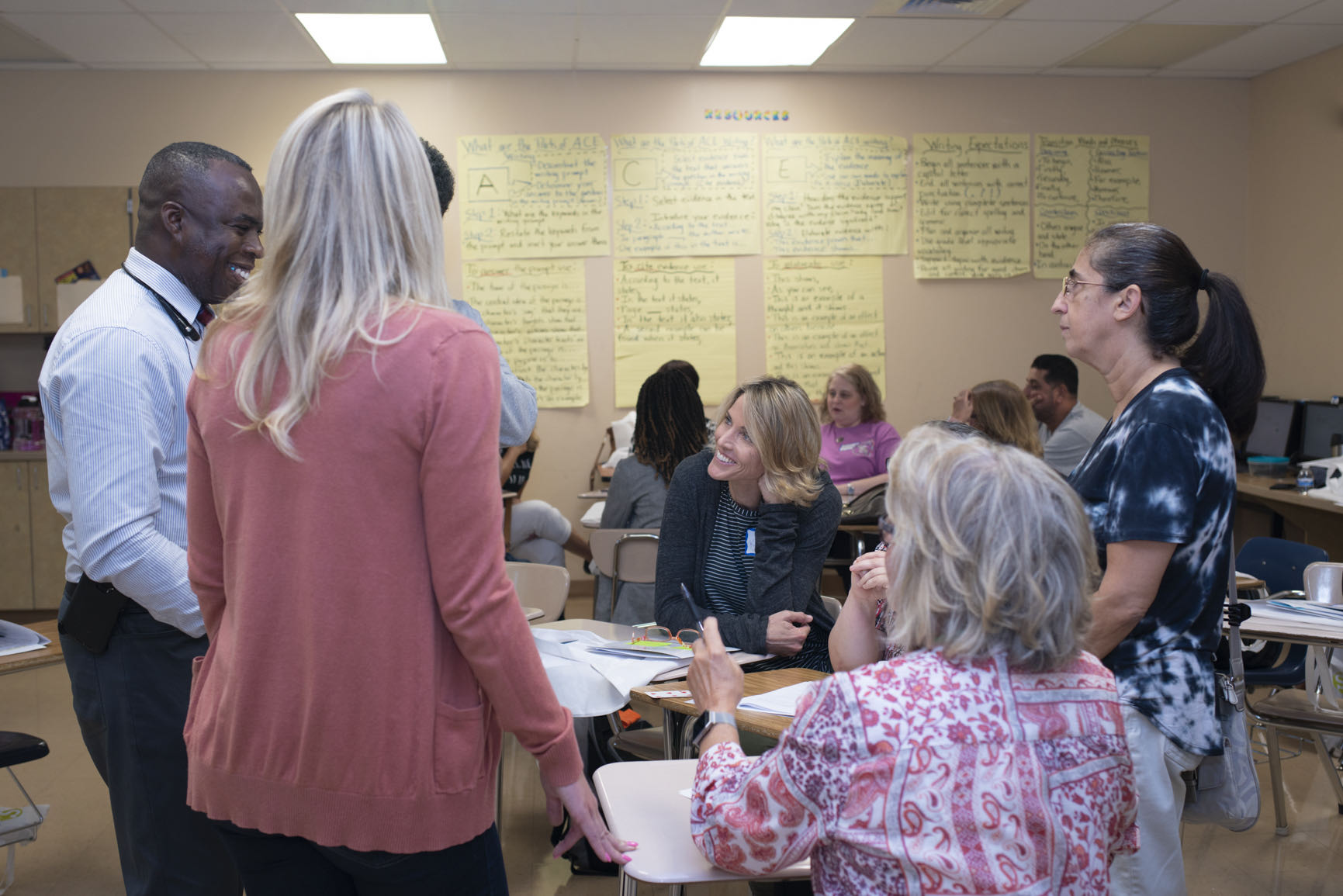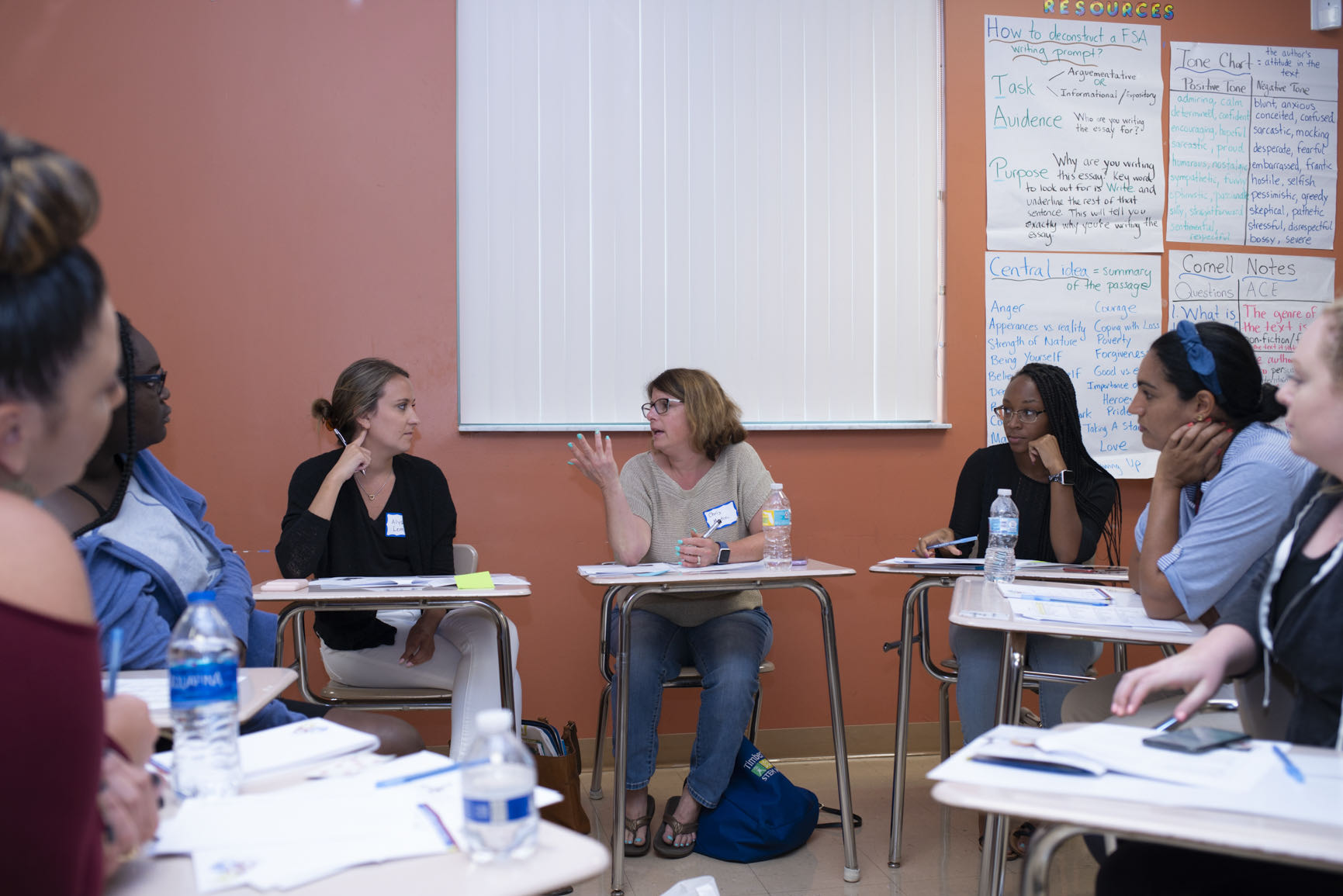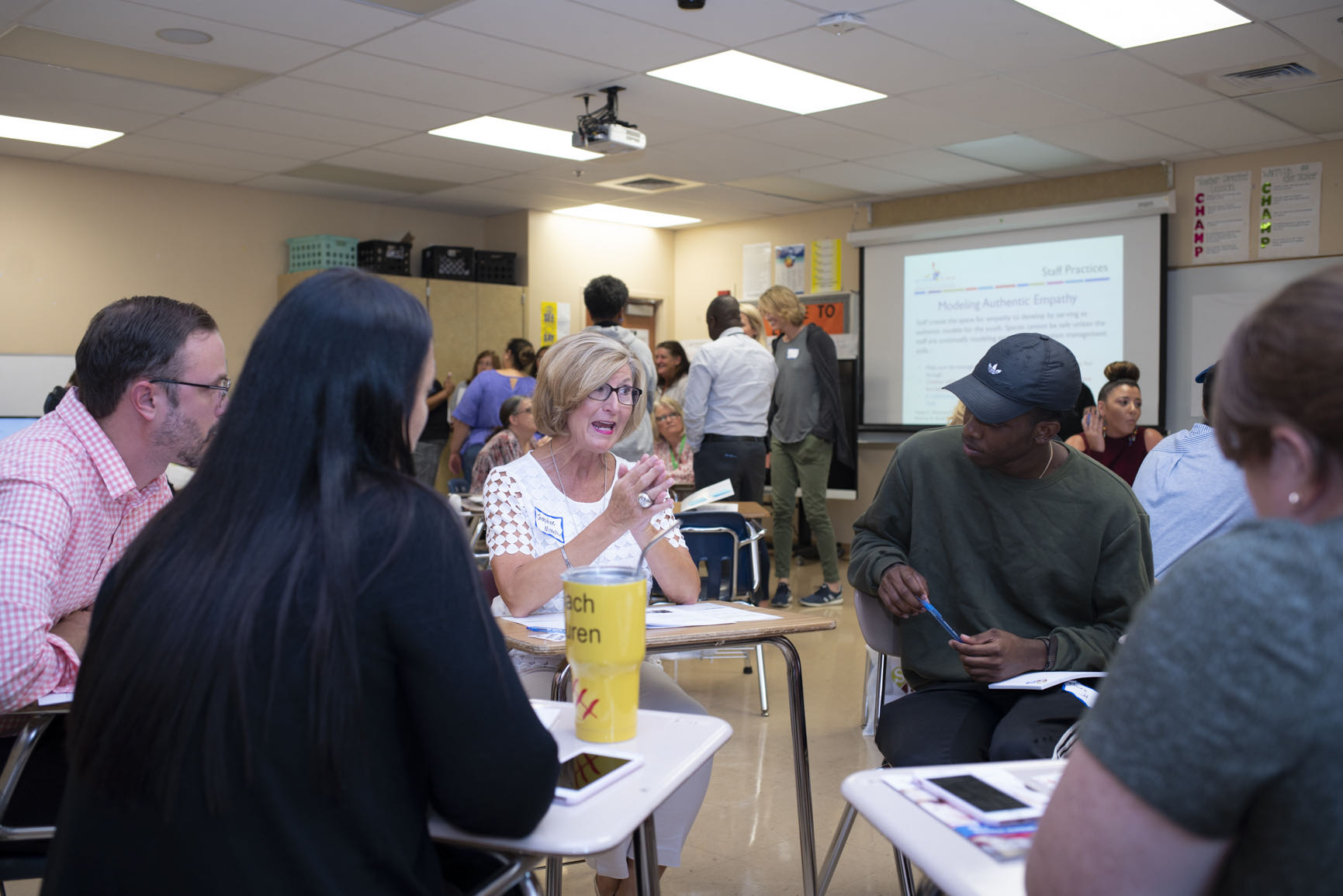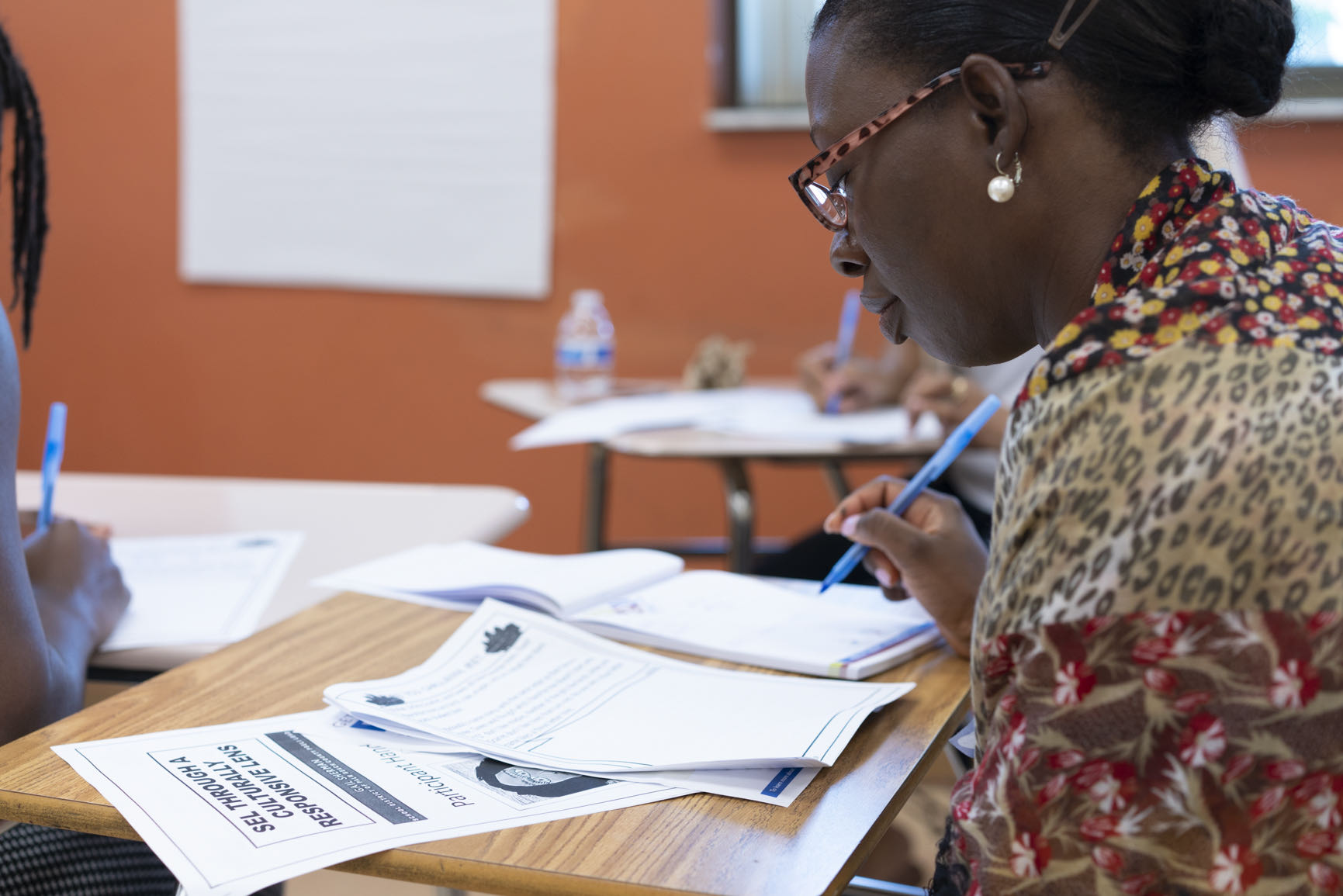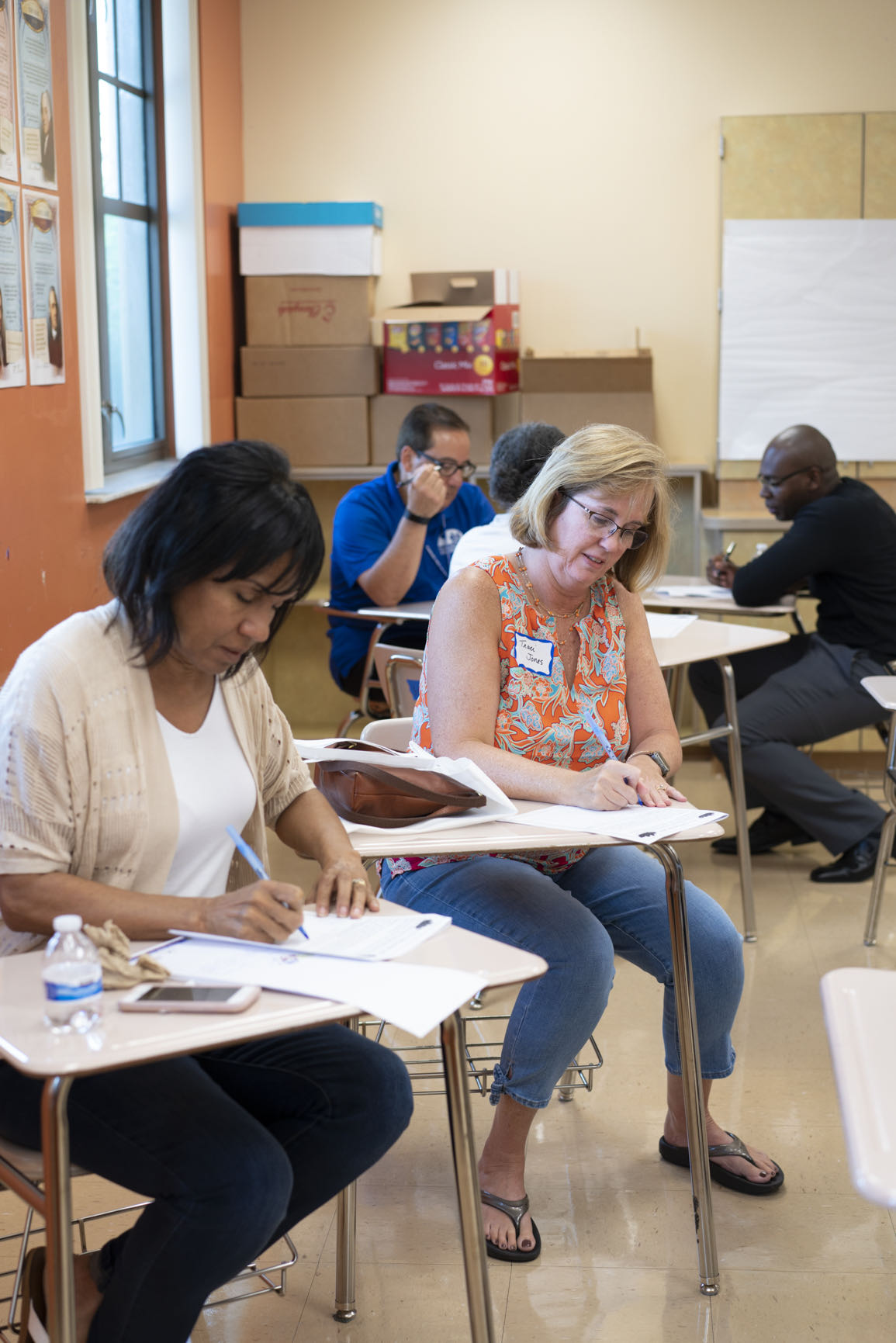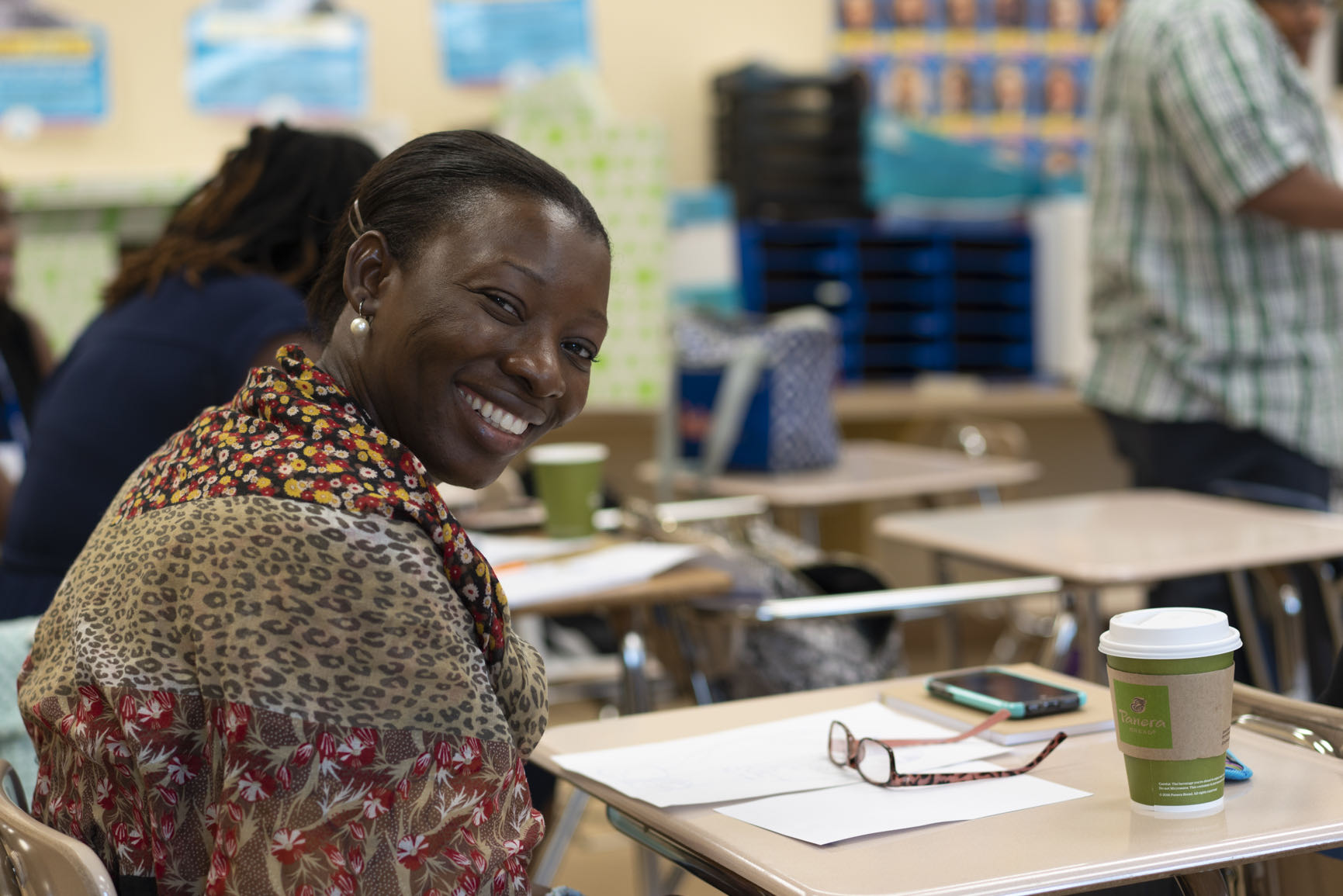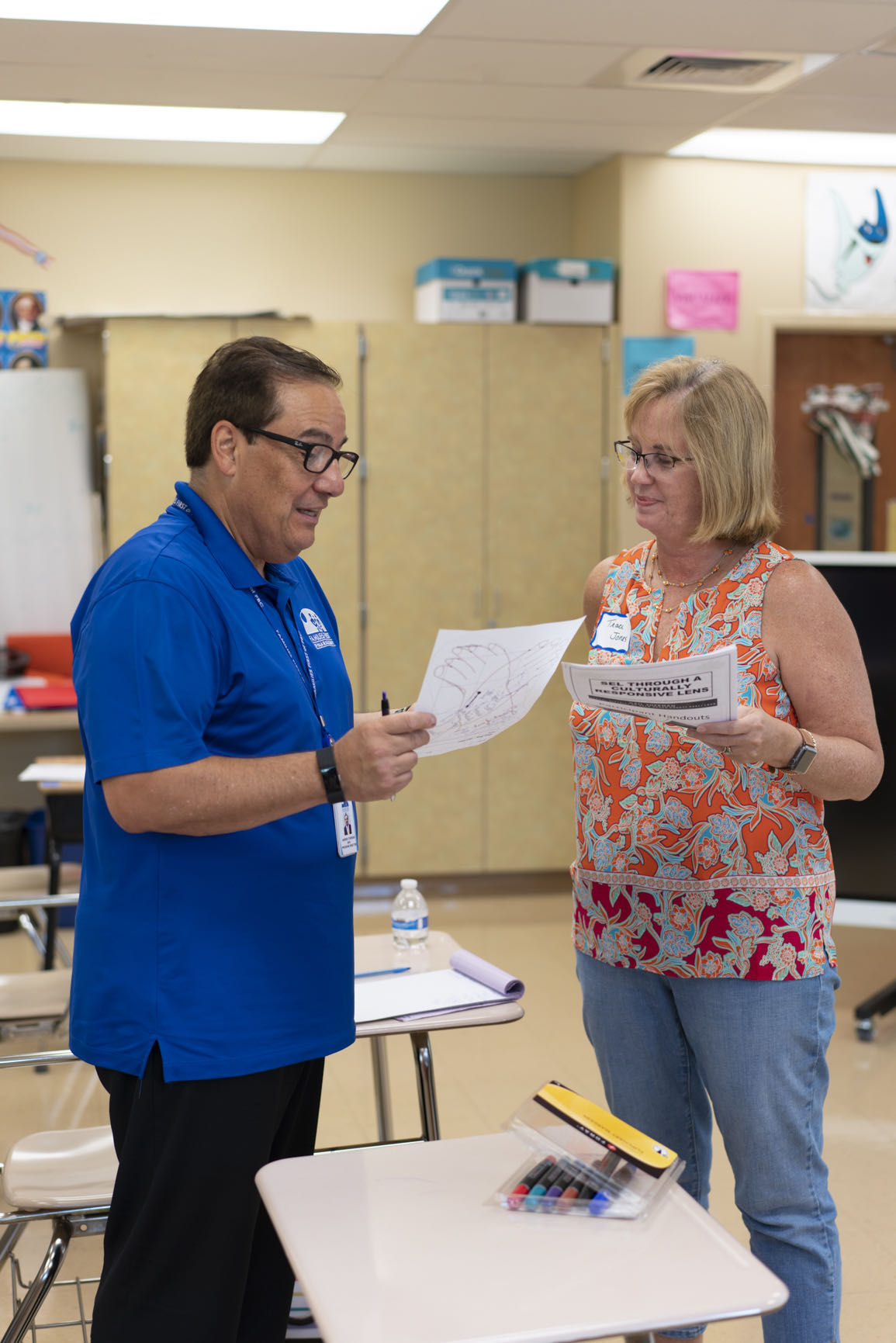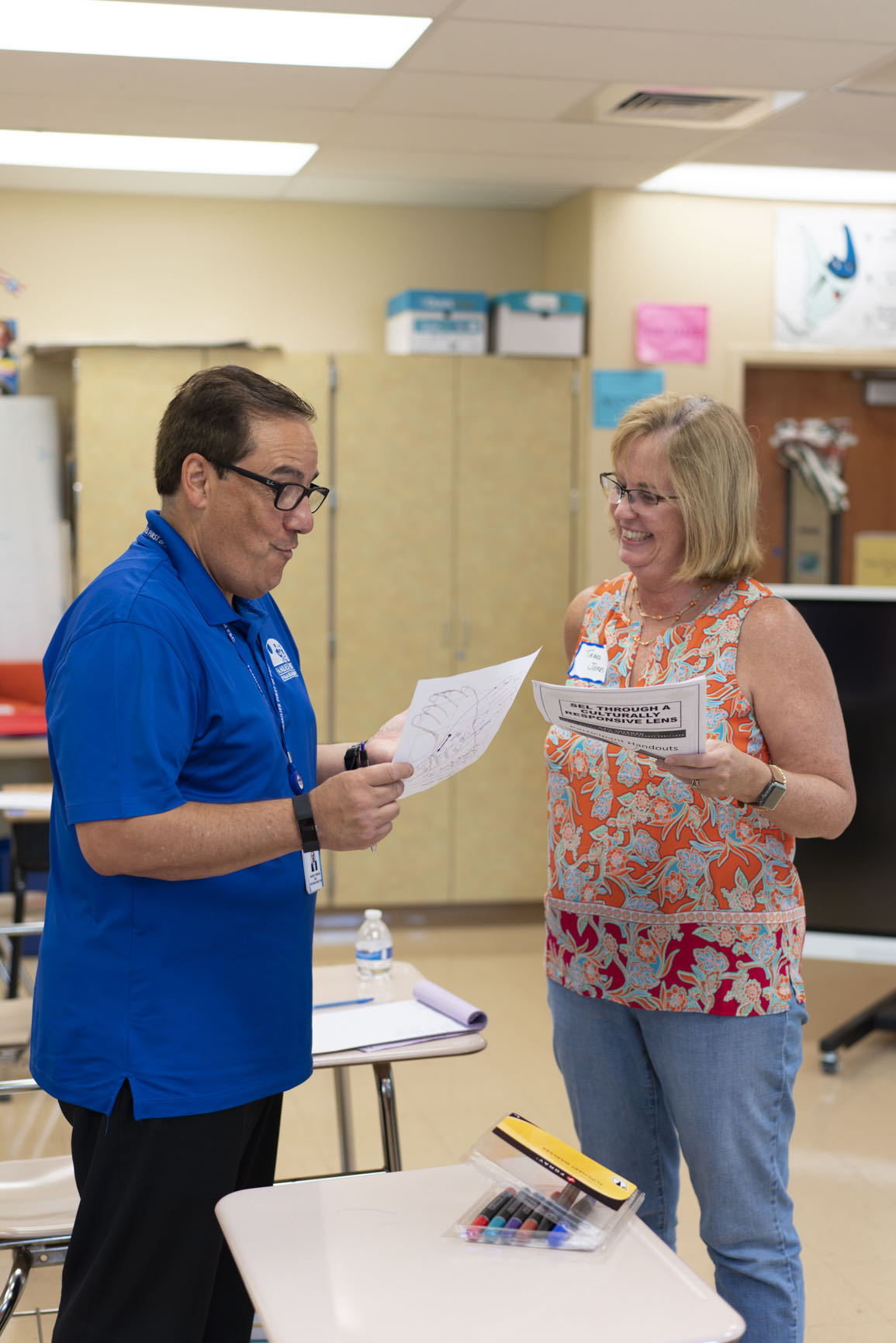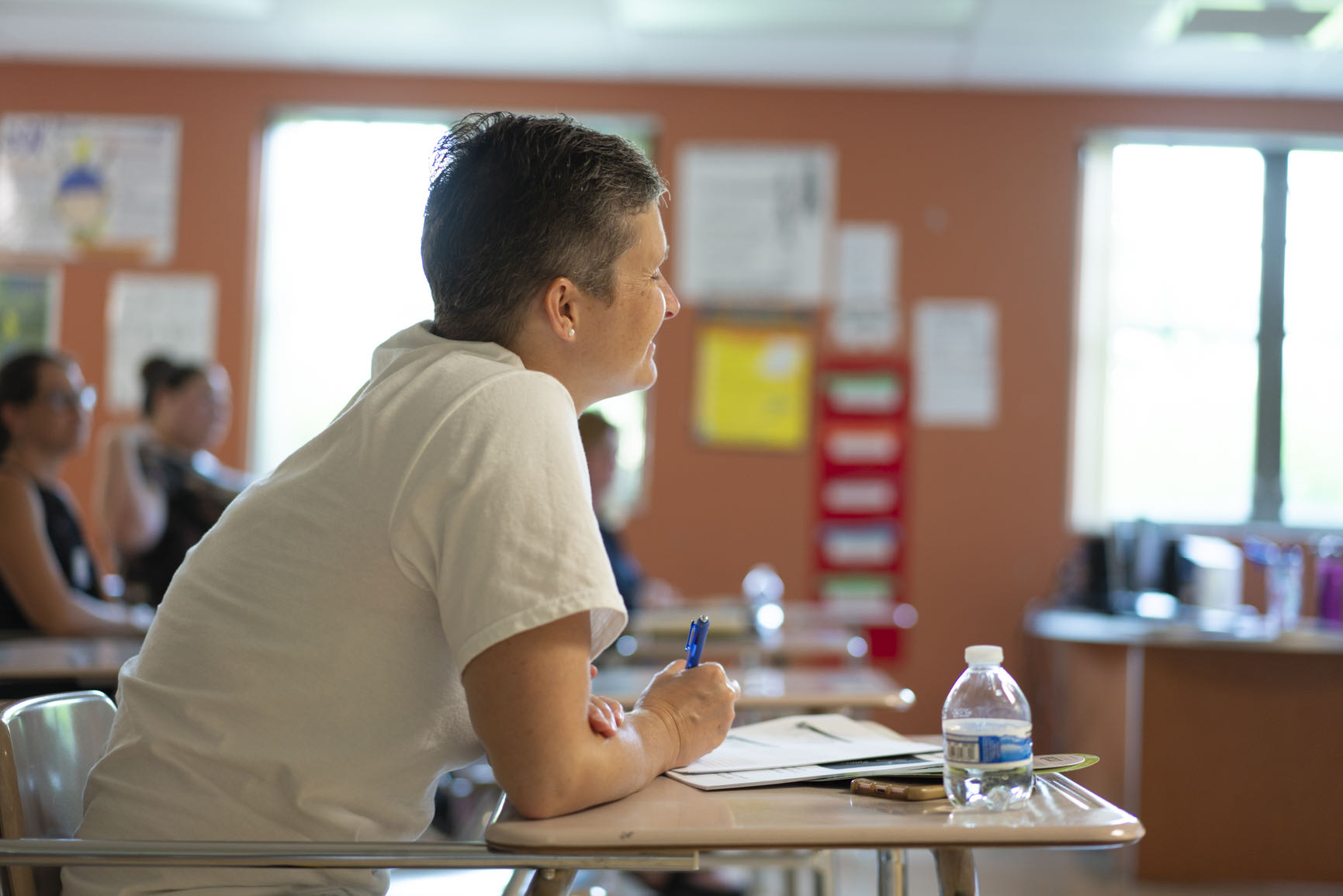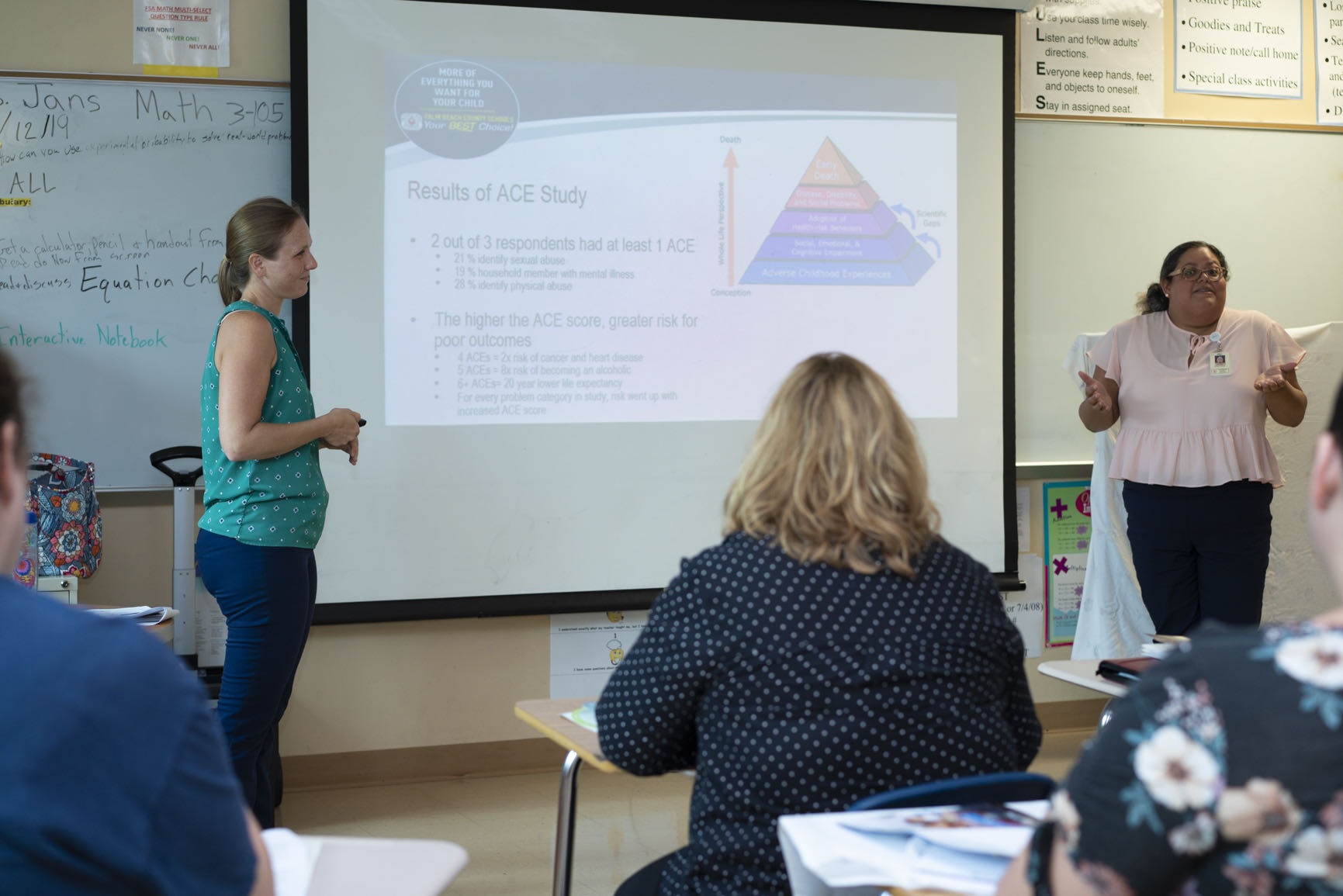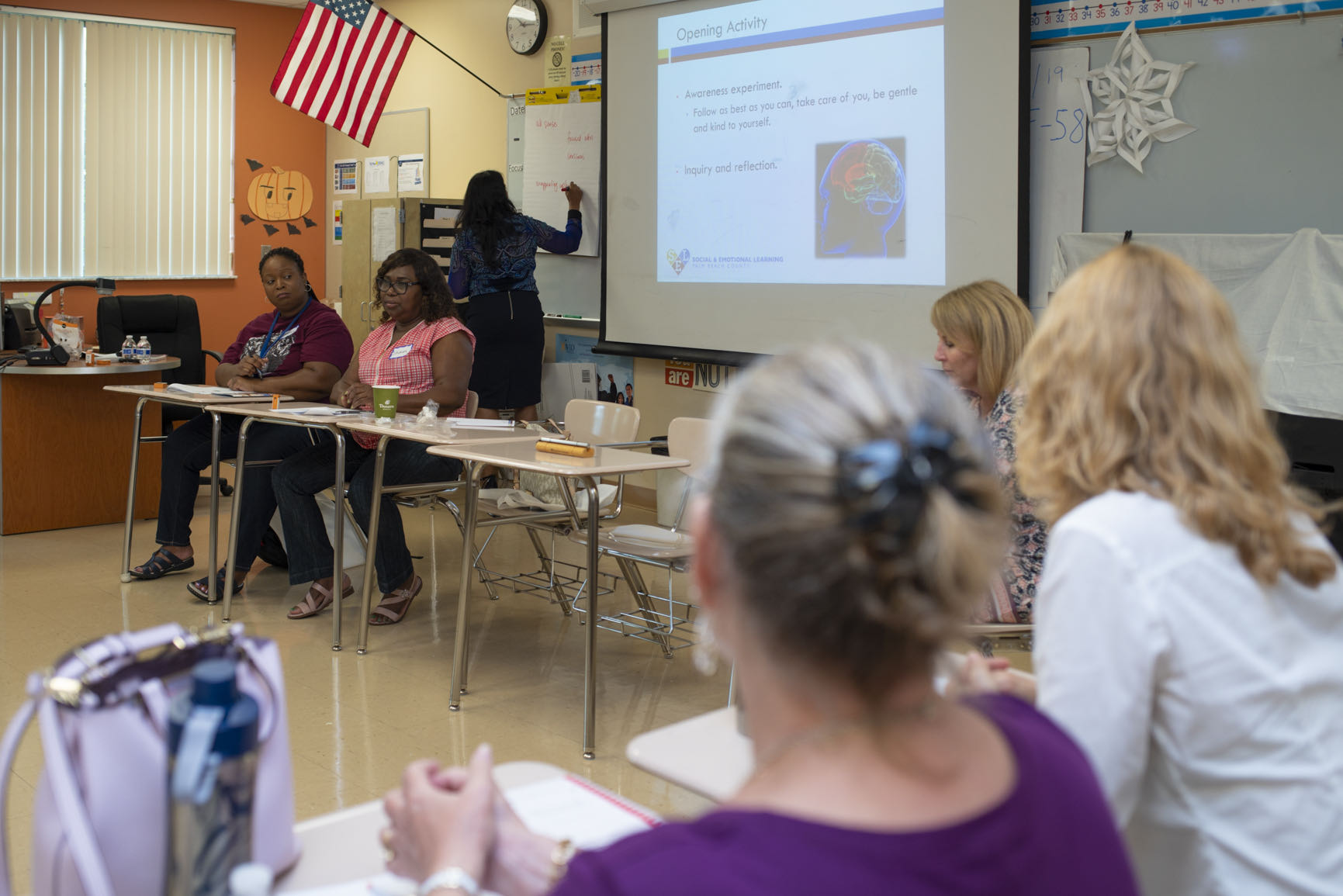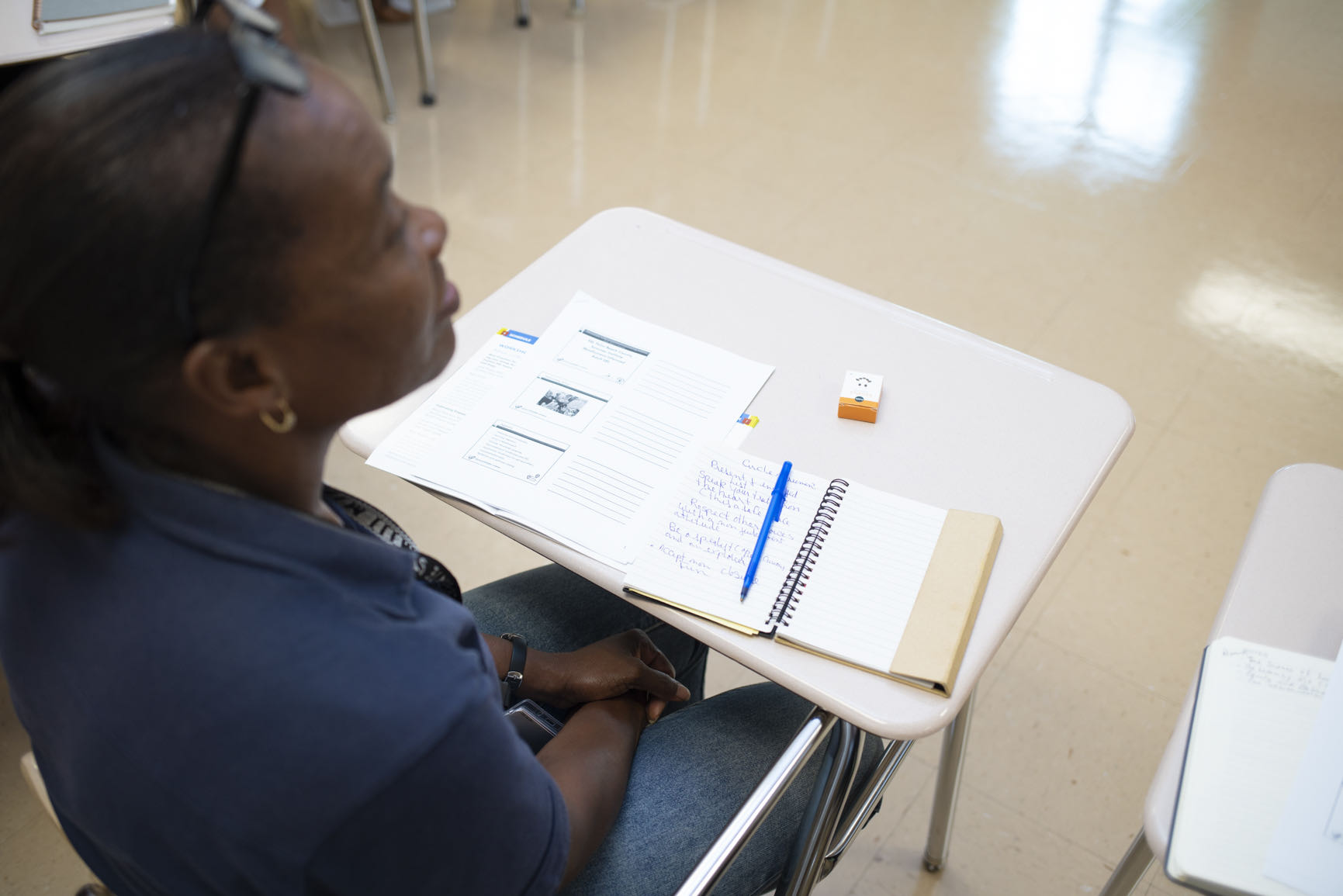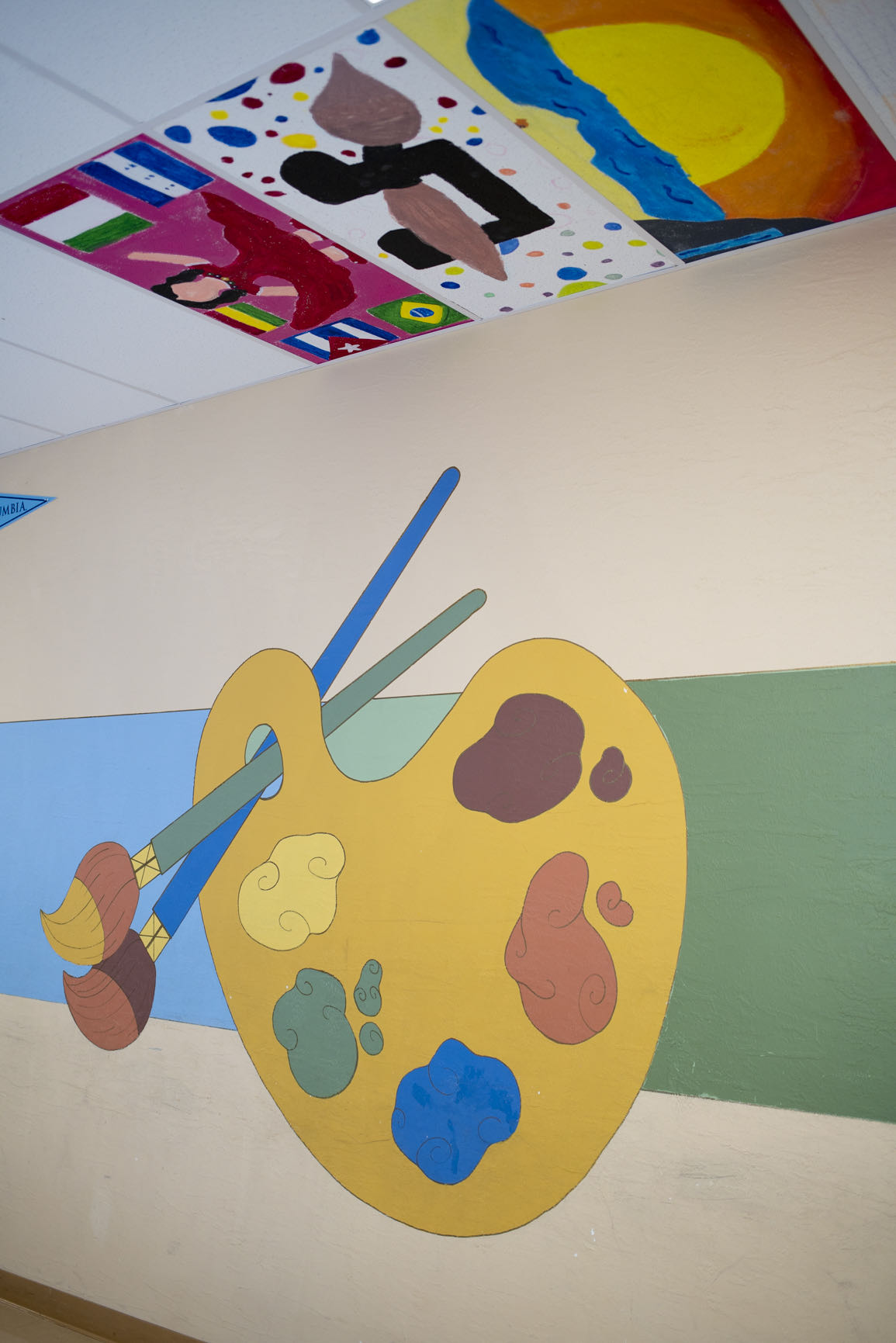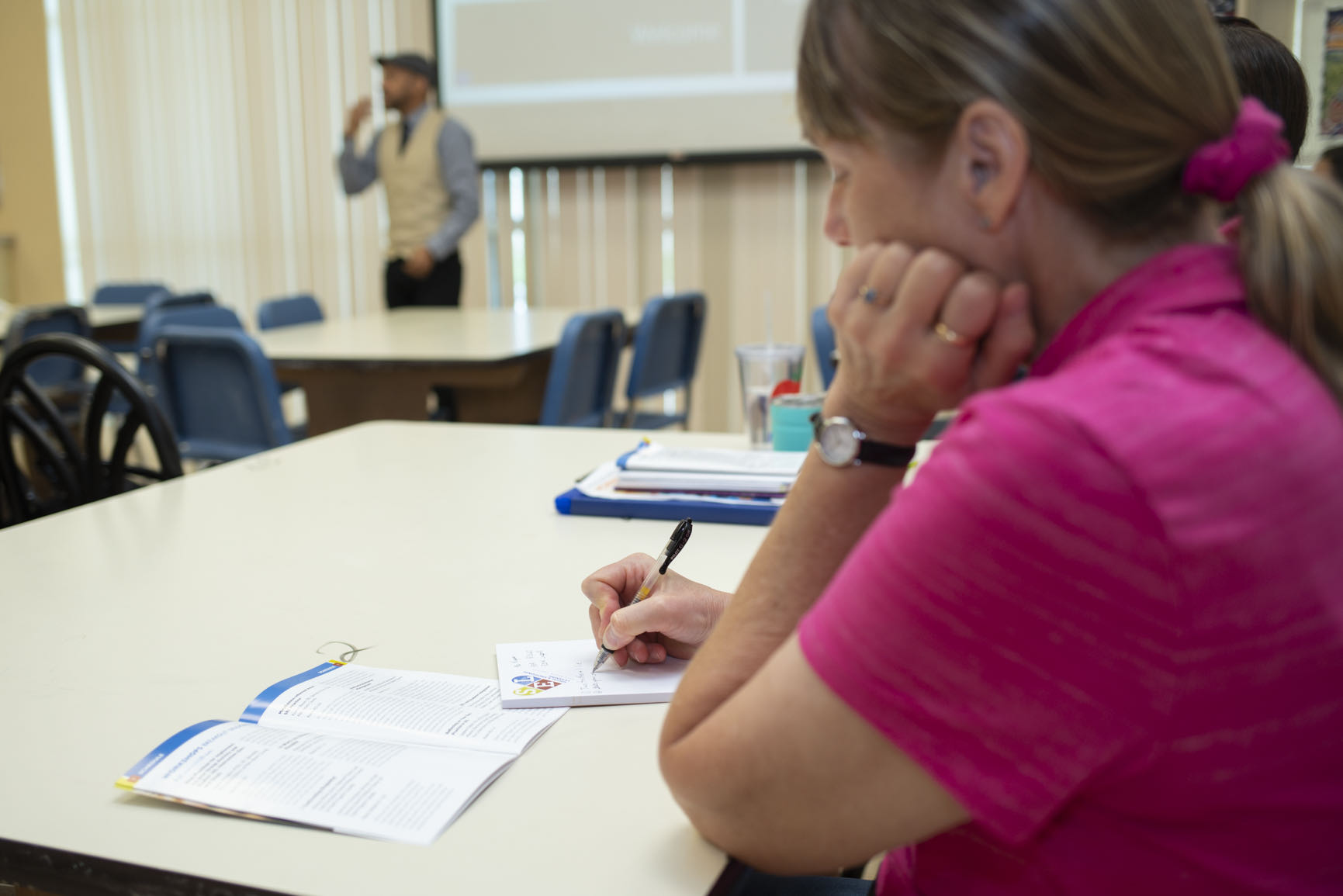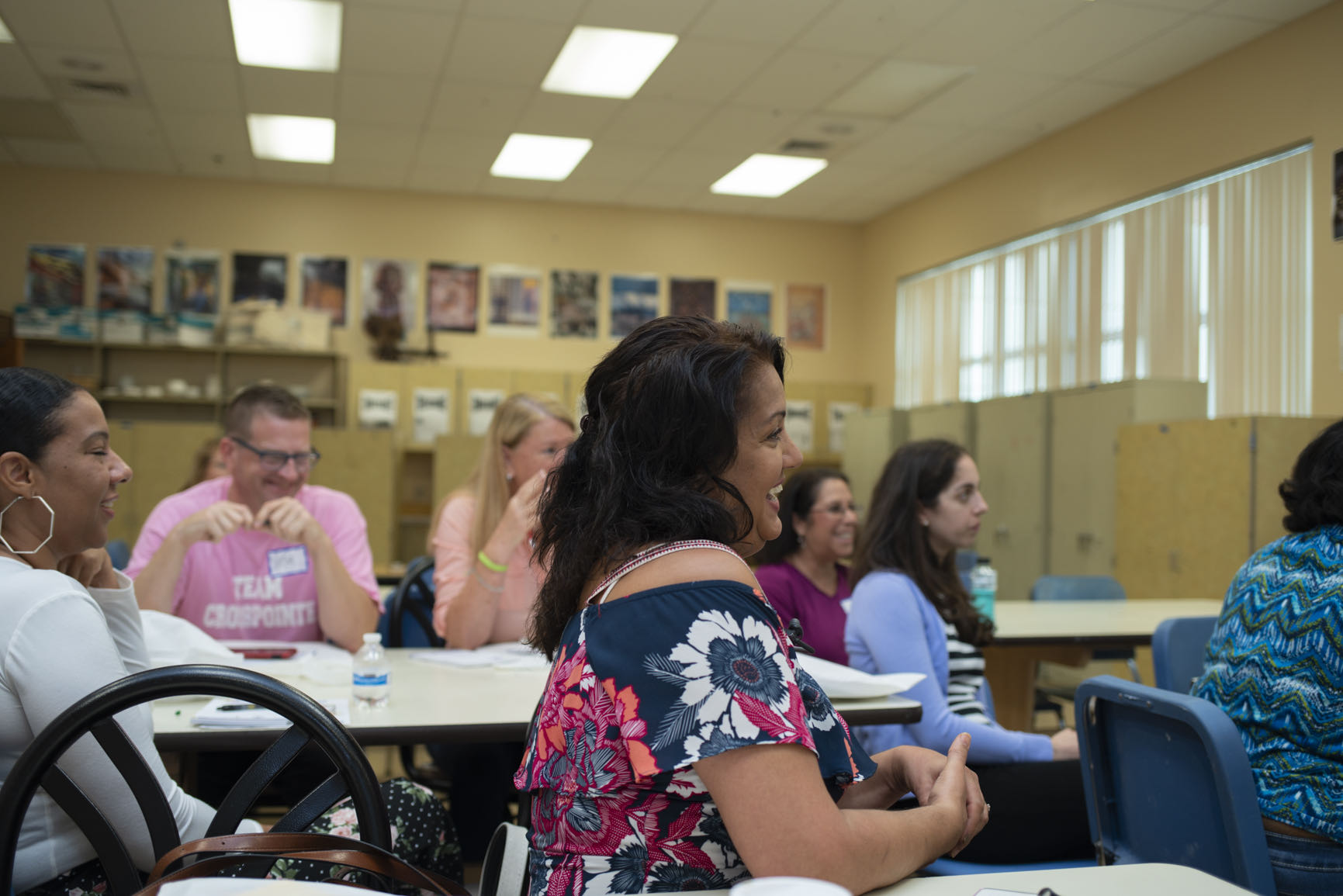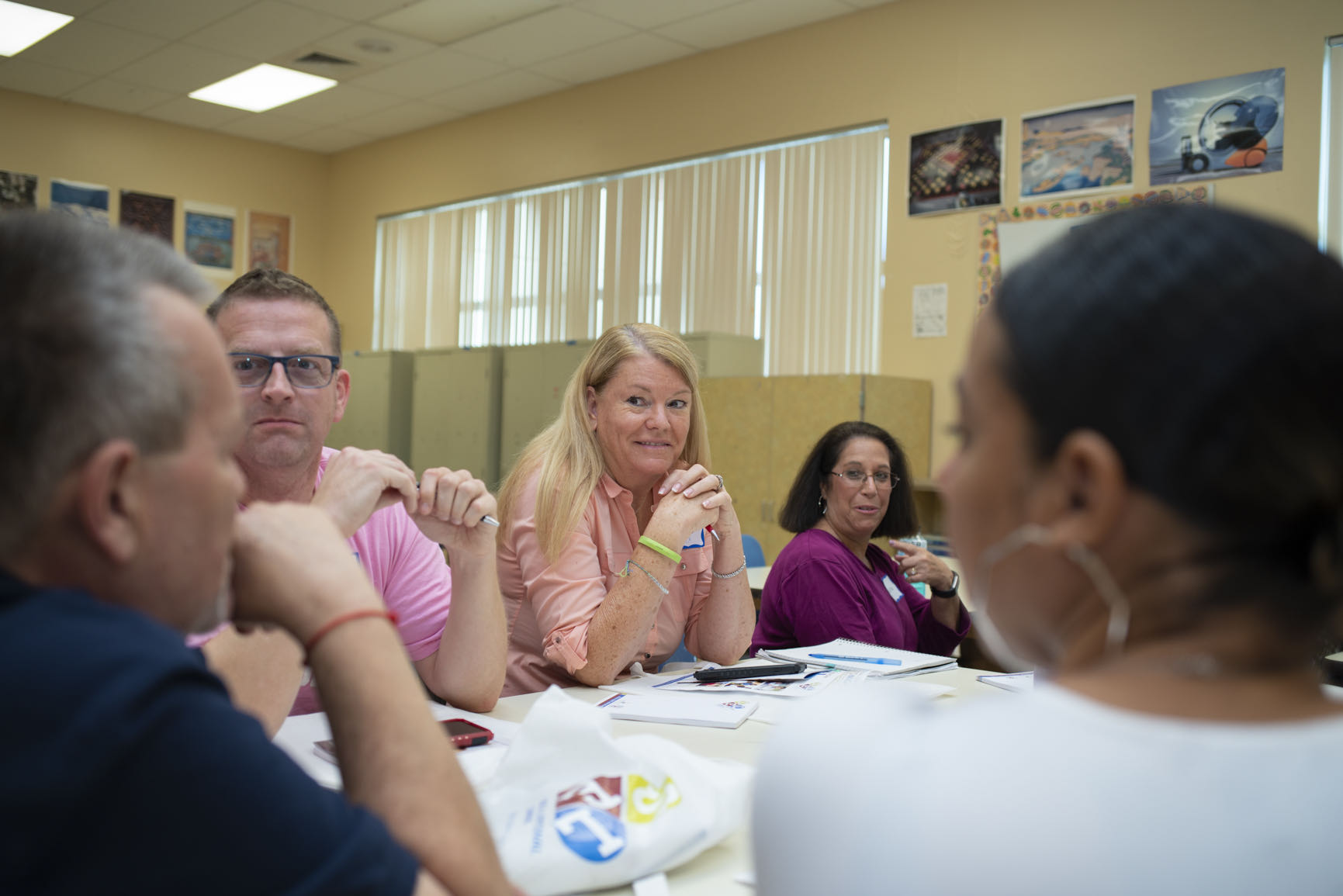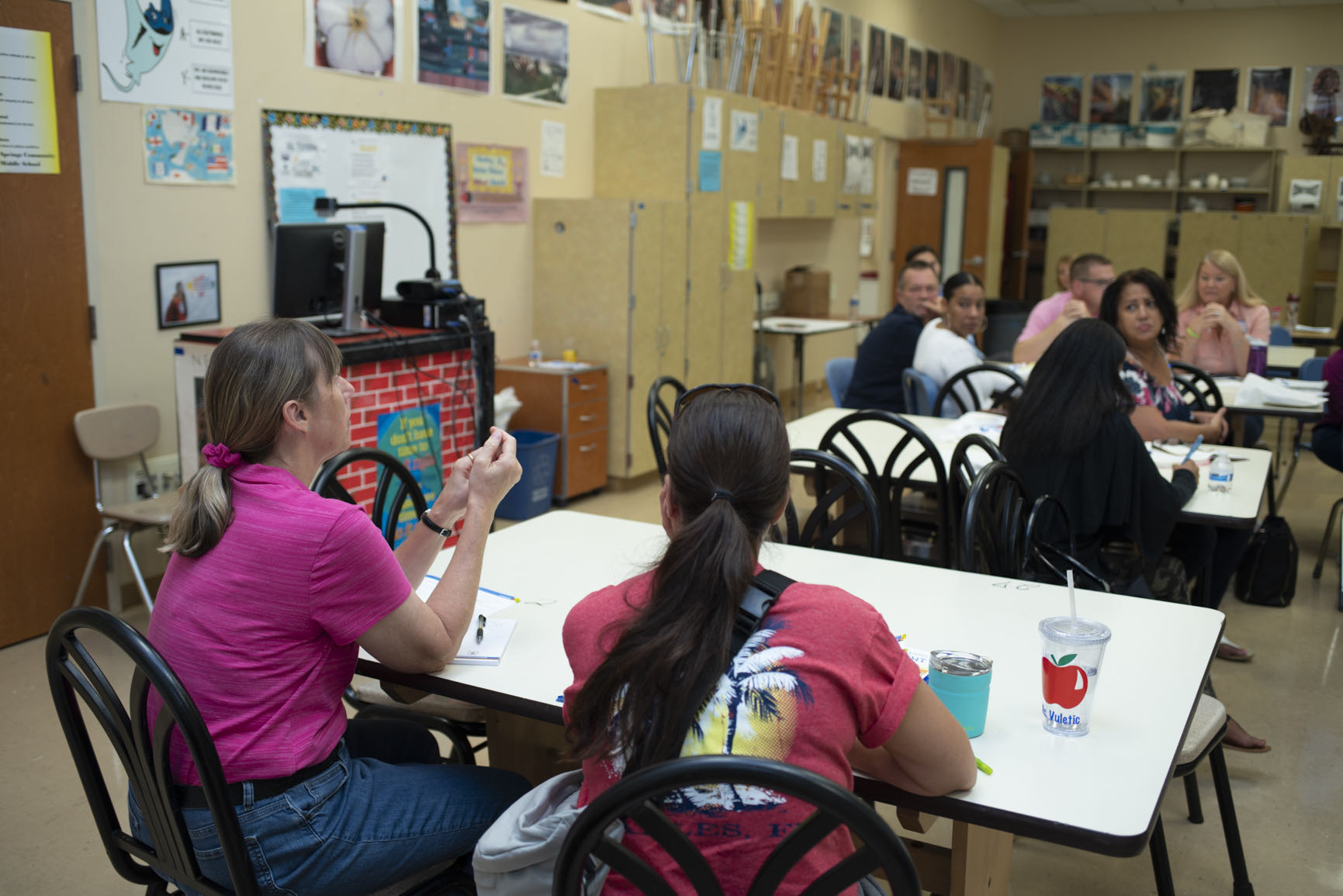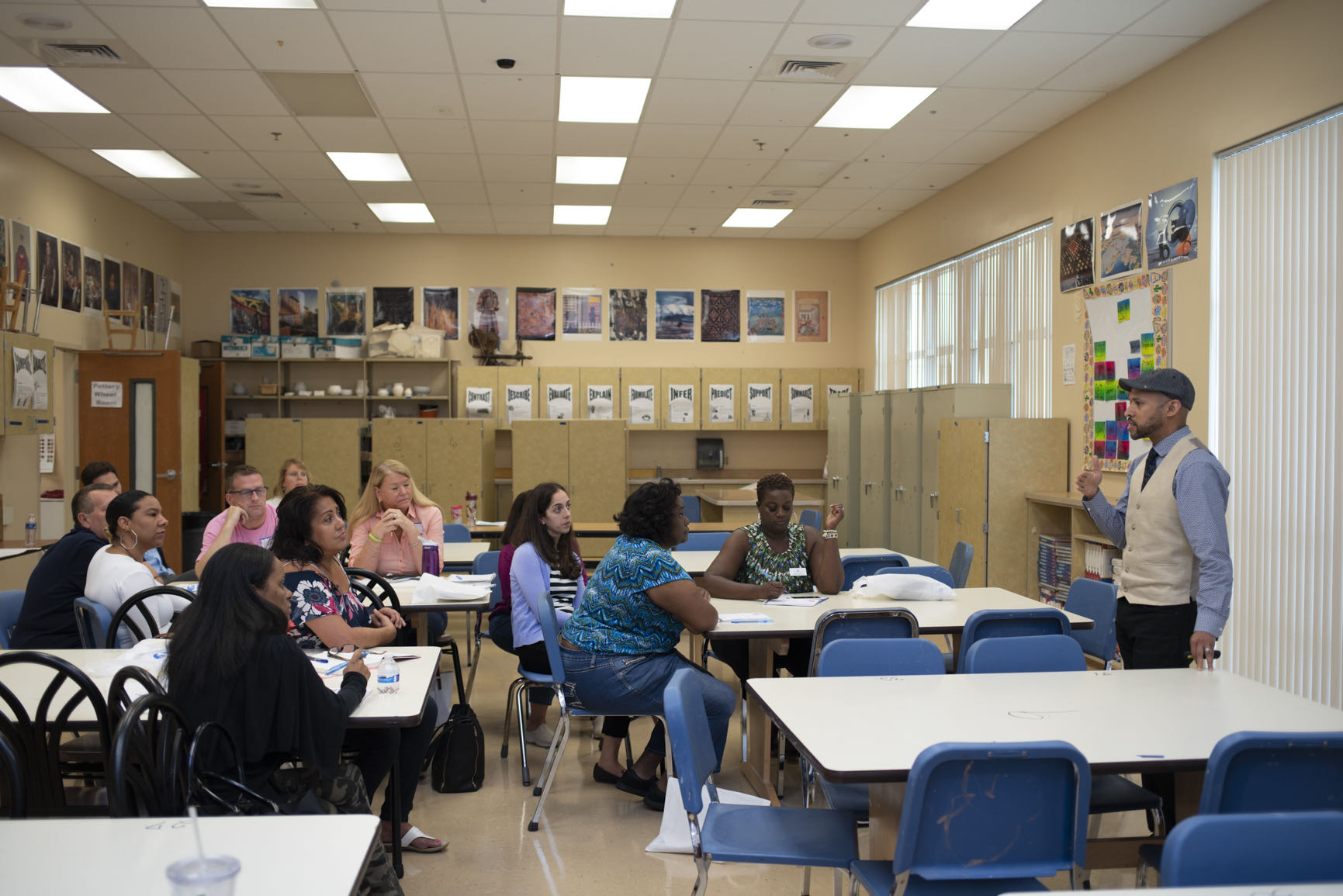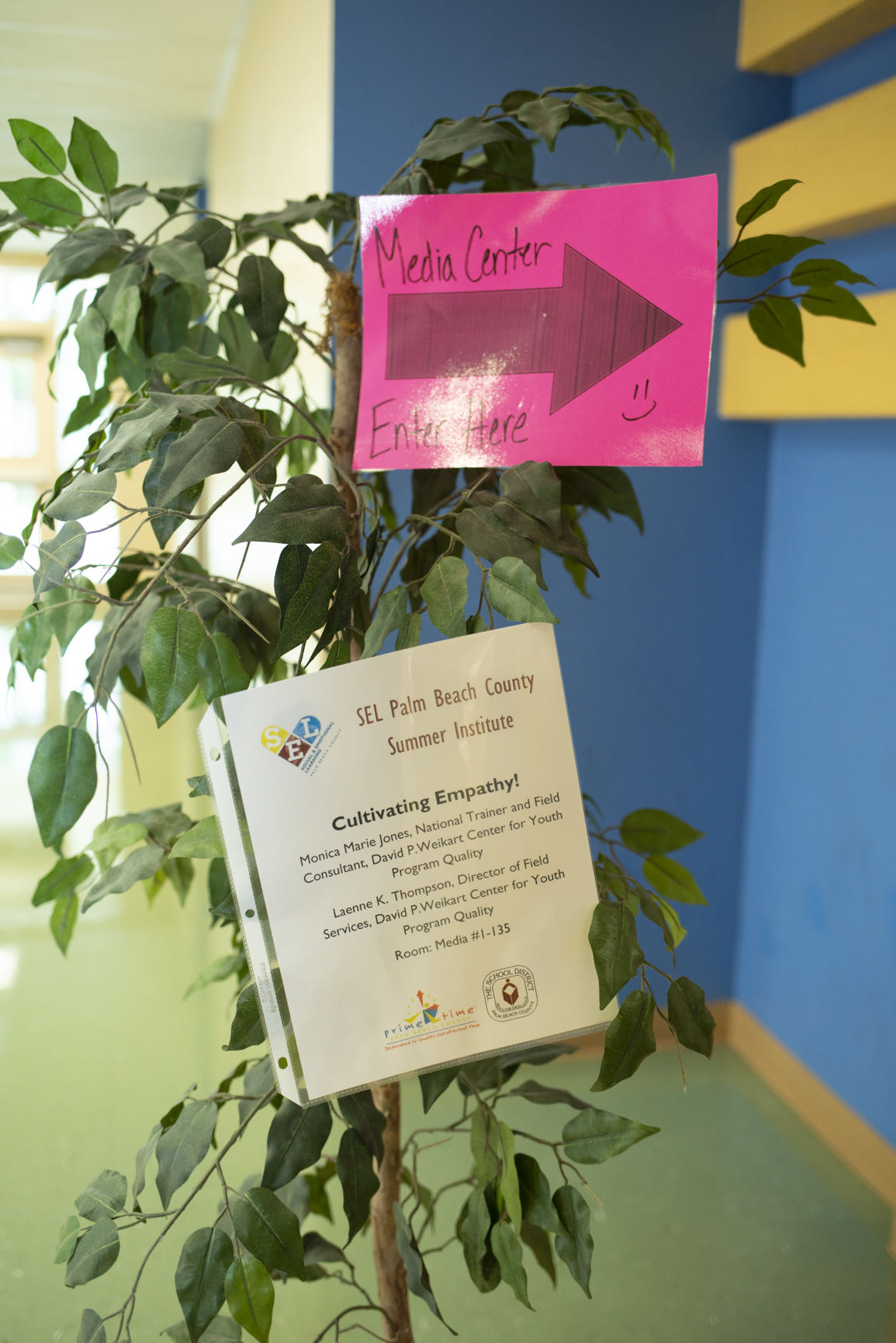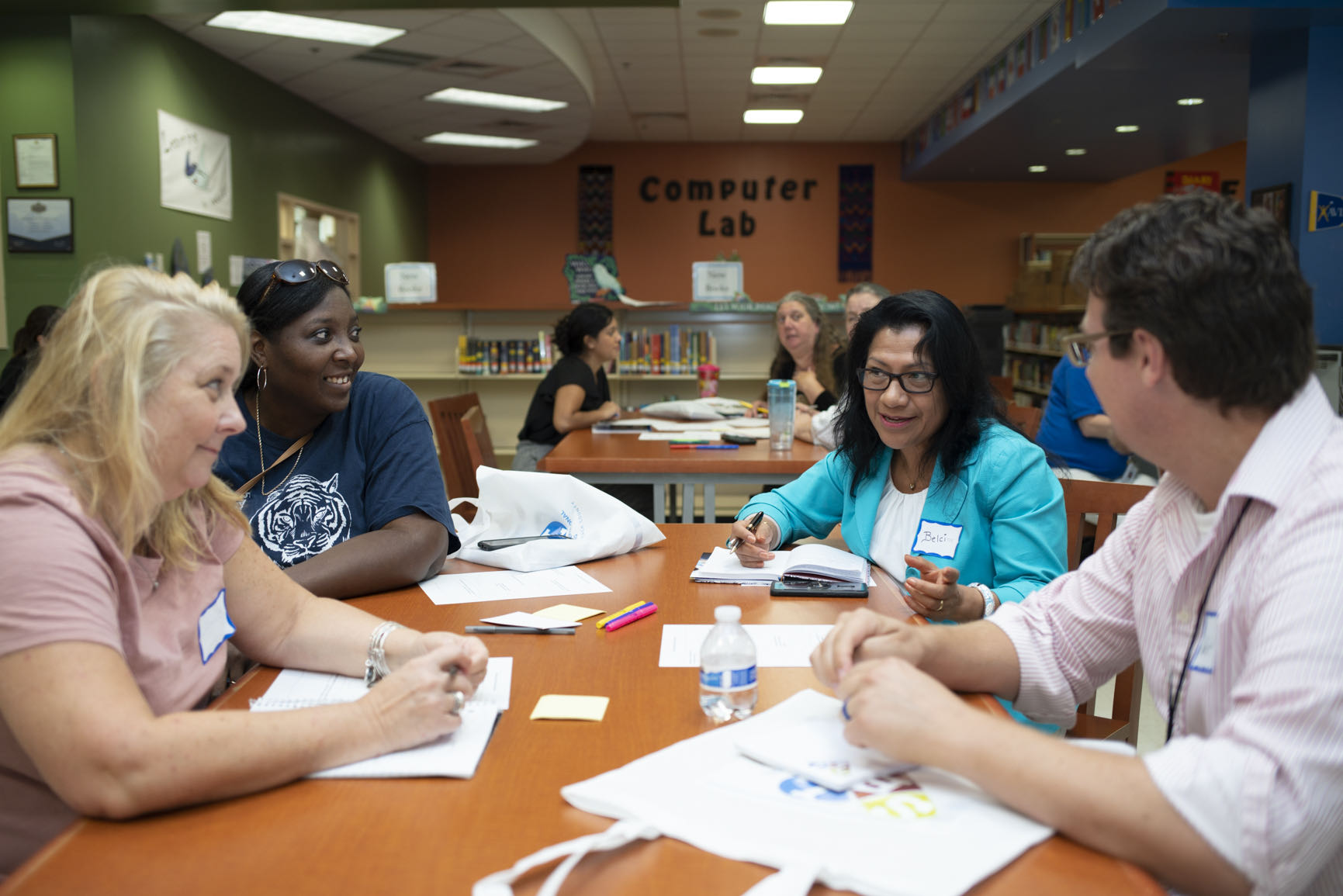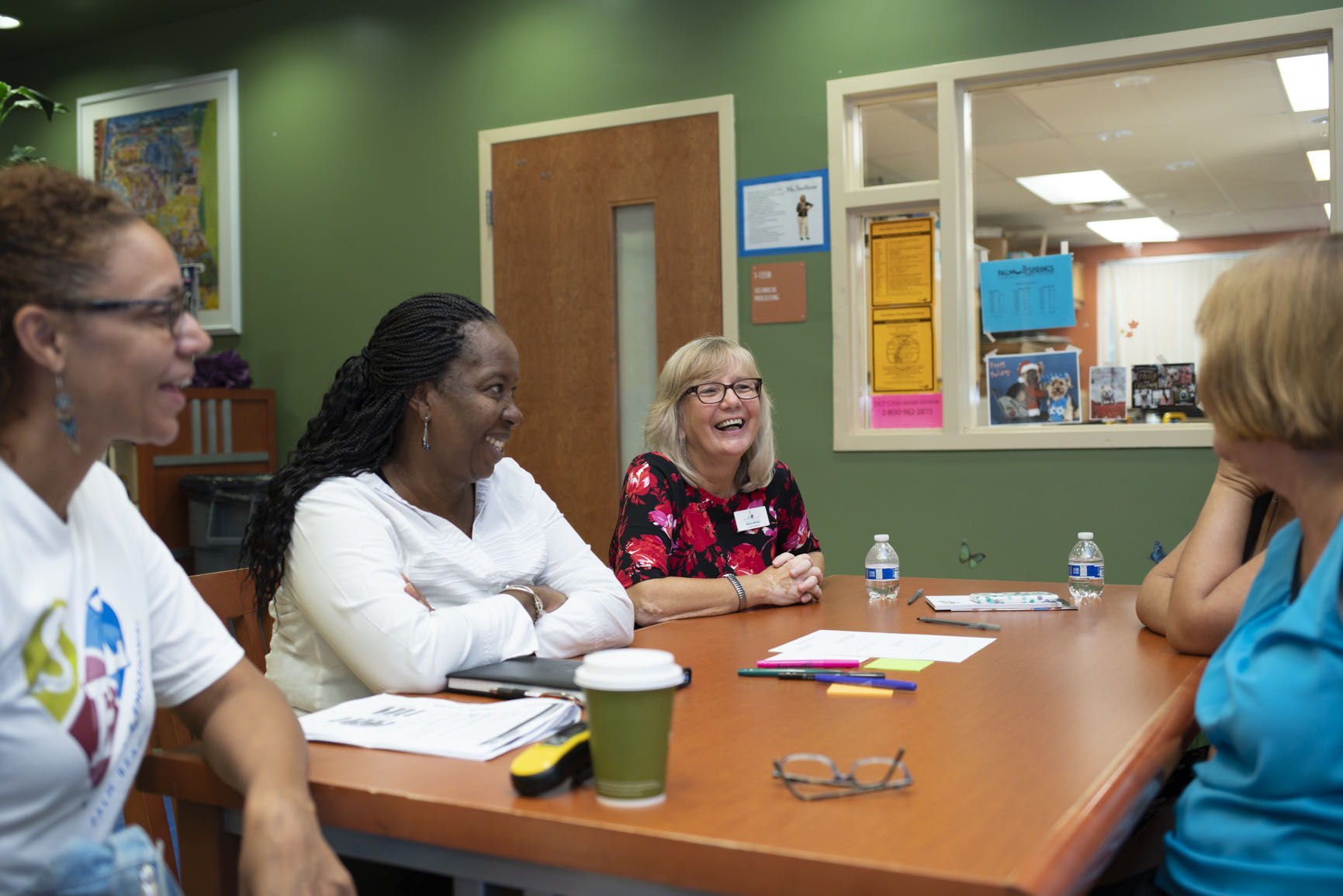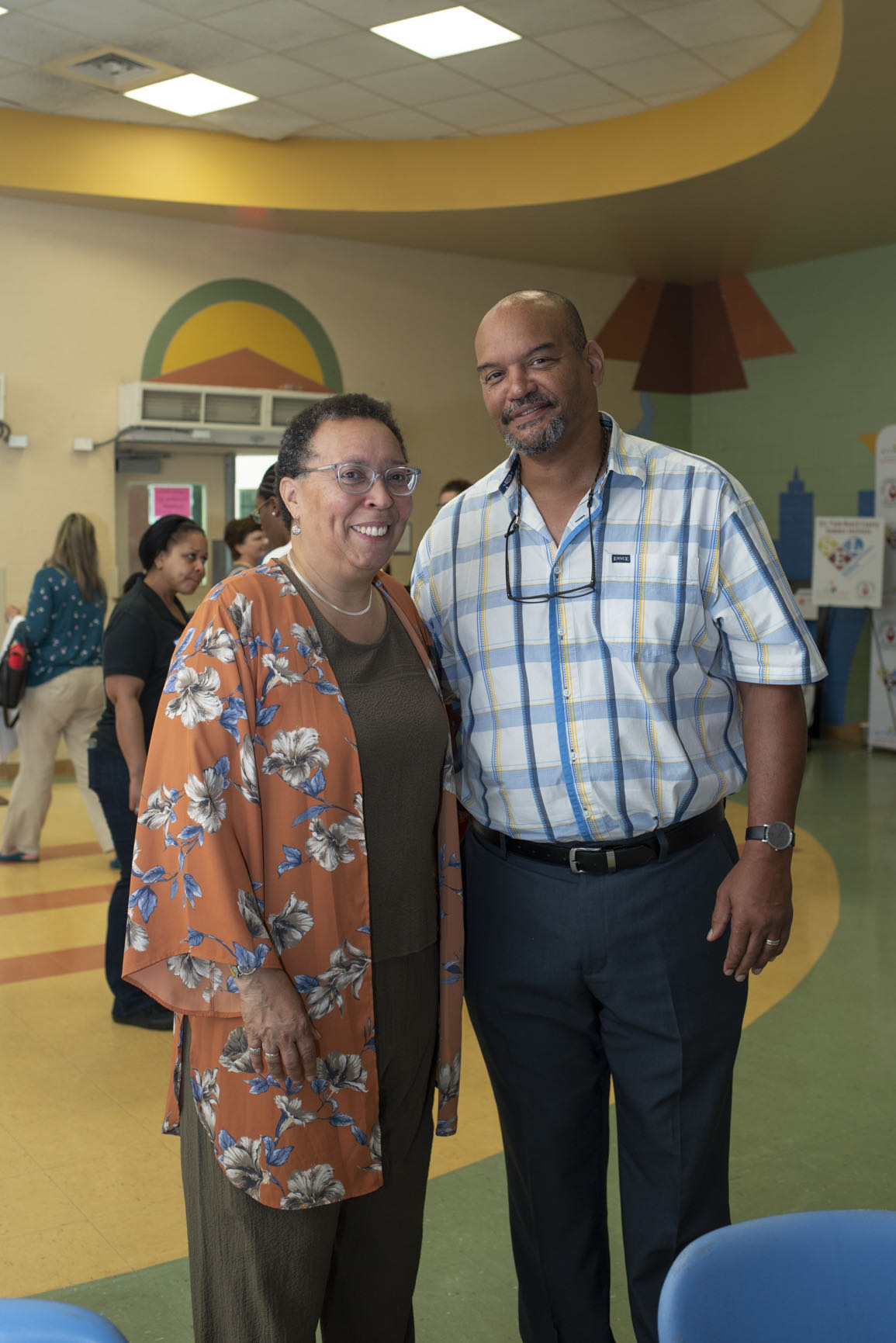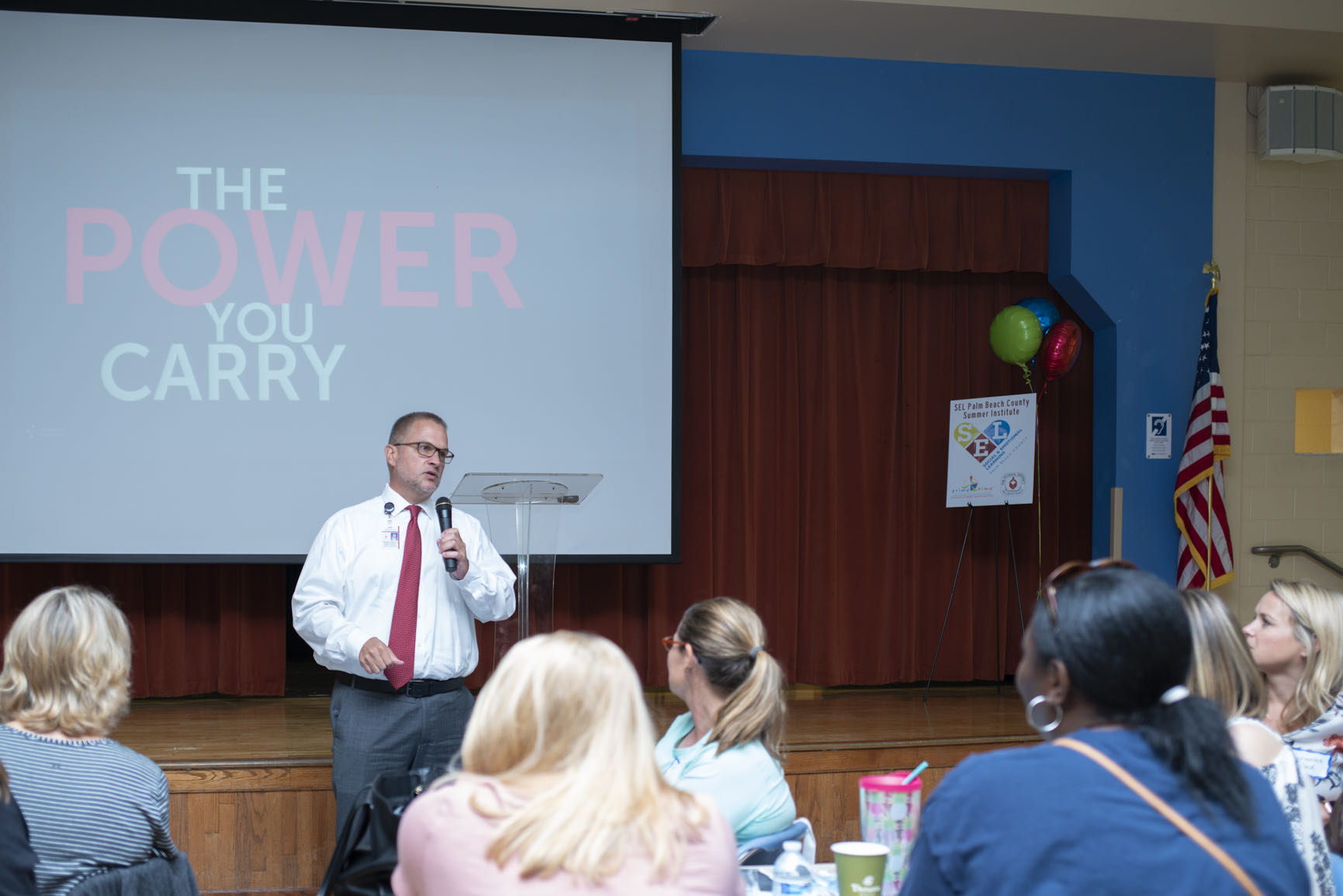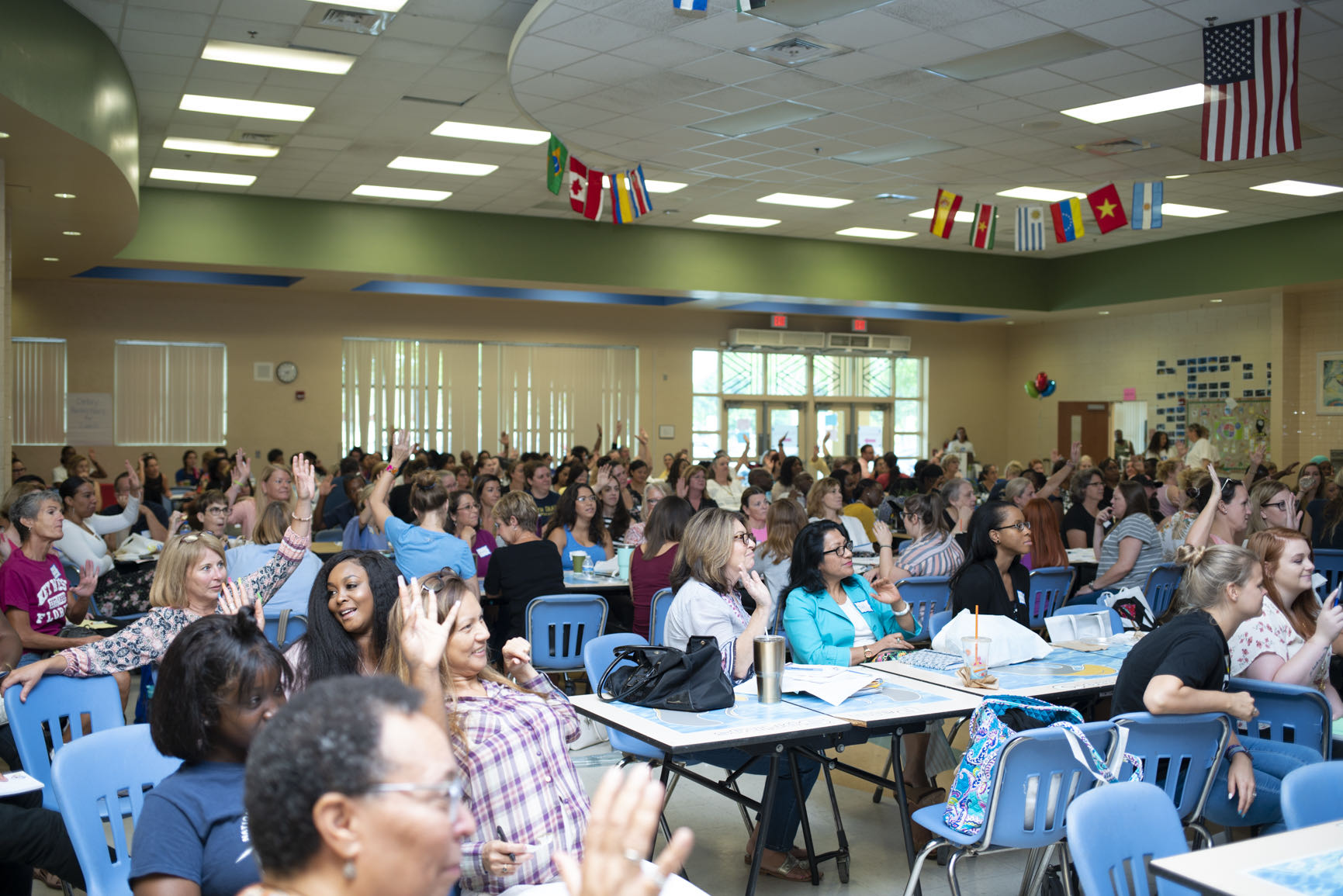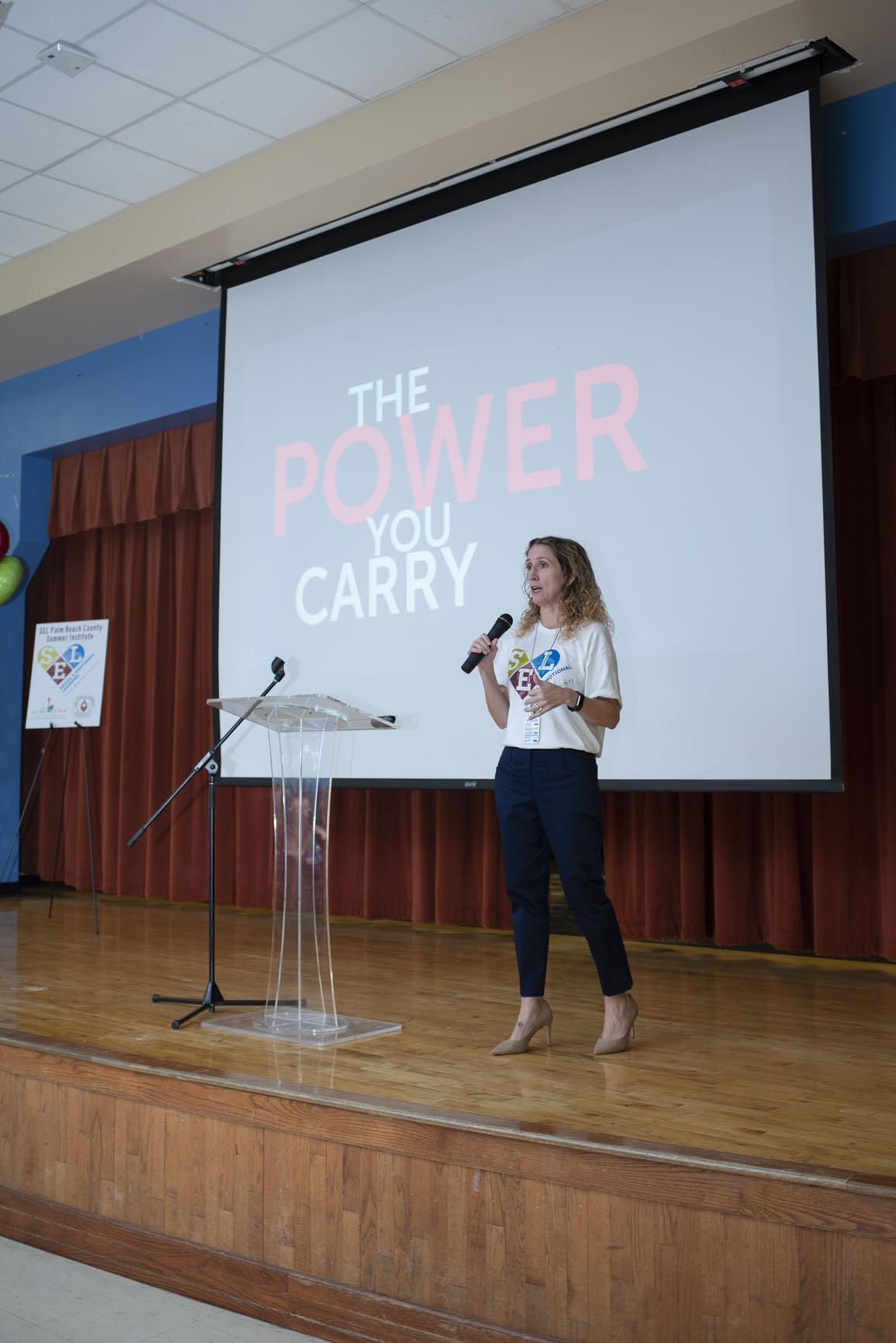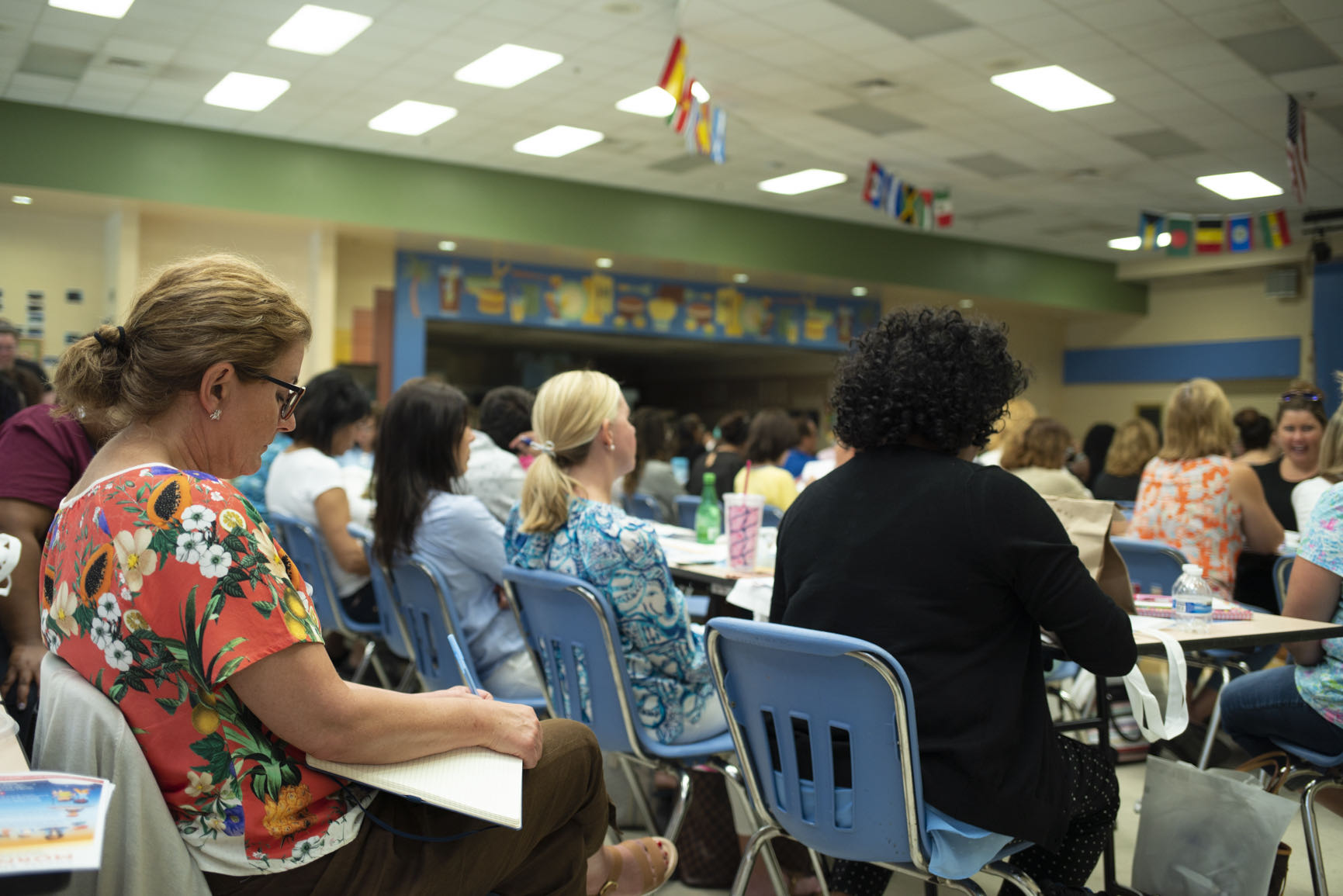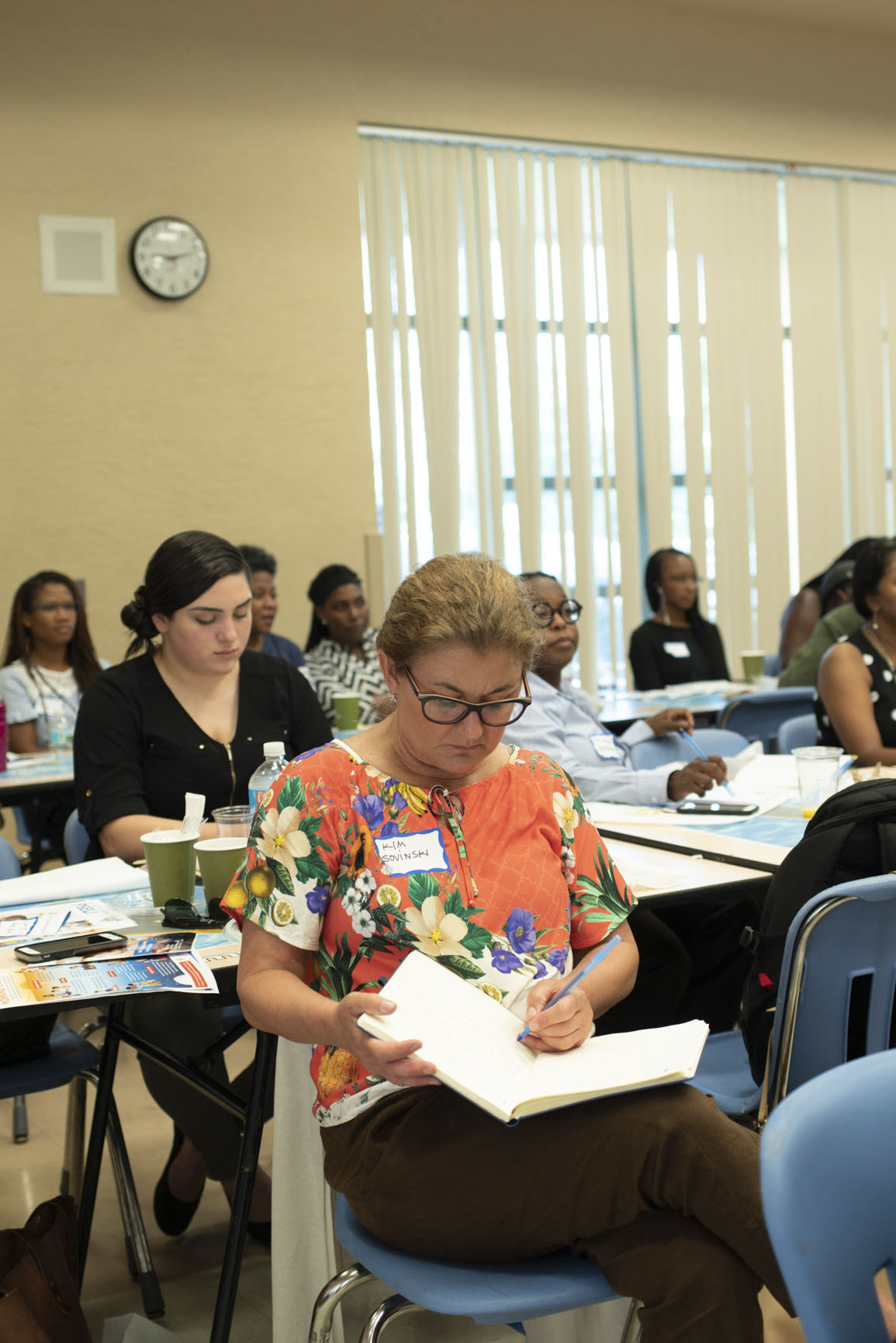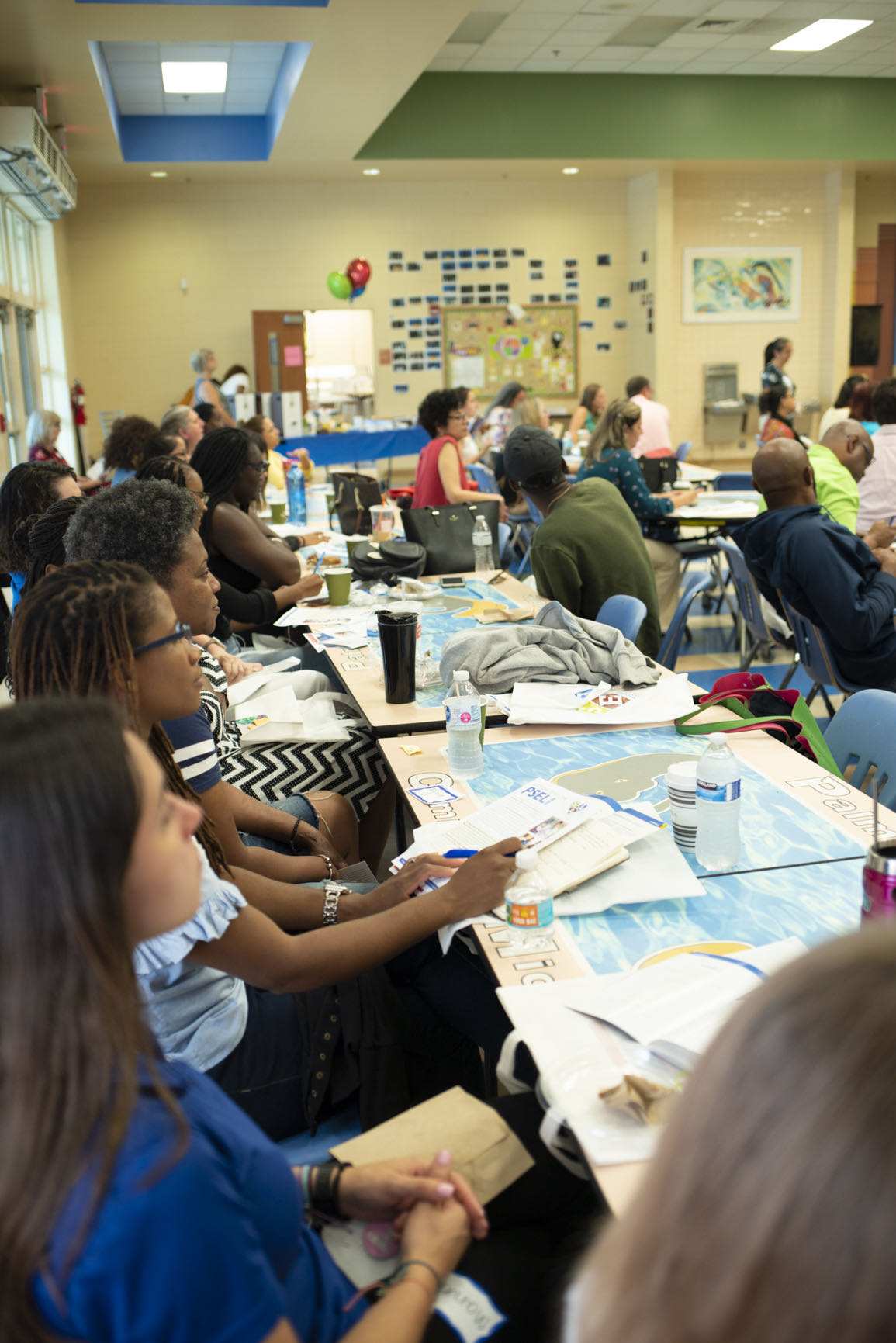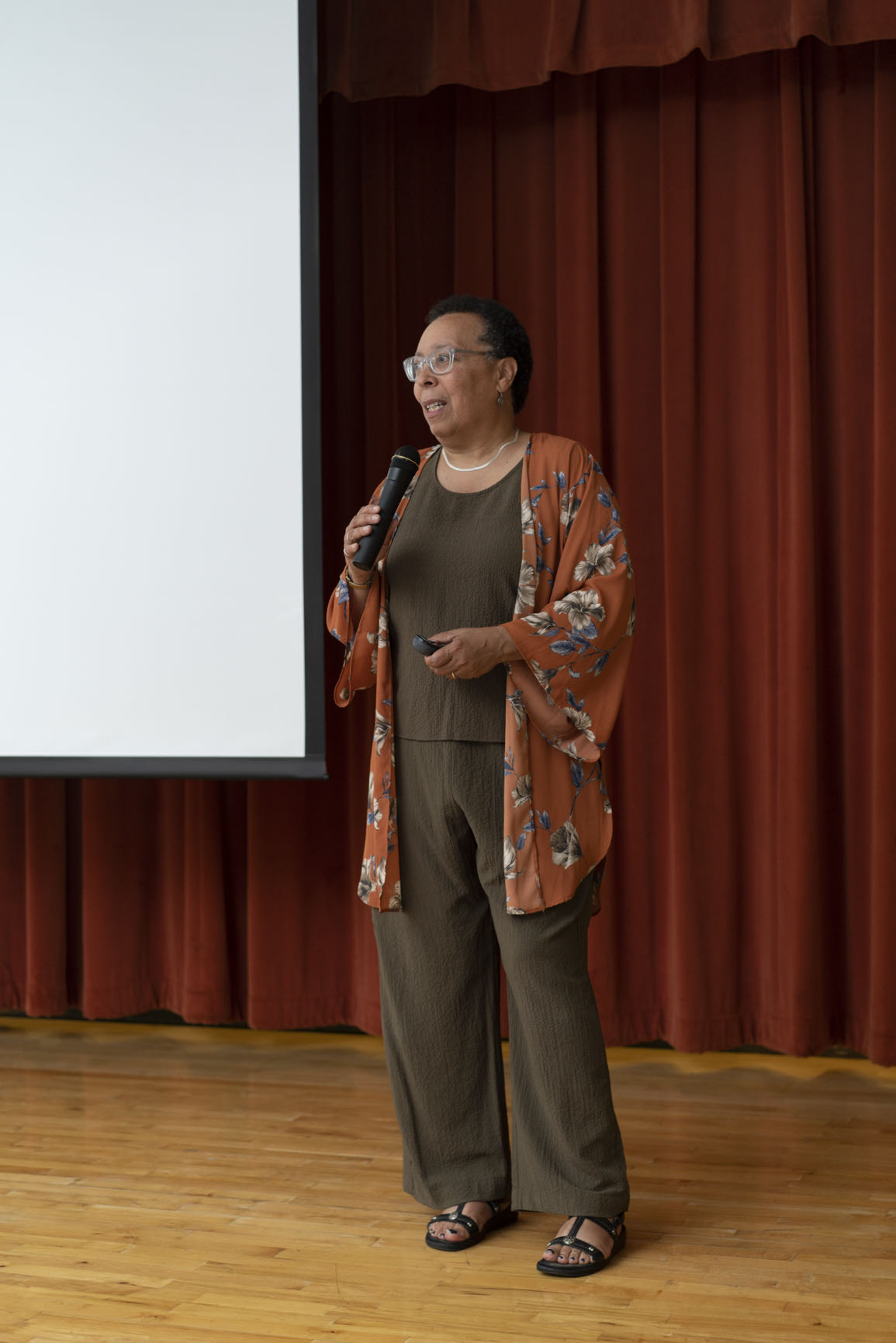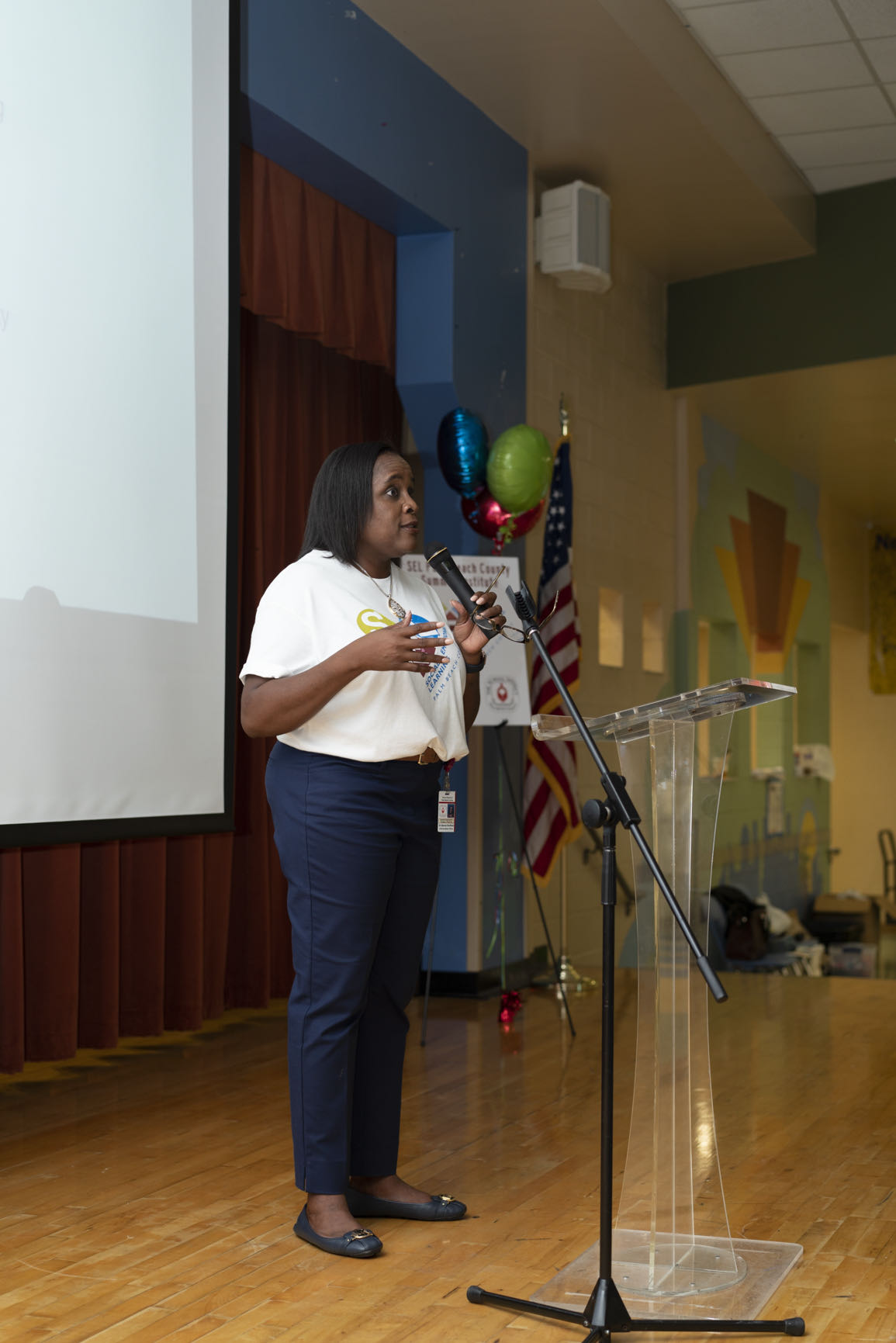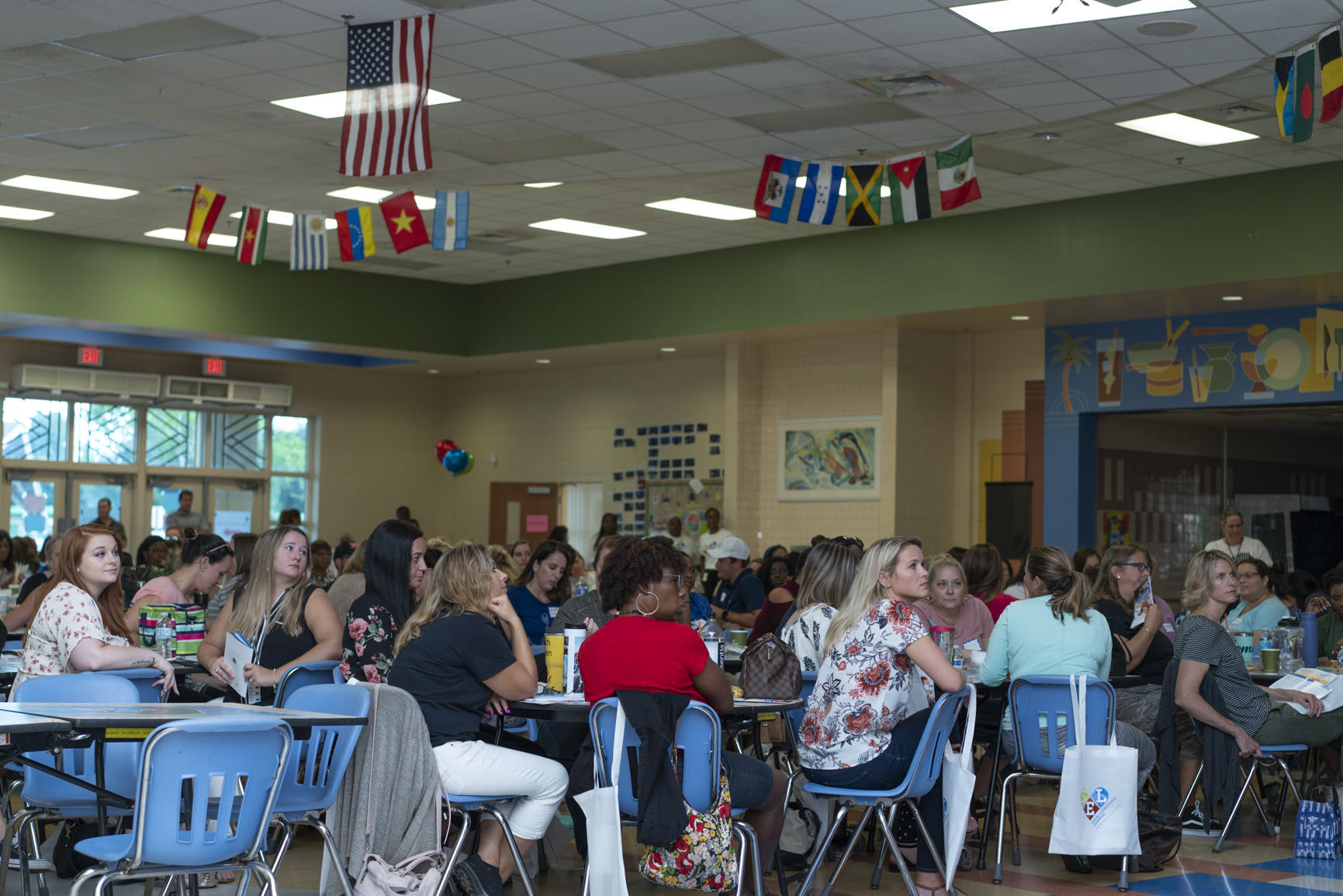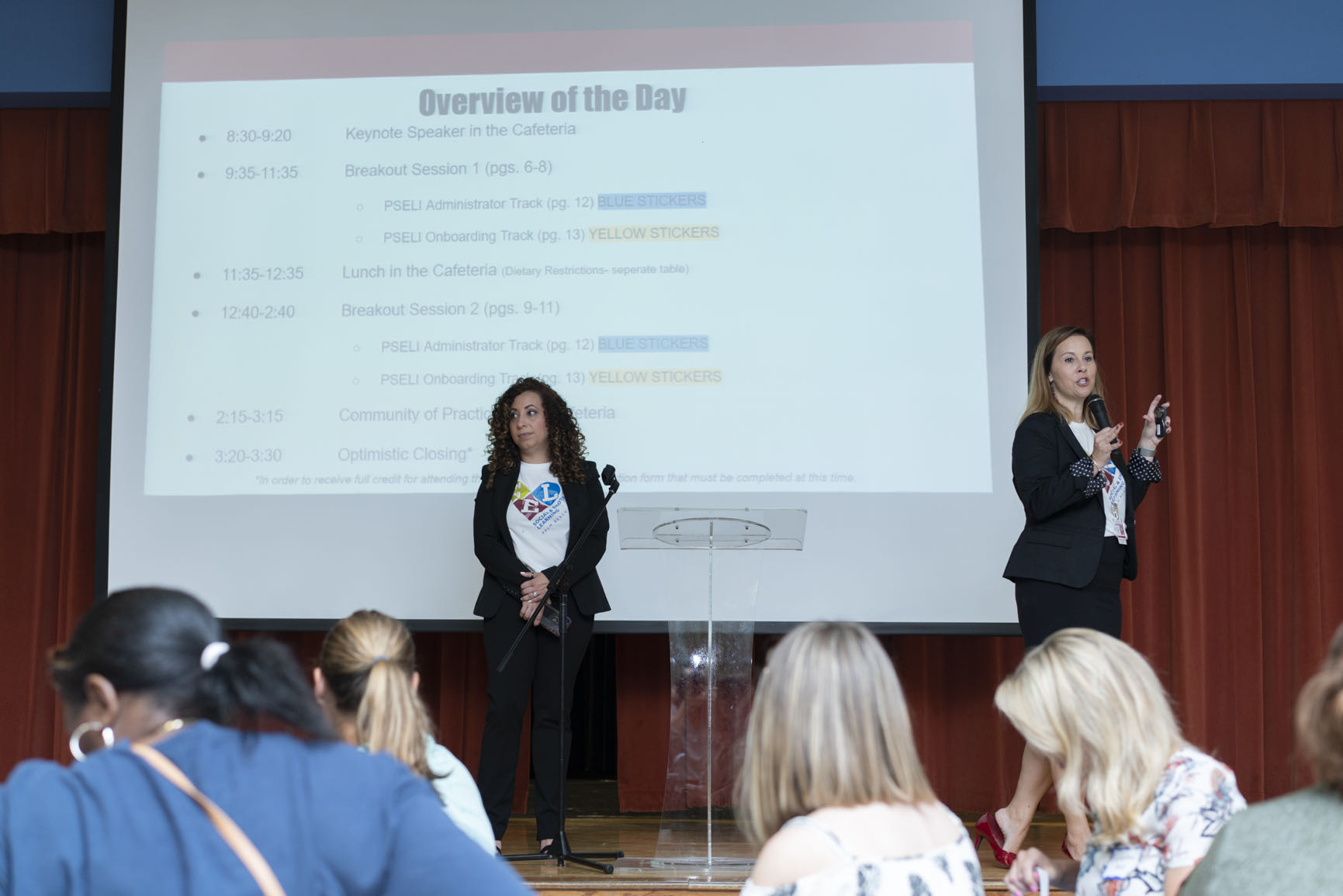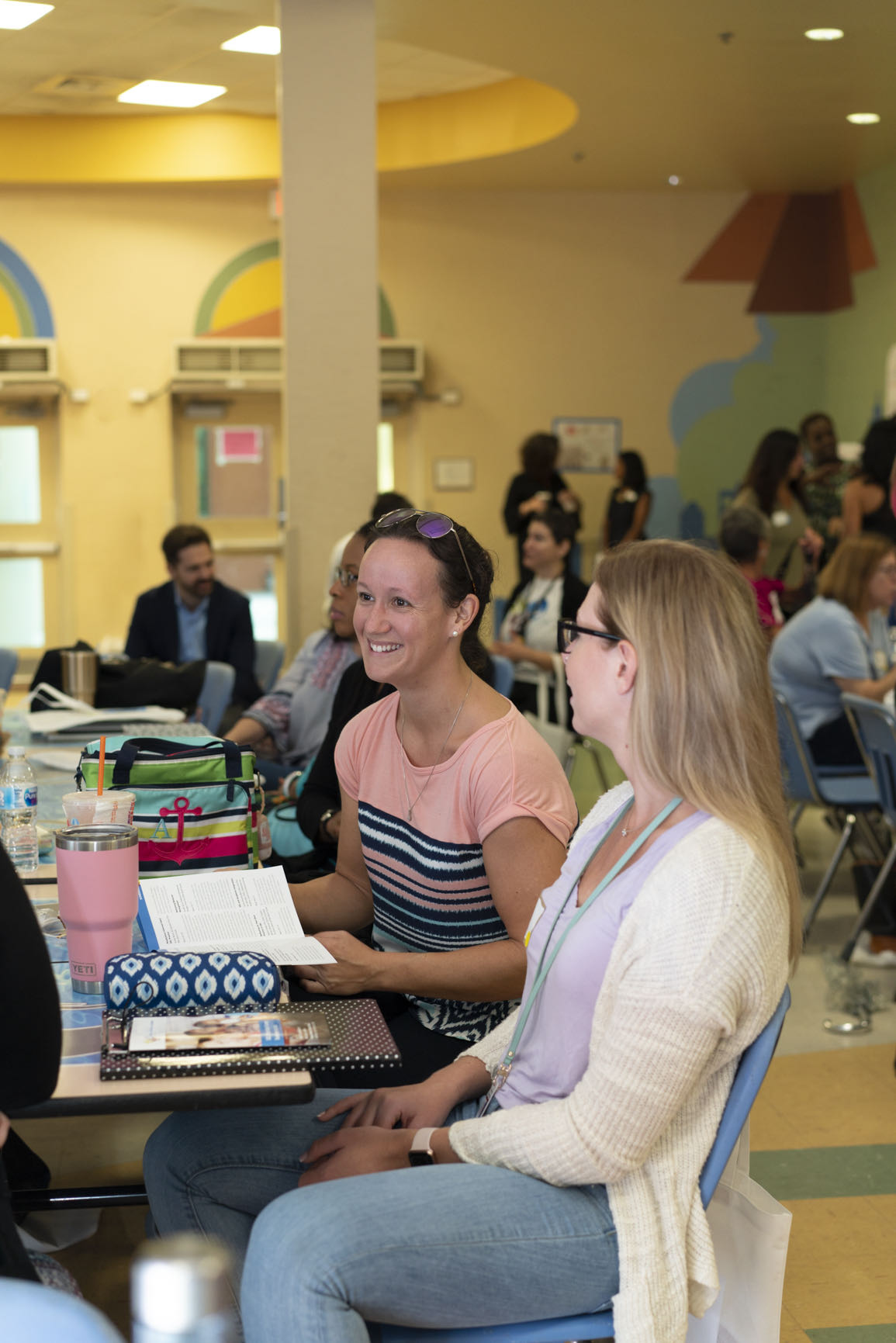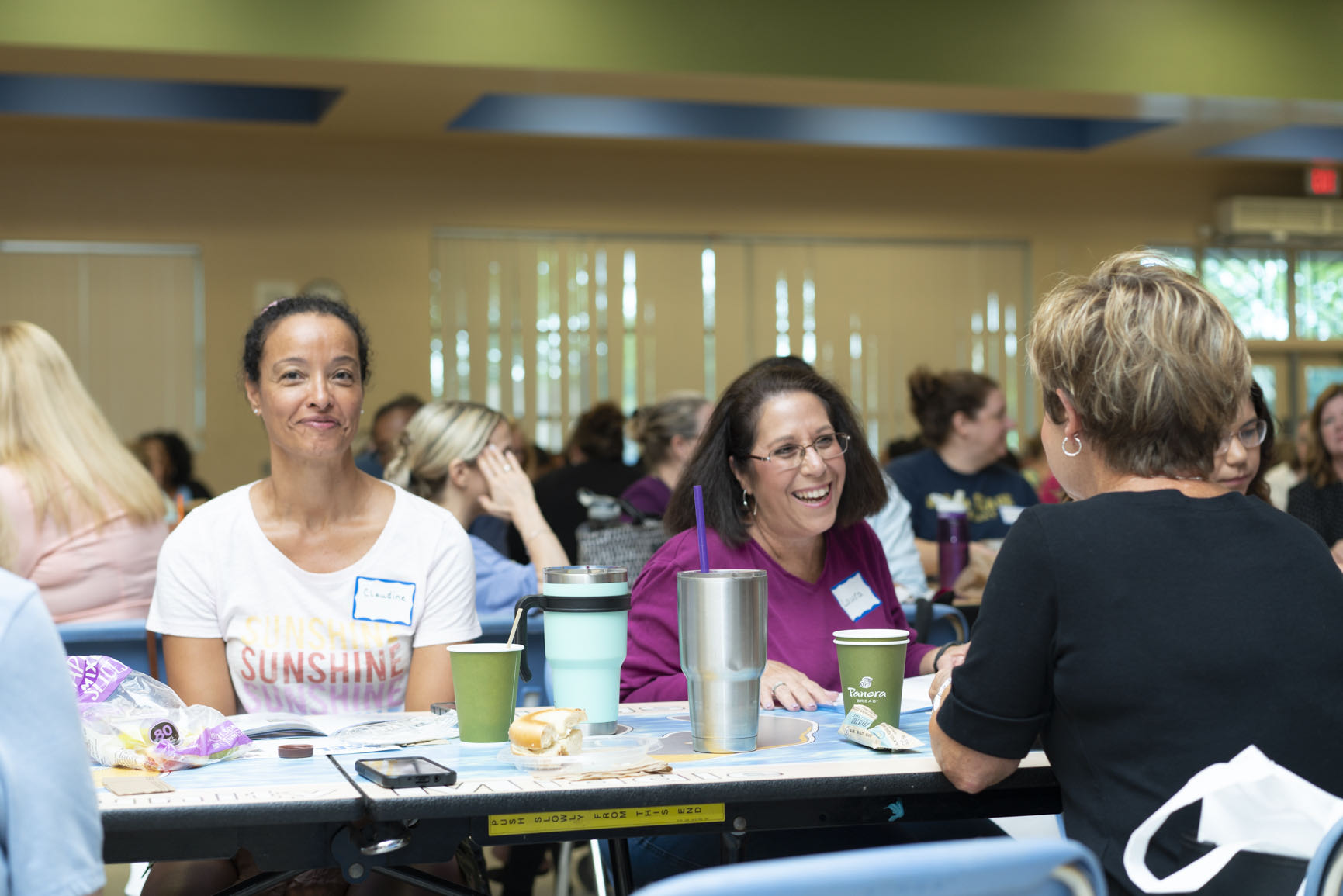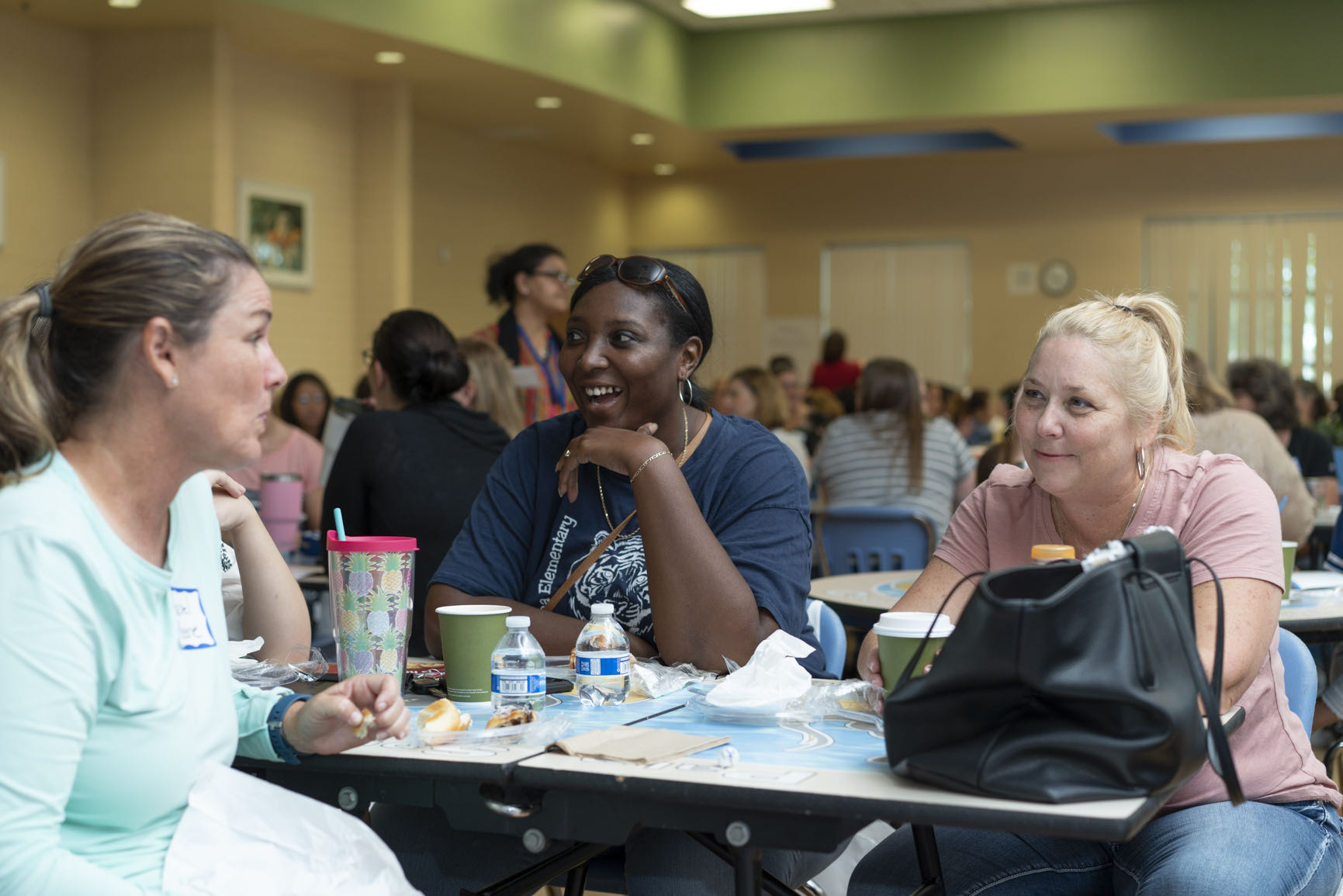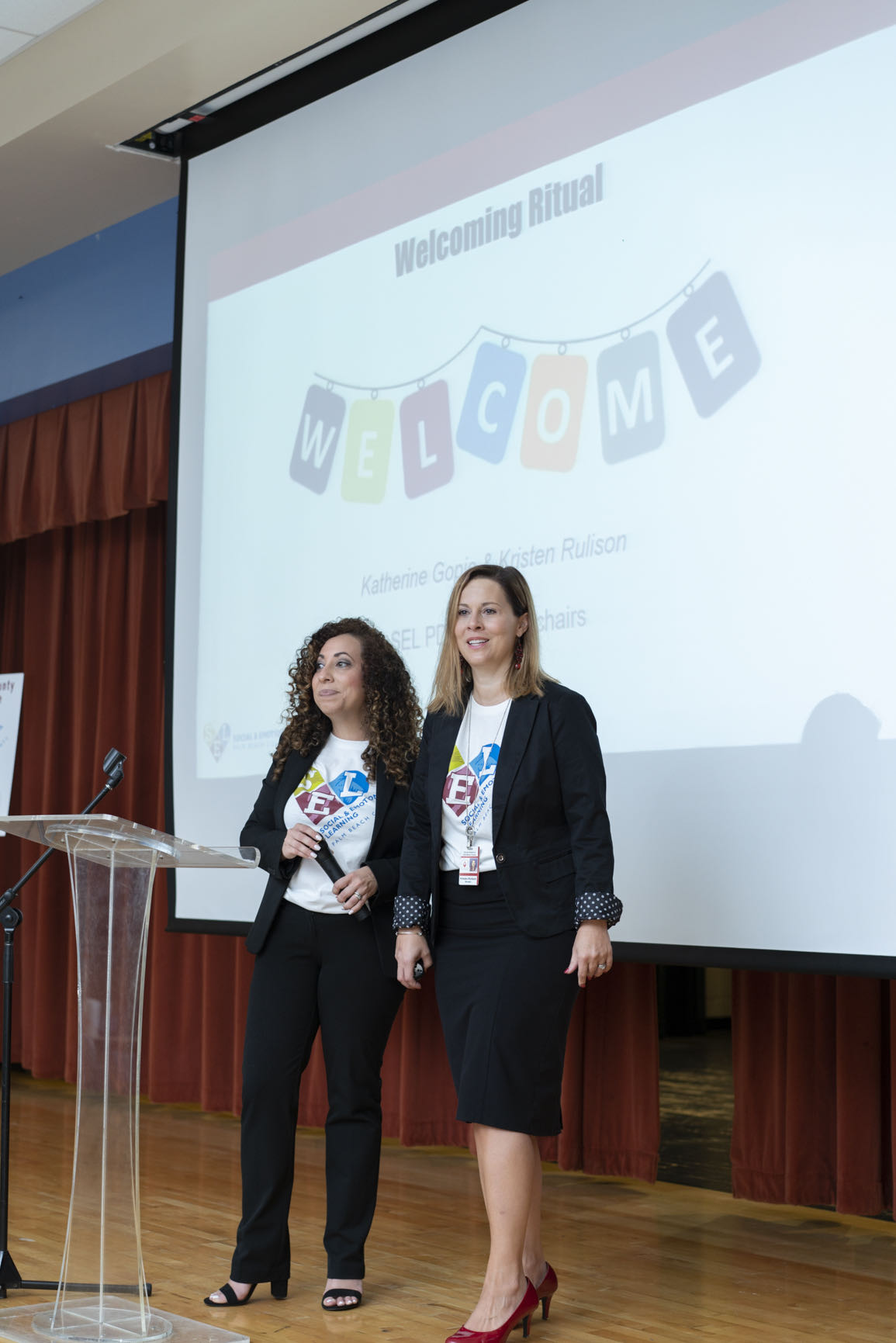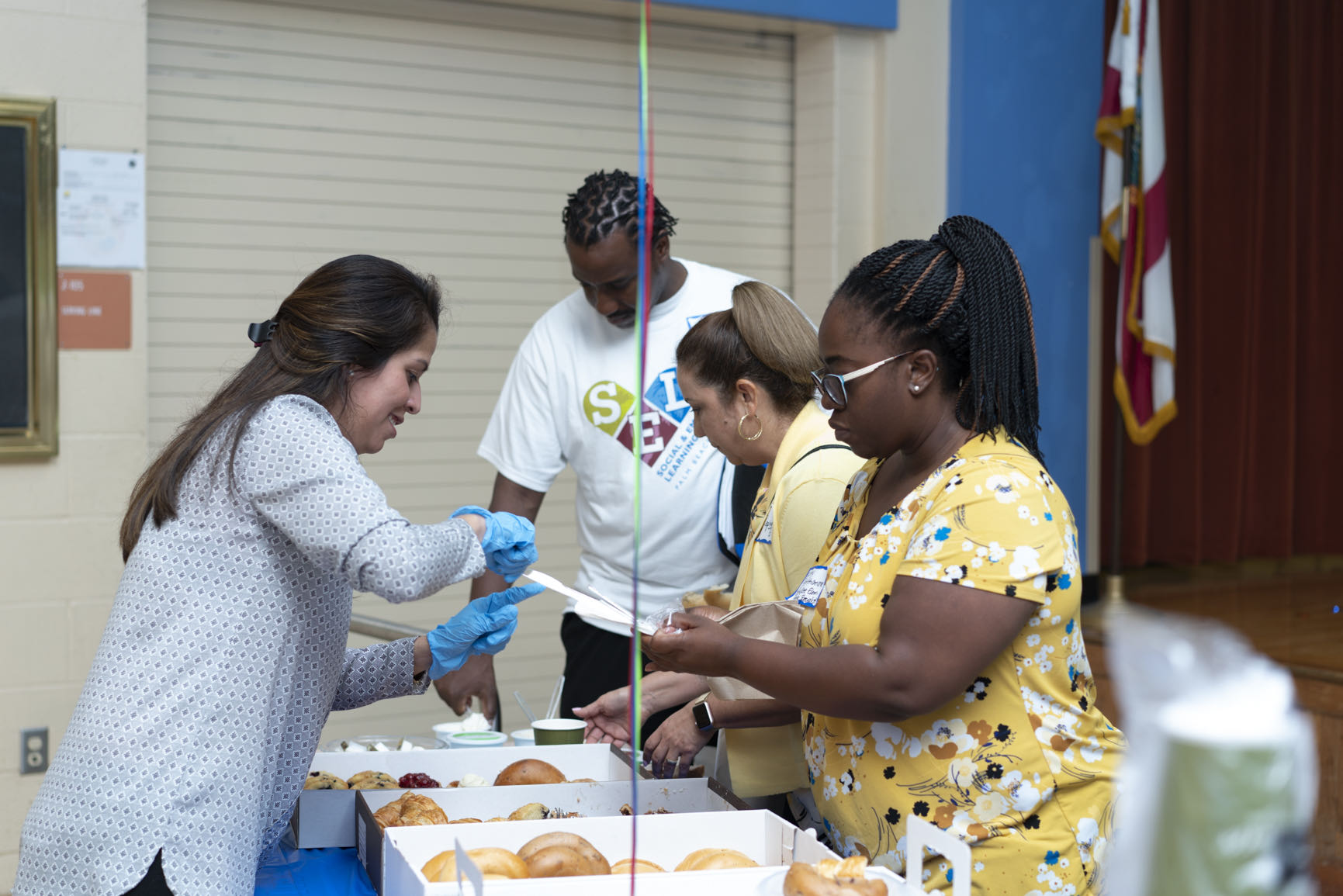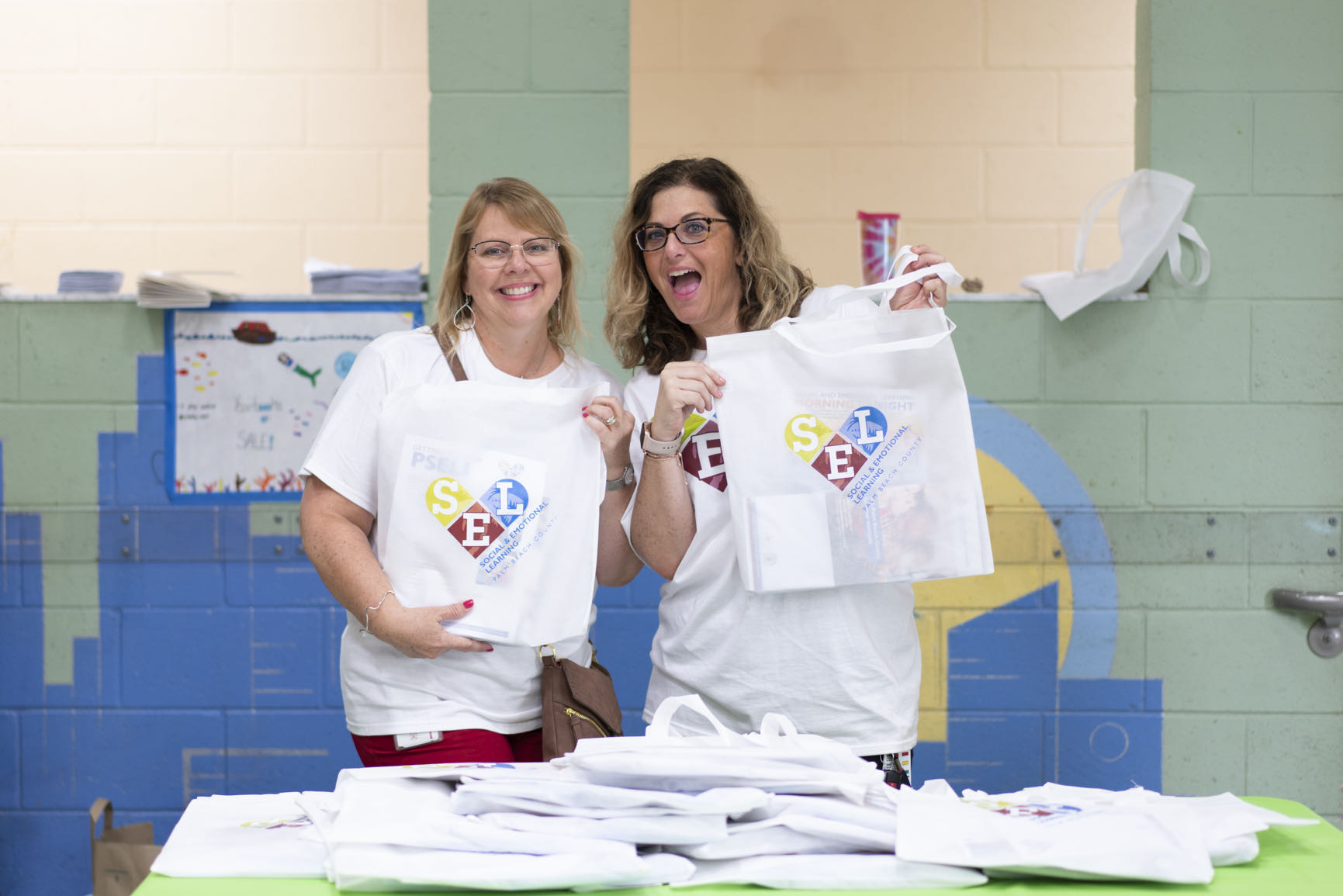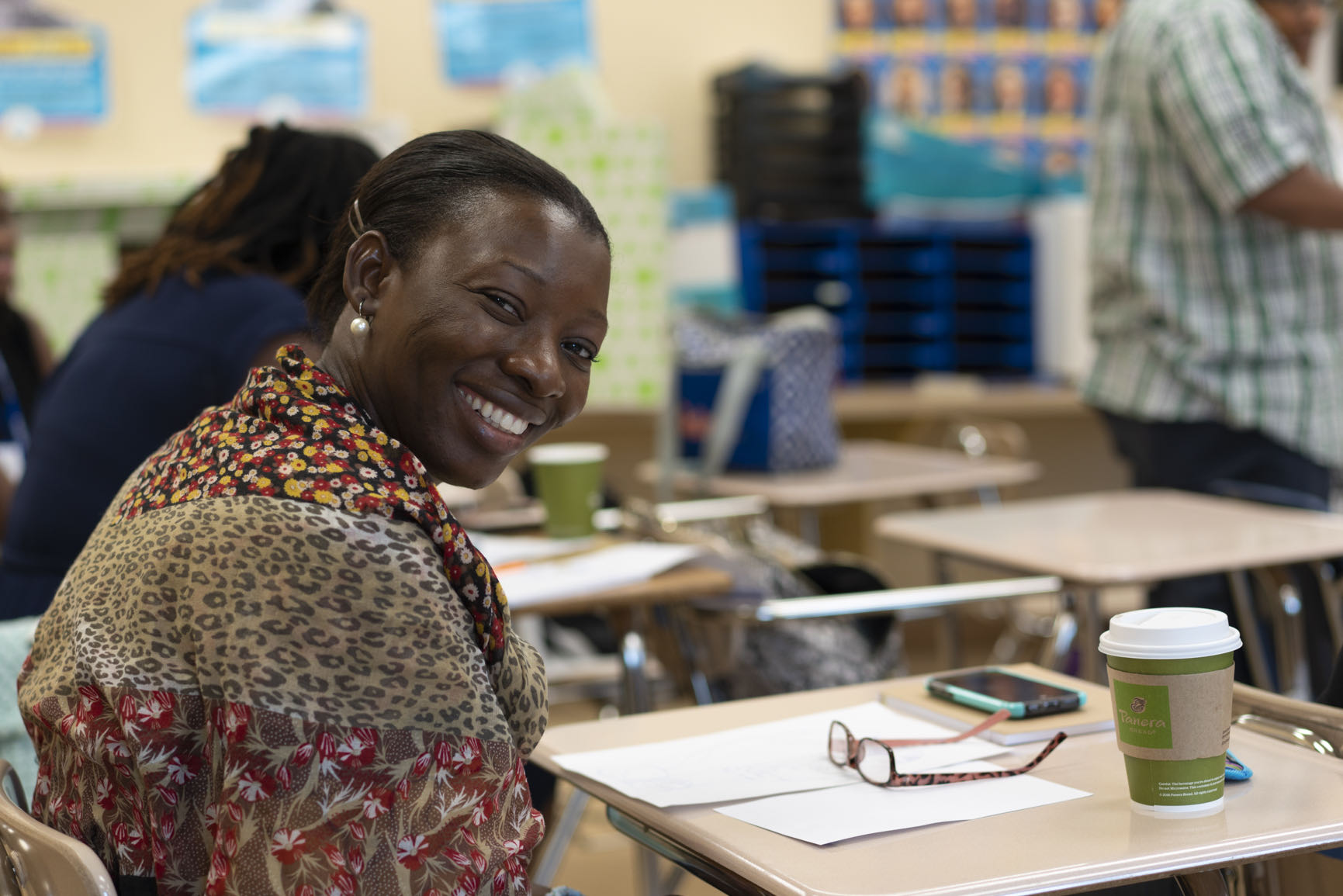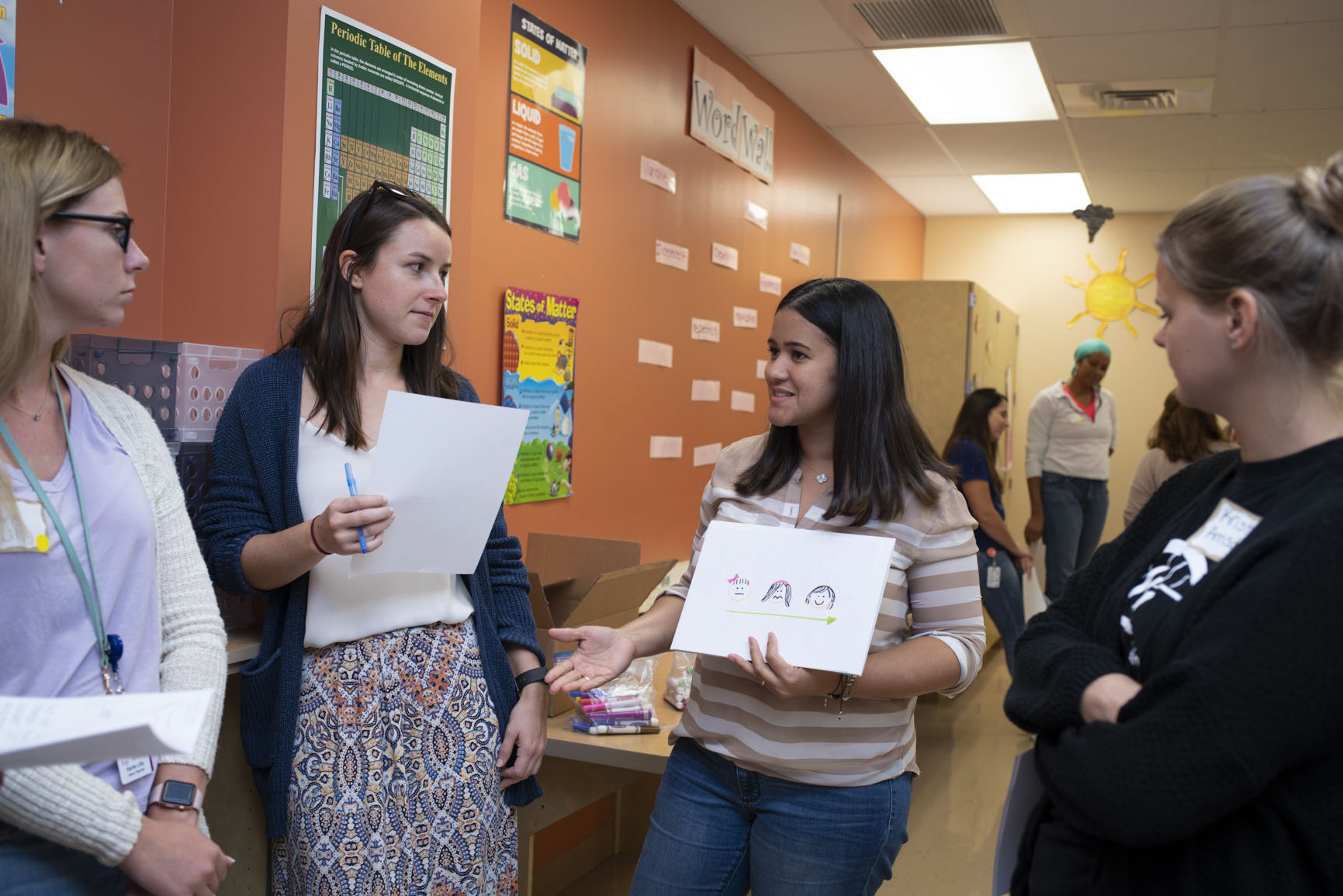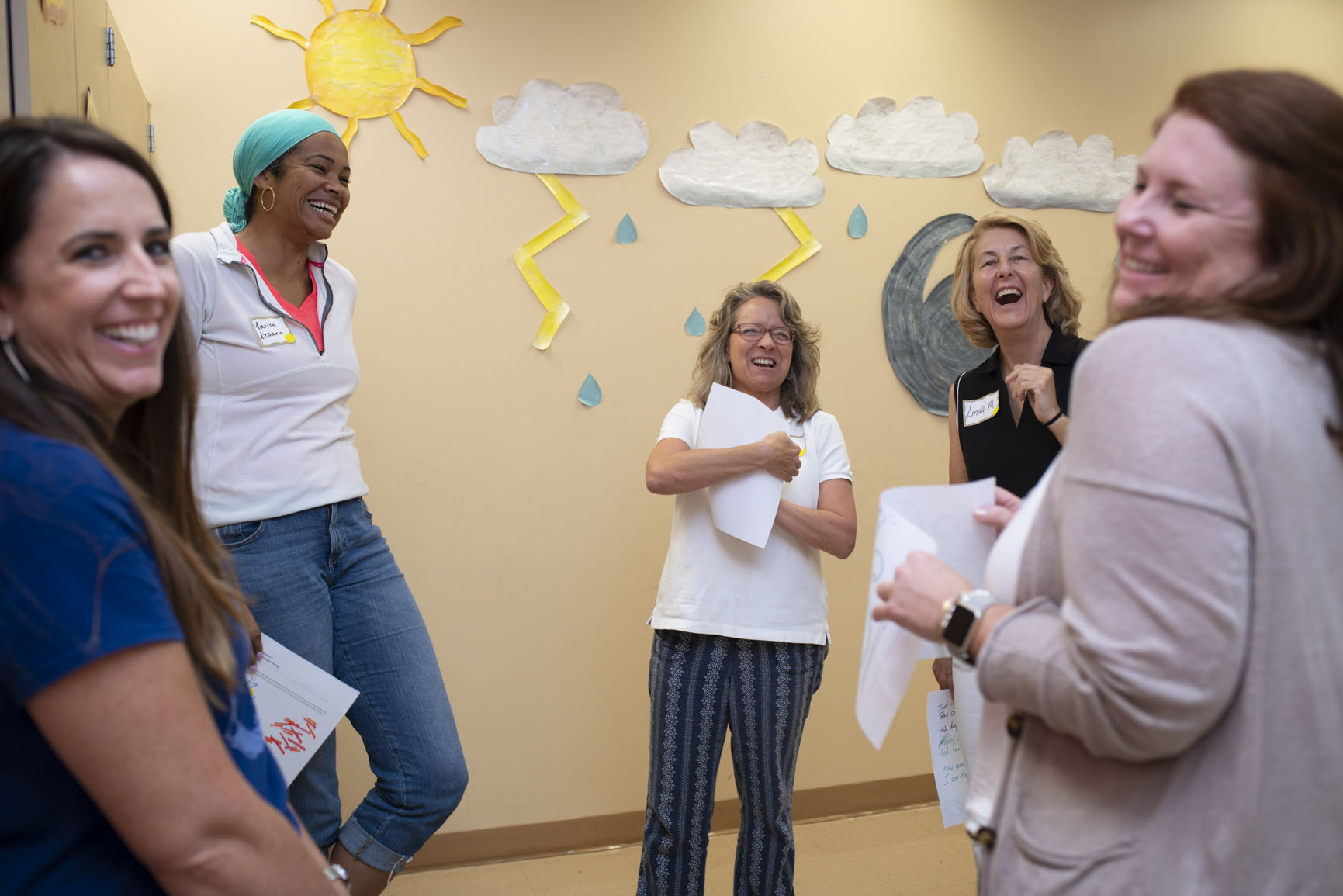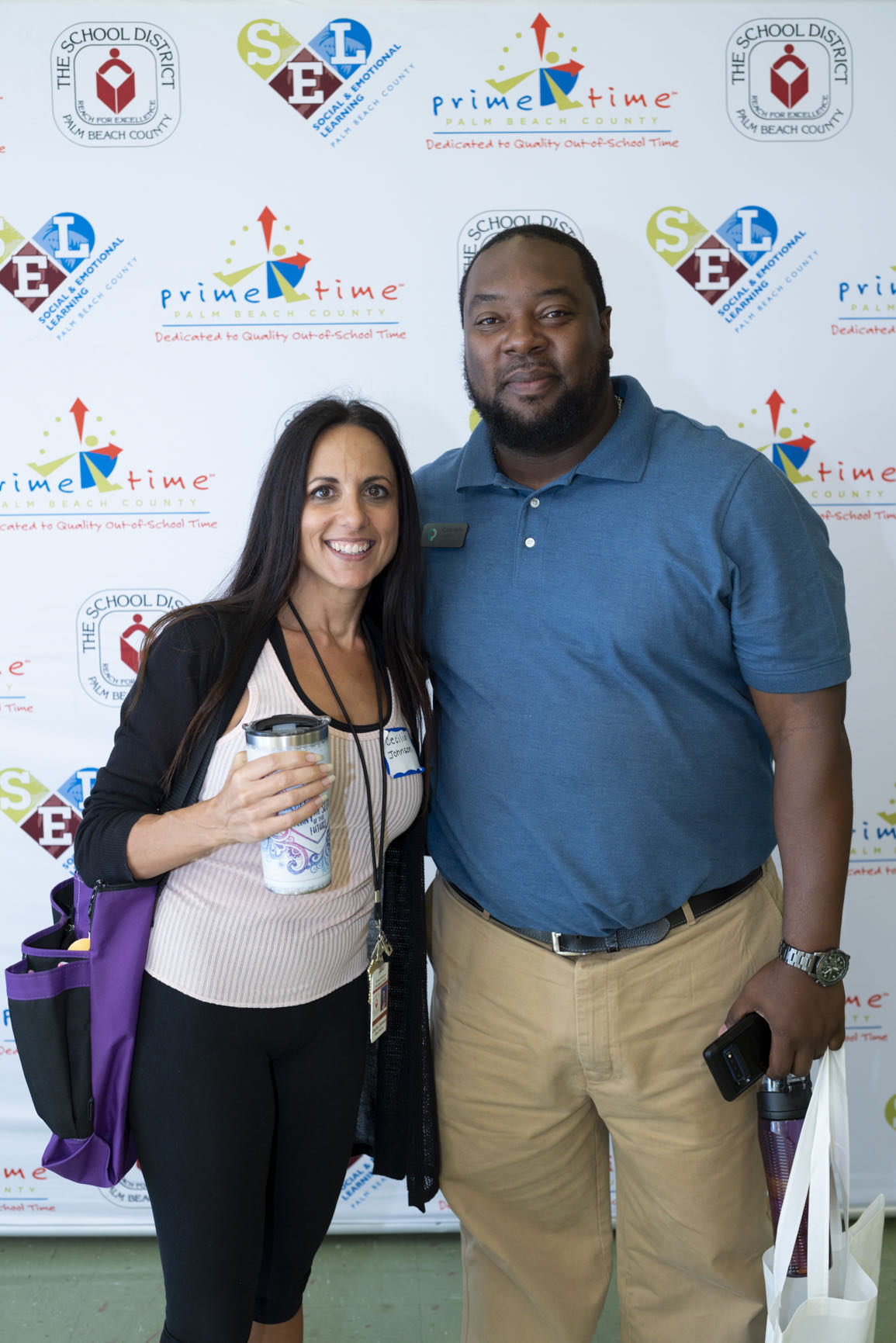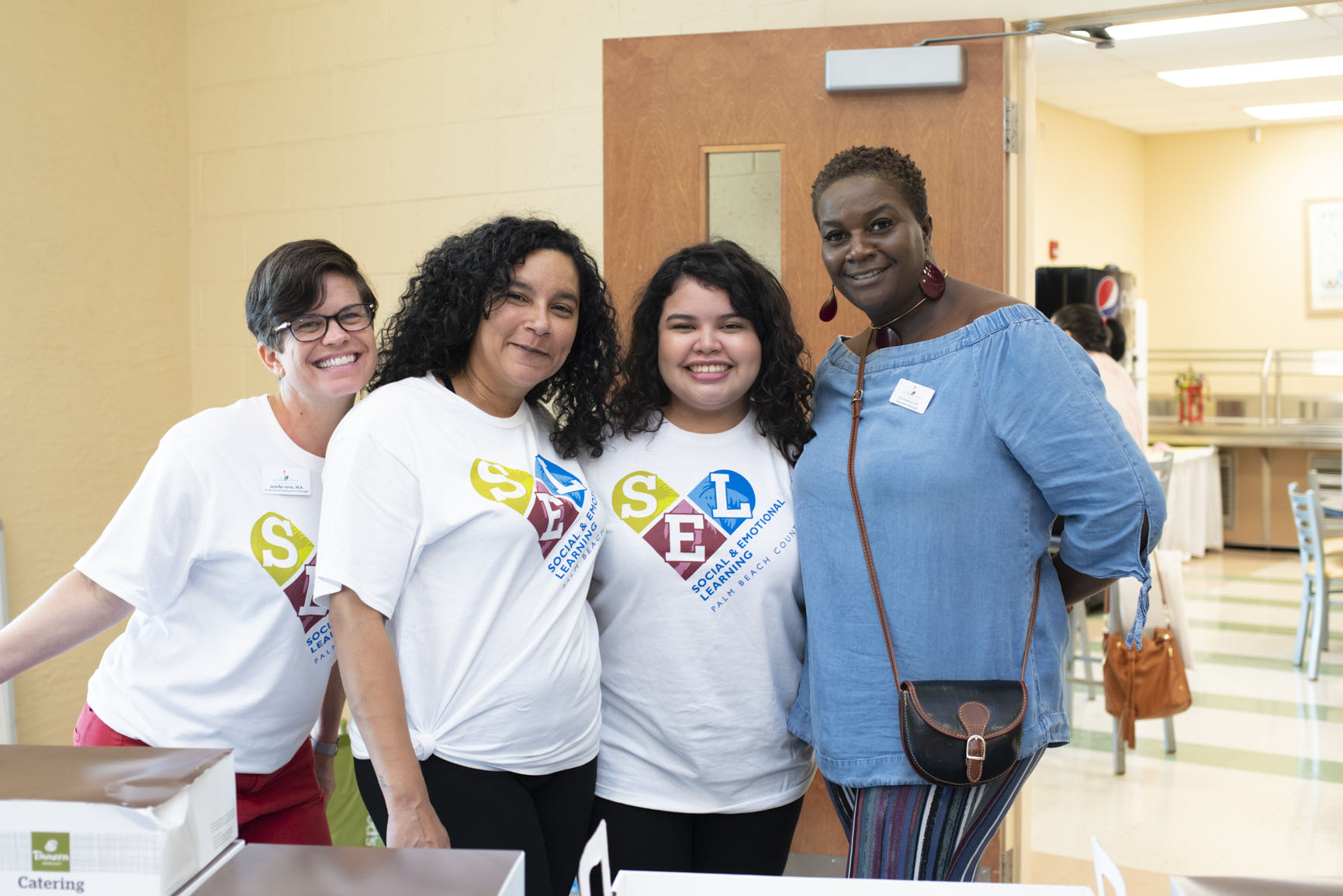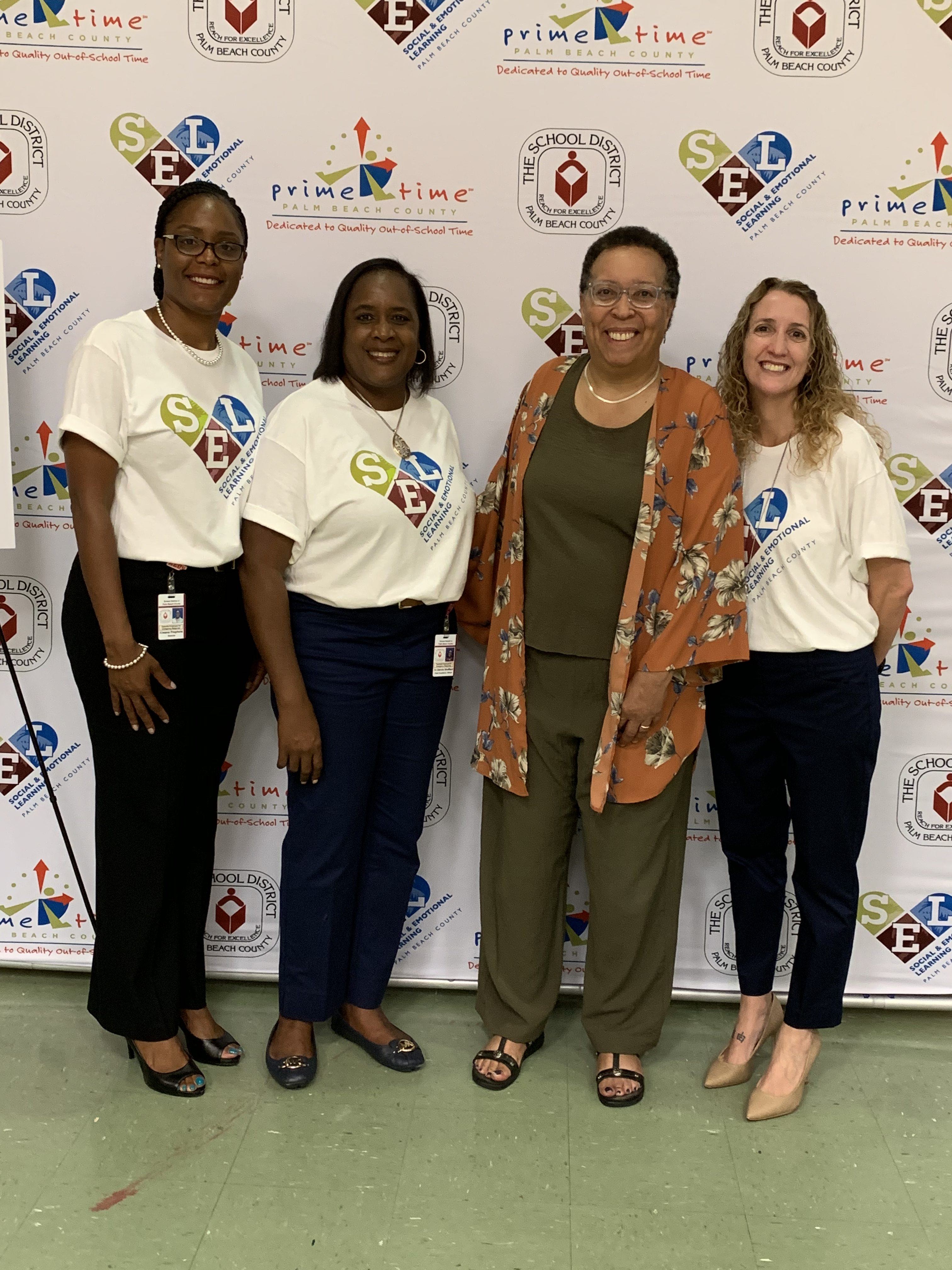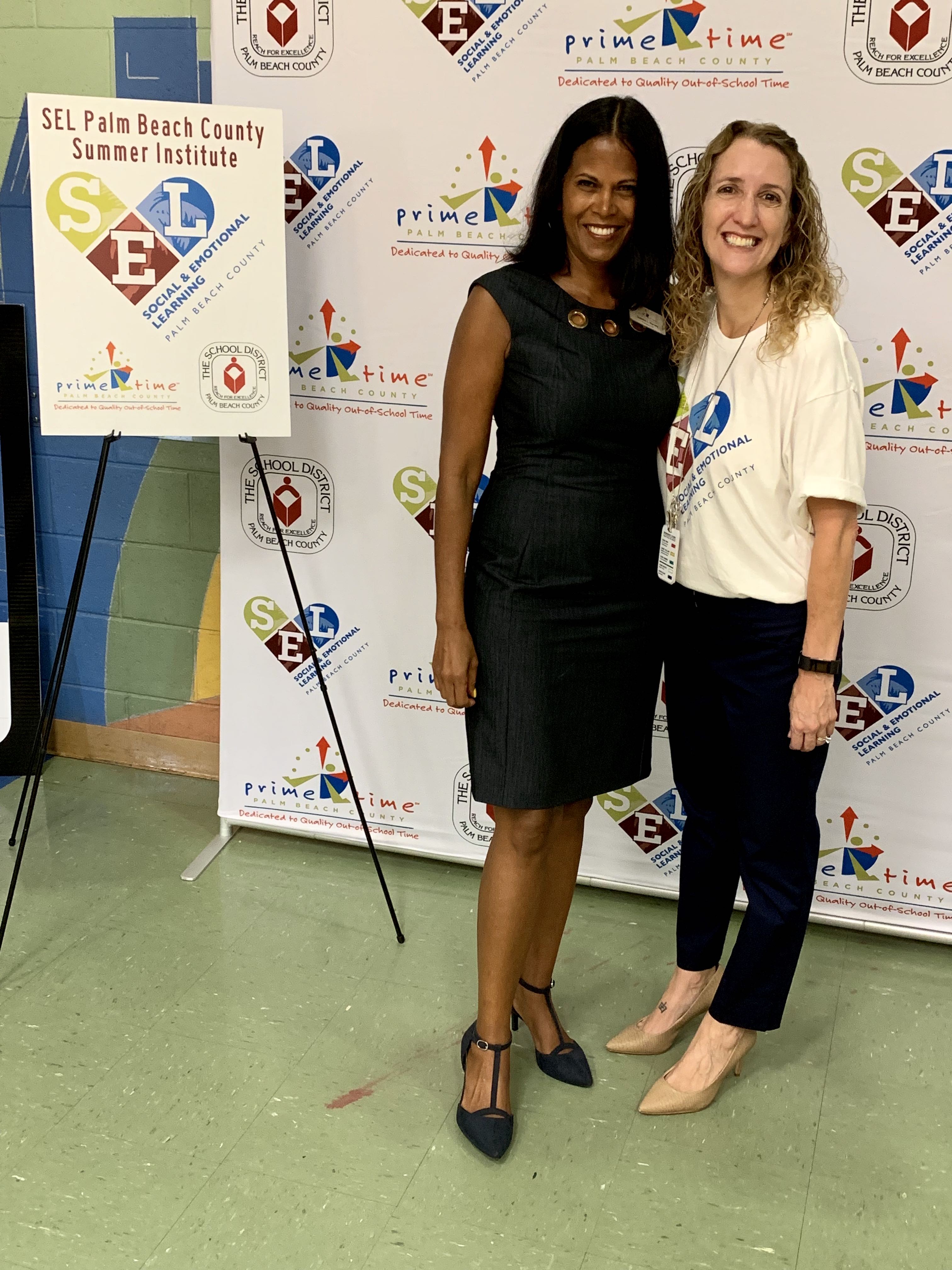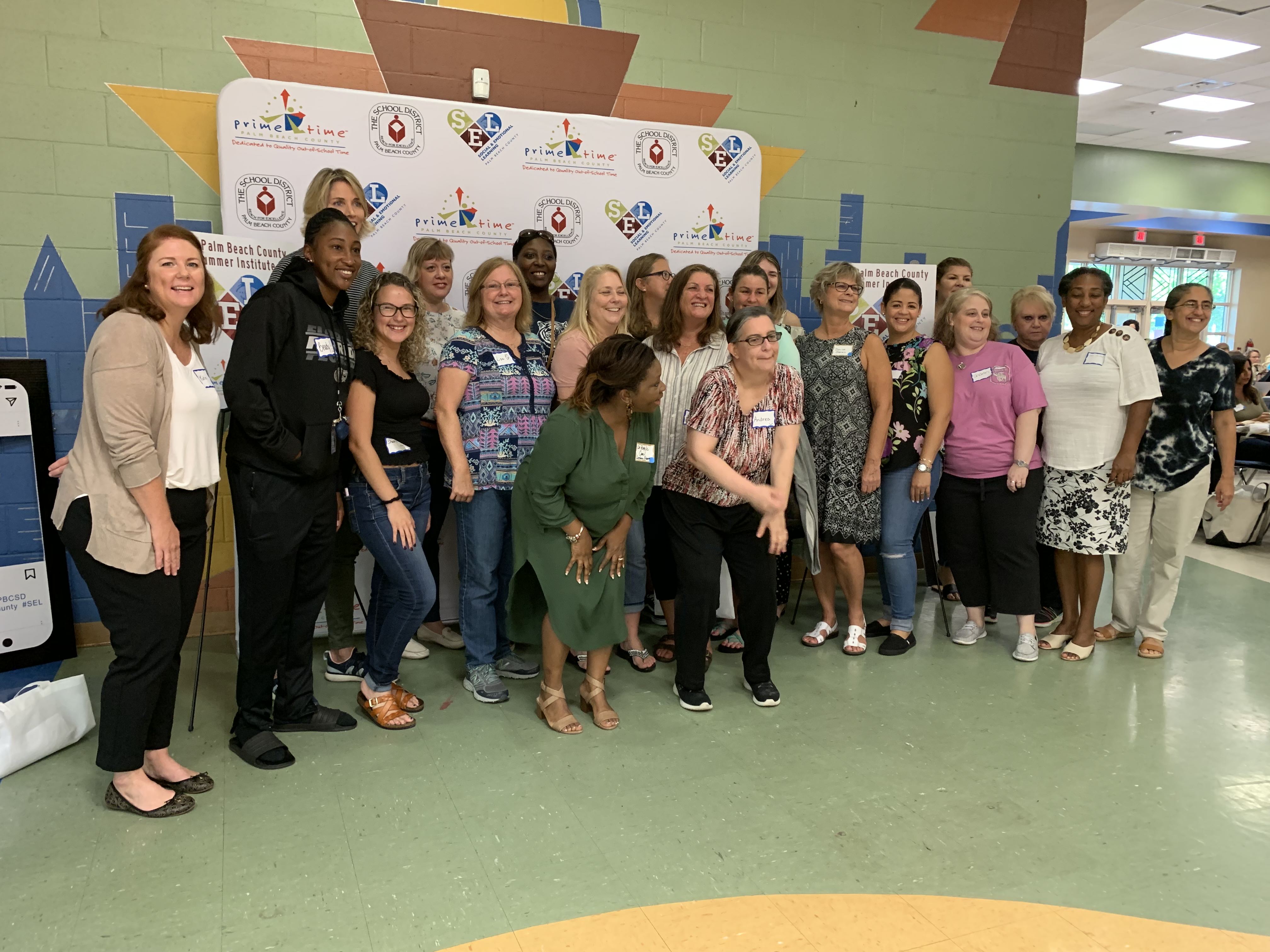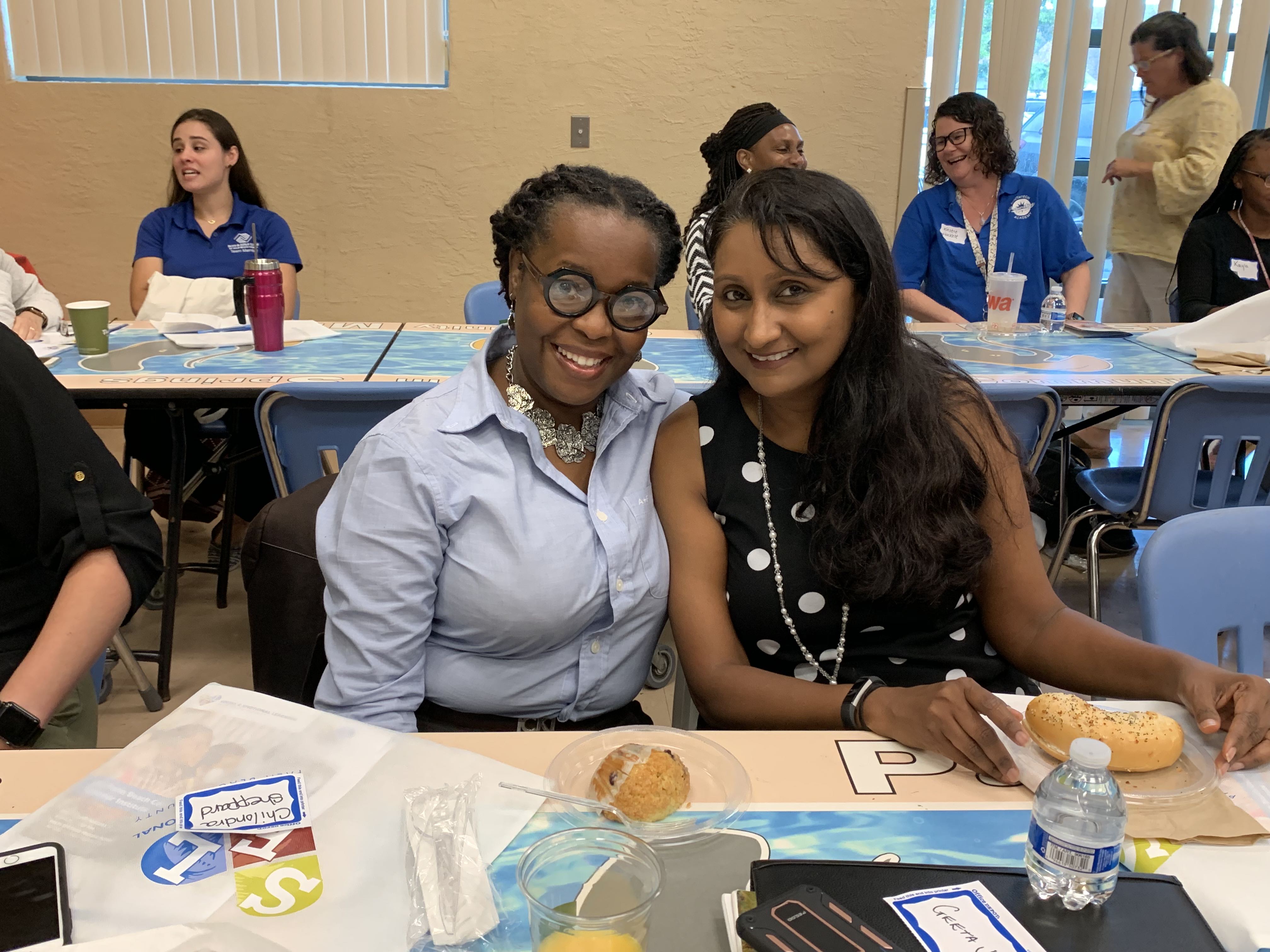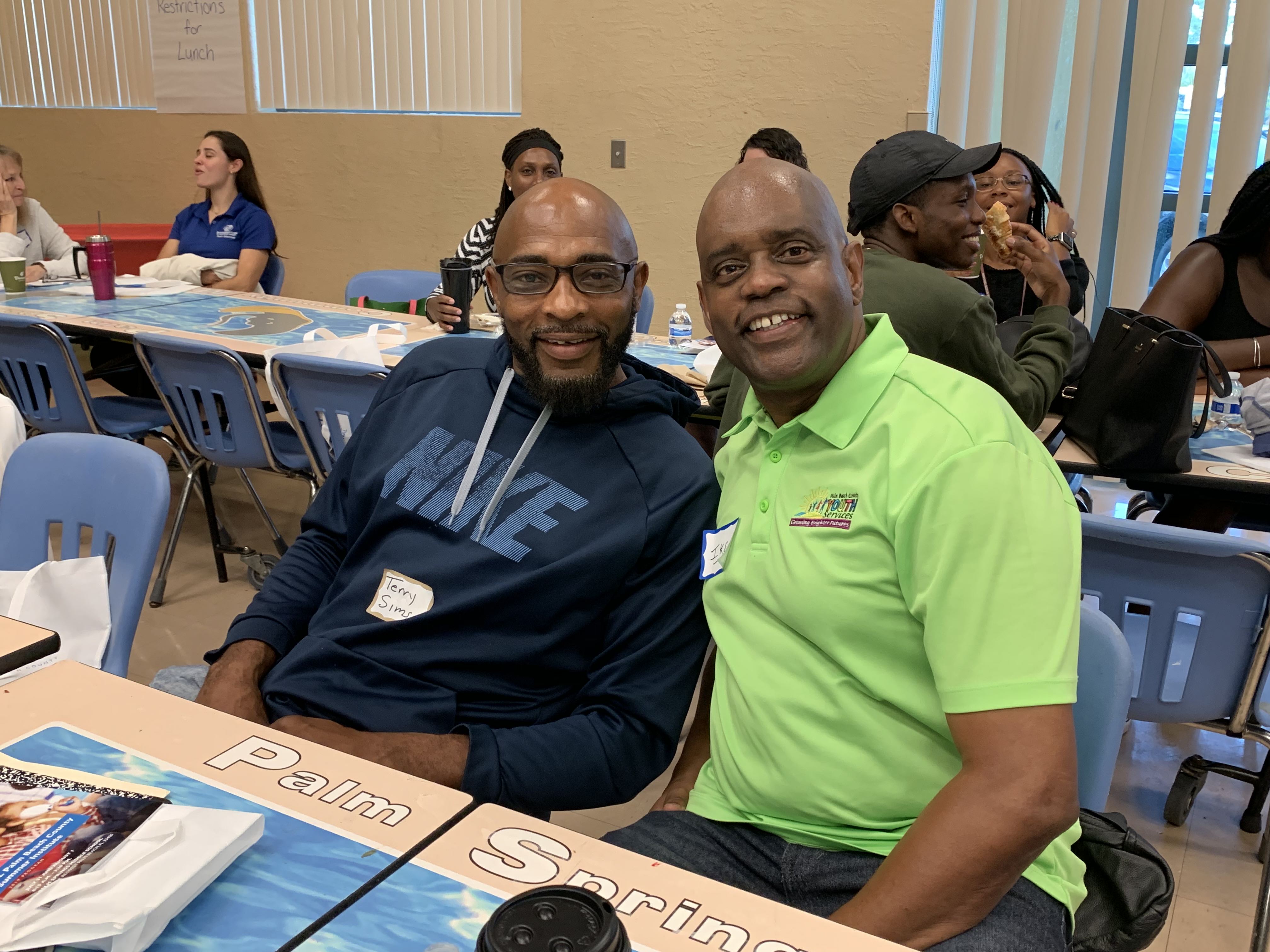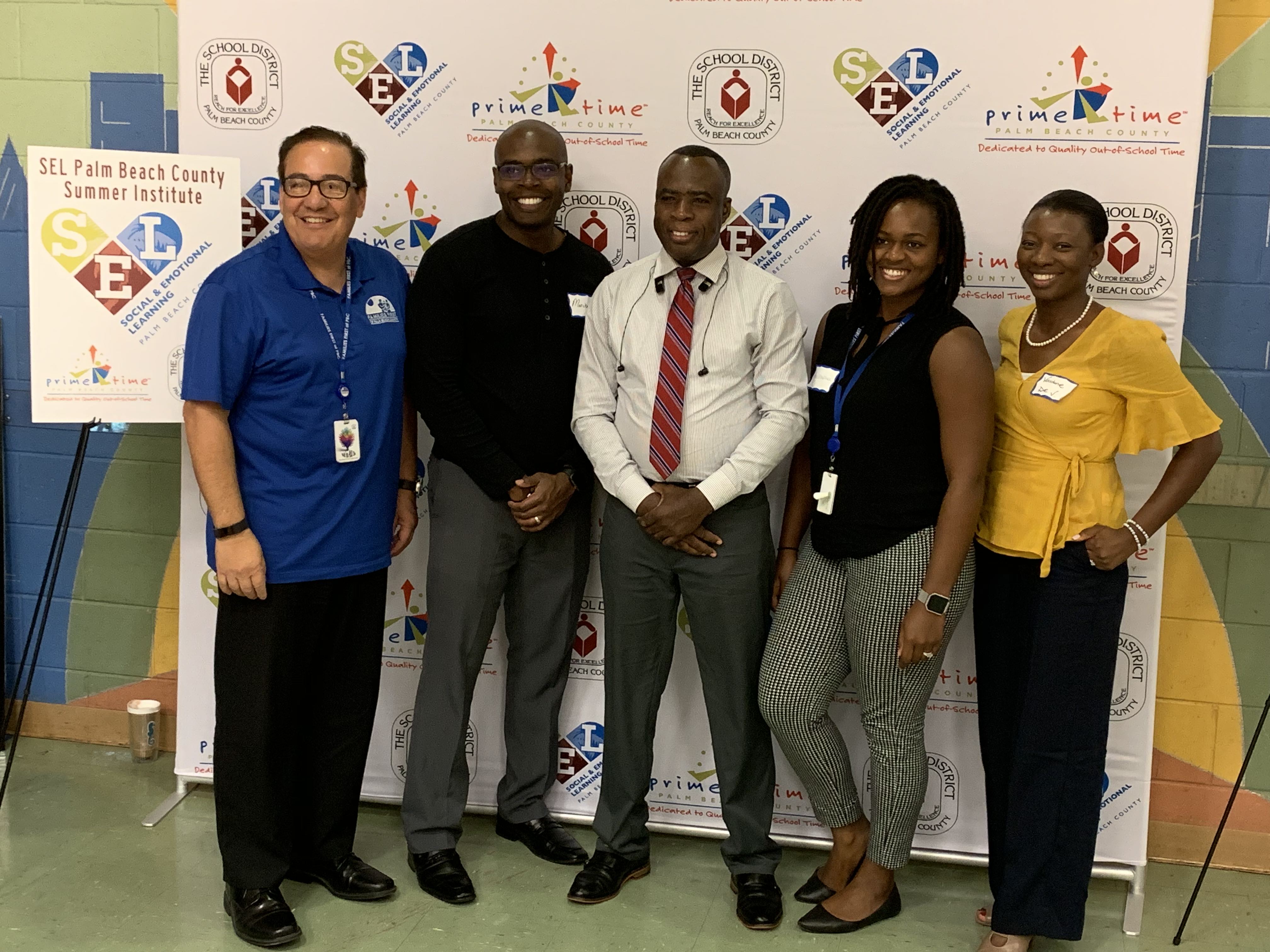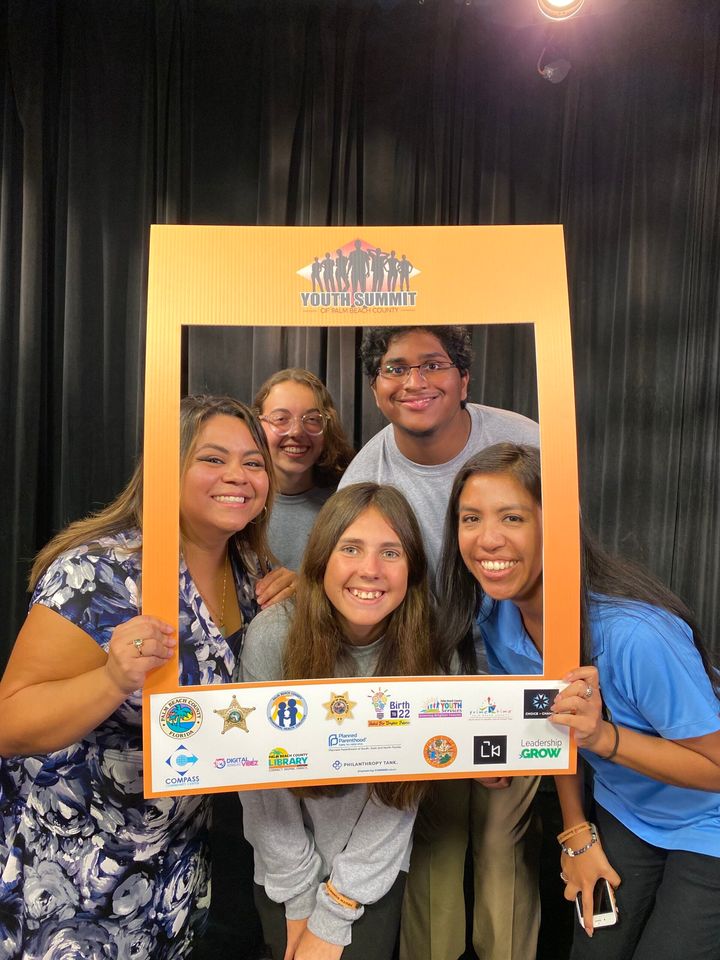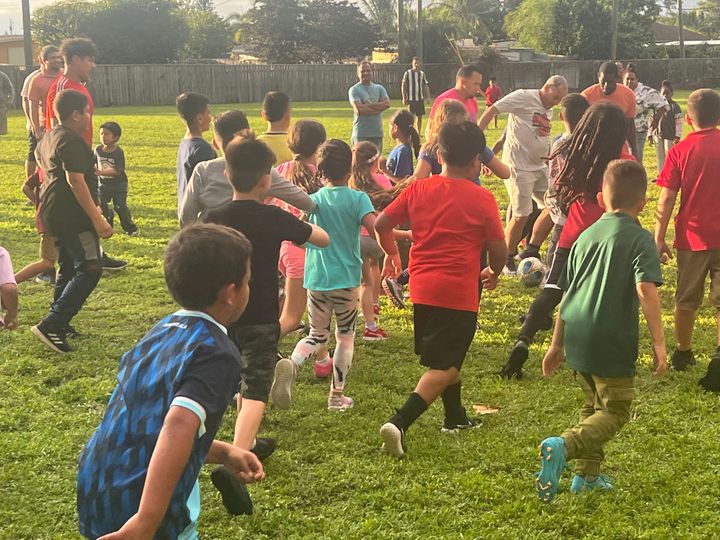SEL Palm Beach County Summer Institute Promoted Social and Emotional Learning to the Hearts and Minds of Educators
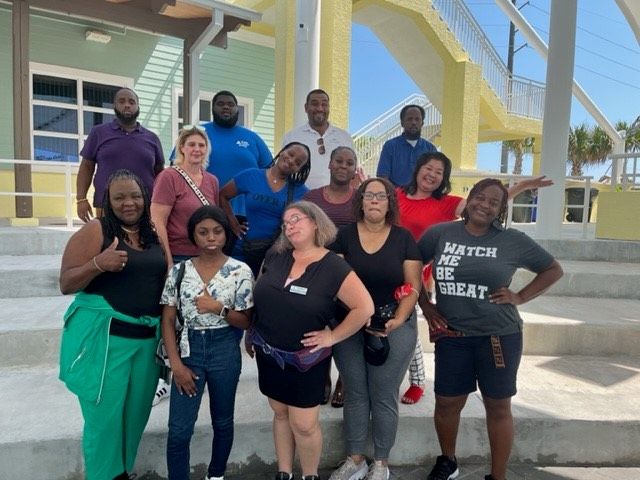
Prime Time Palm Beach County and The School District of Palm Beach County co-hosted the SEL Palm Beach County Summer Institute, a one-day event offered on two days, July 31 or August 1, 2019, at Palm Springs Middle School.
More than 600 administrators, teachers, afterschool directors, afterschool practitioners, non-instructional staff, and community partners who in some way touch Partnerships for Social and Emotional Learning Initiative were in attendance.

Suzette L. Harvey, President/CEO, Prime Time Palm Beach County 
Keith Oswald, Assistant Superintendent, Palm Beach County School District
Forum for Youth Investment President and CEO Karen J. Pittman (pictured below) served as the Institute’s keynote speaker. Ms. Pittman started each morning informing attendees what social and emotional learning (SEL) looks like in practice and how SEL can help children and youth grow and thrive as unique individuals.
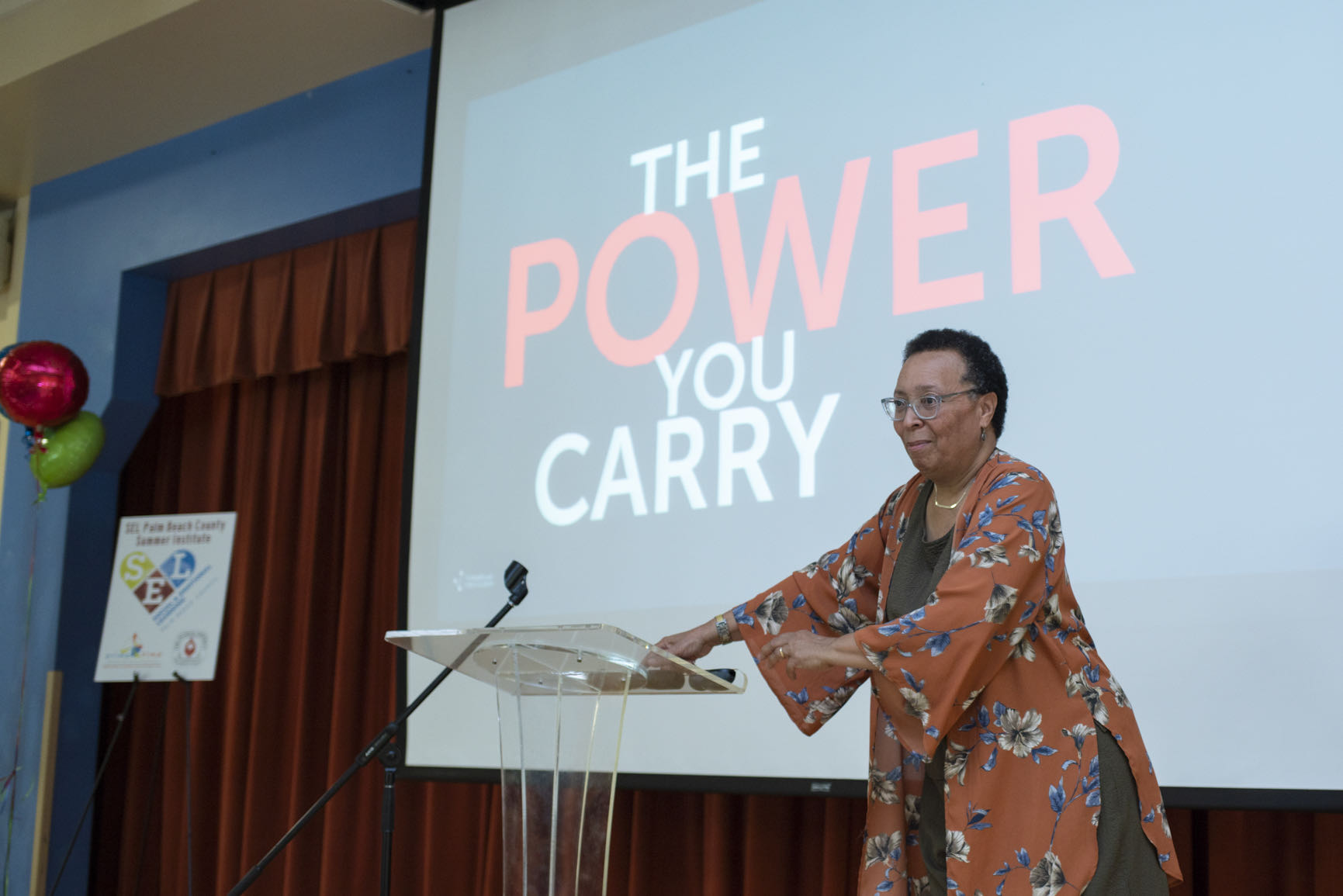
“Embedding social and emotional learning into a child’s day beginning in elementary school will have lasting effects as they become adults.” – Karen J. Pittman
Following the keynote, presenters from The School District of Palm Beach County, Prime Time Palm Beach County, David P. Weikart Center for Youth Program Quality, CASEL: Collaborative for Academic, Social and Emotional Learning, and Service Network for Students with Severe Emotional Disturbance (SEDNET), facilitated a variety of SEL-related workshops to help promote social and emotional learning.
In addition to the plethora of unique and engaging breakout sessions offered to all participants, two individualized learning tracks were created for both school administrators and those that are new to PSELI.
The PSELI Administrator Track was designed to build on the learnings of principals and OST directors during the first two years of PSELI implementation. District leadership and CASEL consultant guided participants in celebrating successes, identifying challenges, and discussing growth opportunities for year three. The afternoon focused on continuous improvement in SEL and the SEL Walkthrough Tool. Representatives from Learning Sciences International (LSI) along with the District PSELI Research Team led discussions on continuous improvement cycles and how to use the LSI Trend Tracker/SEL Walkthrough Tool to improve SEL implementation, reflect on and track progress and develop goals and action plans for successful implementation of SEL practices.

The PSELI Onboarding Track was offered to in school and OST practitioners who are new to PSELI. The morning session that was offered on this track focused on adult SEL skills. More specifically, participants learned about the significance of self-awareness, relationships and communication skills. Participants received tools and practiced skills designed to help to be authentic at work, forge deep connections and increase self-awareness. In the afternoon, those attending this track received an overview of social and emotional learning in SEL 101, as well as an introduction to Morning and Afternoon Meeting.

Prime Time’s Middle School Professional Development Specialist Anton Spalding (pictured below) facilitated a segment of “Bringing Yourself to Work,” where participants received tools and practiced skills to help forge deeper connections with their colleagues, and increase their understanding of how strong group dynamics can lead to healthier SEL environments for children in school day and afterschool programs.

Prime Time SEL Specialist Knellee Bisram (pictured below) facilitated “Mindfulness-Informed Adult SEL Practice” to provide adults working in the education field with simple mindful awareness practices that can be used to deepen self-awareness, promote self-care and resilience, respond proactively to stressors in life and work, and strengthen empathetic impulses to build more compassionate relationships in their own lives.

District SEL Specialists, Lauren Peragine, Lily Trinidad (pictured below) and Eileen Nieves facilitated sessions that took a deep dive into the components of Morning Meeting. Various options were presented to participants on how to integrate SEL skills and academic content while creating engaging, relevant morning meetings. An overview of explicit SEL Instruction (Second Step) was also provided which served as a refresher on accessing and utilizing Second Step Curriculum.

Prime Time’s Professional Development Manager Jennifer Jones (pictured below) facilitated “Reframing Behavior Management.” In this interactive and fun session, participants learned how to approach ALL youth behavior as opportunities for youth to improve their responsibility skills, emotion management and problem-solving skills.

Palm Beach County School District Program Planner for Elementary School Counseling Stephen Kaplan (pictured below) facilitated a session entitled, “Reflecting on your Own Practice in SEL.” Based off the work of Dana and Yendol-Hoppey, participants had the opportunity to explore their own passions, wonderings, and questions related to SEL. Through a facilitated process of discussion and reflection, learners left the workshop with a well-defined essential question and a plan to answer that question across the next school year.

In the session, “Social-Emotional Learning through a Culturally Responsive Lens,” Palm Beach County School District PSELI Lead Gail Sherman (pictured below), shared best practices in providing SEL in ways that are culturally responsive to diverse groups of children and youth. This interactive session focused on helping adults put foundational practices in place that set the stage for successful implementation of culturally responsive teaching and learning through the use of social-emotional tools and strategies.

ESE Program Planner Cheryl Harris and SEDNET Specialist Michelle Beatty (pictured below) led a session entitled “The Trauma Responsive Classroom: From ACEs Aware to Practice.” Participants in this session learned about Adverse Childhood Experiences (ACEs), trauma informed school practices and ways to support increased child resiliency. Resources were provided for each participant to utilize when supporting children and youth.
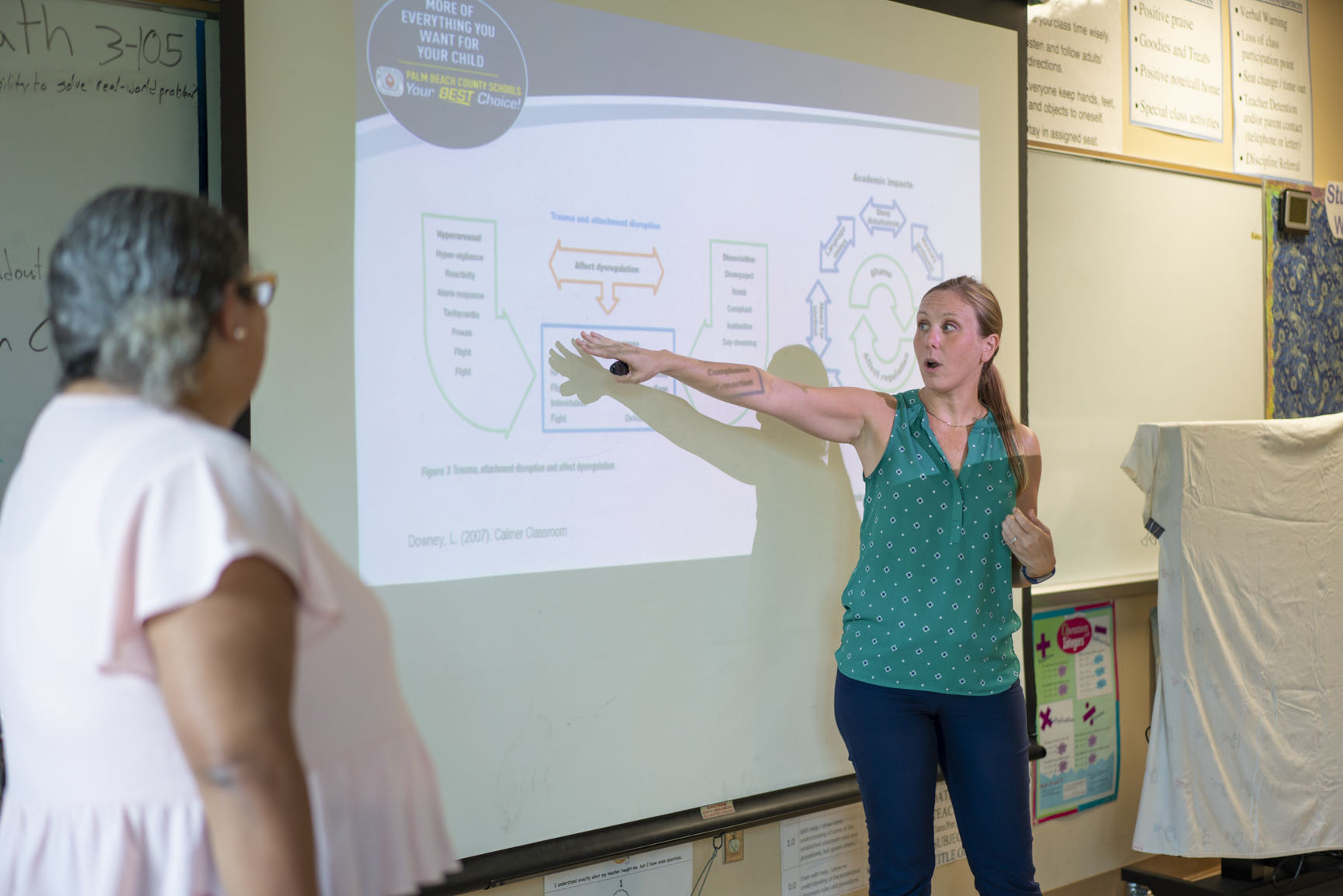
During the breakout session, Teaching & Learning Instructional Specialist Dr. Alyssa Jean (pictured below) posed the question, “Is Work Life Balance Even Possible?” Participants had the opportunity to do some self-reflection about their lives and their ability to manage stress. Through interactive activities, discussions, and journaling, participants learned the concept of work life balance, cultivated two vital principles, and developed a personal plan that serves as a proactive measure to stress management for the upcoming school year.

Breakout Sessions from National Thought Partners
CASEL Policy and Practice Specialist Tyrone Martinez-Black (pictured below) led an engaging and interactive session on SEL and academic integration. Through experiential activities, participants discovered that SEL is not meant to be a stand-alone program, but to be integrated into all academic areas and all aspects of school and life. Participants also discussed and explored a variety of instructional strategies to integrate SEL into lessons.

CASEL Director of PSELI Implementation Sherrie Raven led session “The Words We Use.” Participants learned how we can make our language more effective for children, youth and adults while building social and emotional skills. Participants also learned about reinforcing and reminding language, practiced the difference between praise and feedback, and deepened skills in listening and questioning.

David P. Weikart Center National Trainer and Field Consultant Monica Marie Jones (pictured below) and Director of Field Services Laenne Thompson co-led a breakout session called “Cultivating Empathy!” In this session, participants learned about strategies and methods that help teachers and practitioners build empathy skills in youth. The definition of empathy was explored, strategies related to perspectives and experiences were discussed along with next steps in assessing and supporting youth with the development of these skills.

Following the workshops, attendees gathered for a Community of Practice led by Prime Time Director of Professional Development Katherine Gopie (pictured below). Attendees documented what they learned from workshops and created goals that were shared with a colleague to support and keep them accountable as they implement the new learning in the coming school year.




